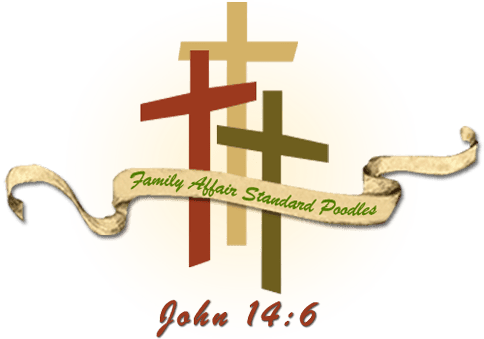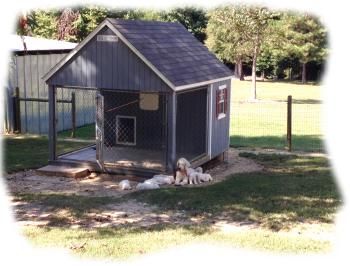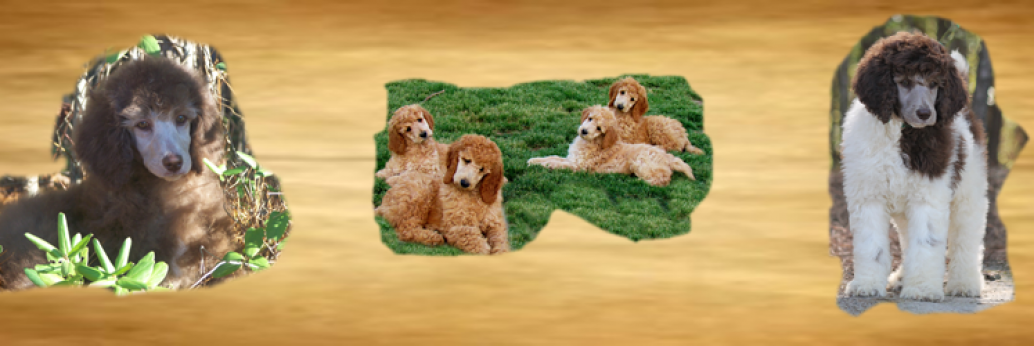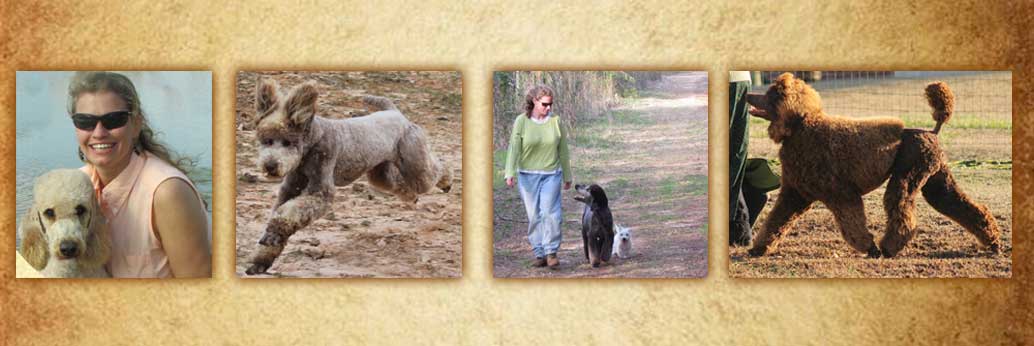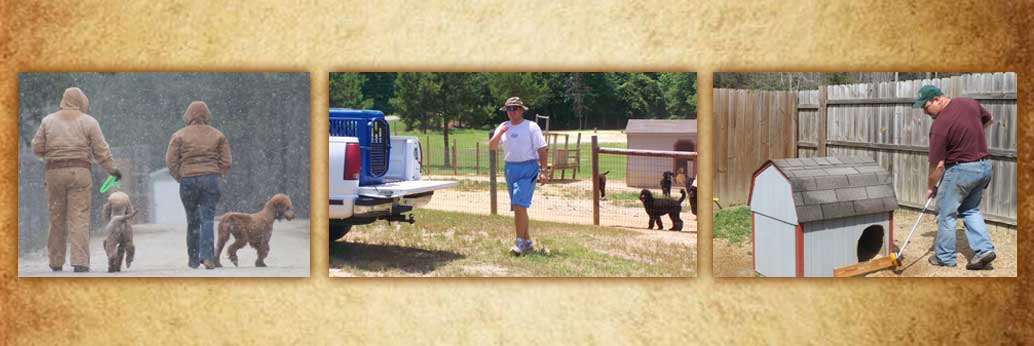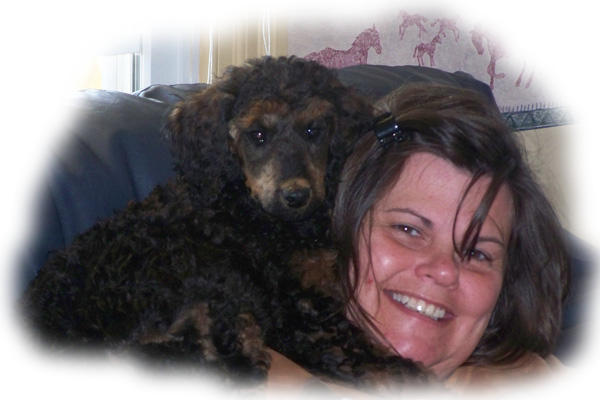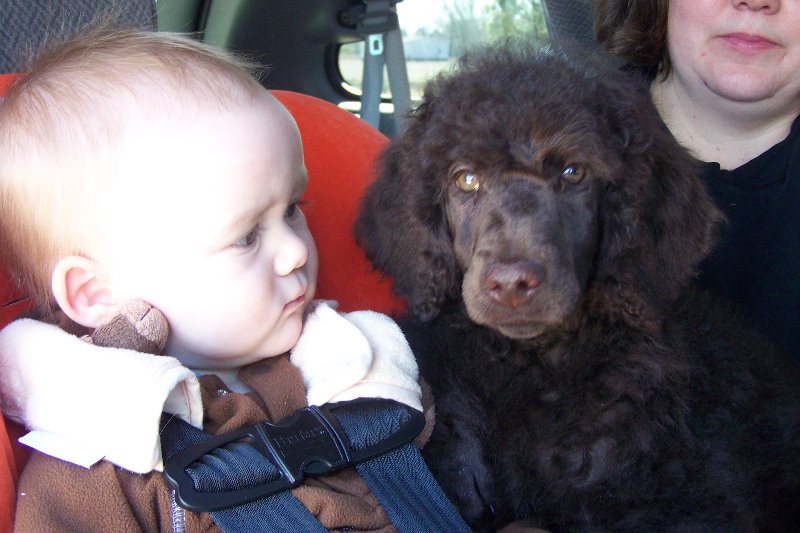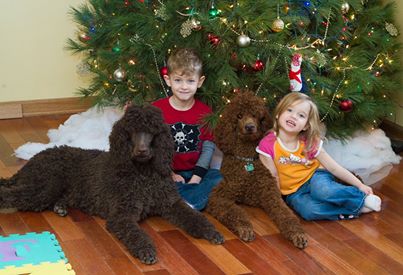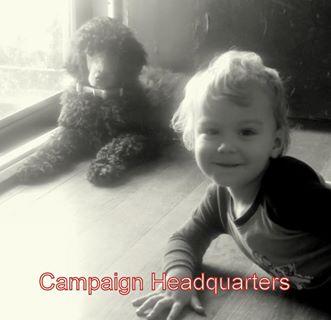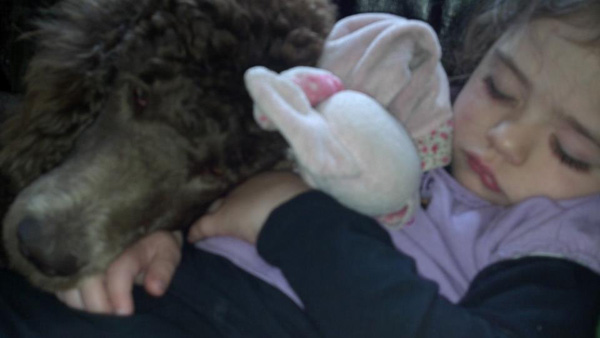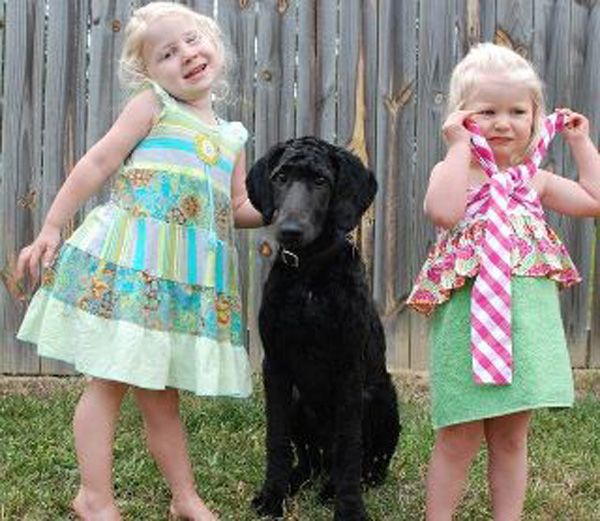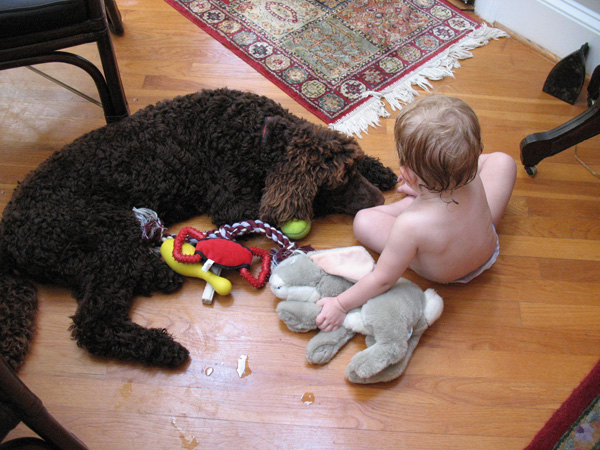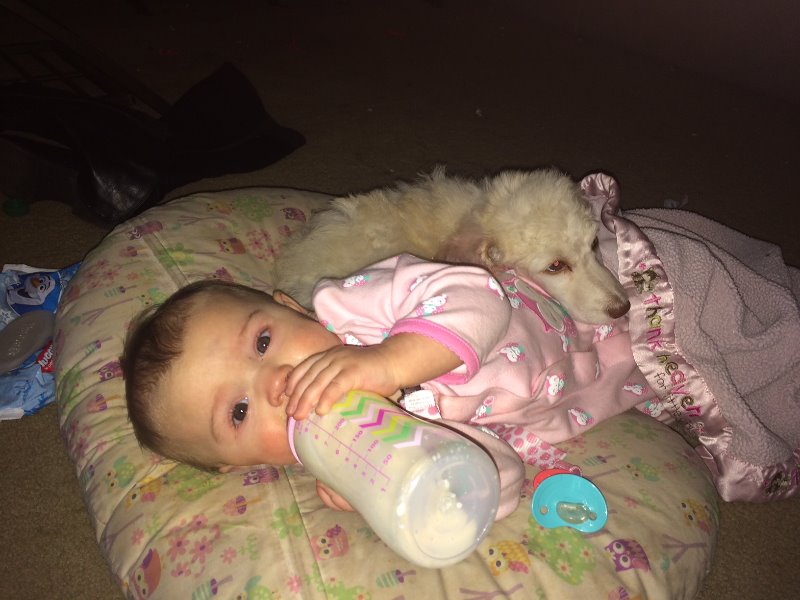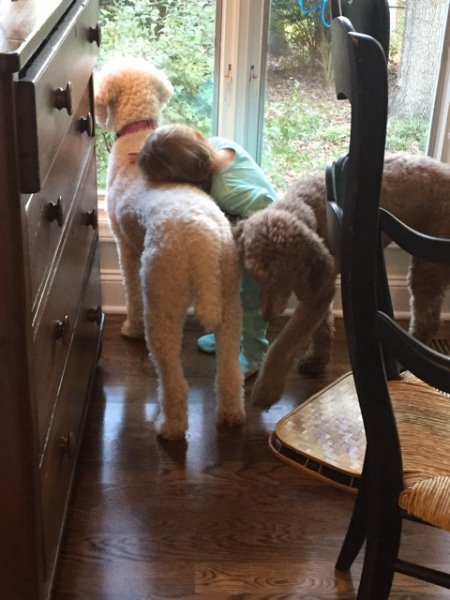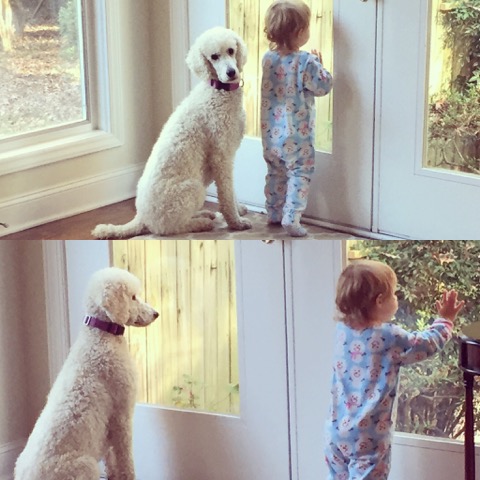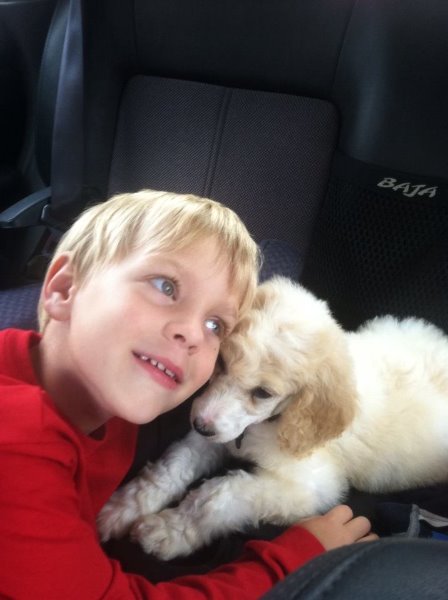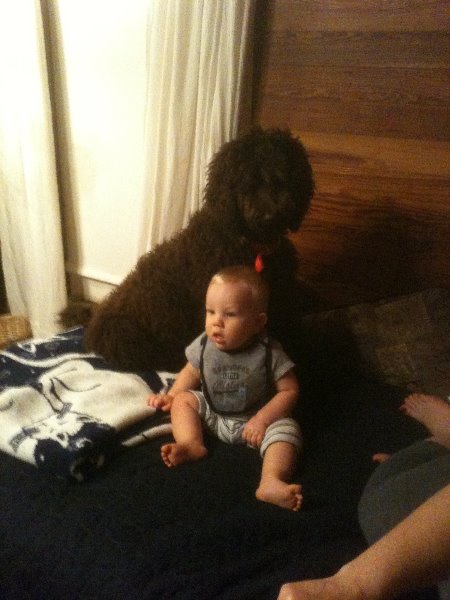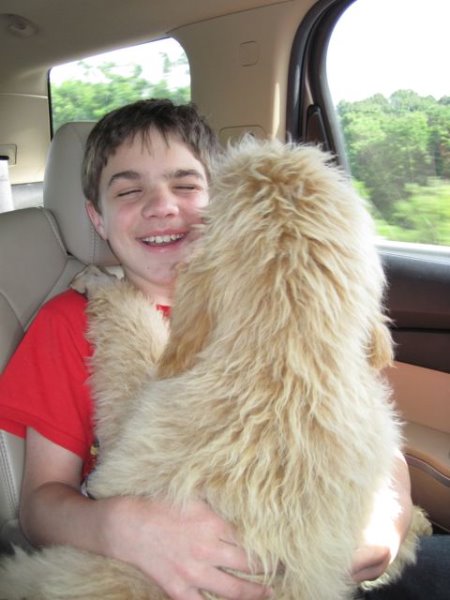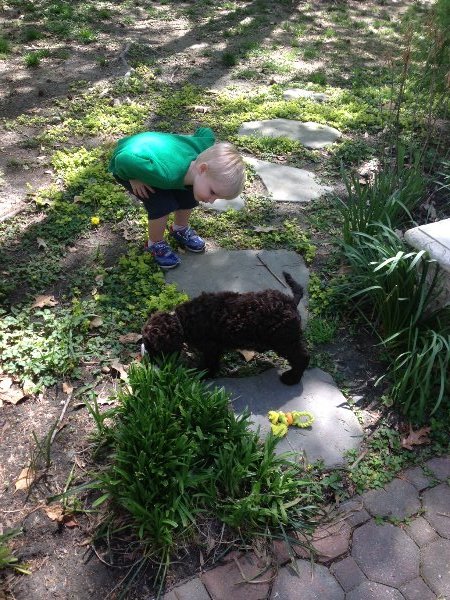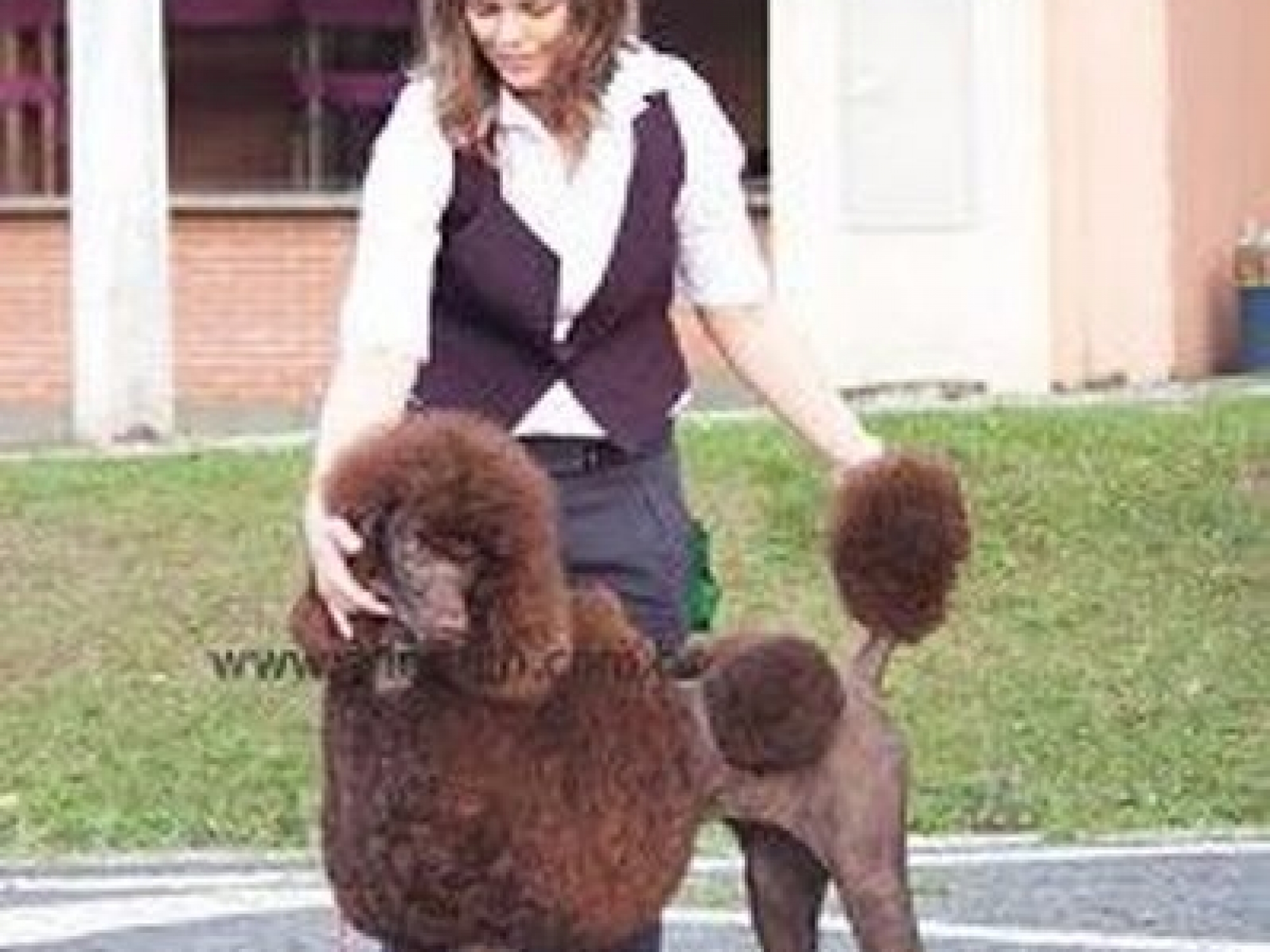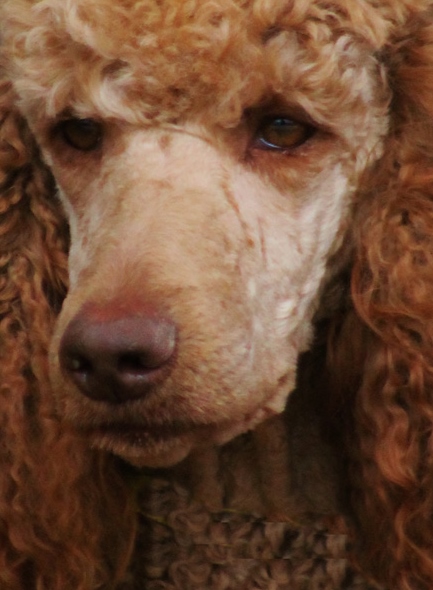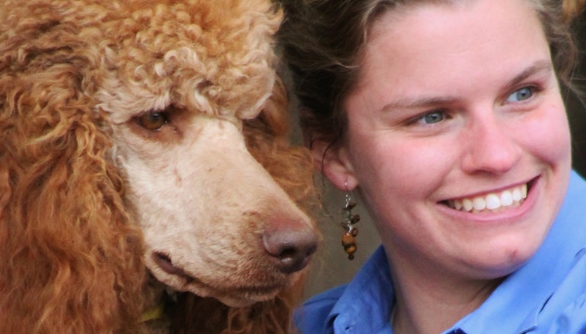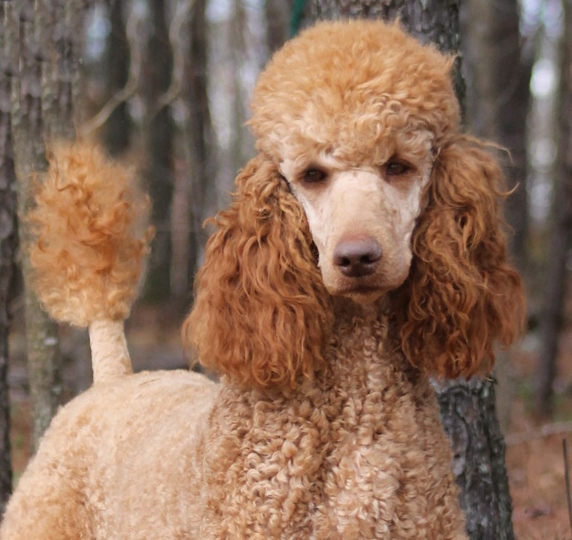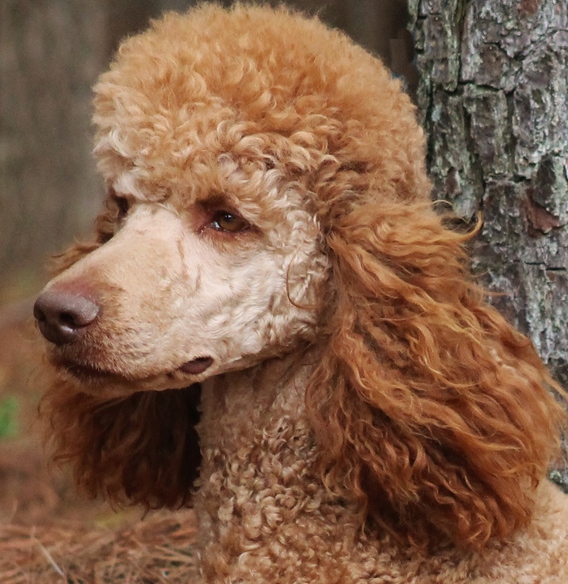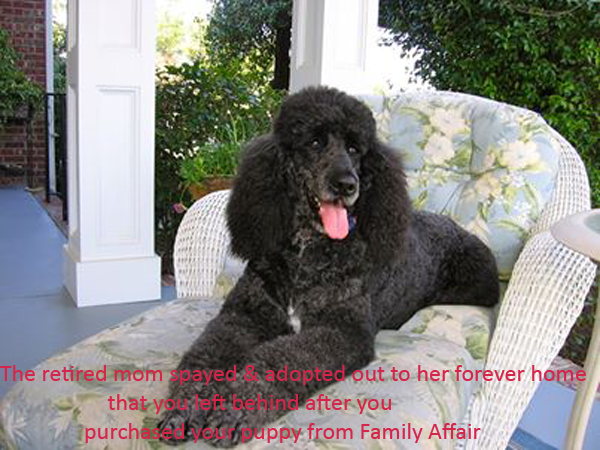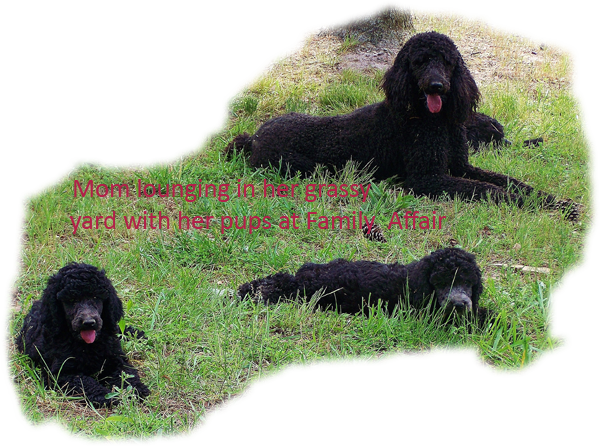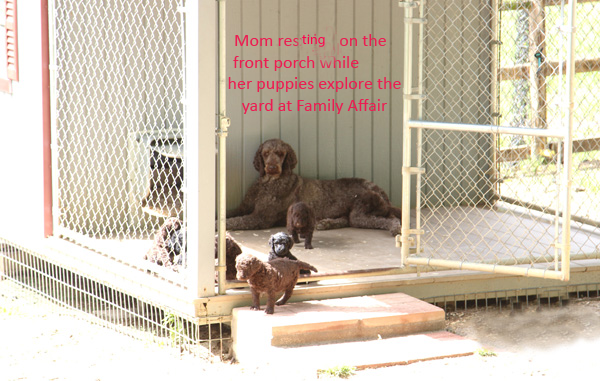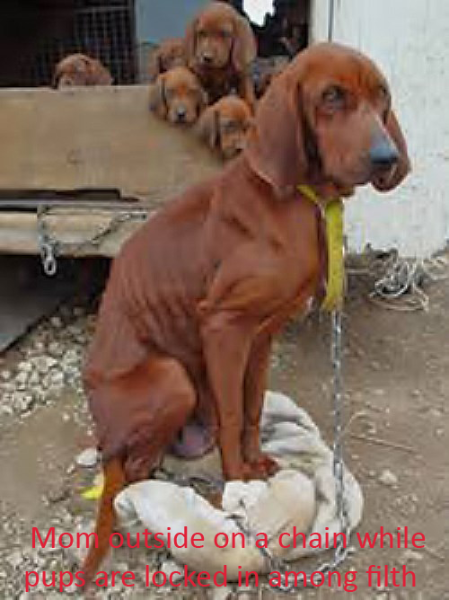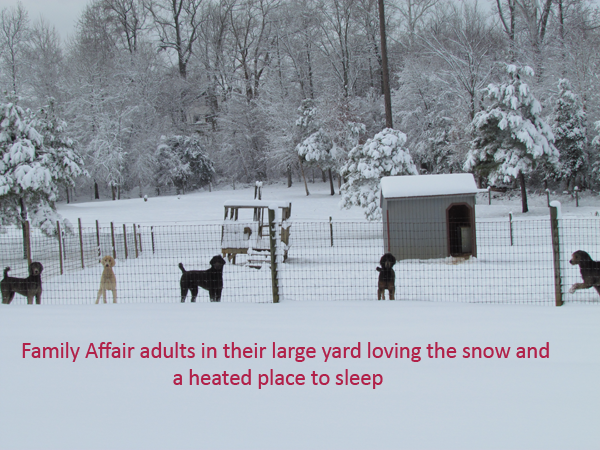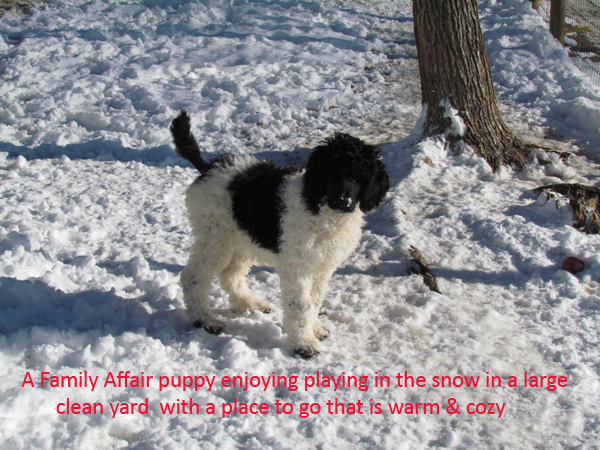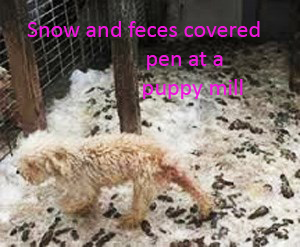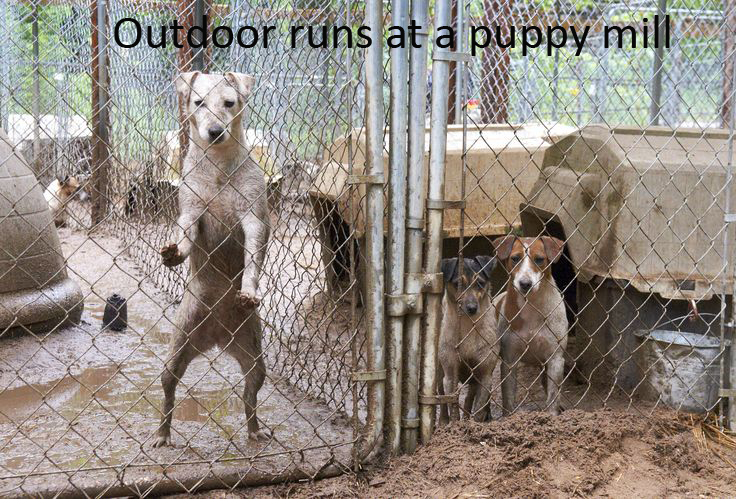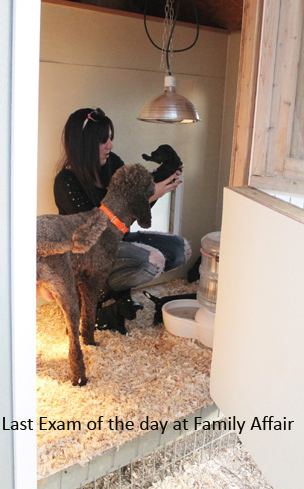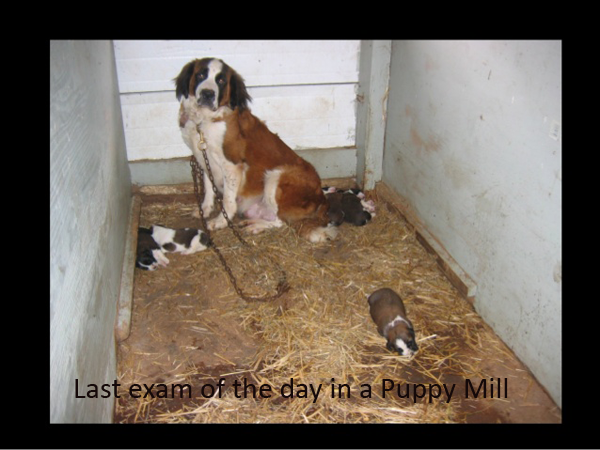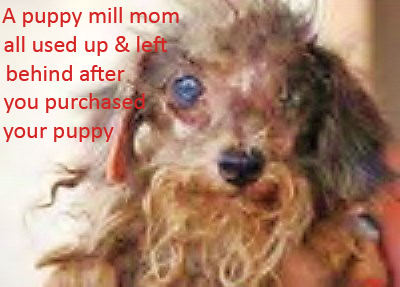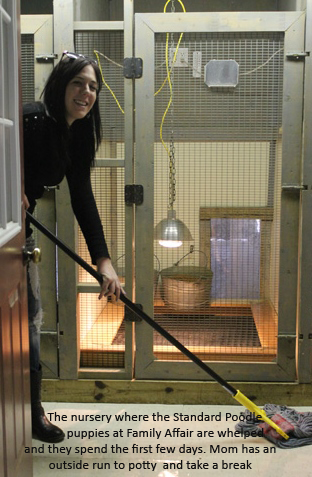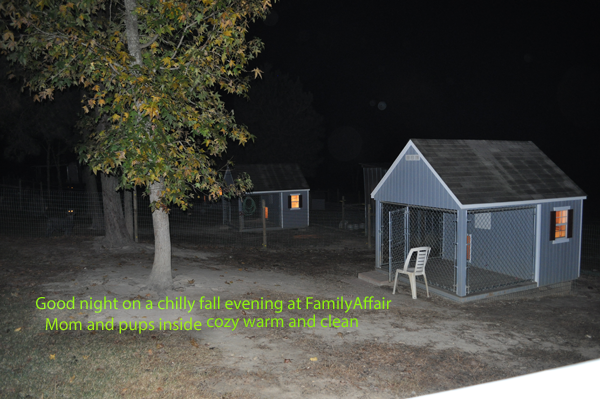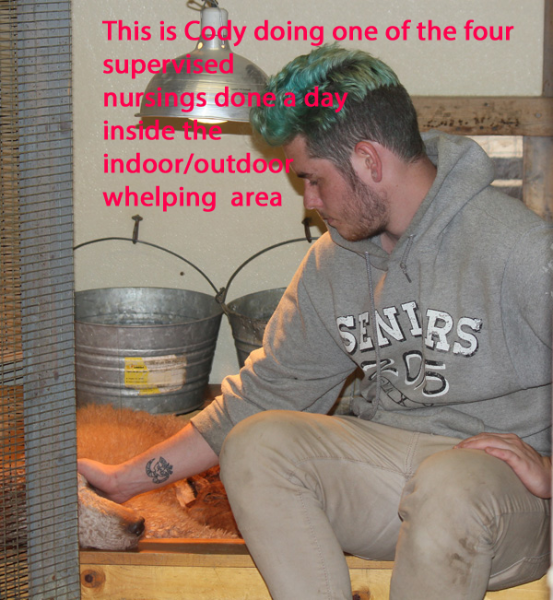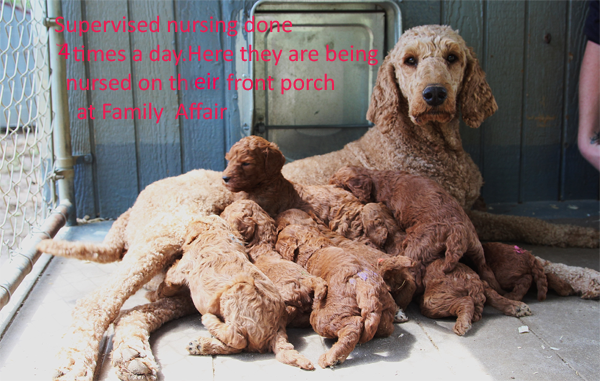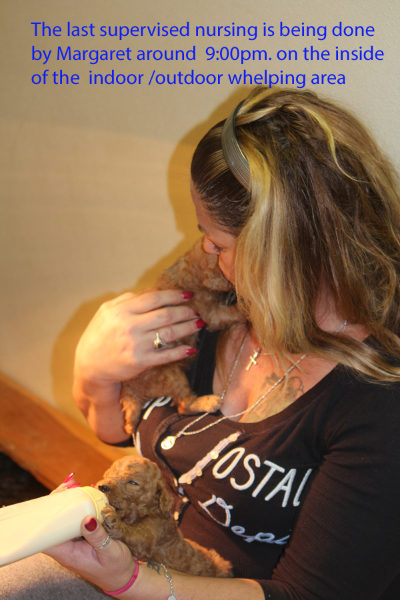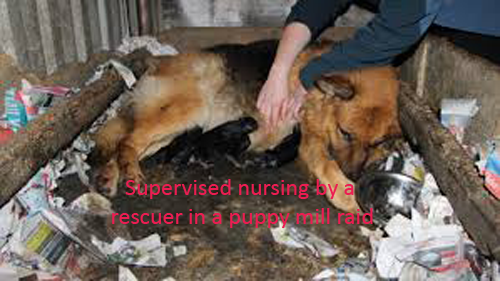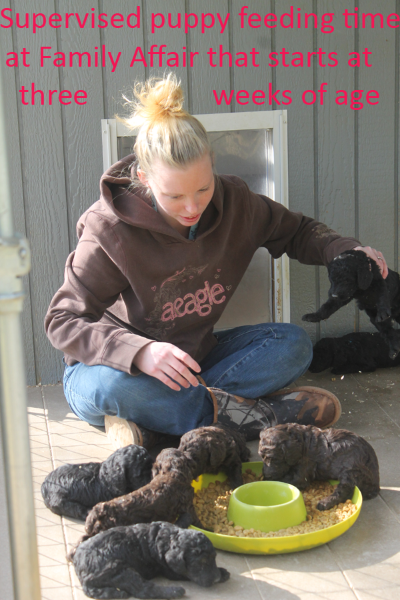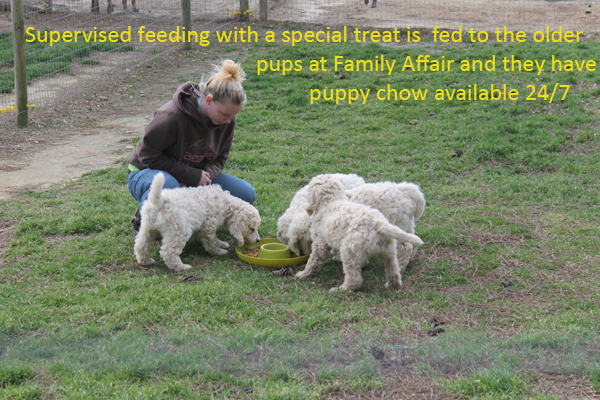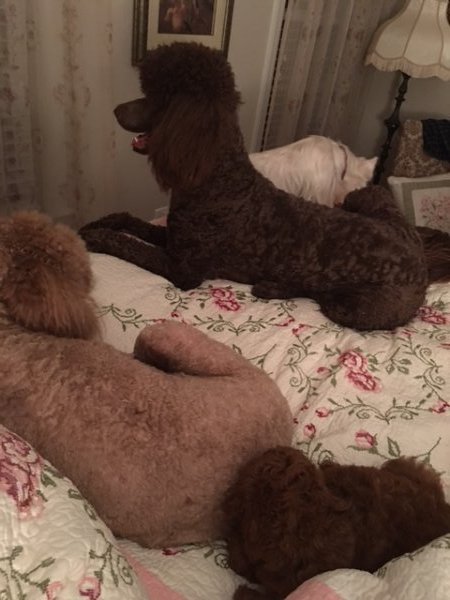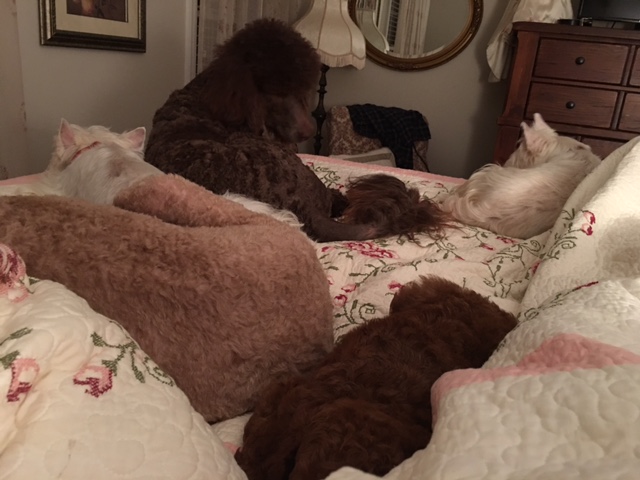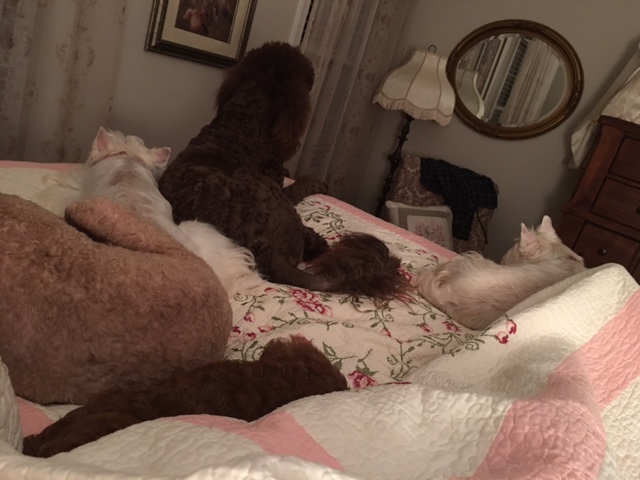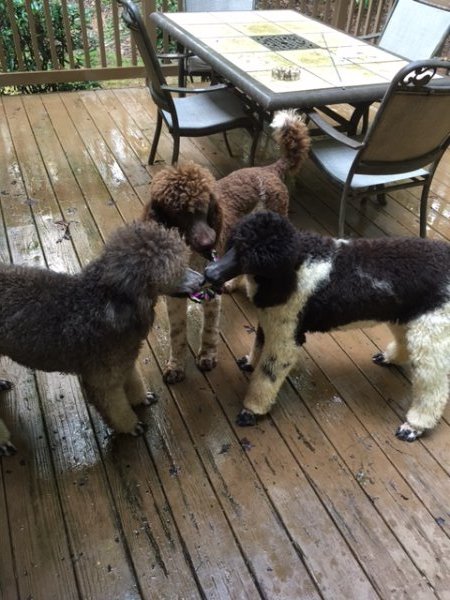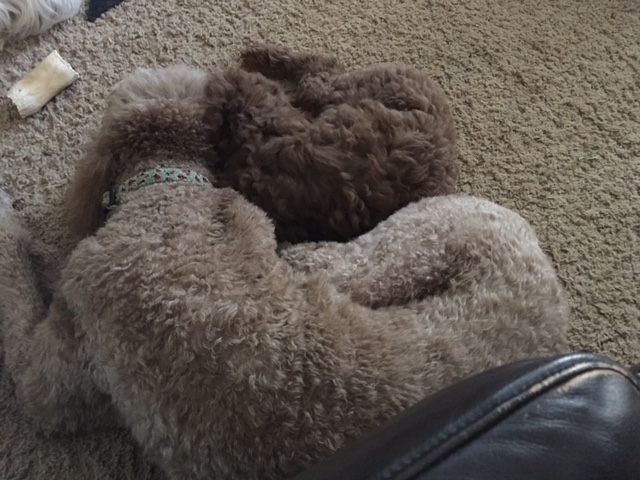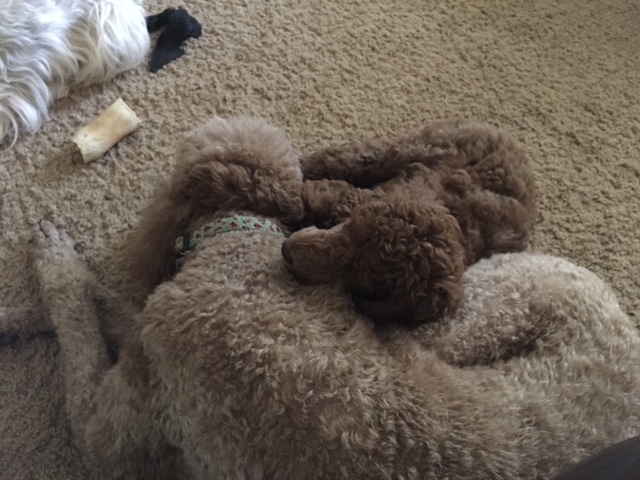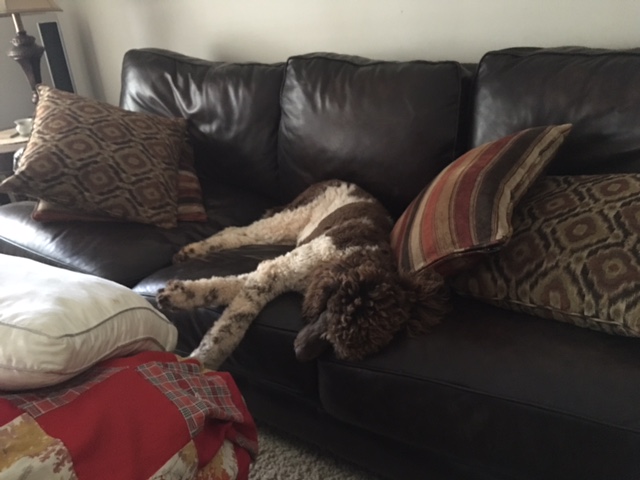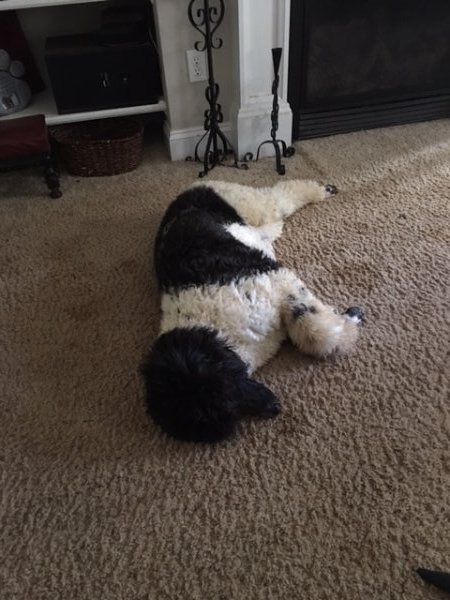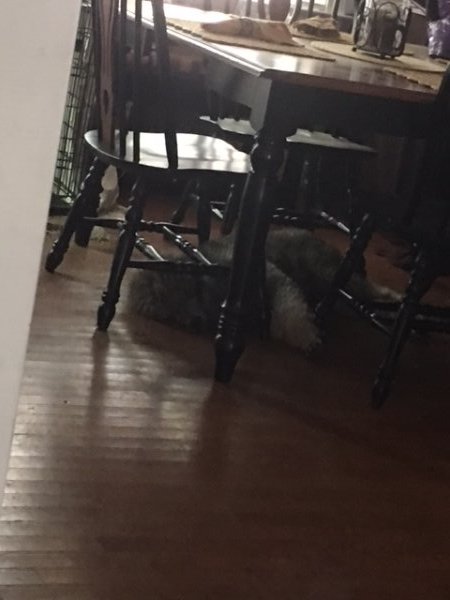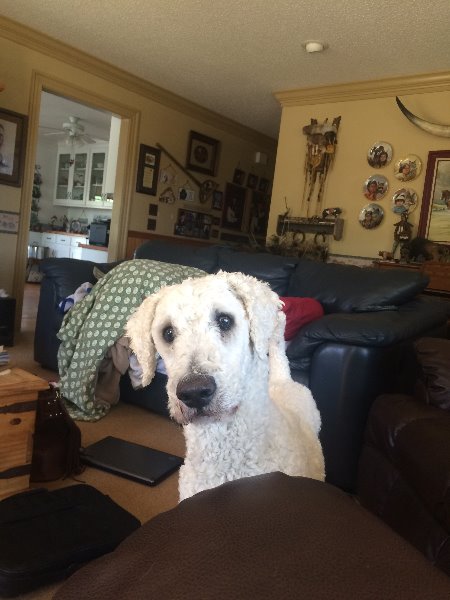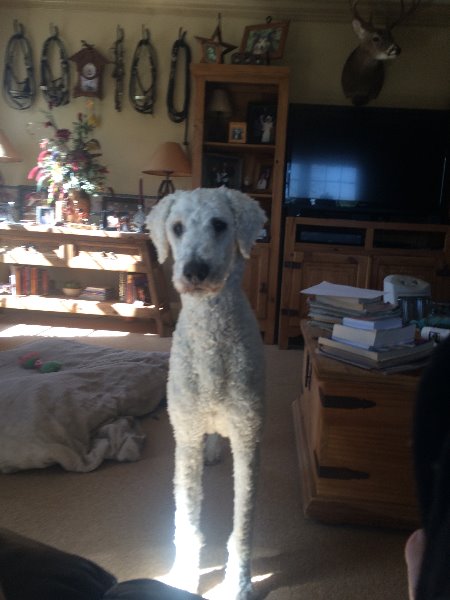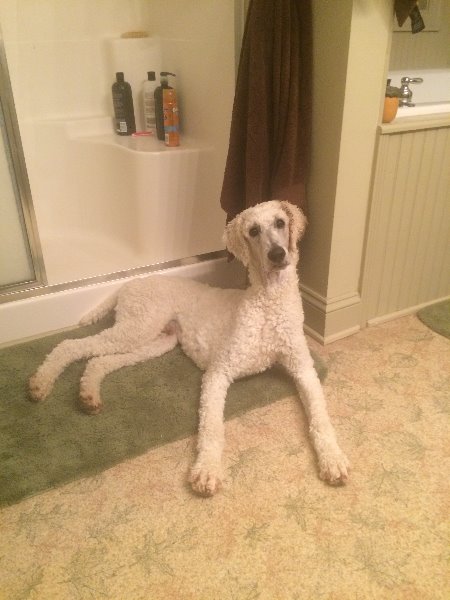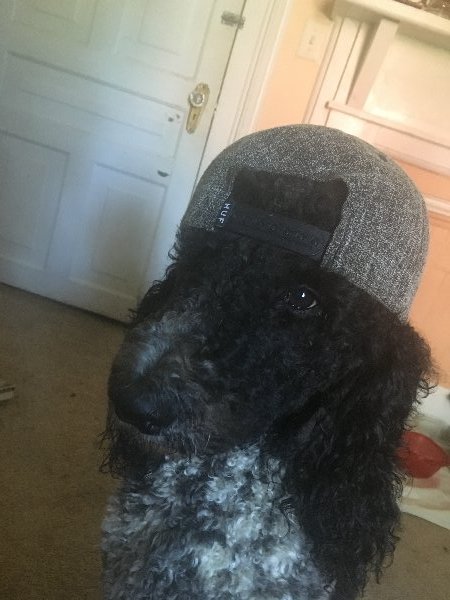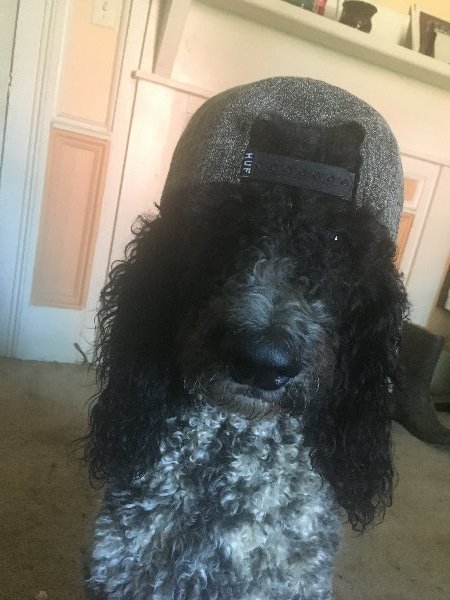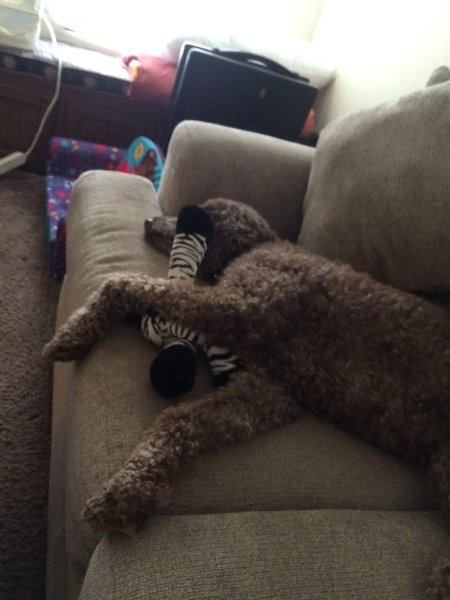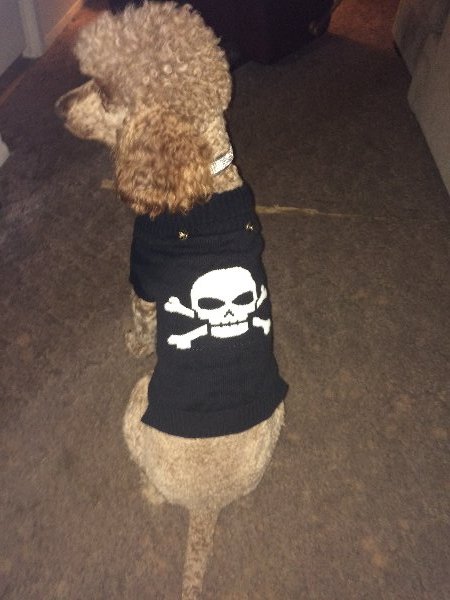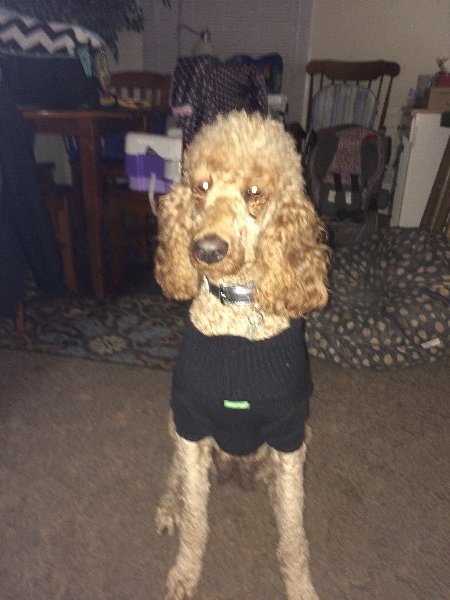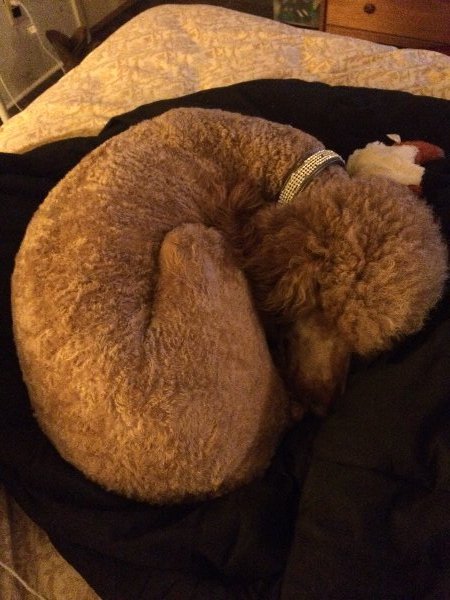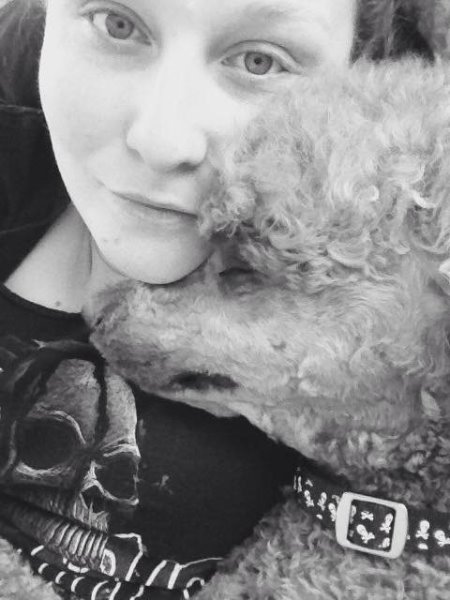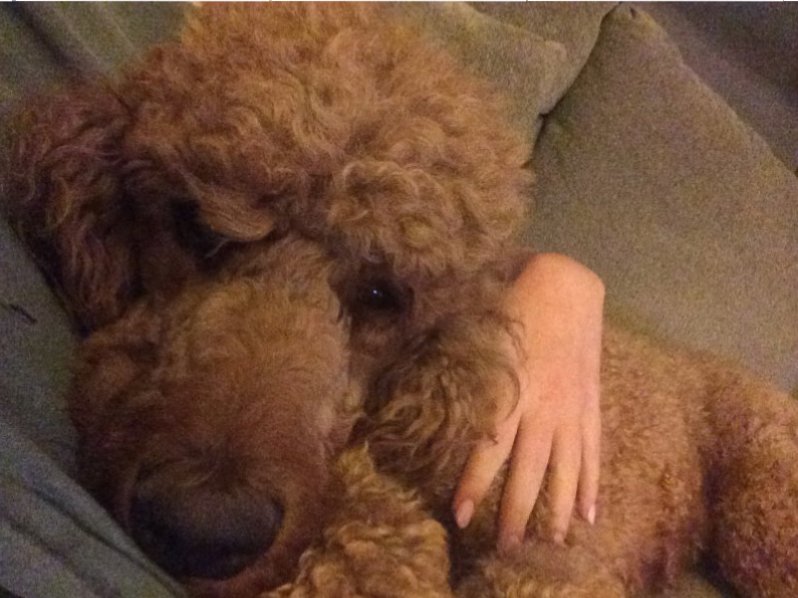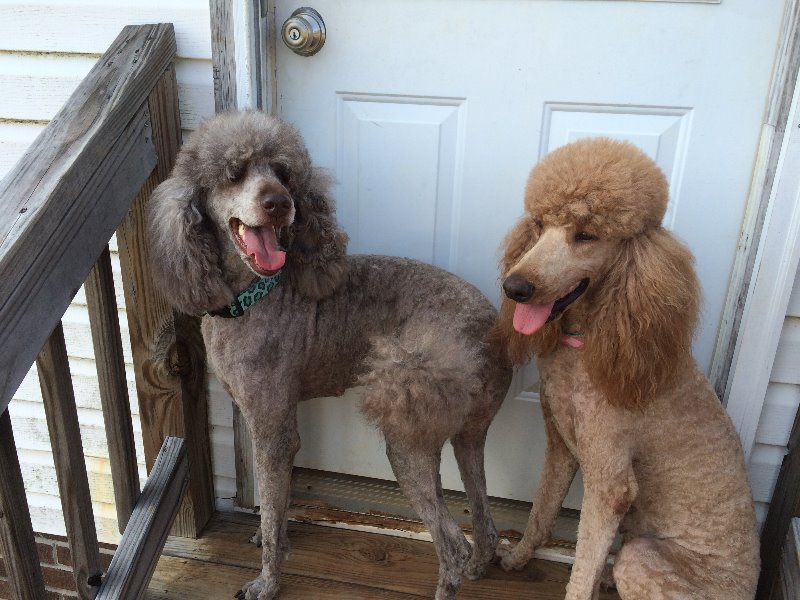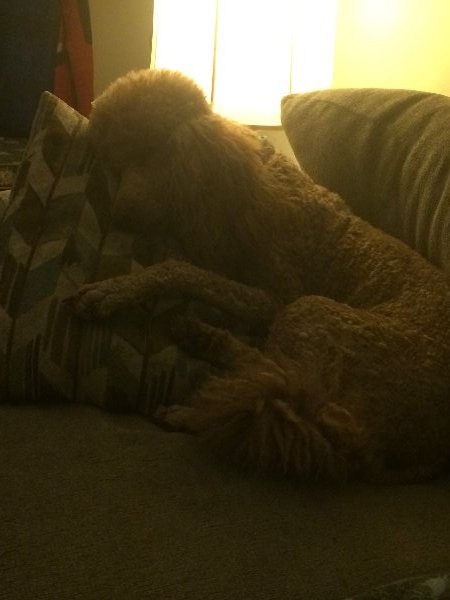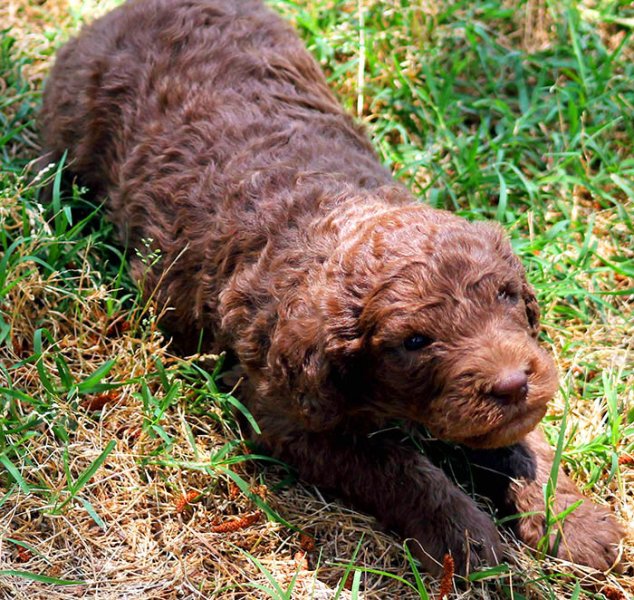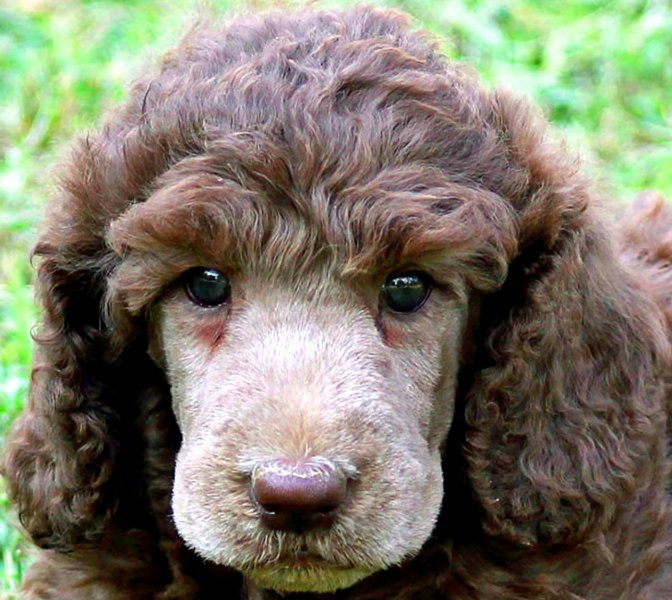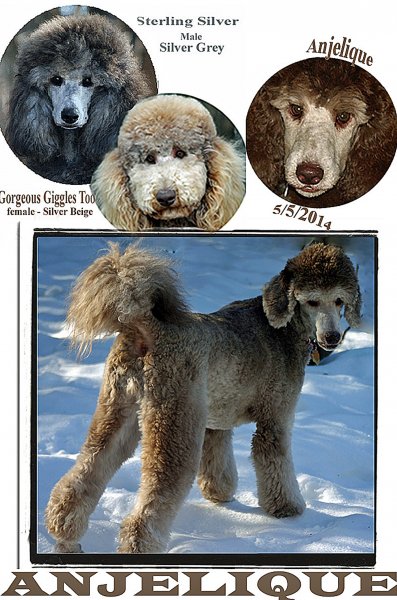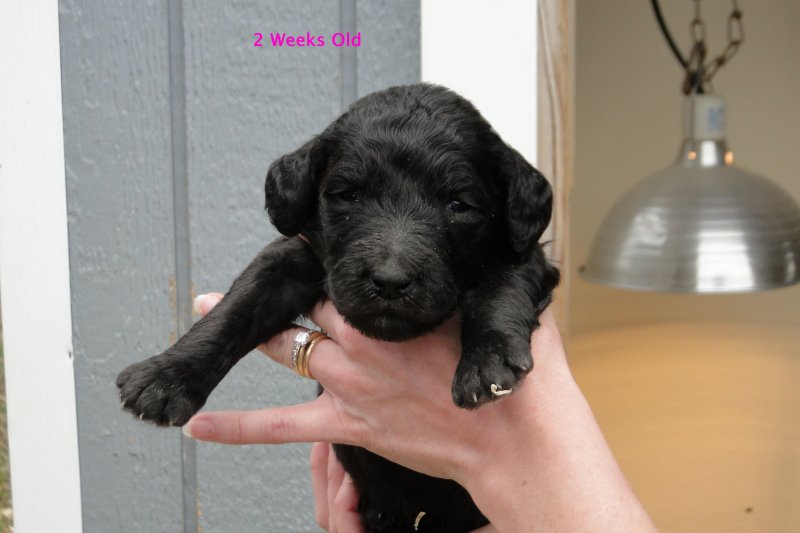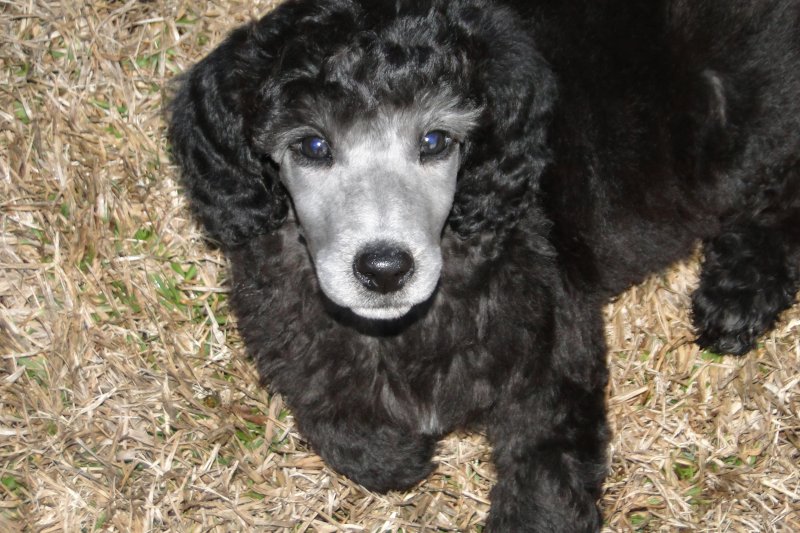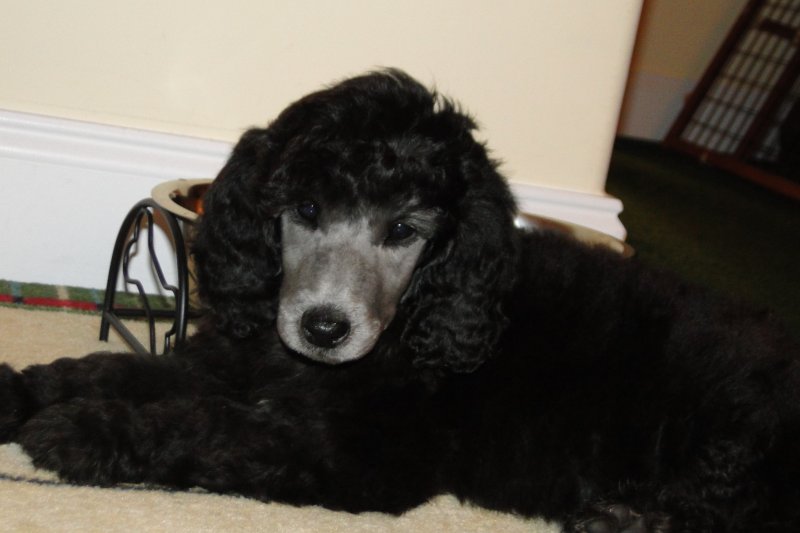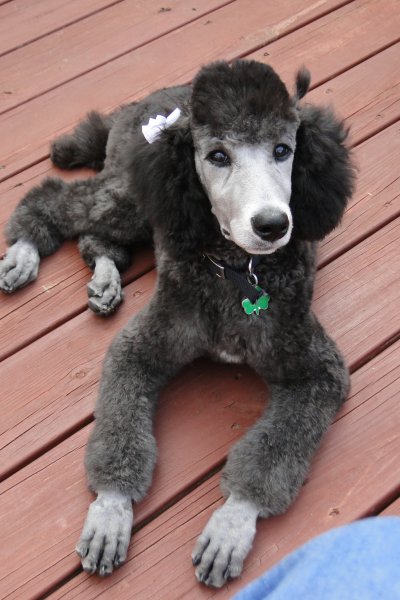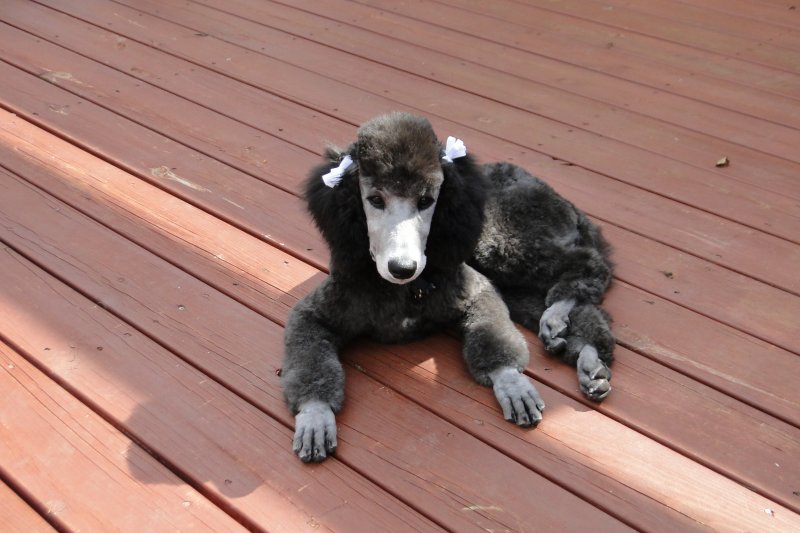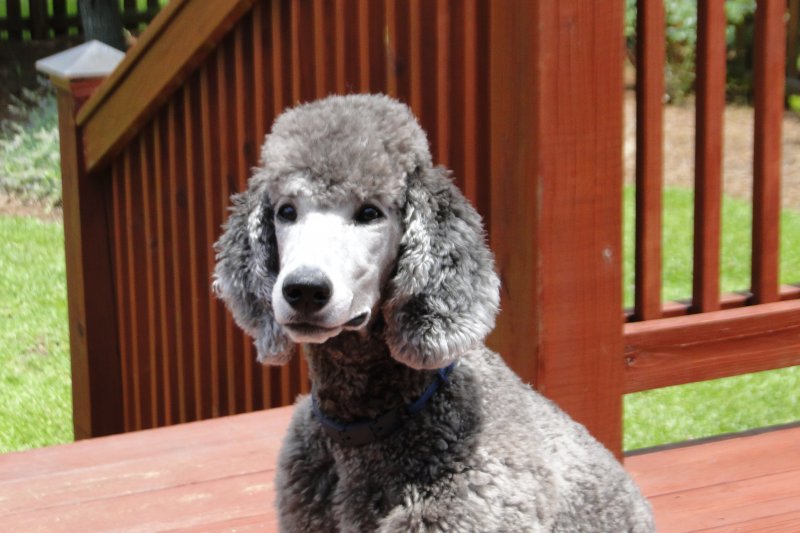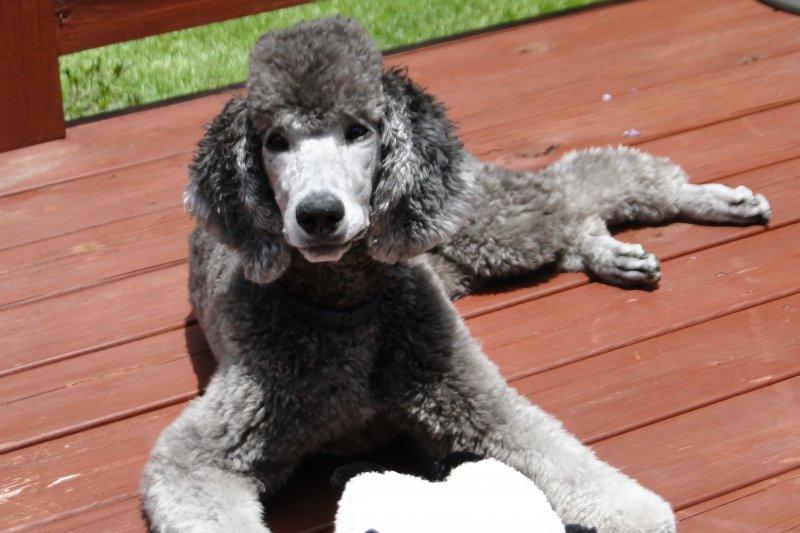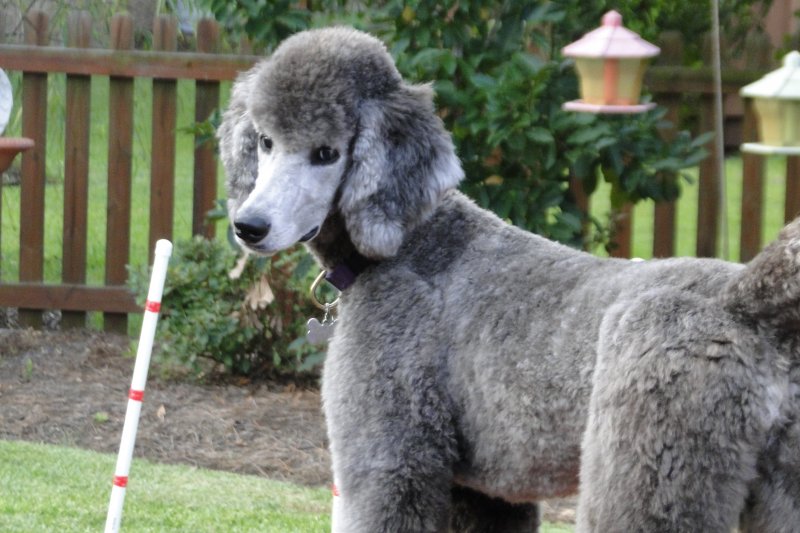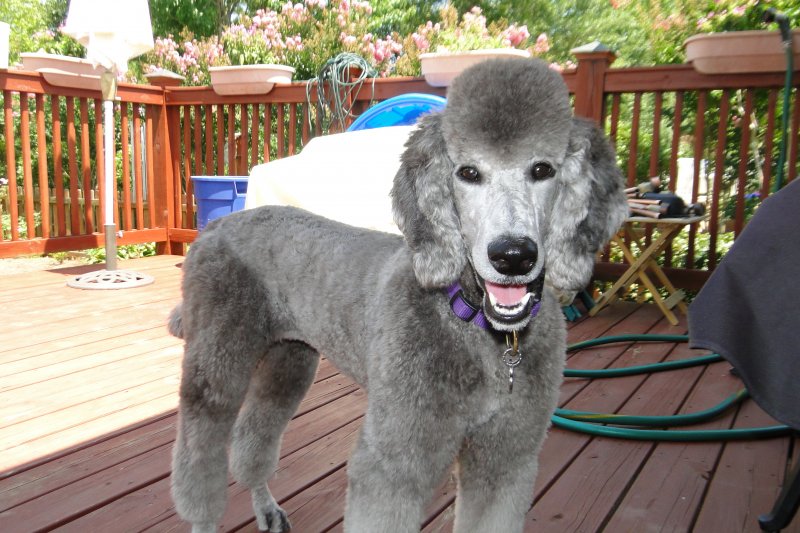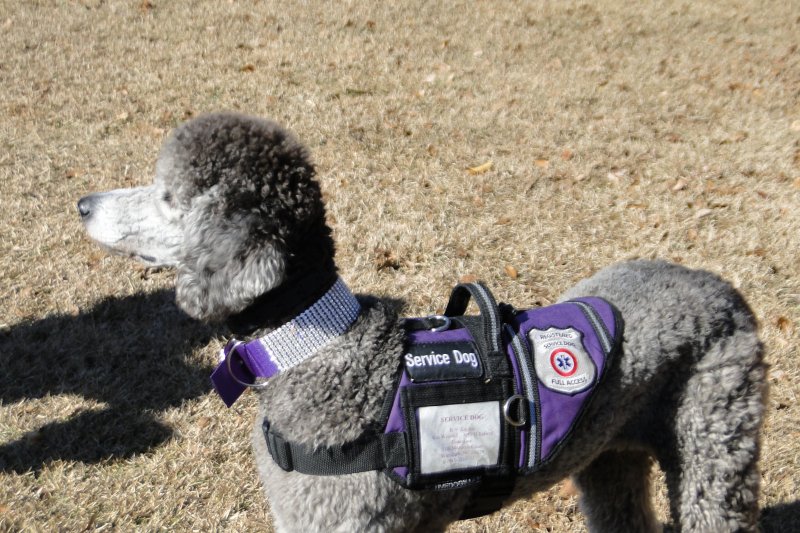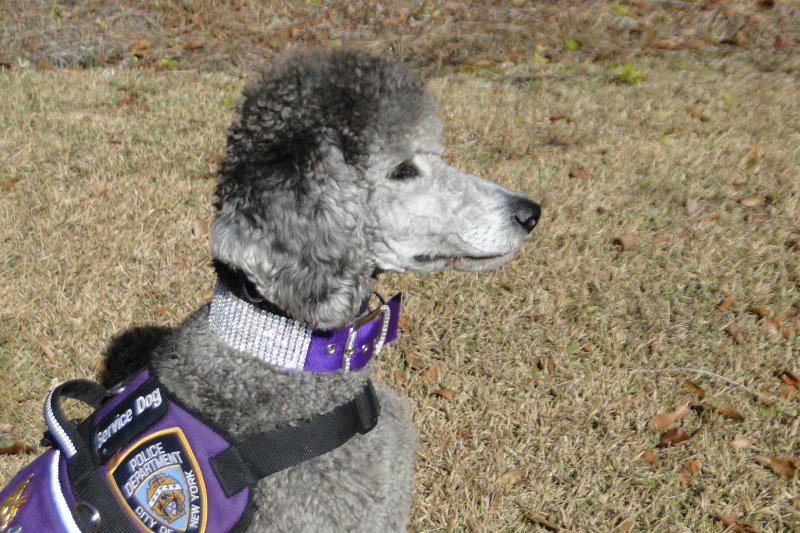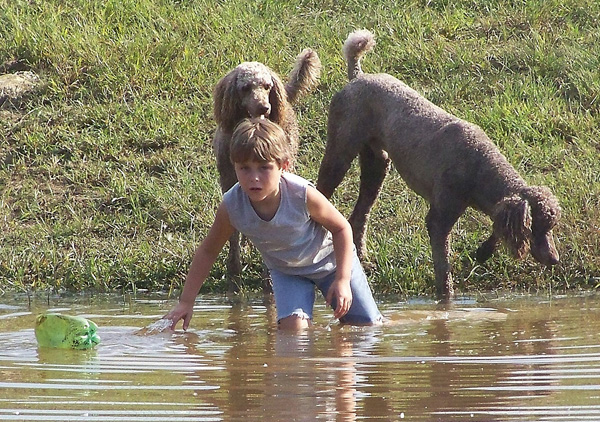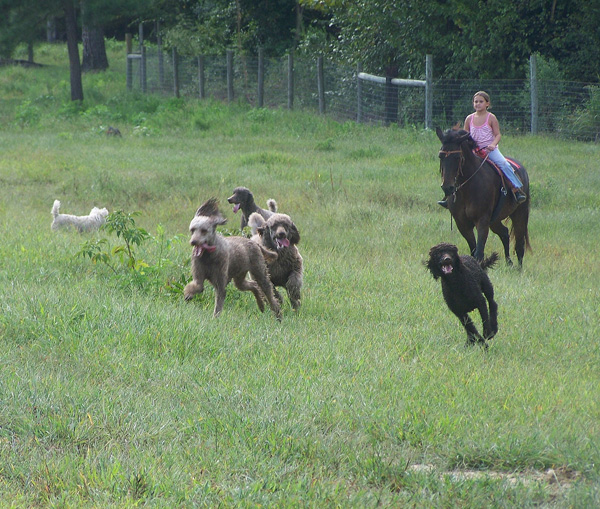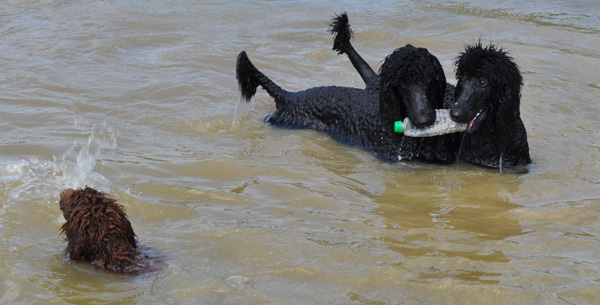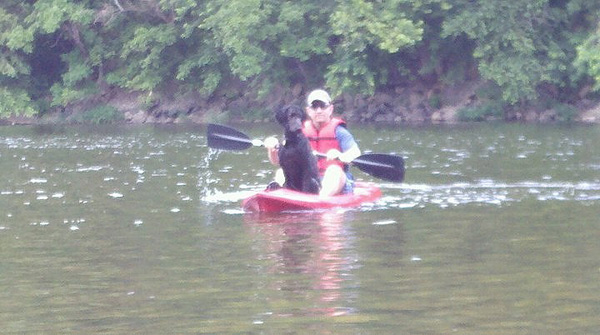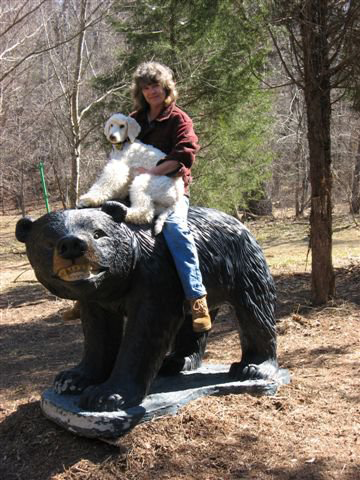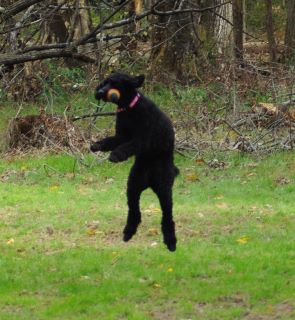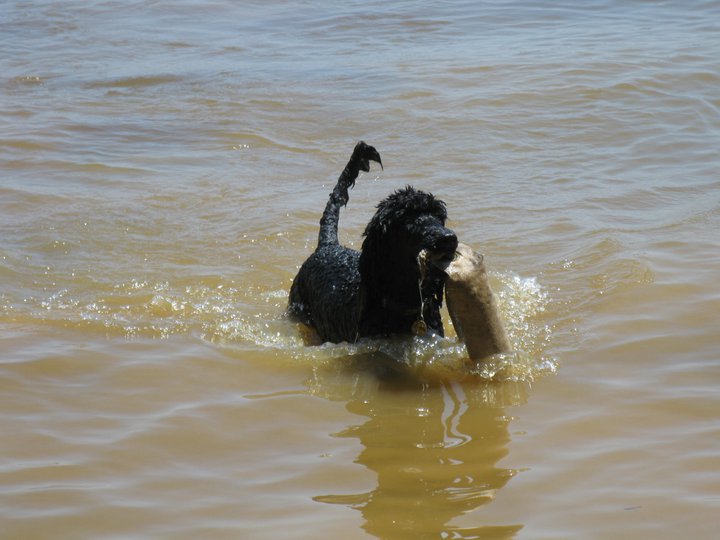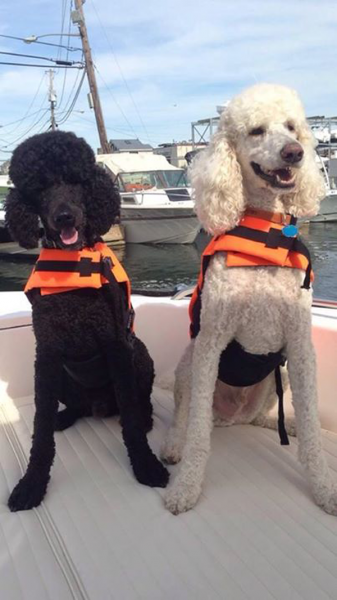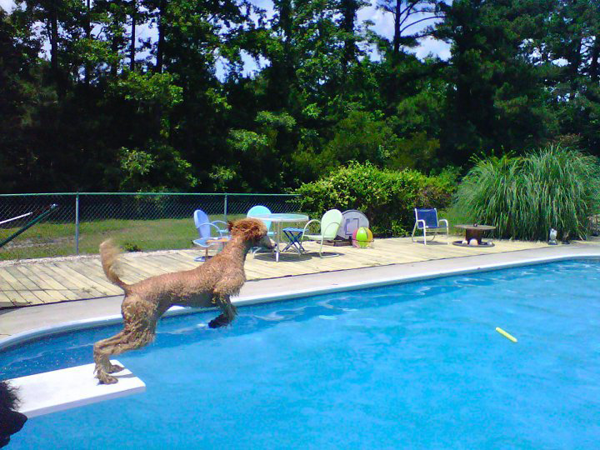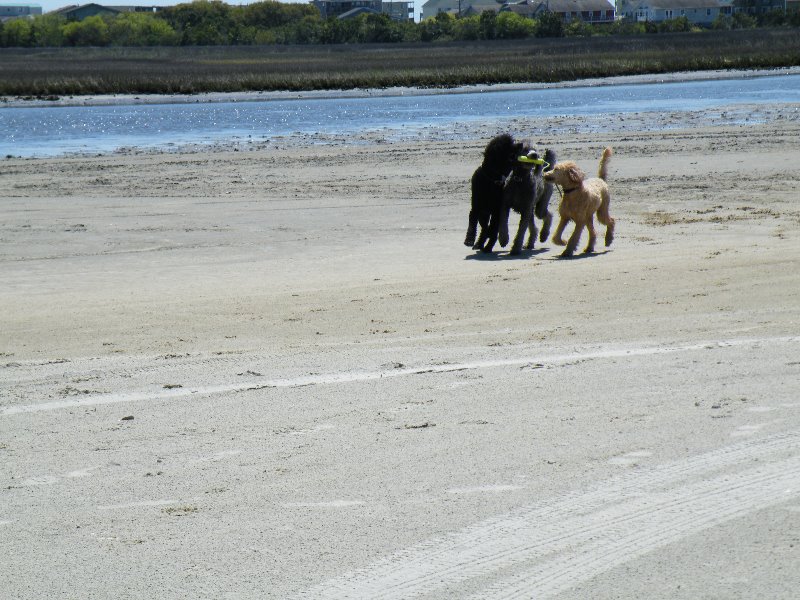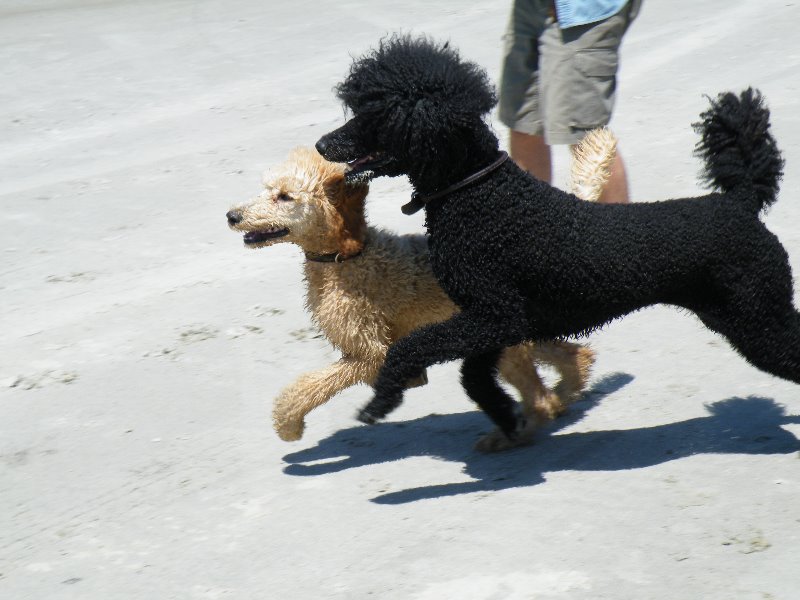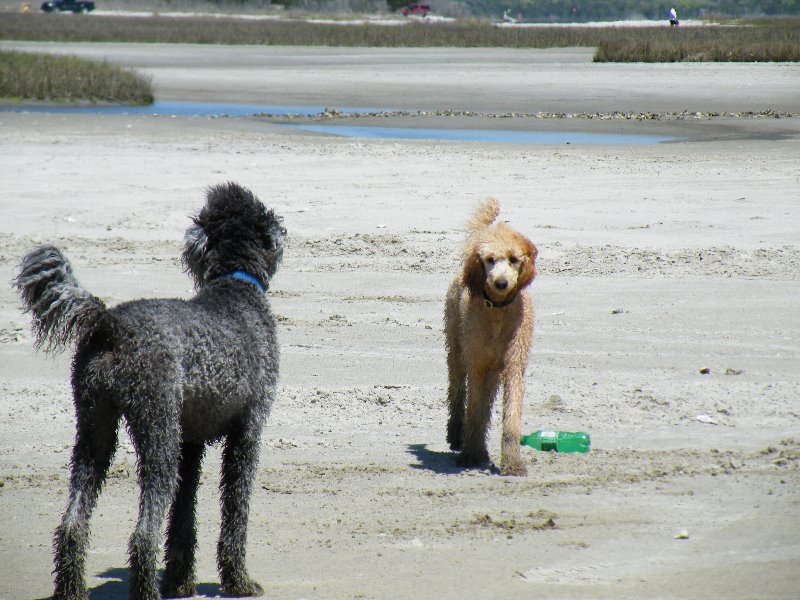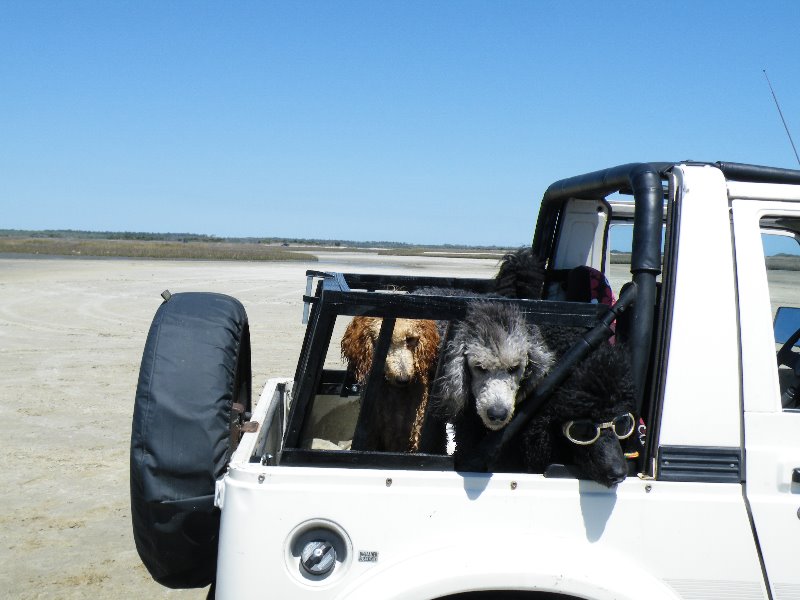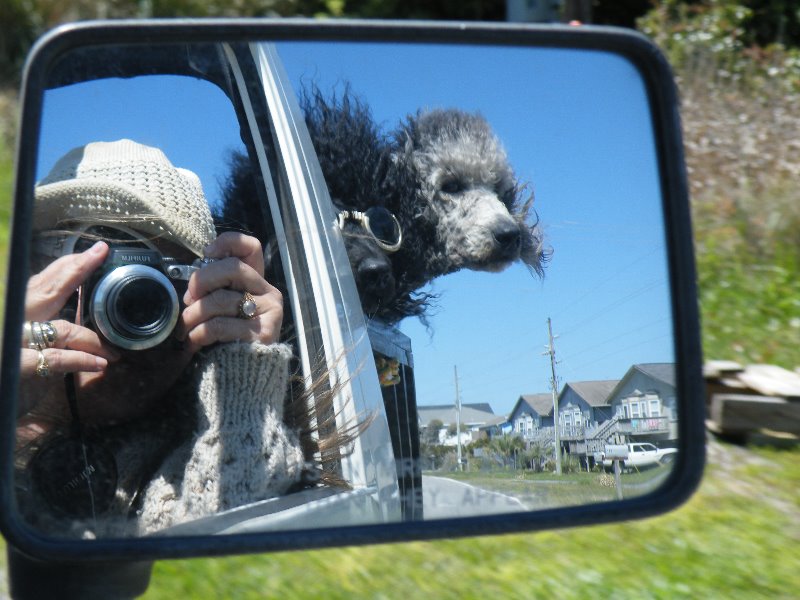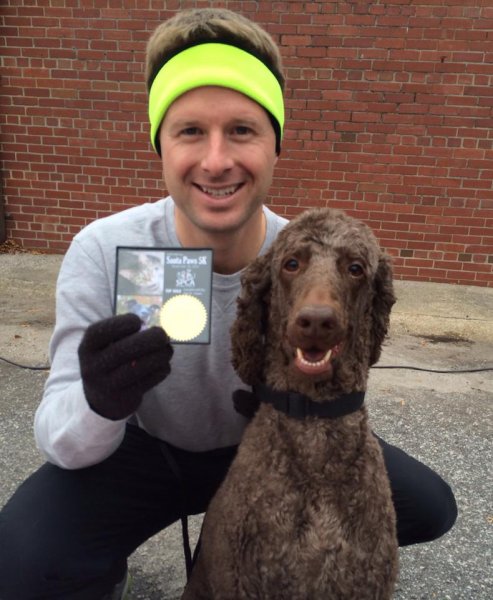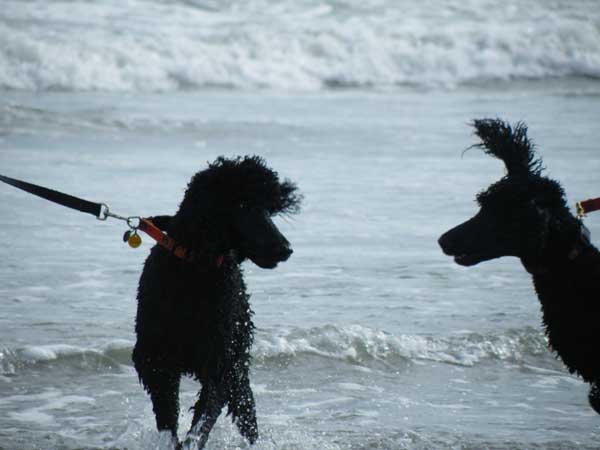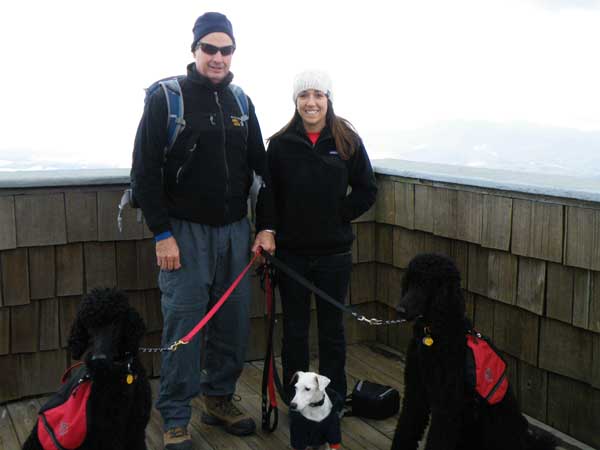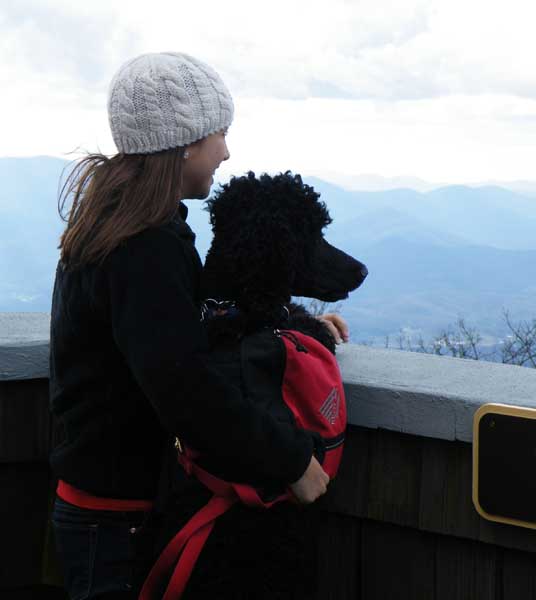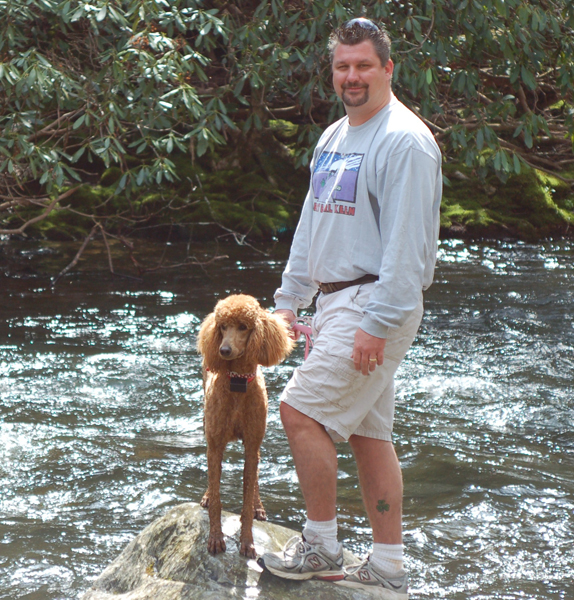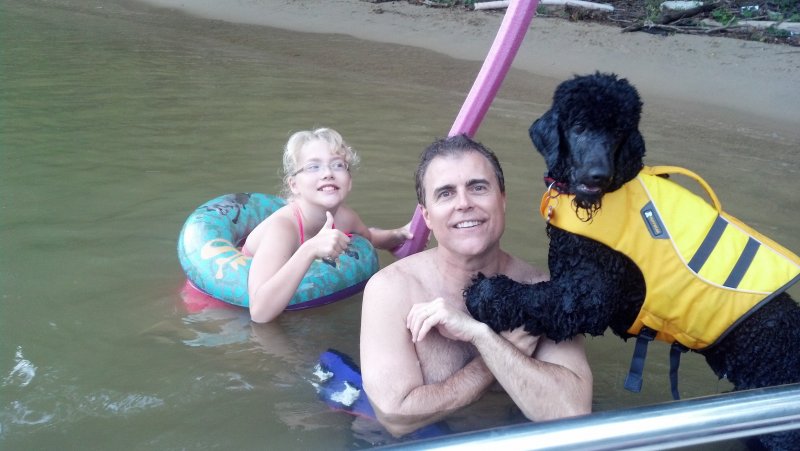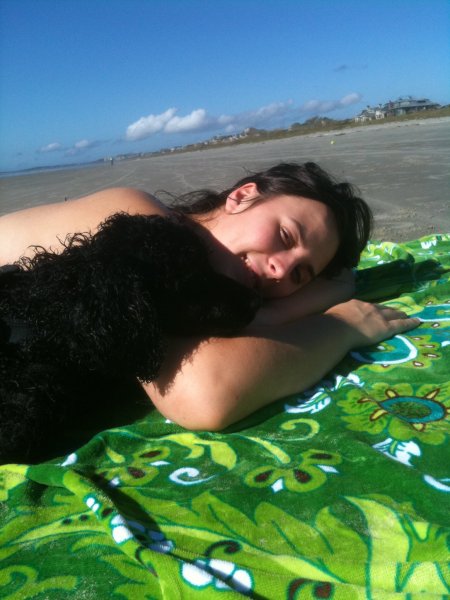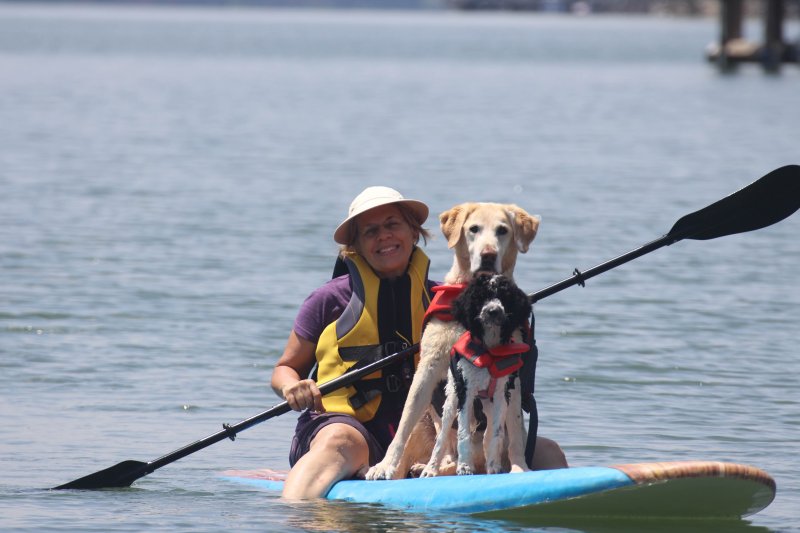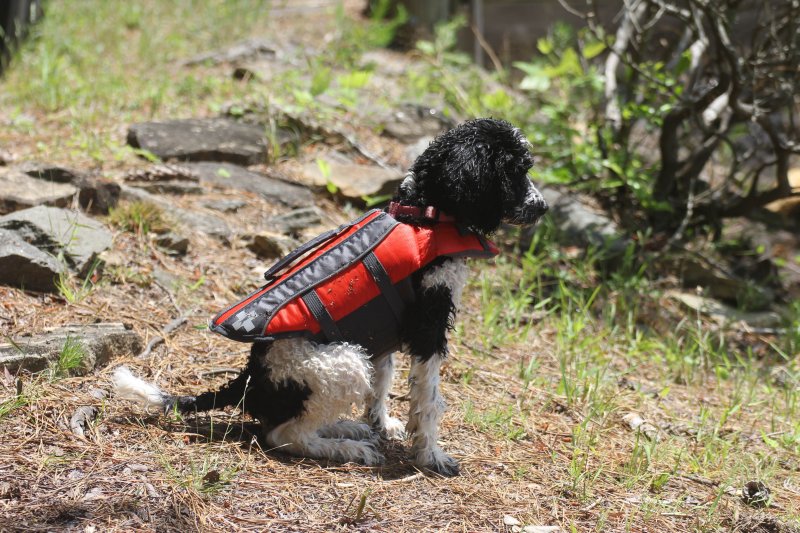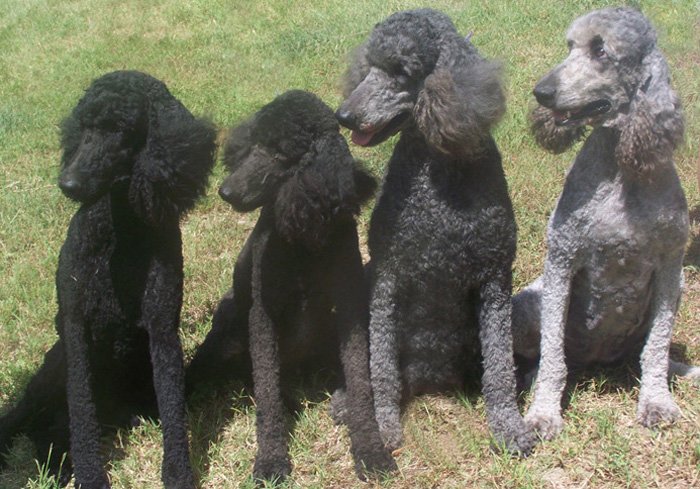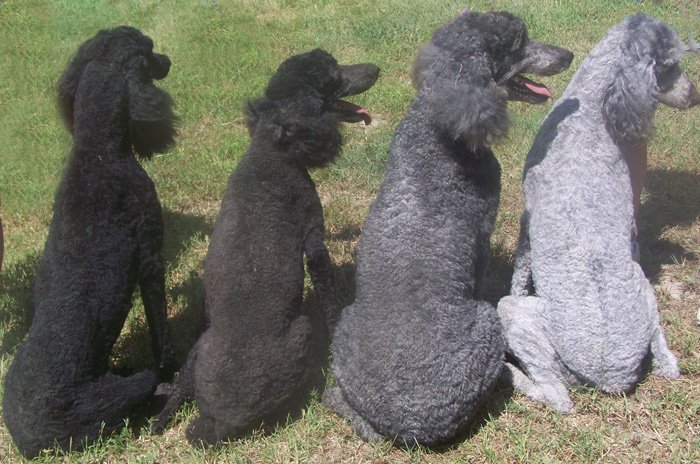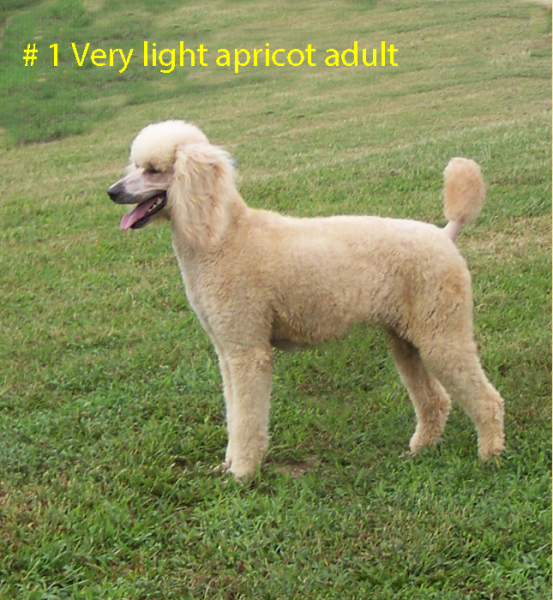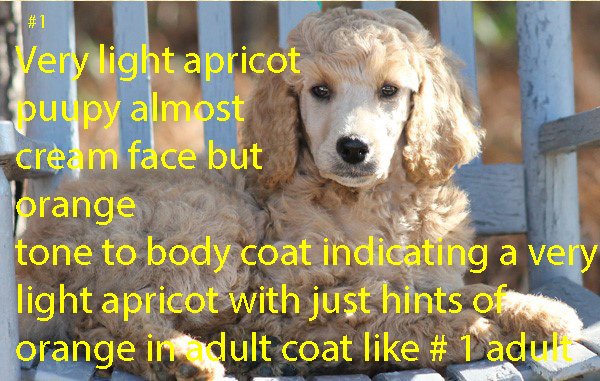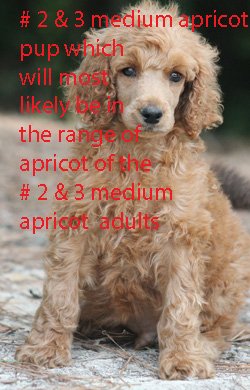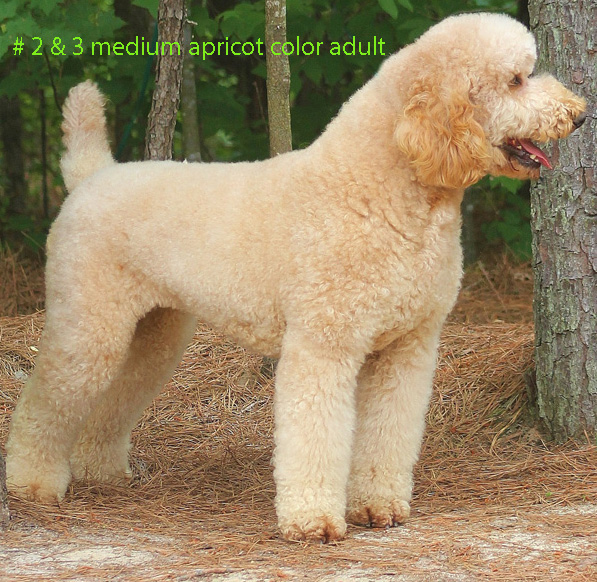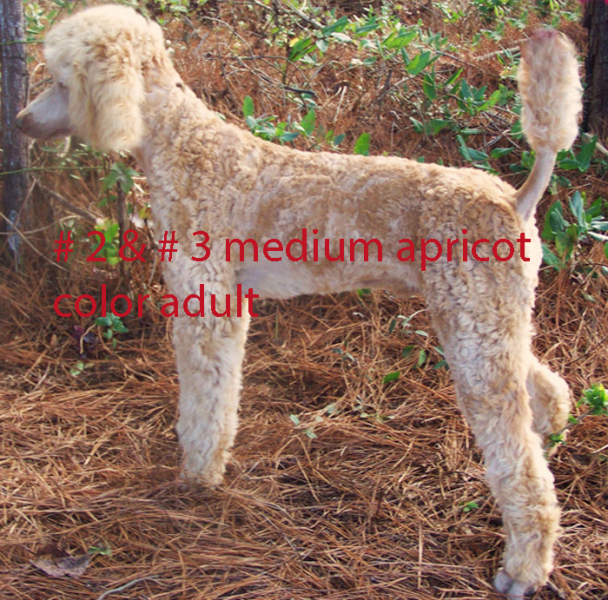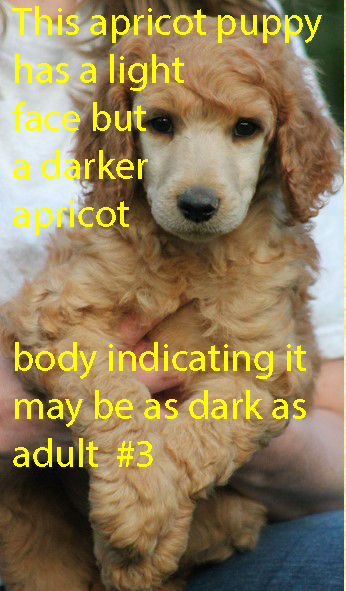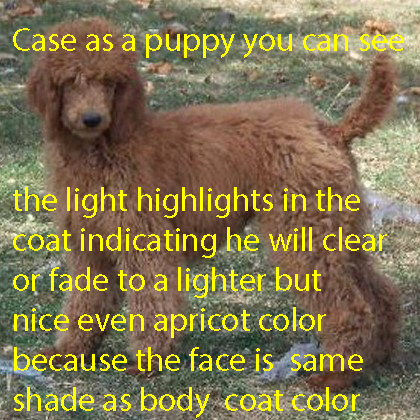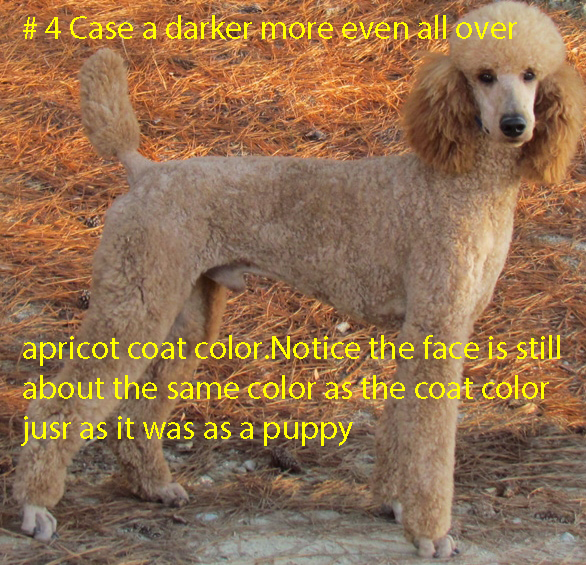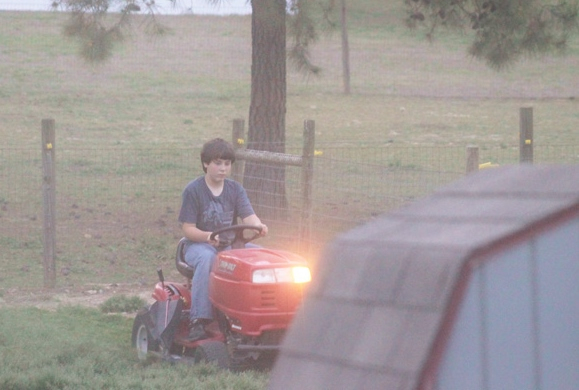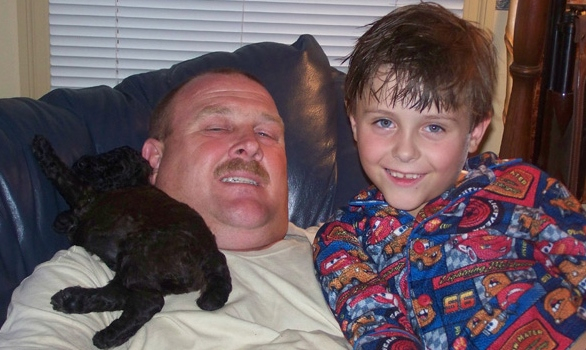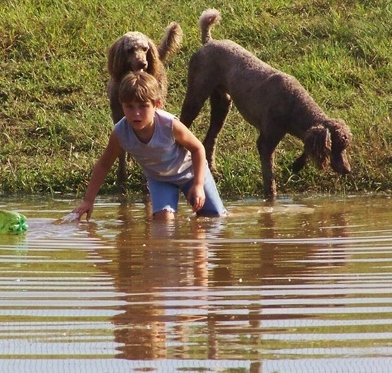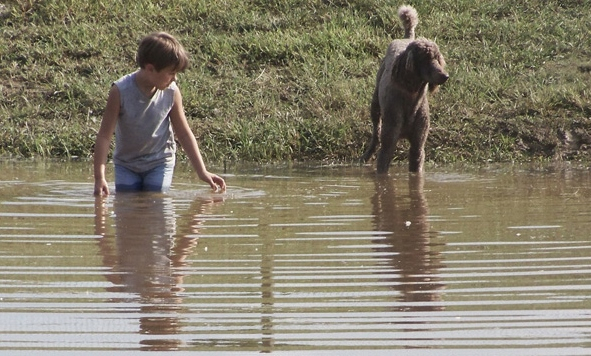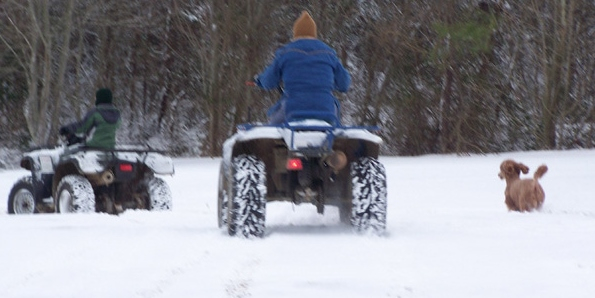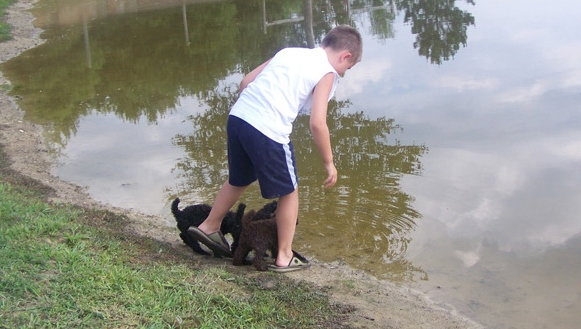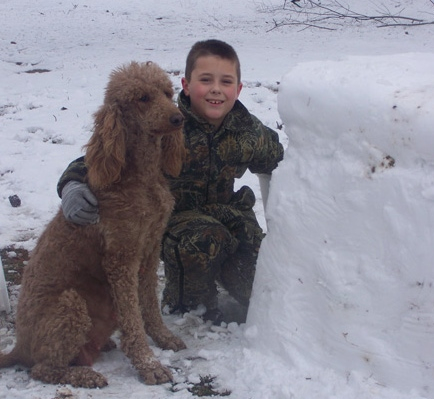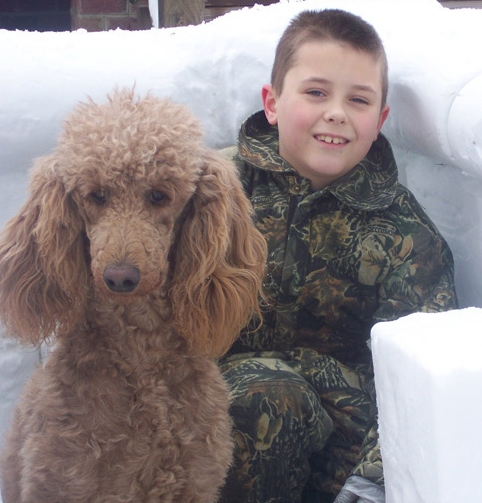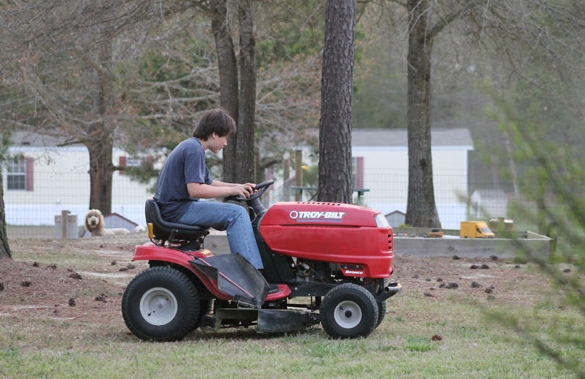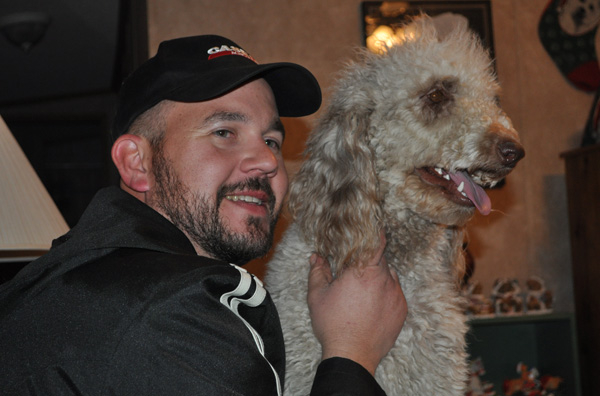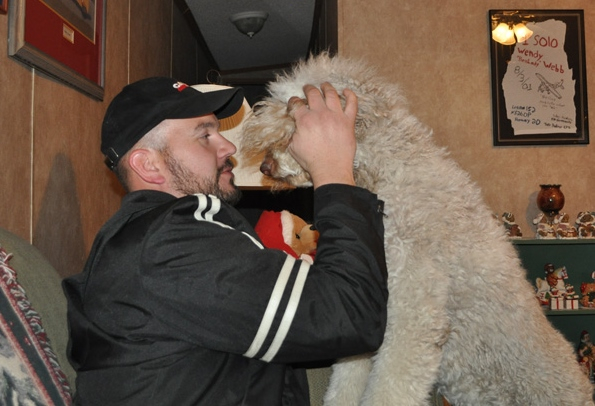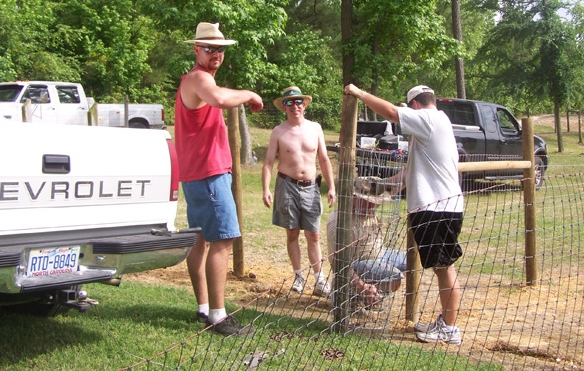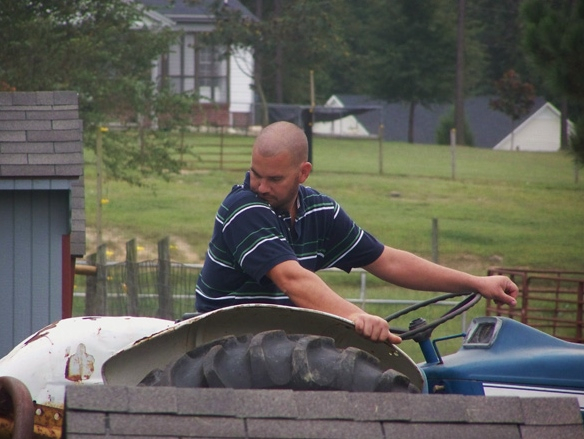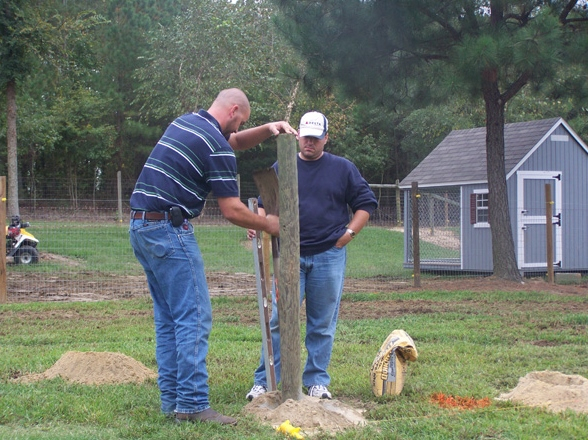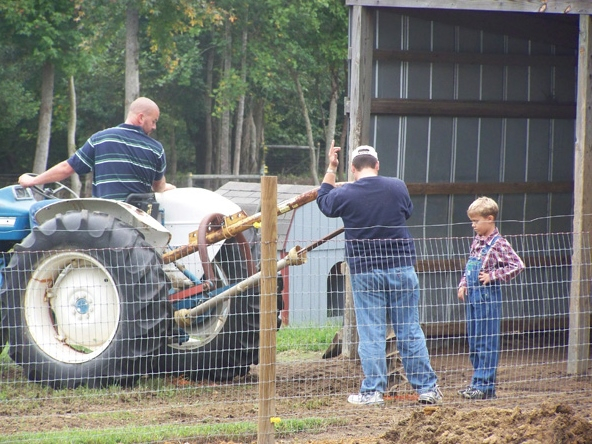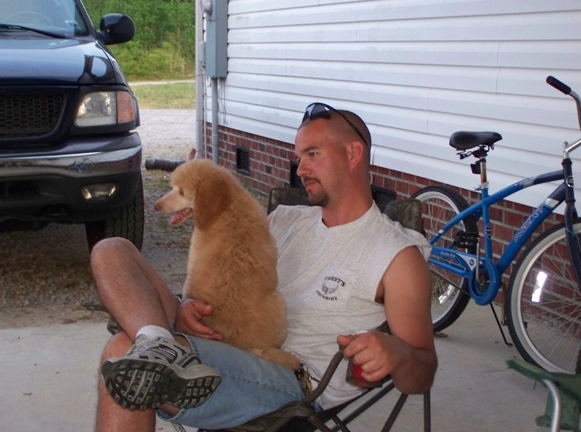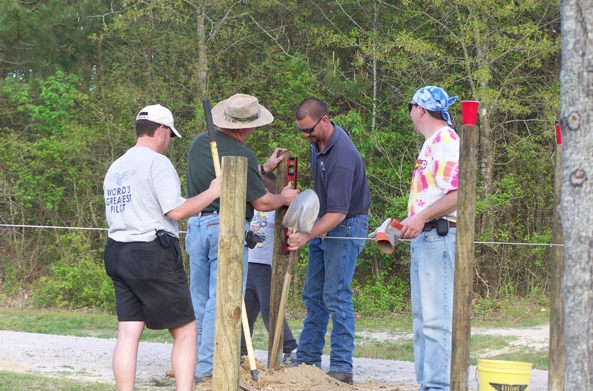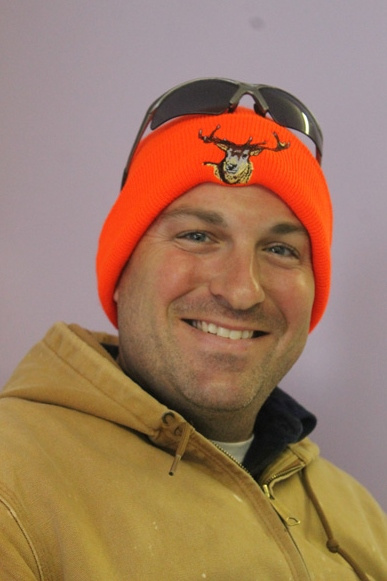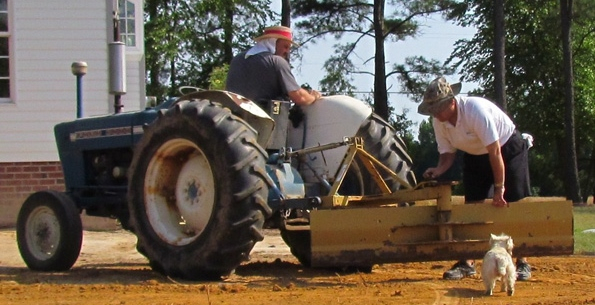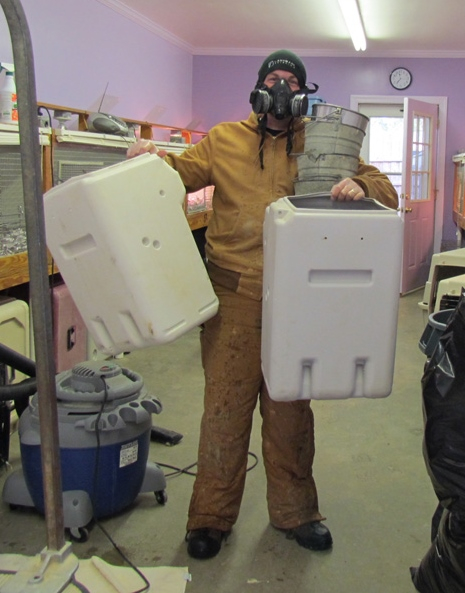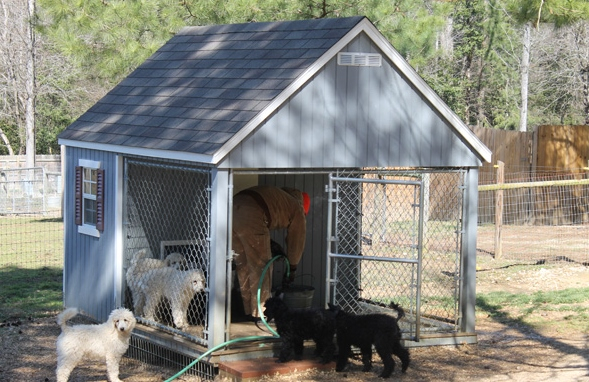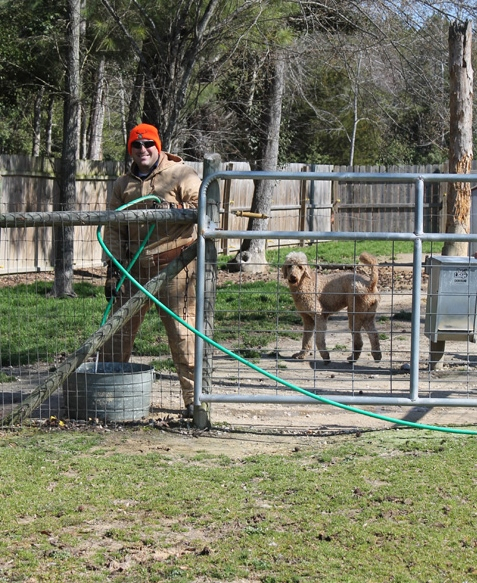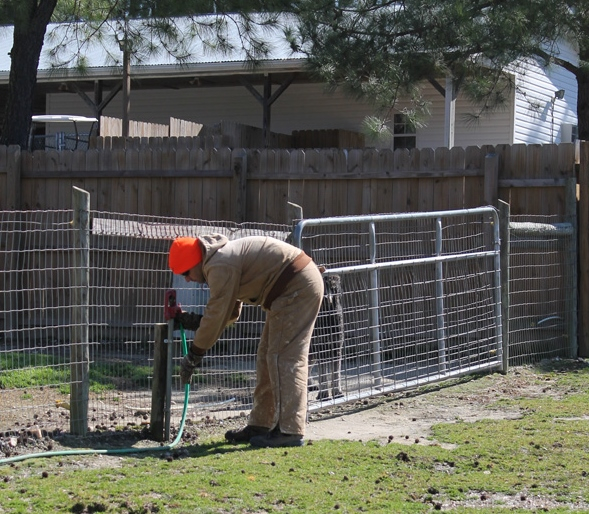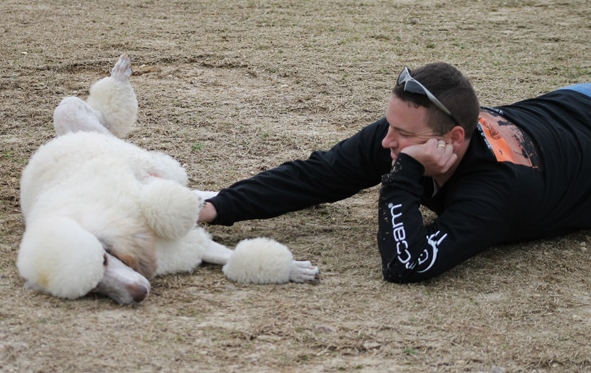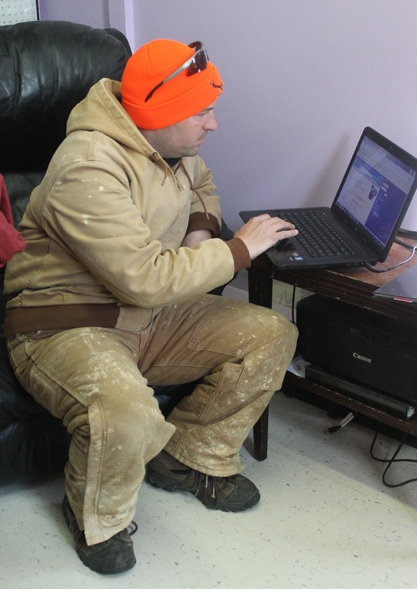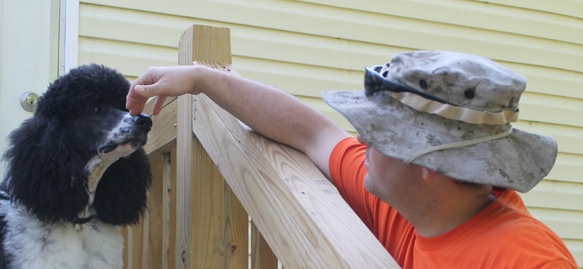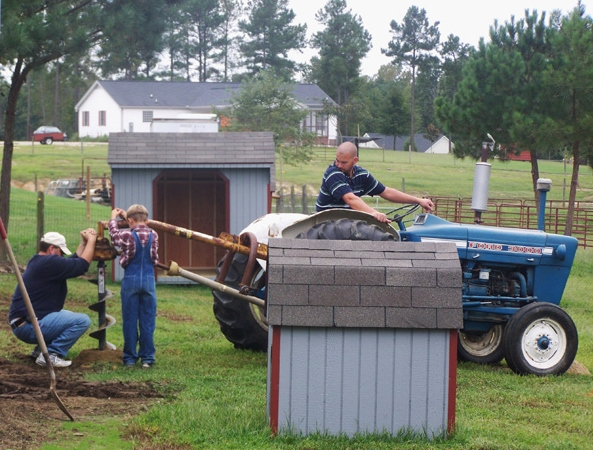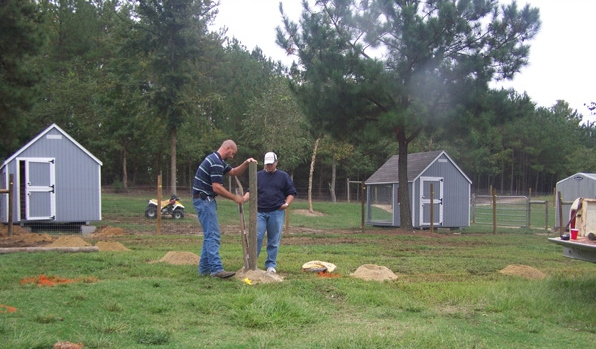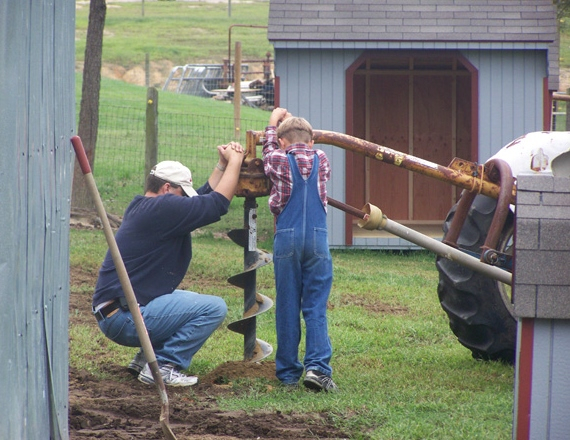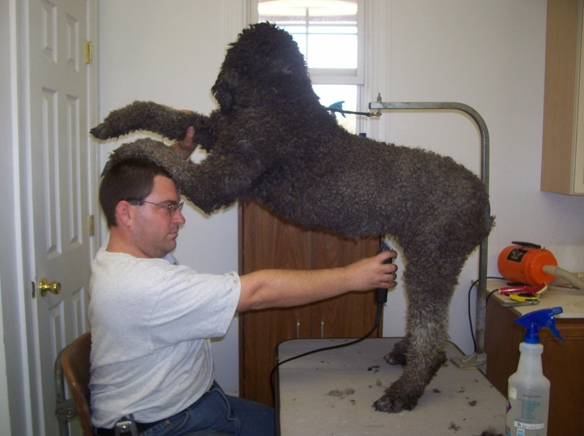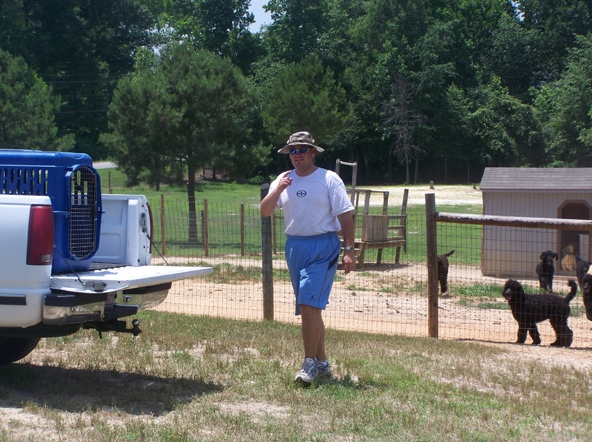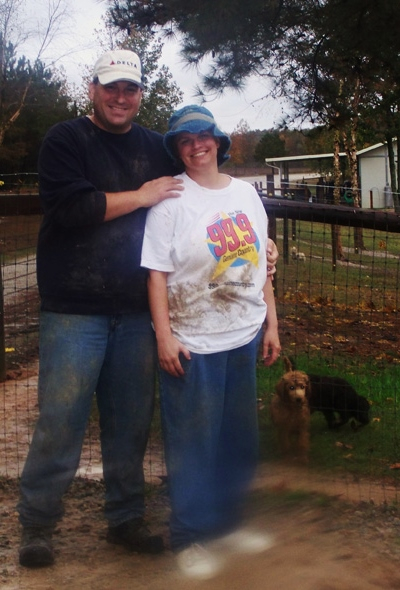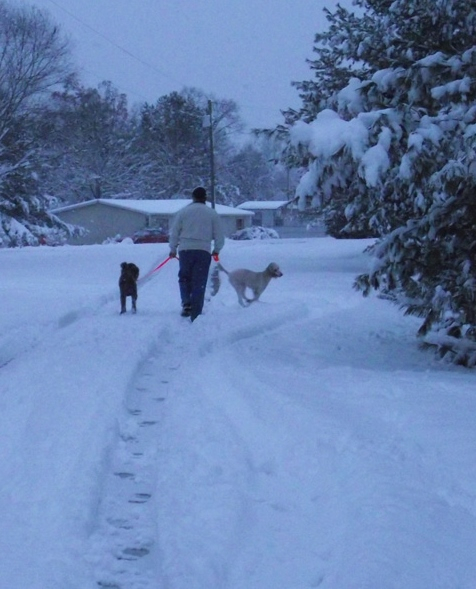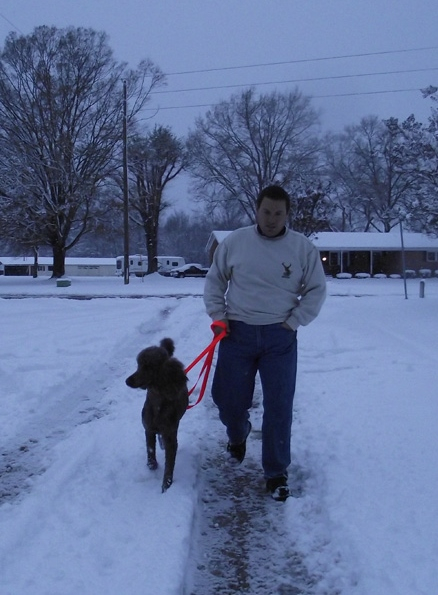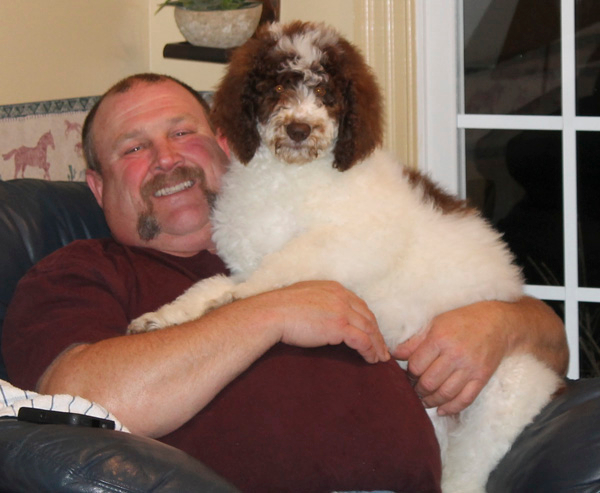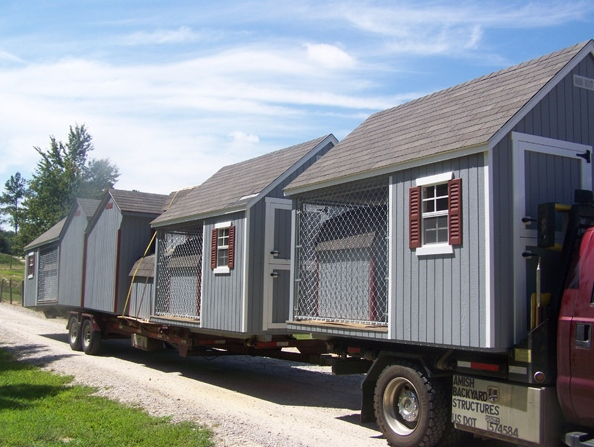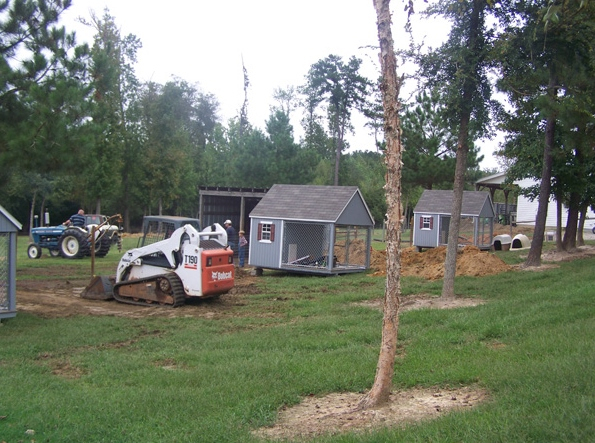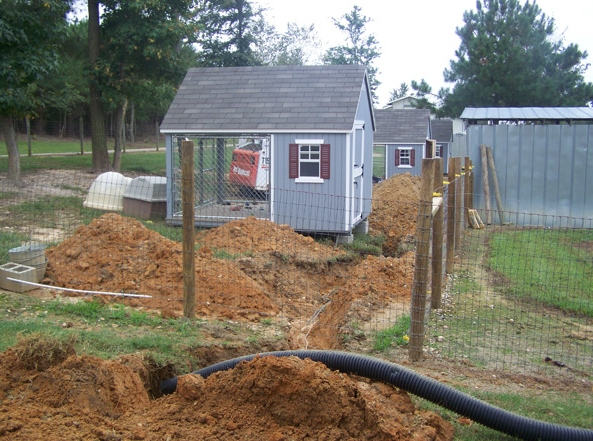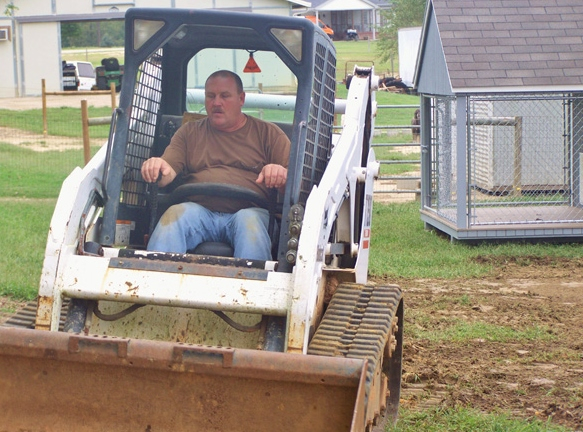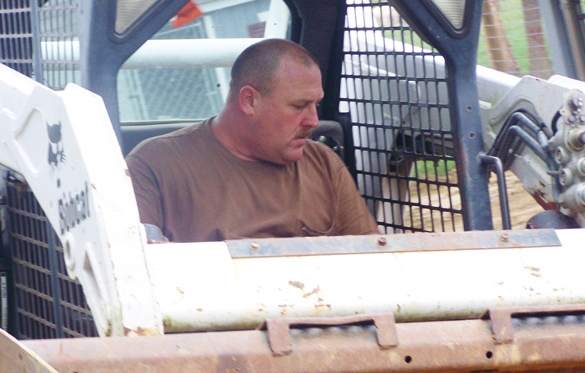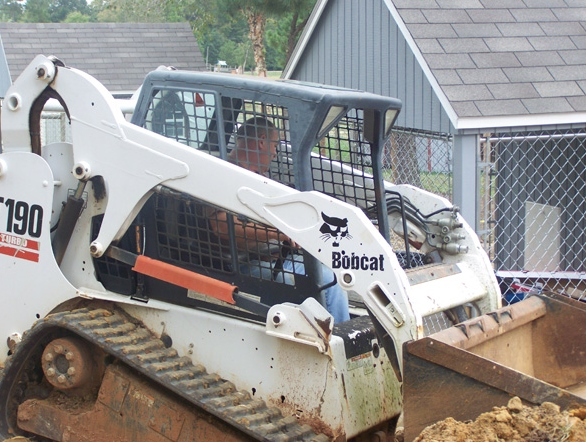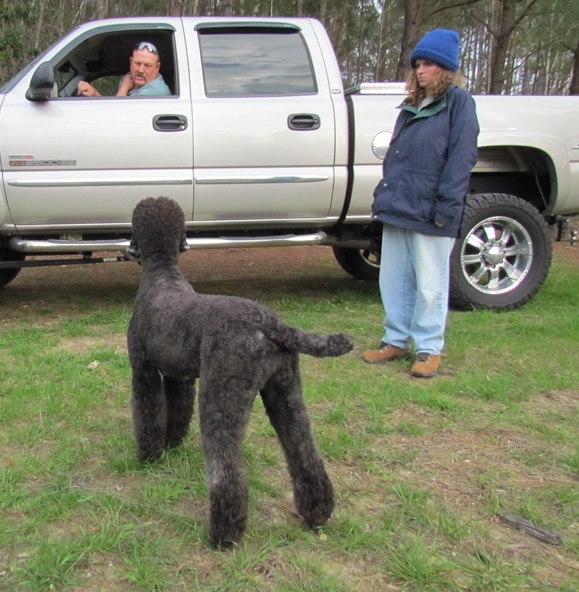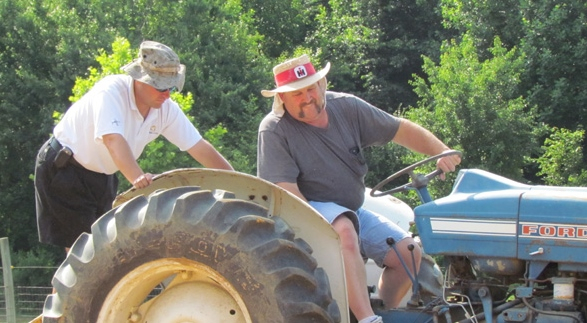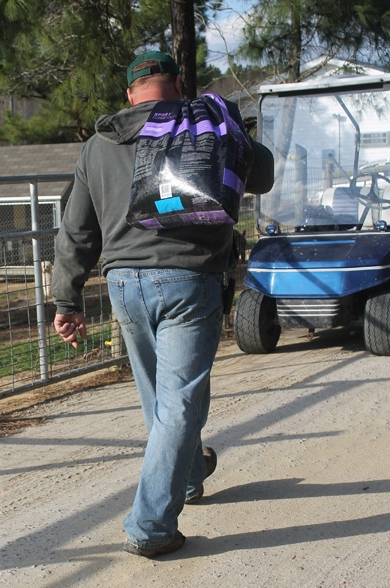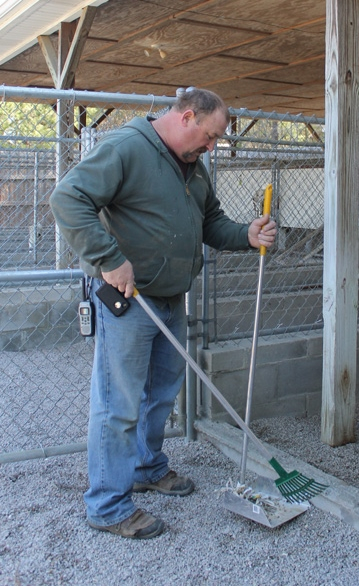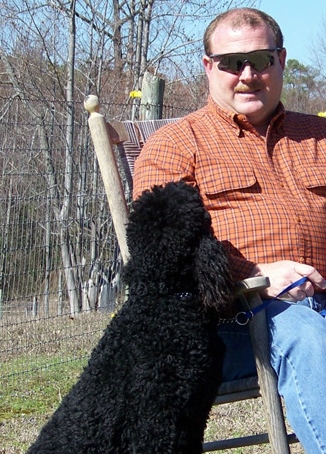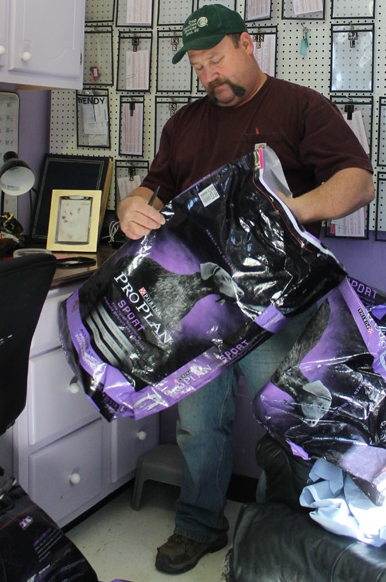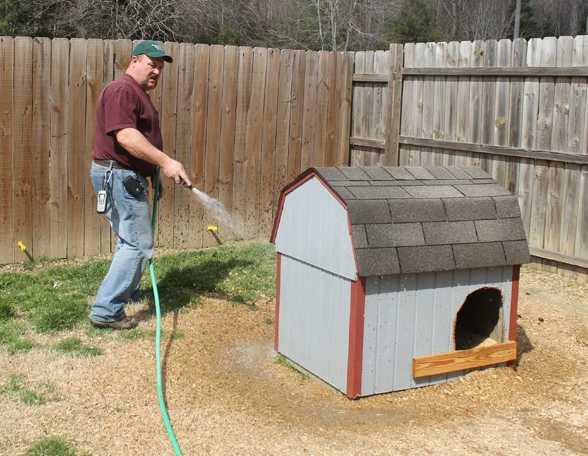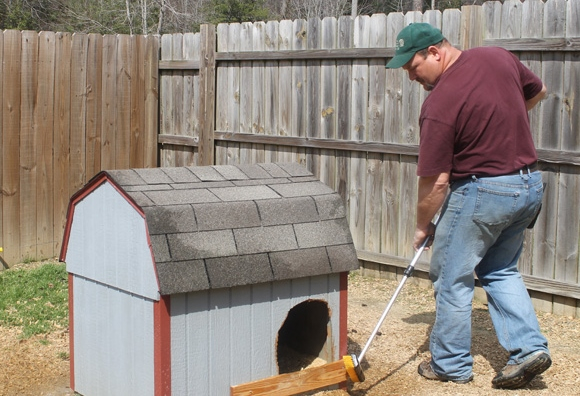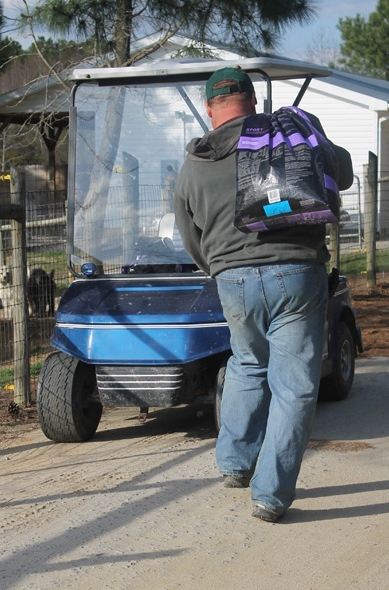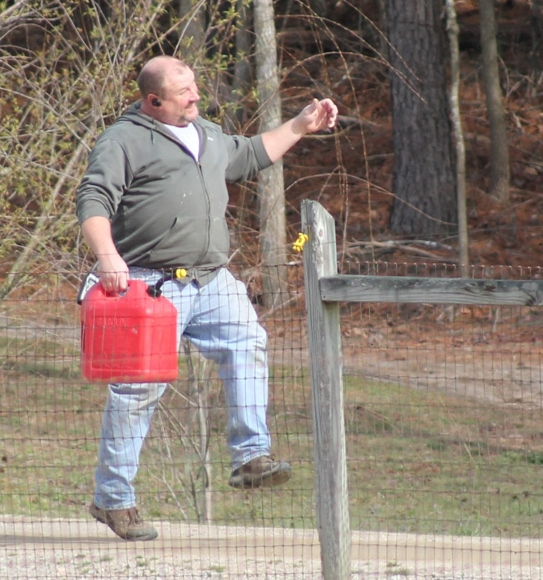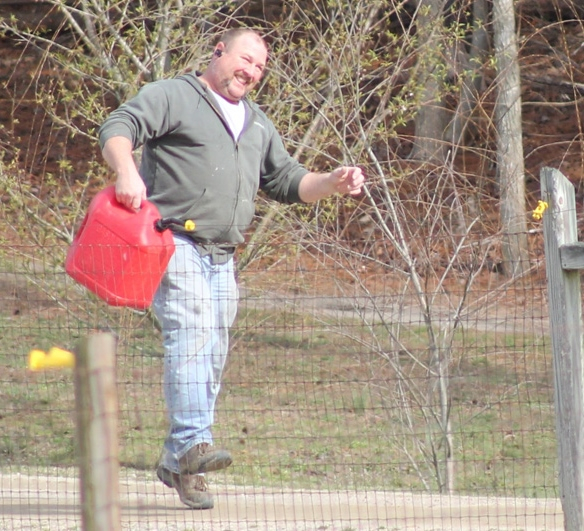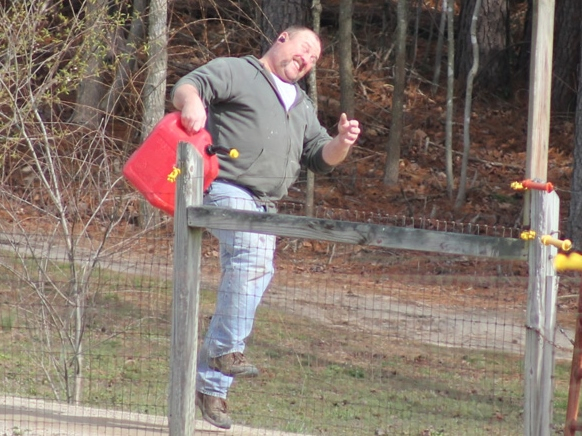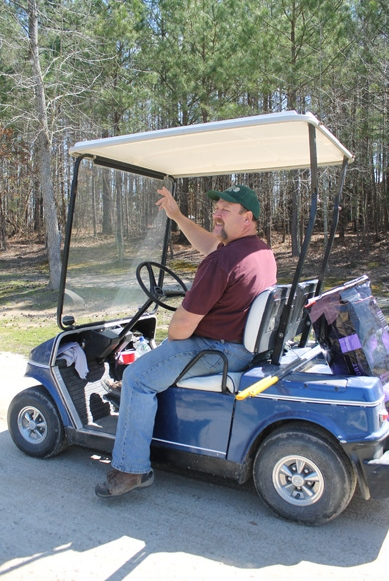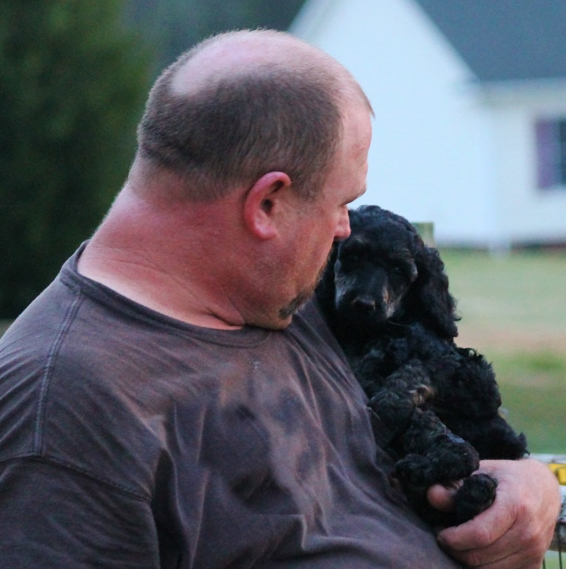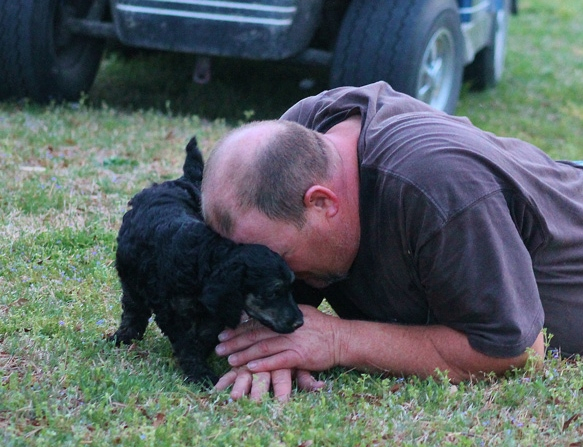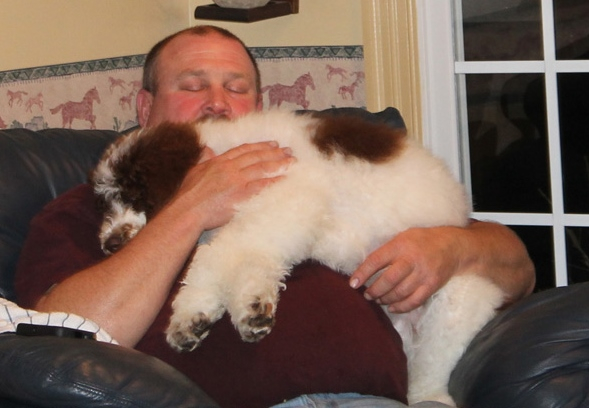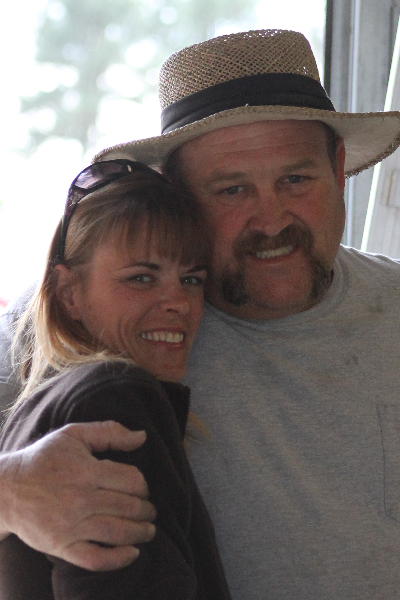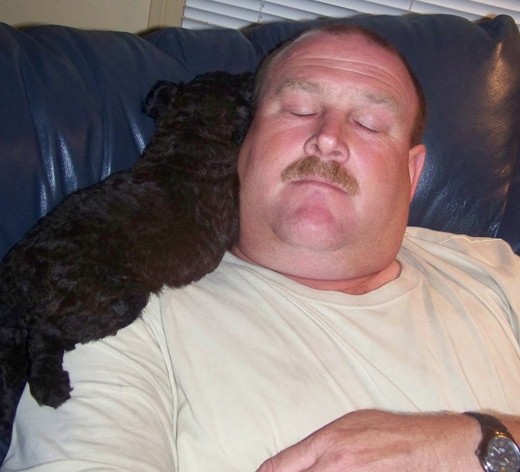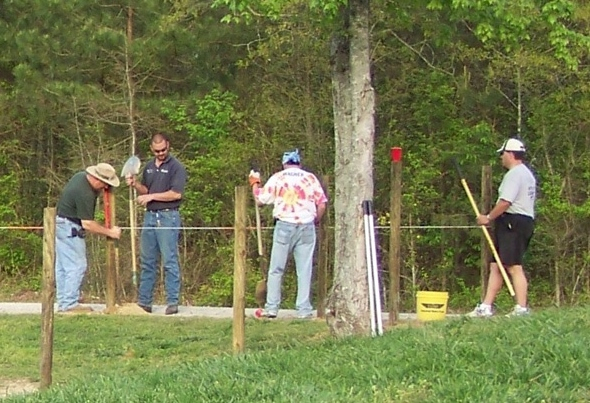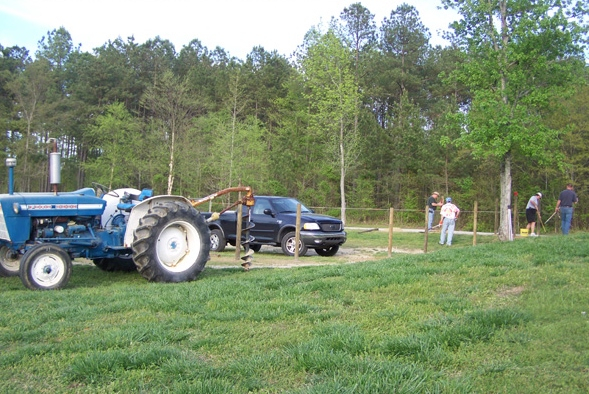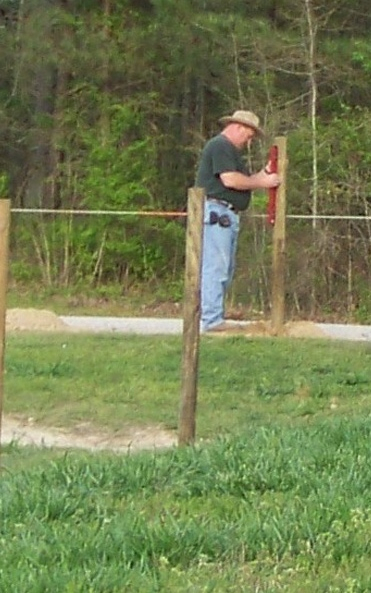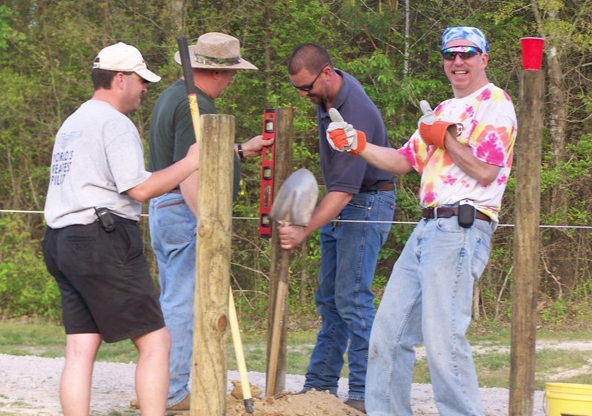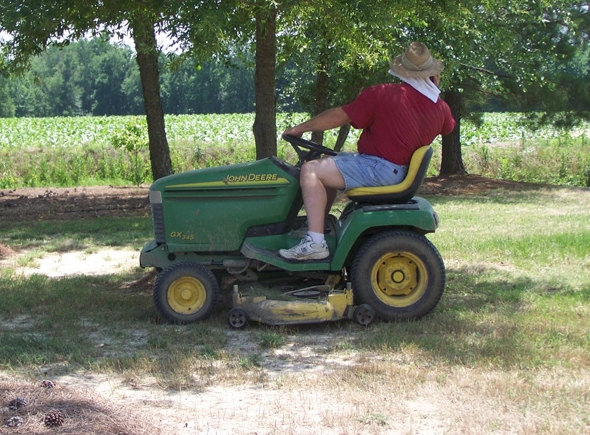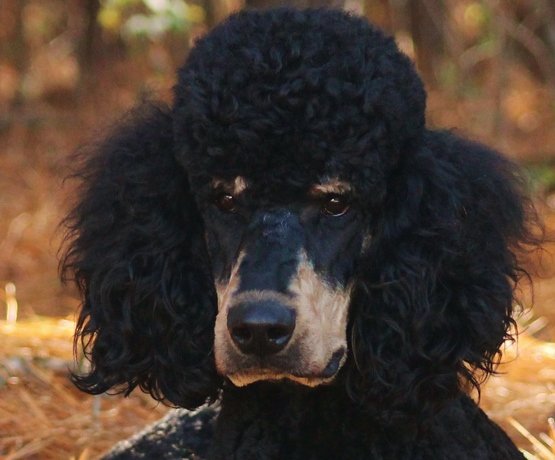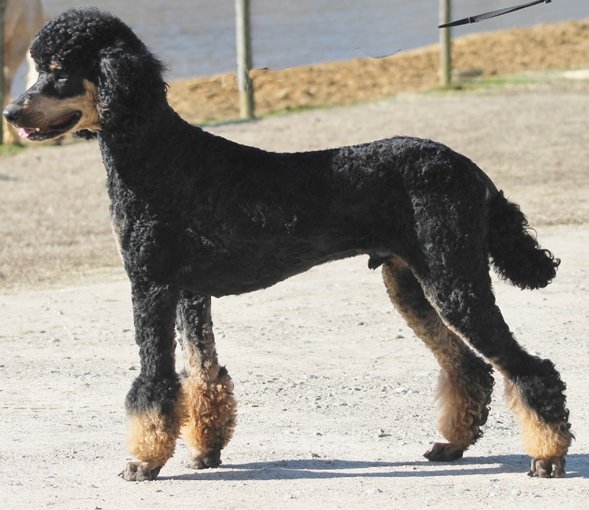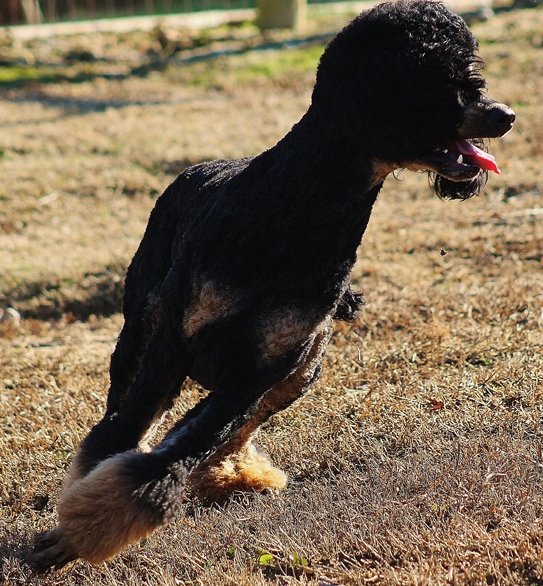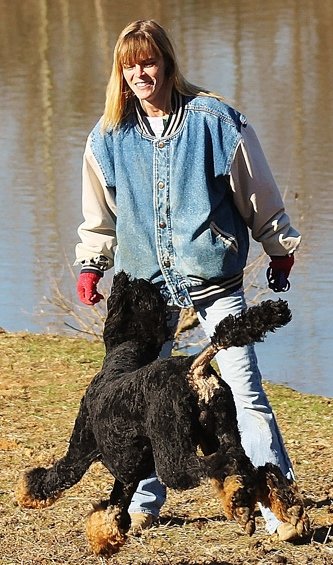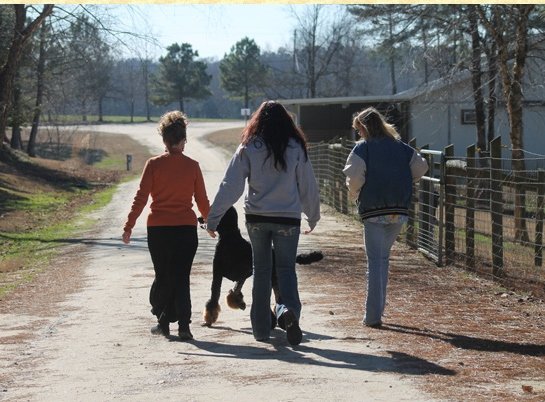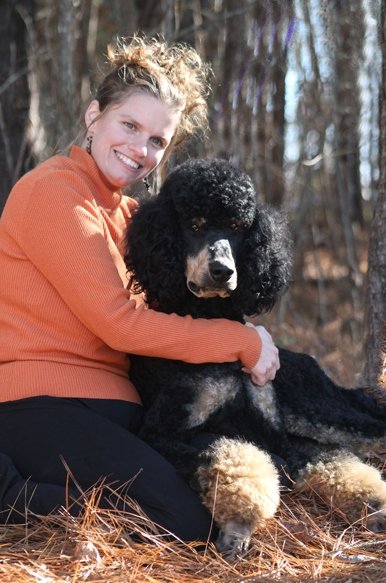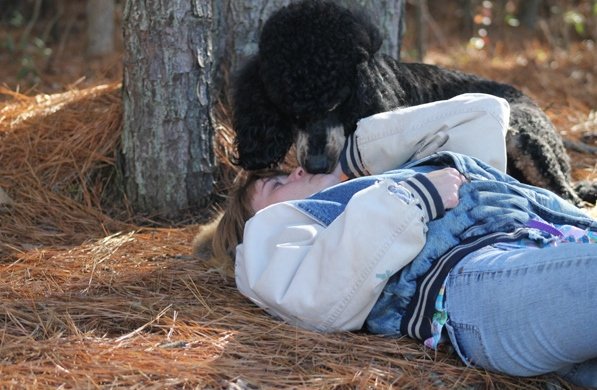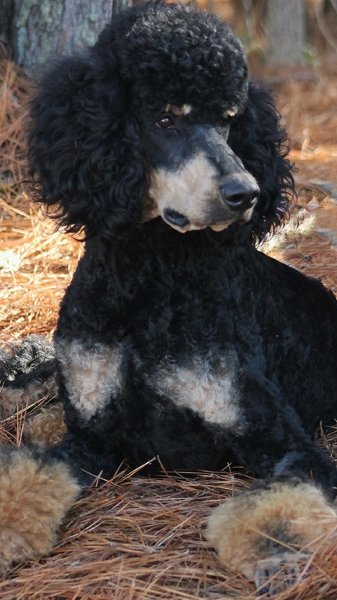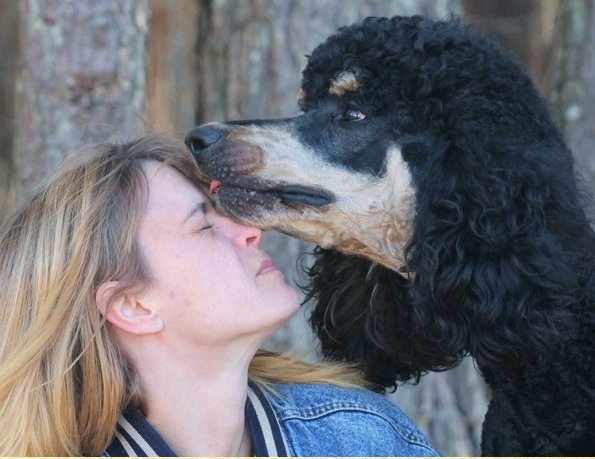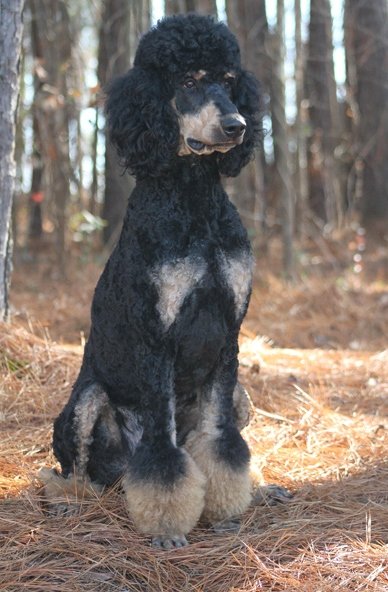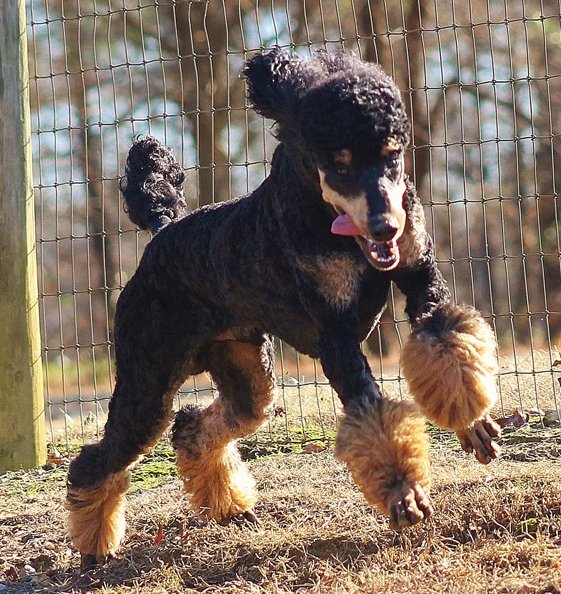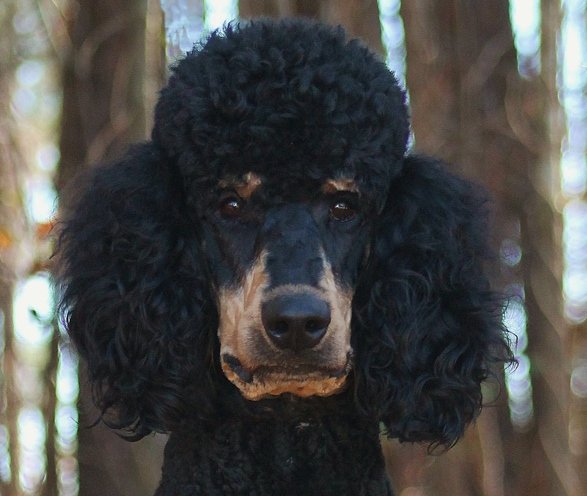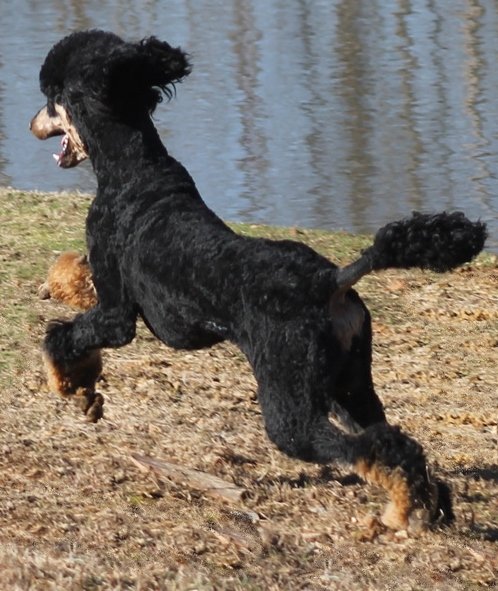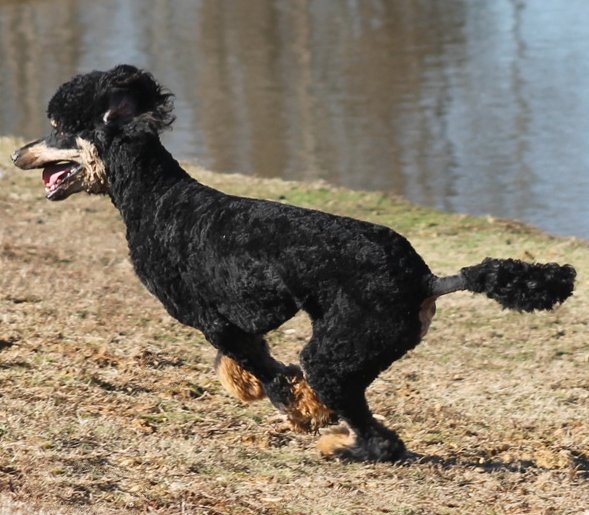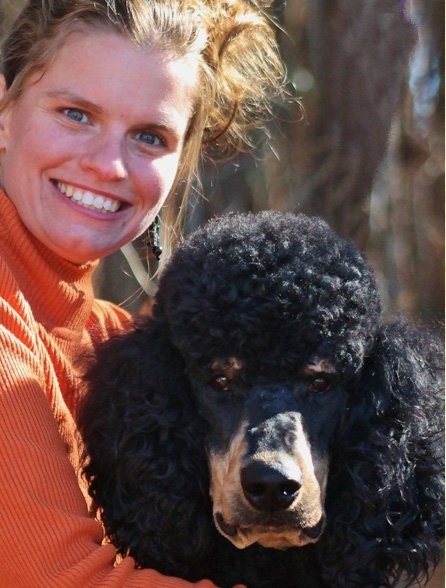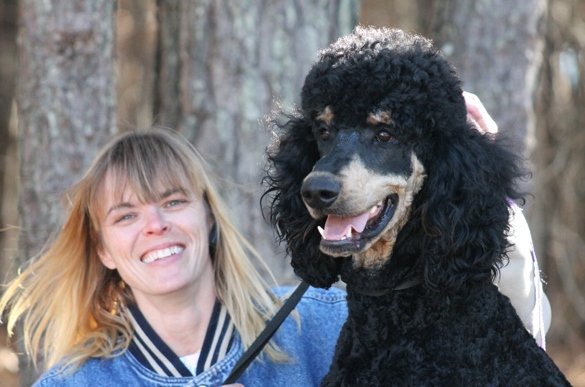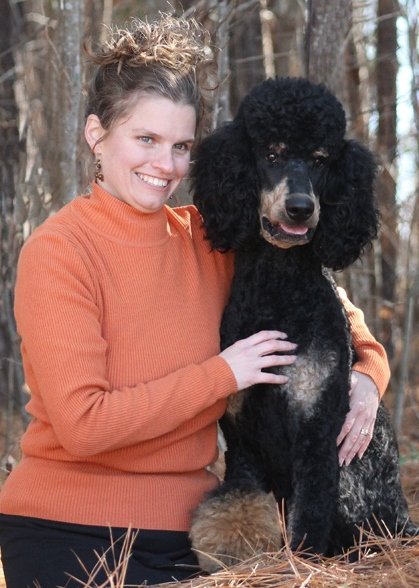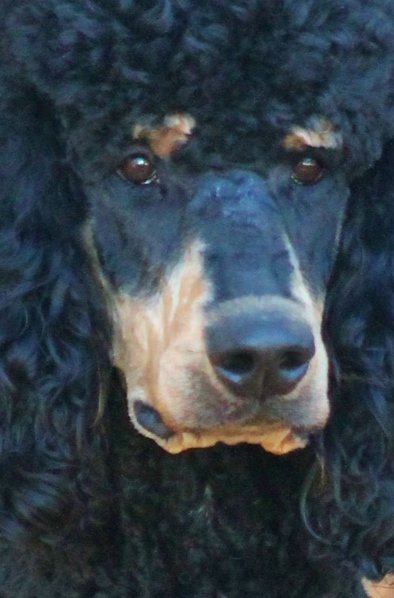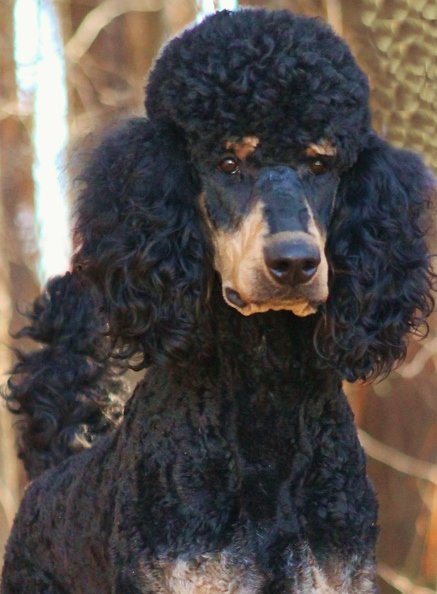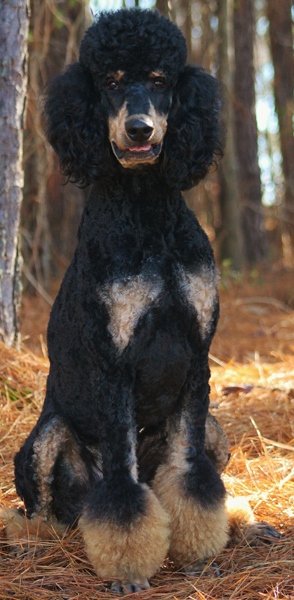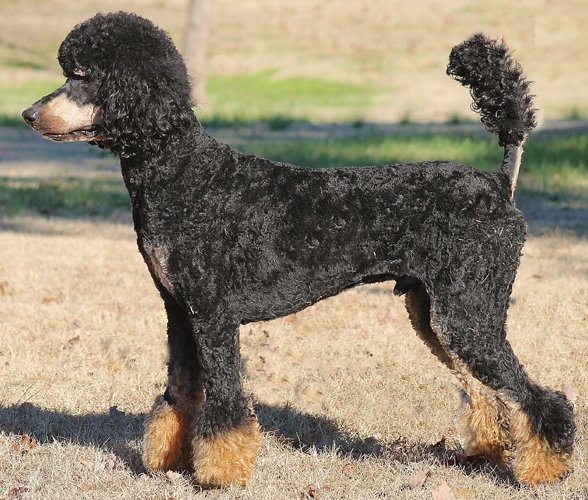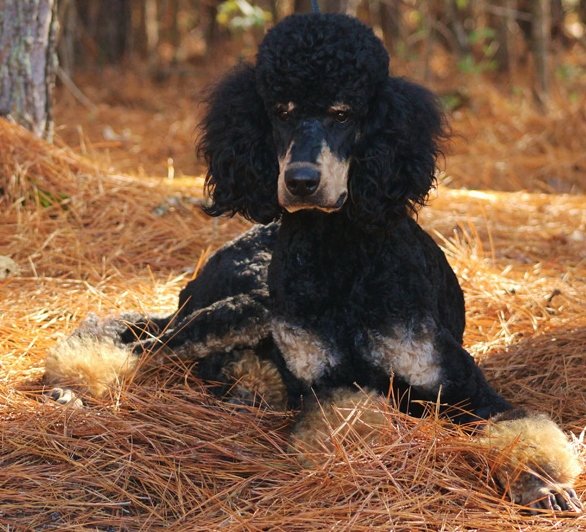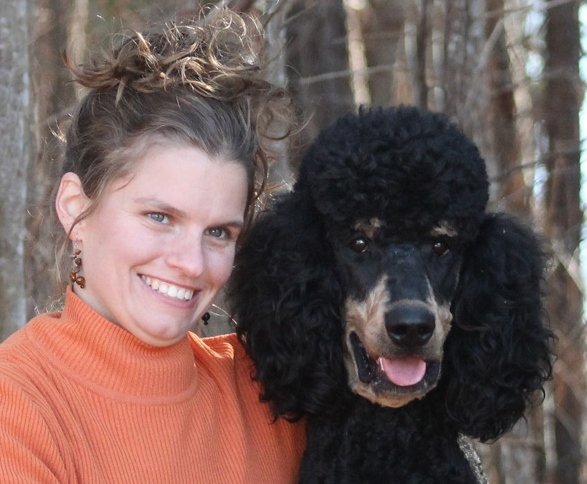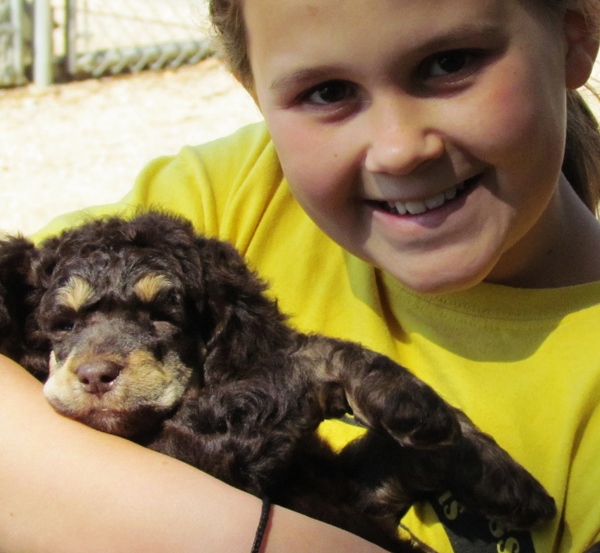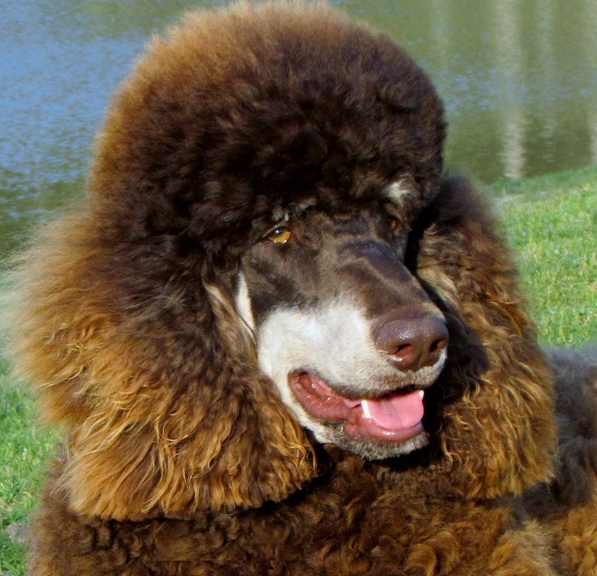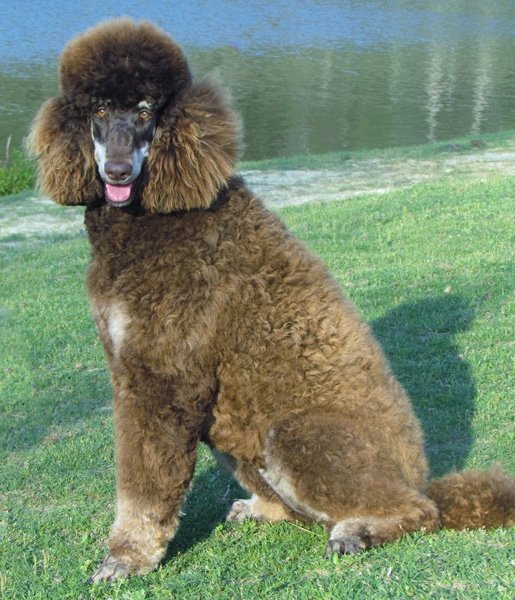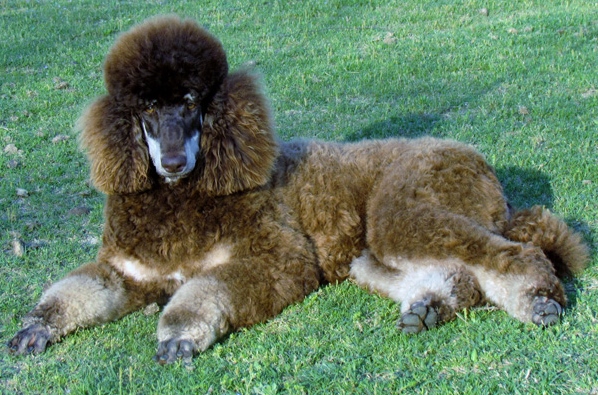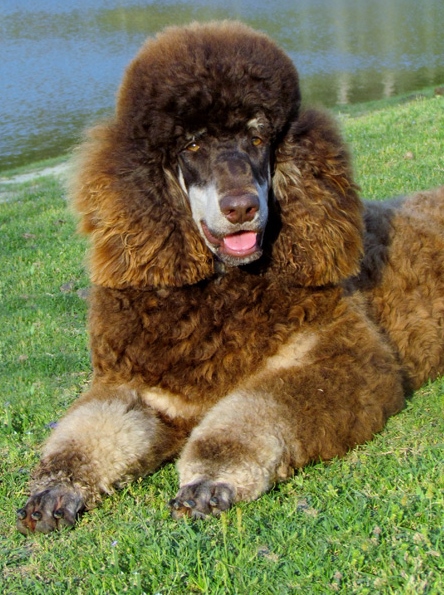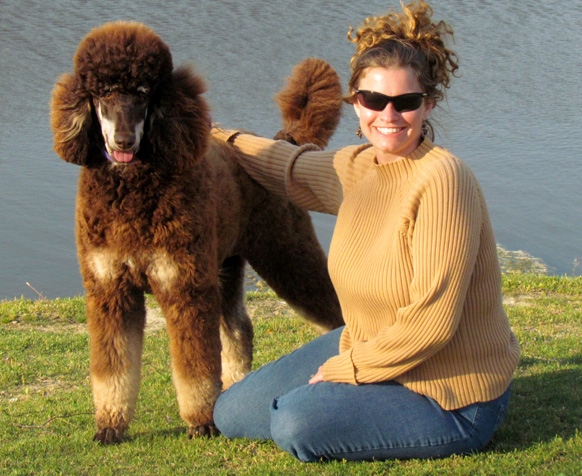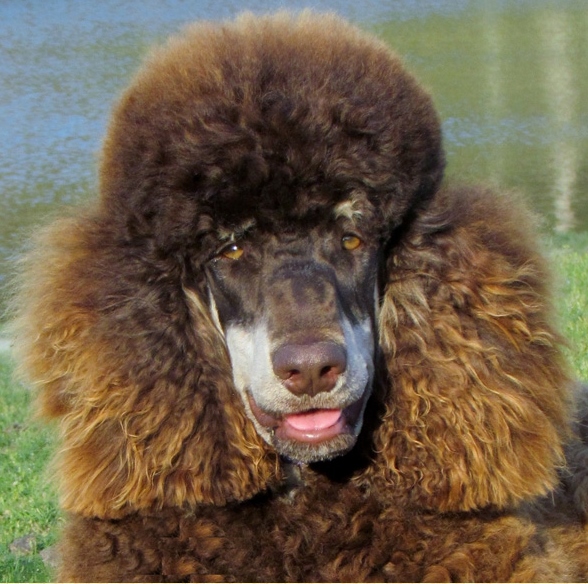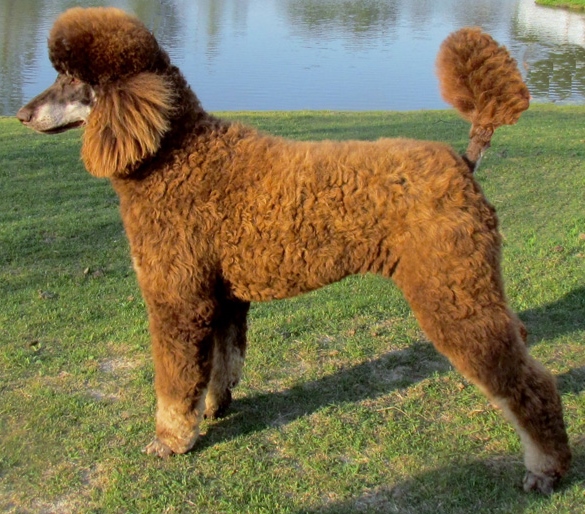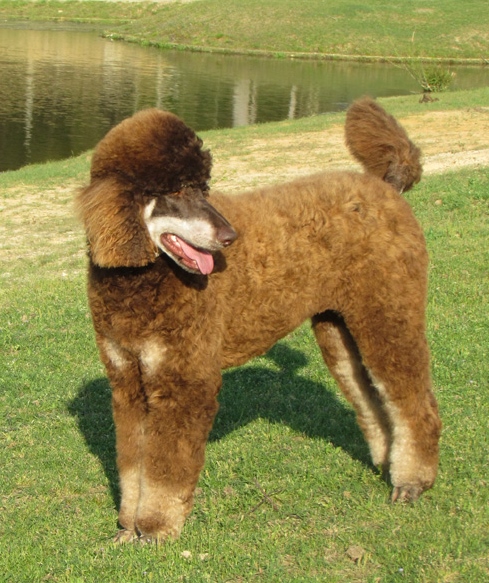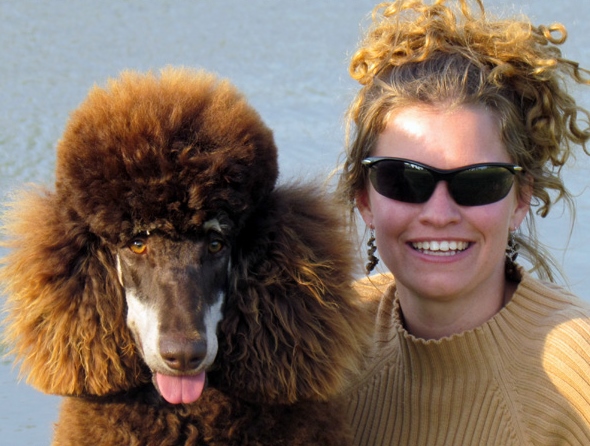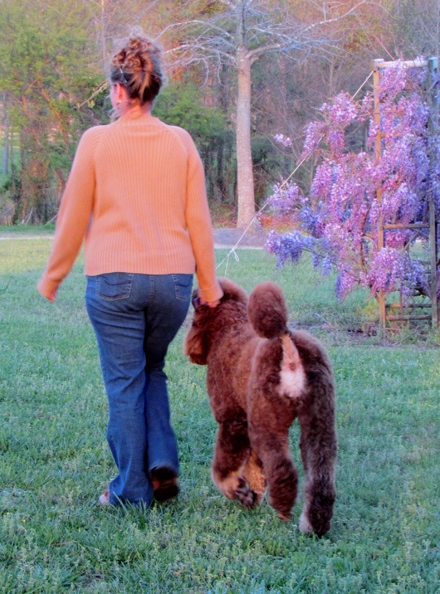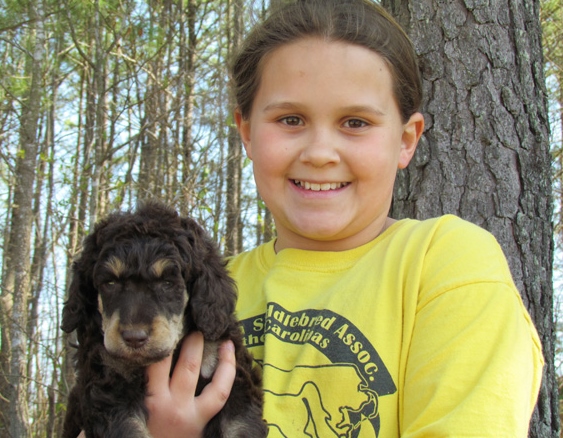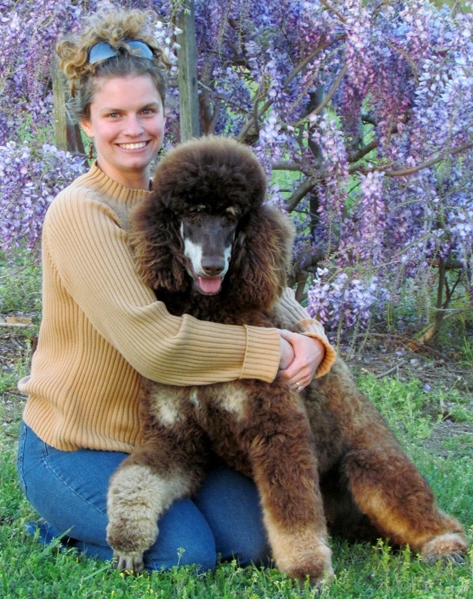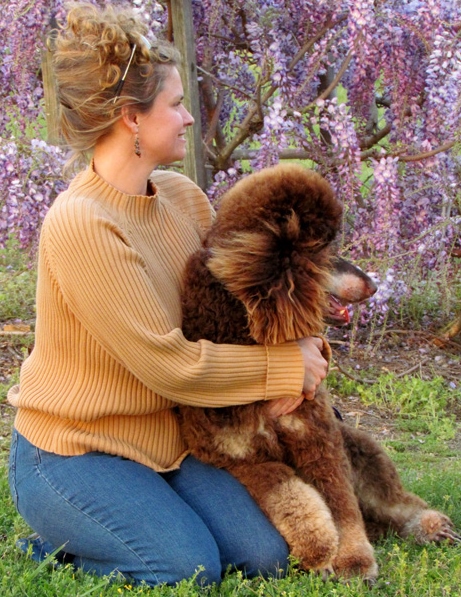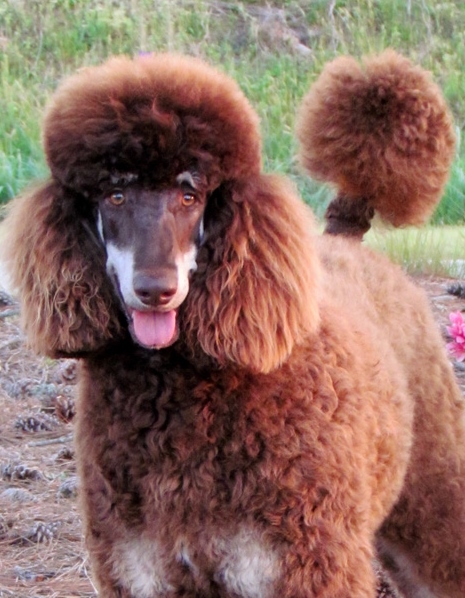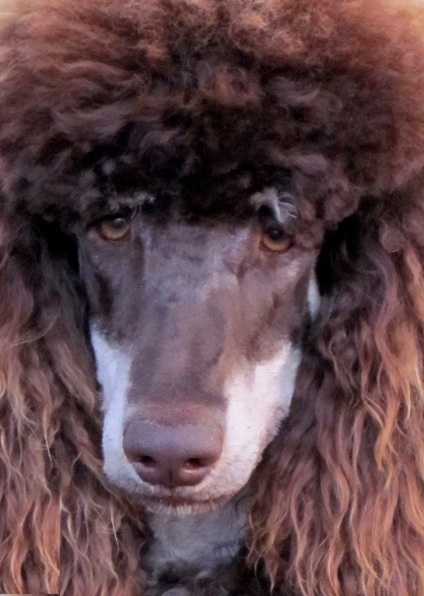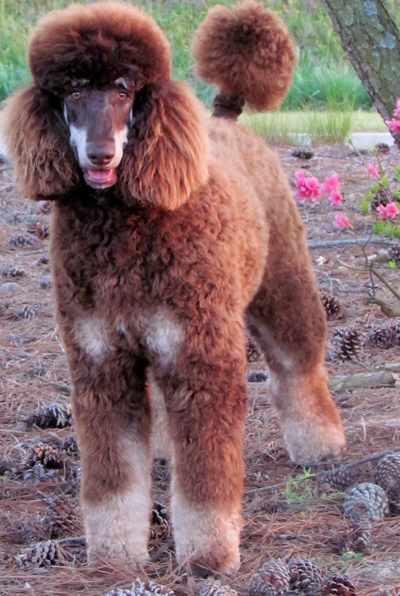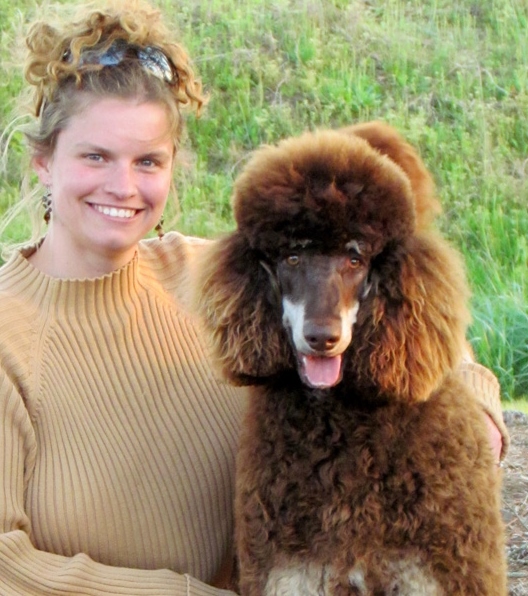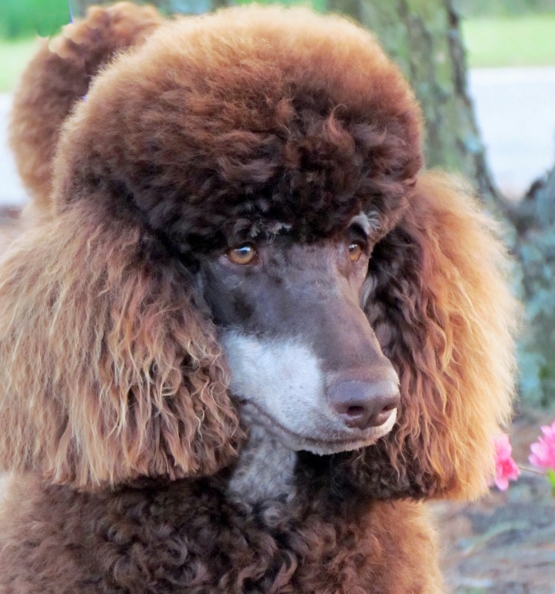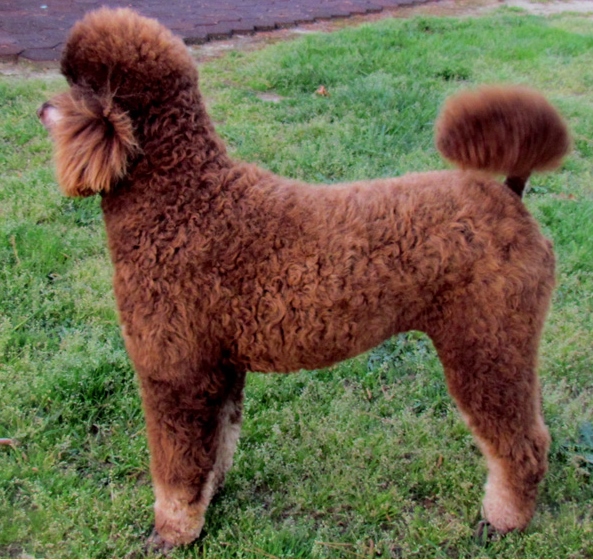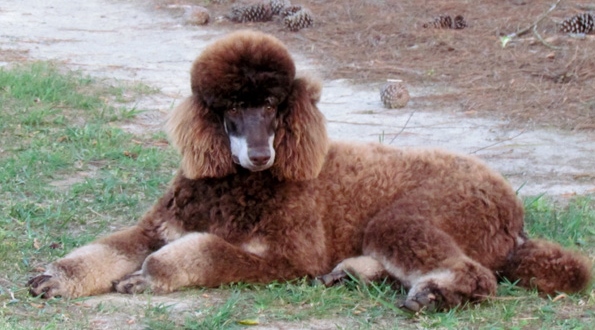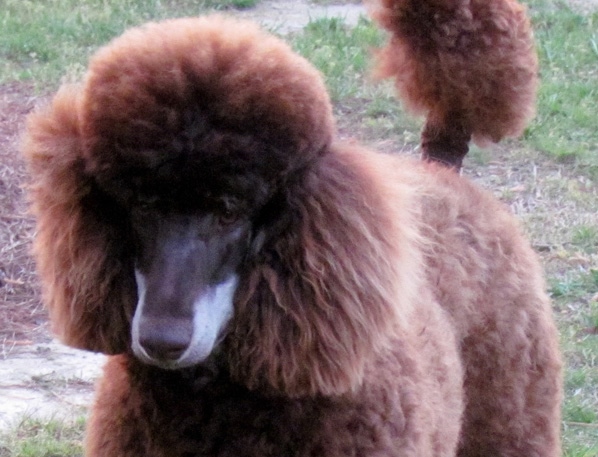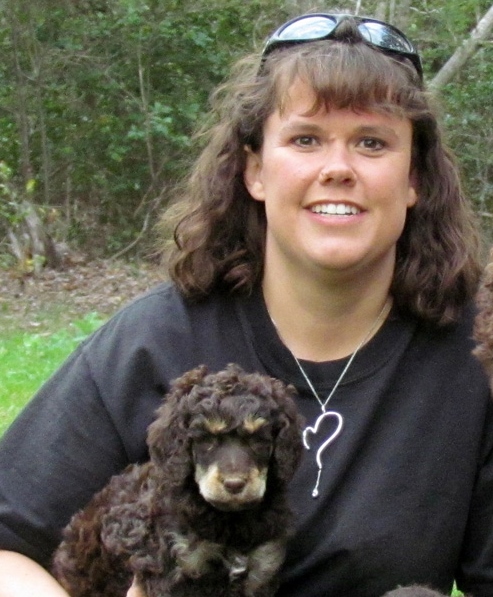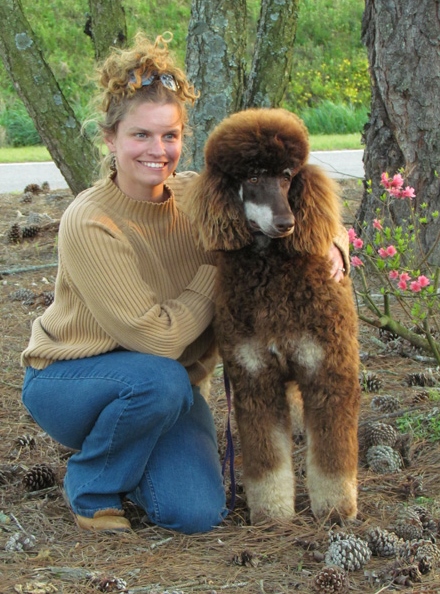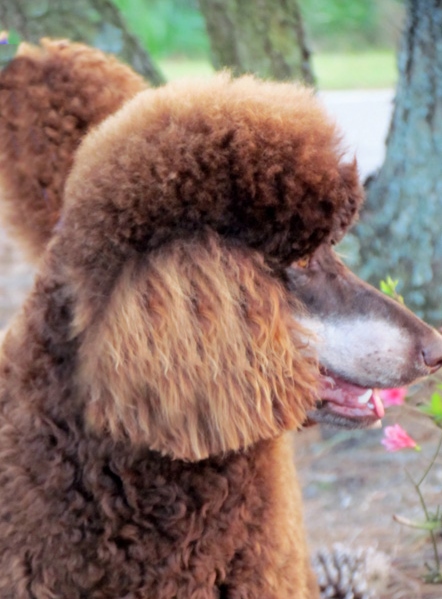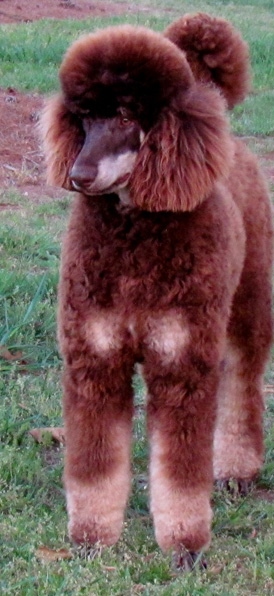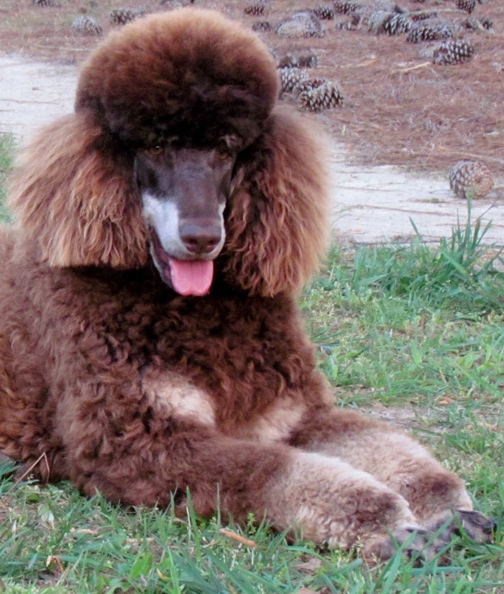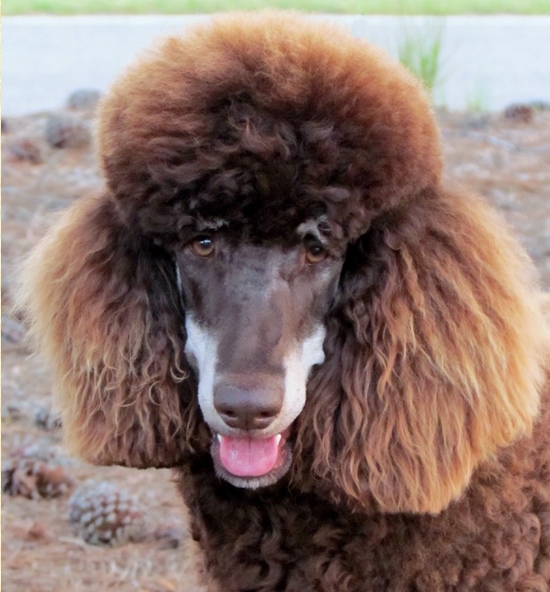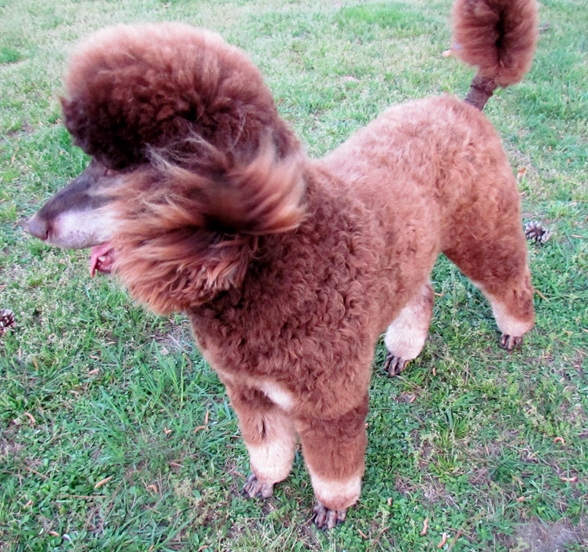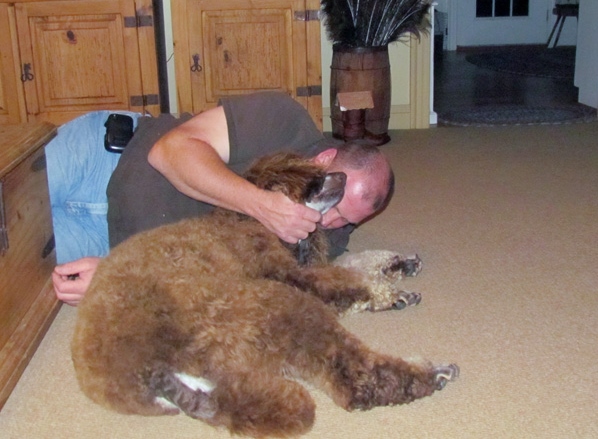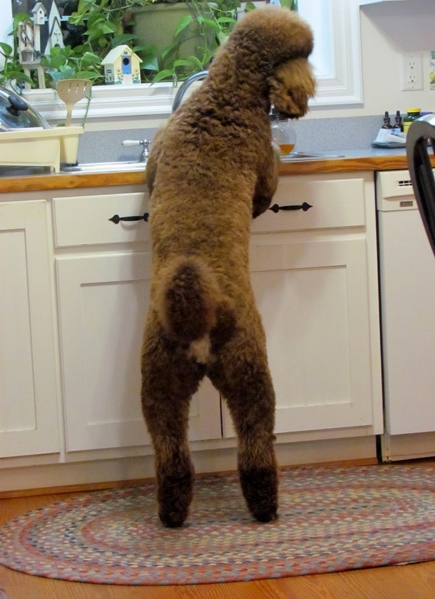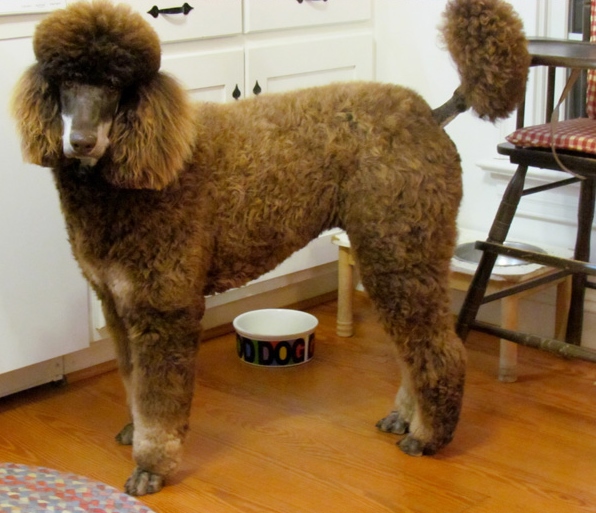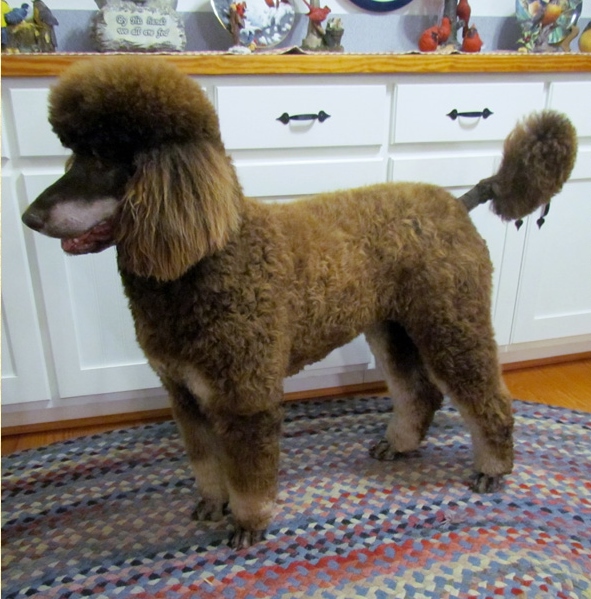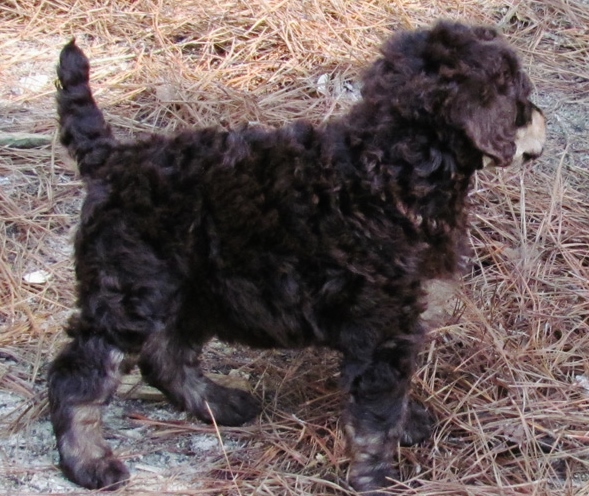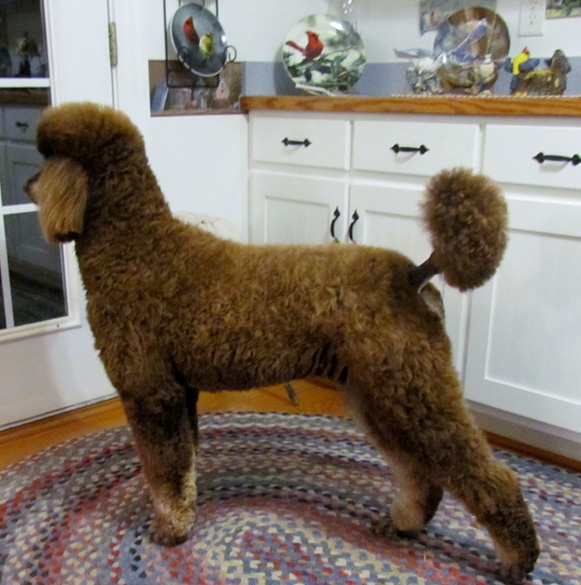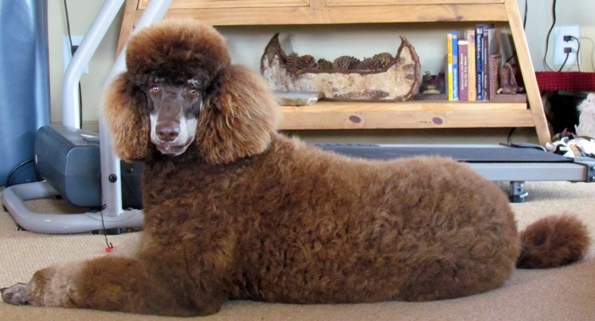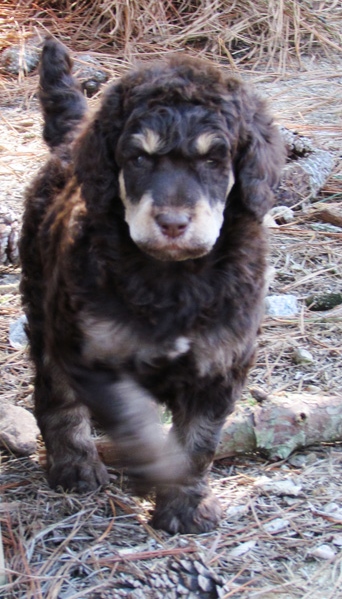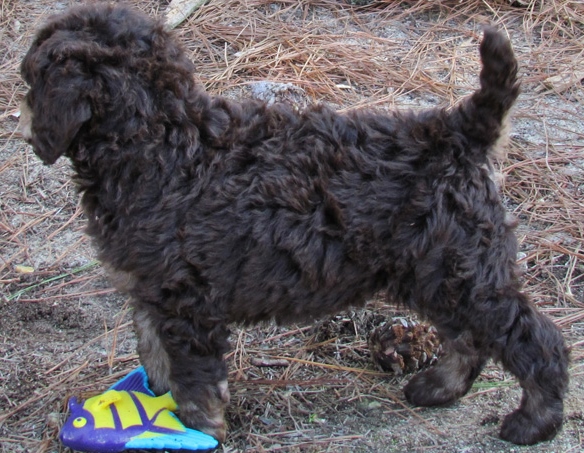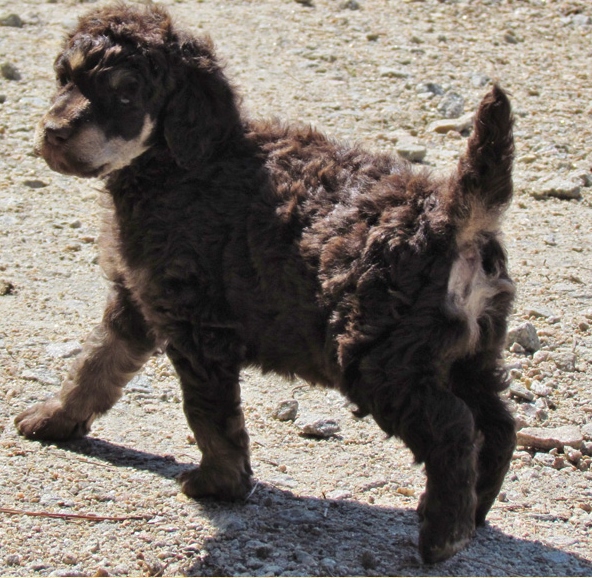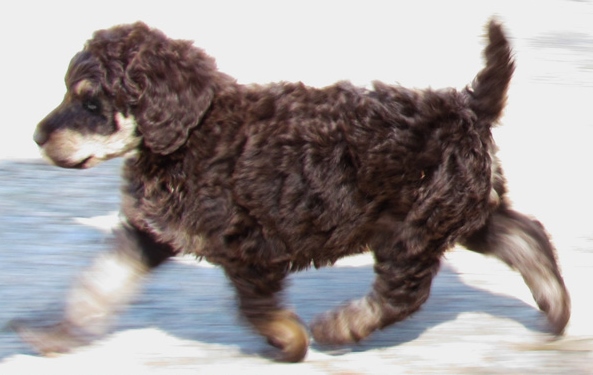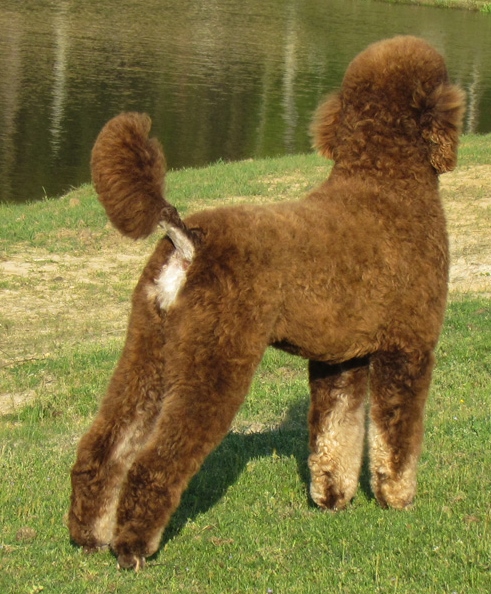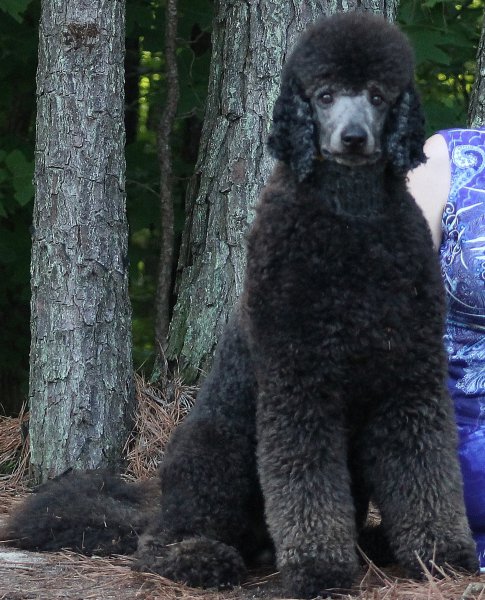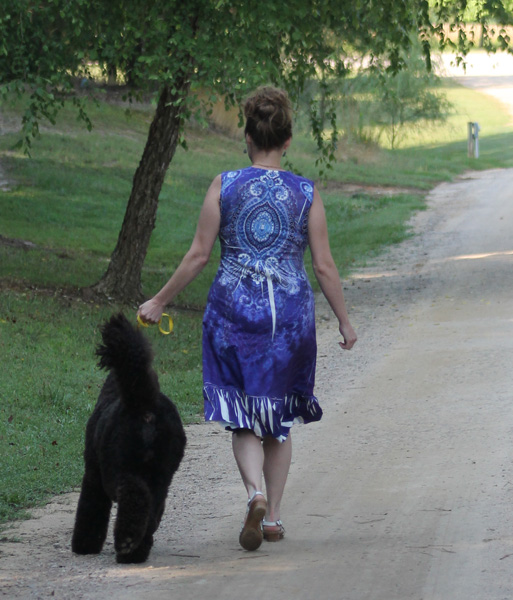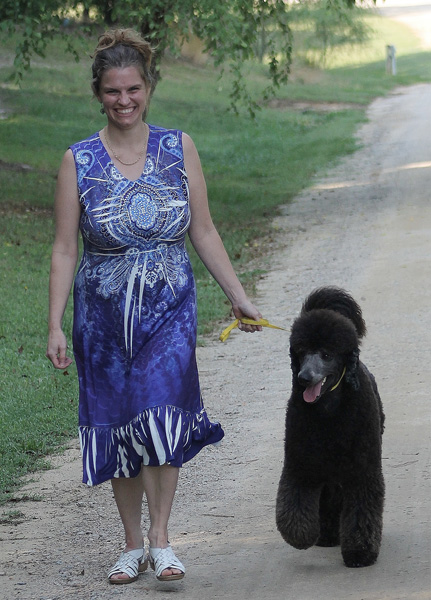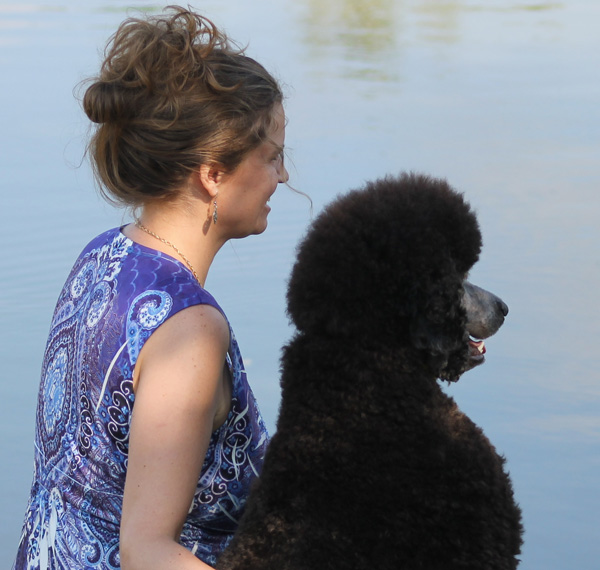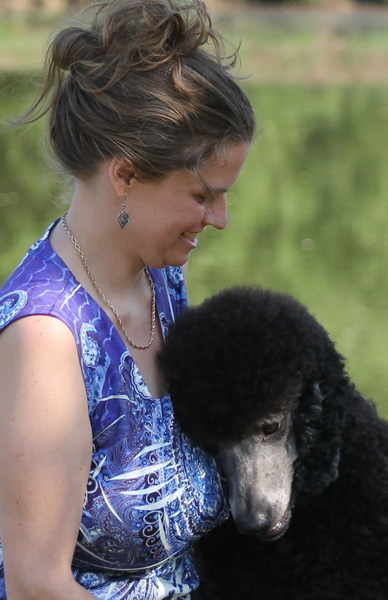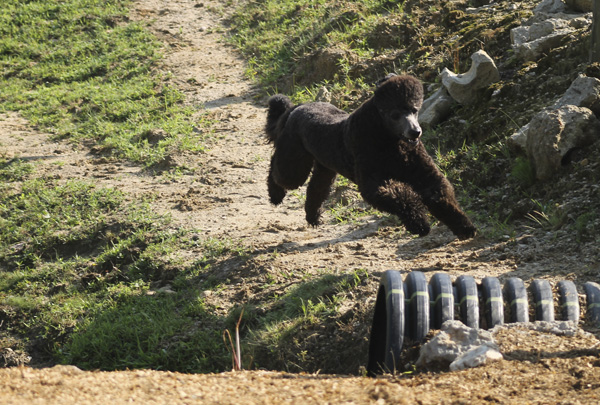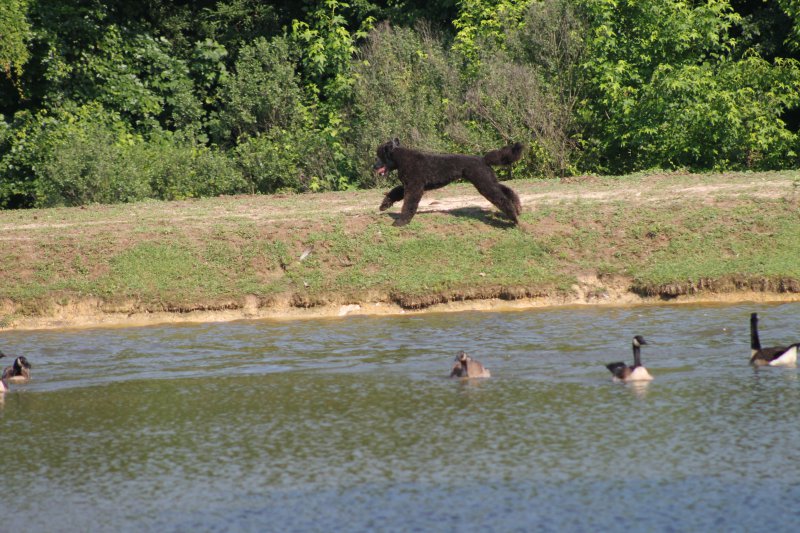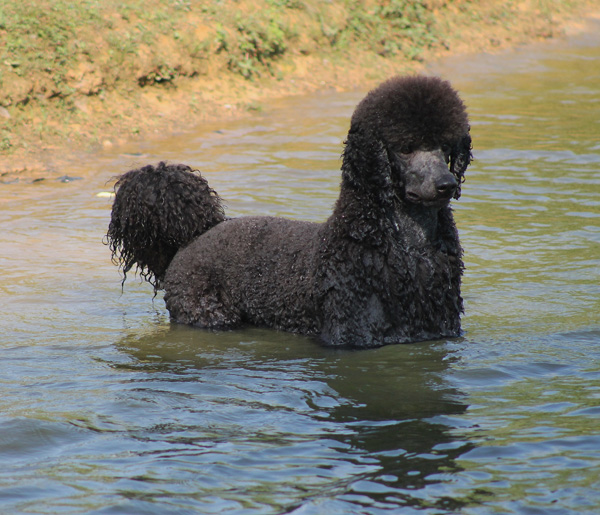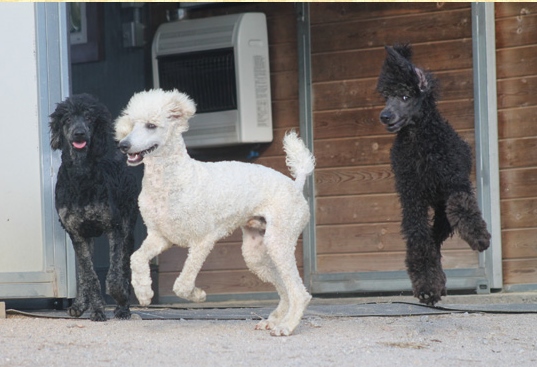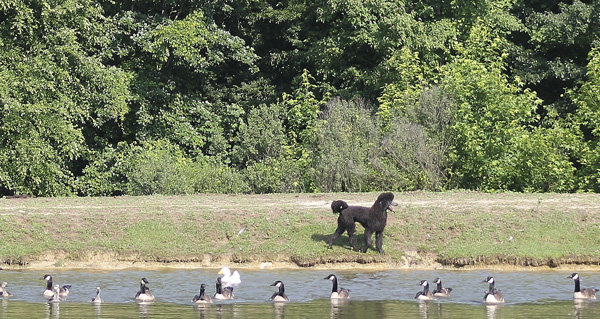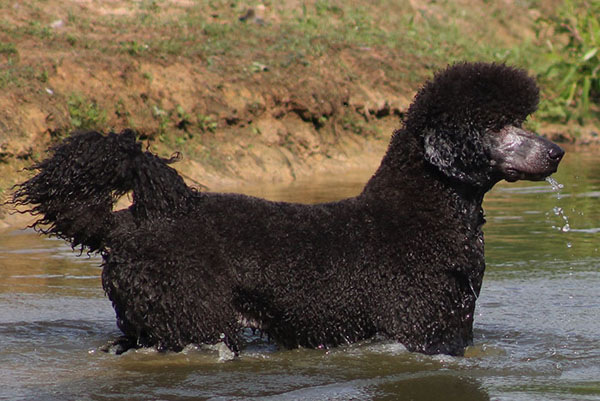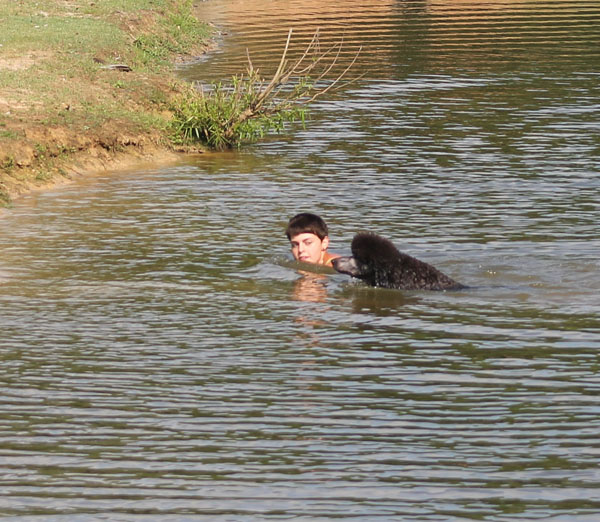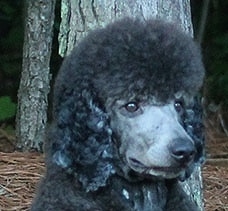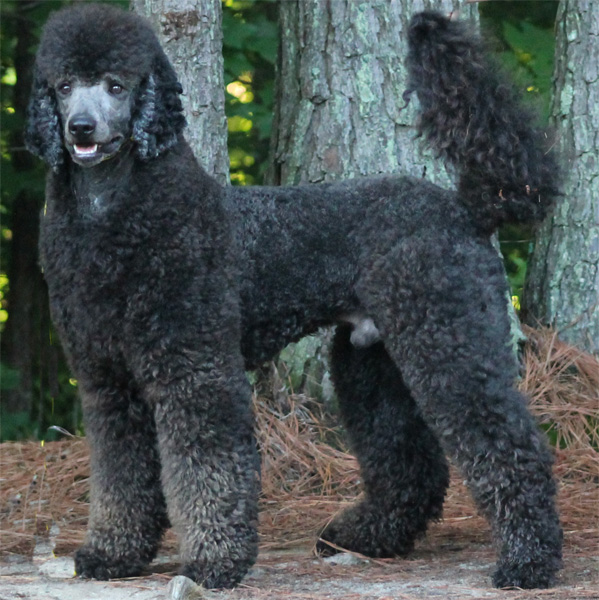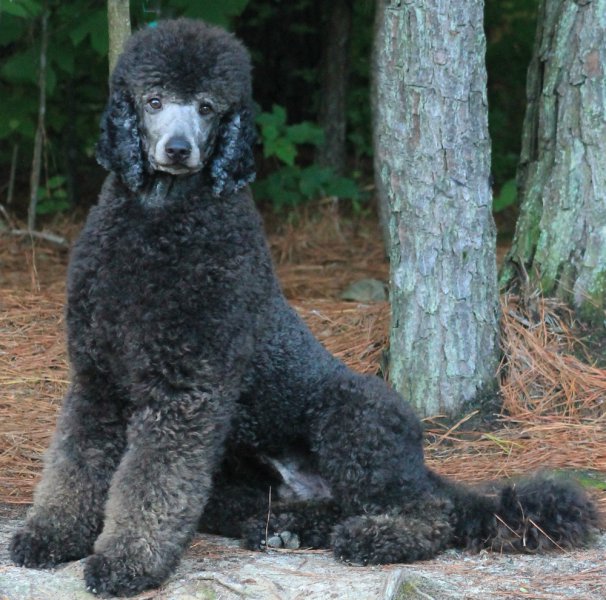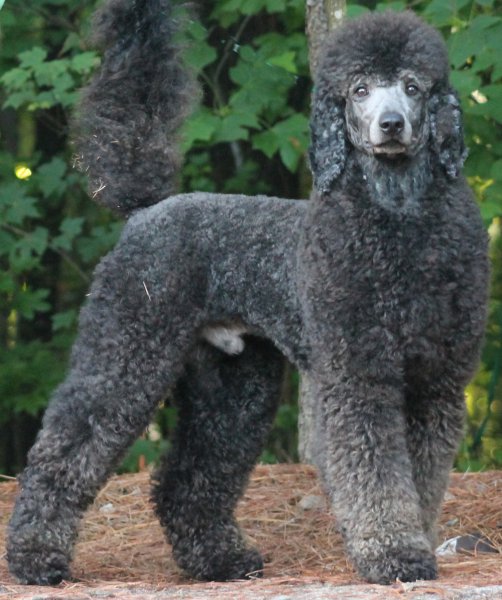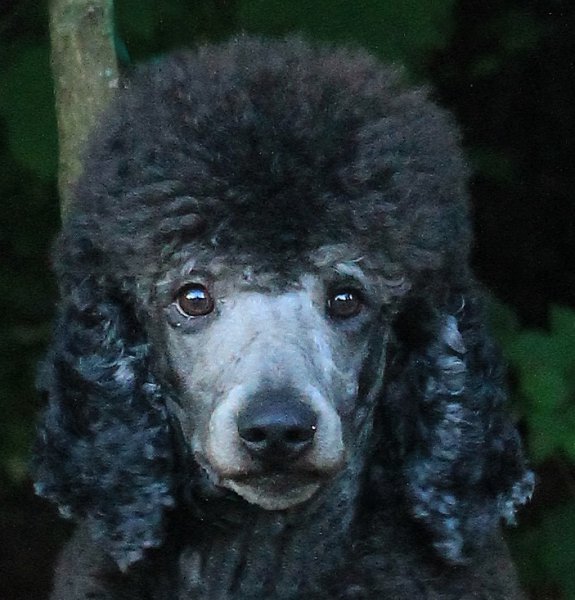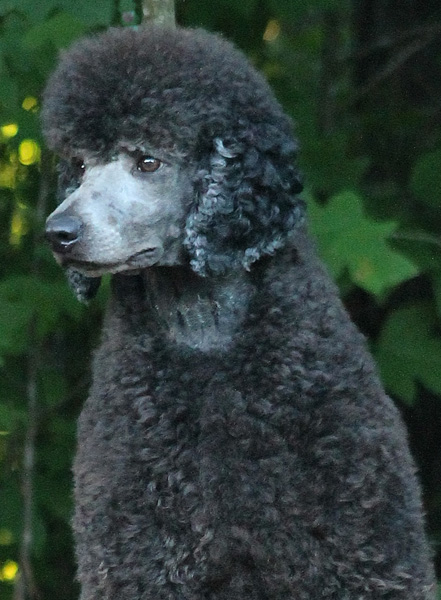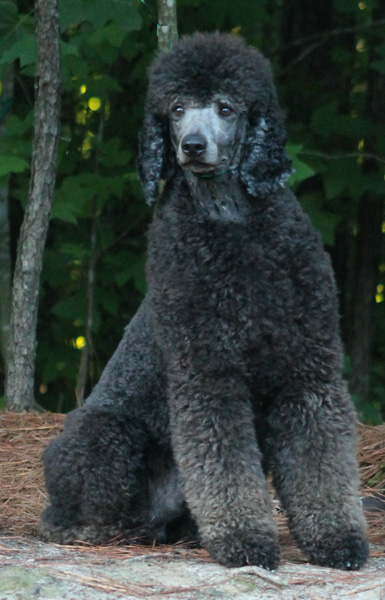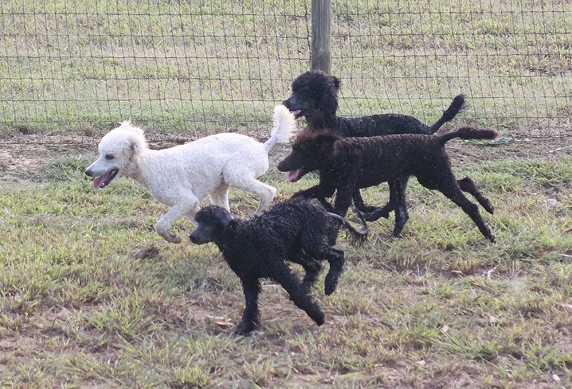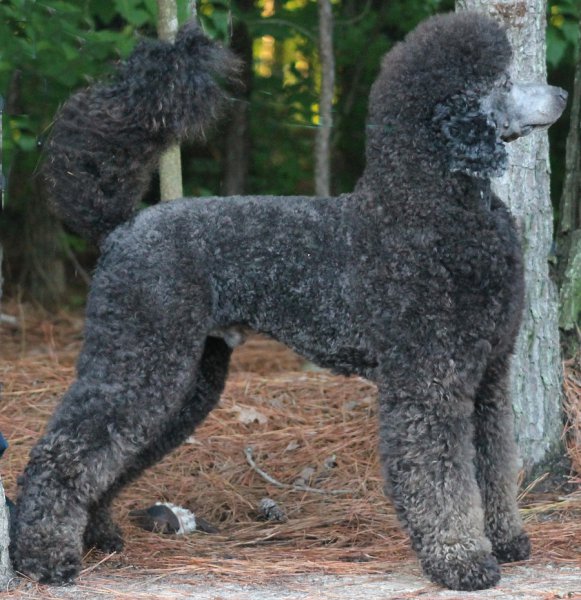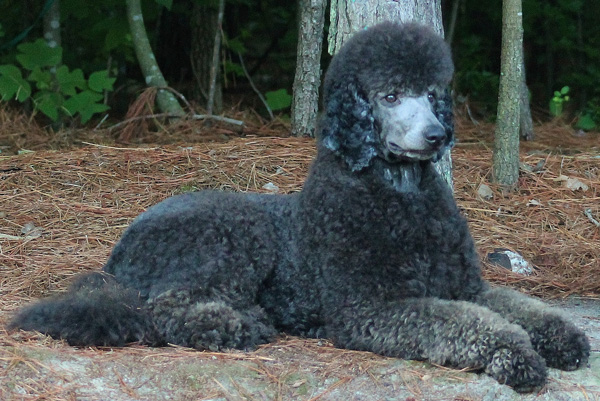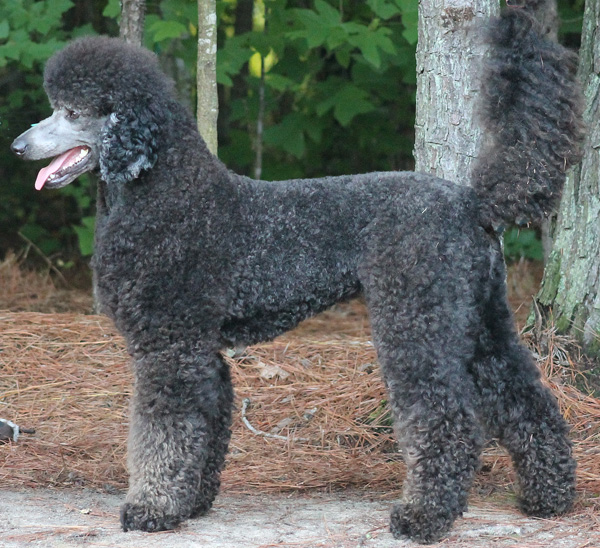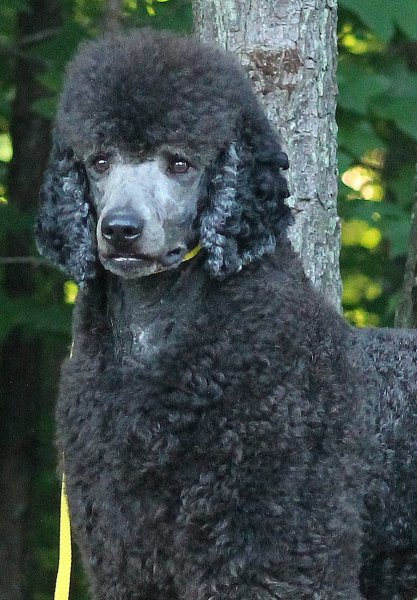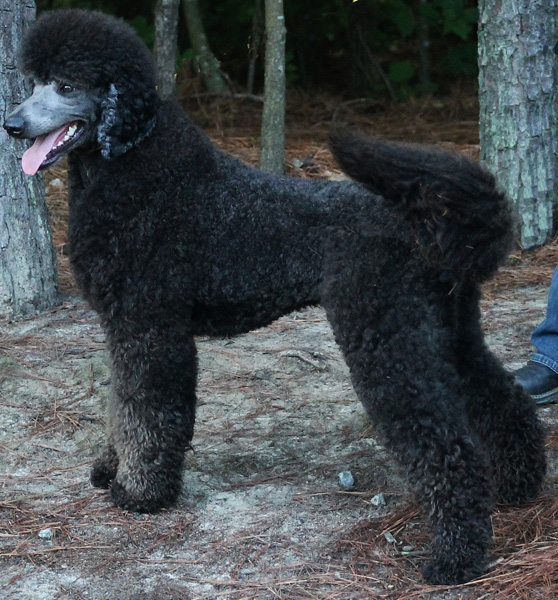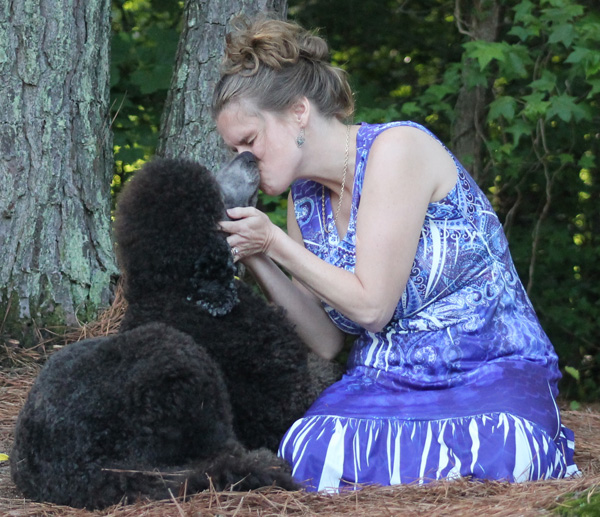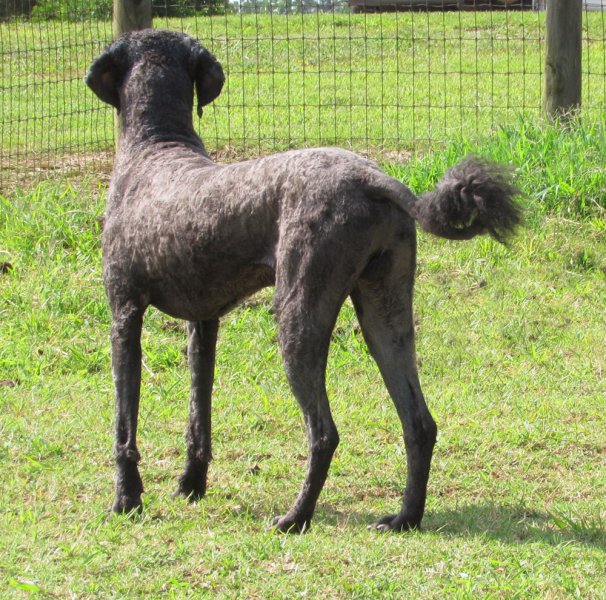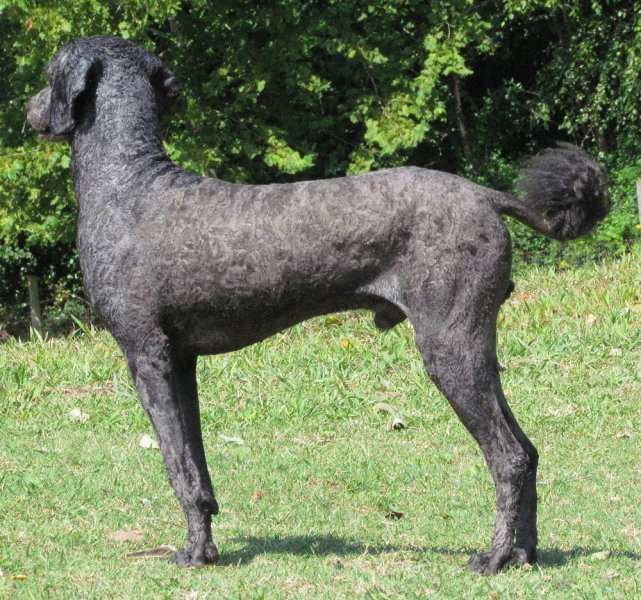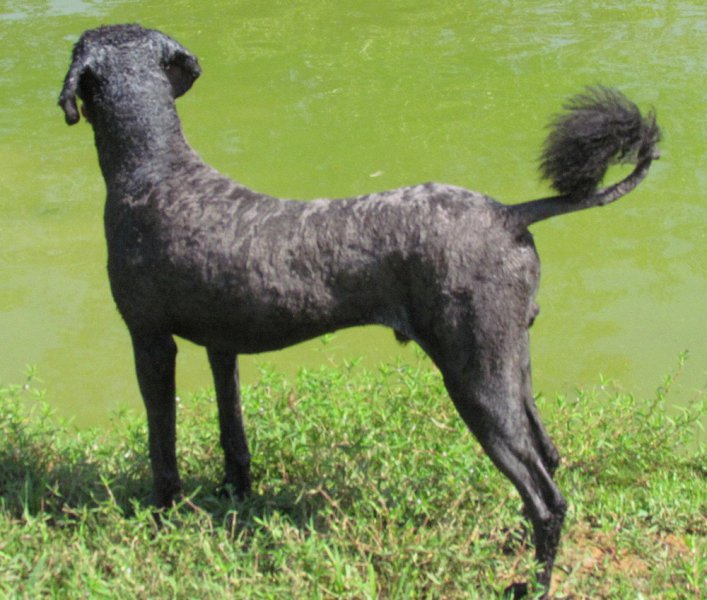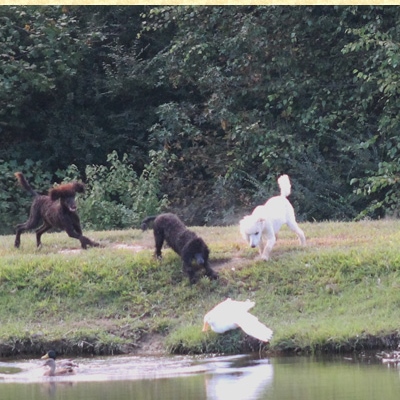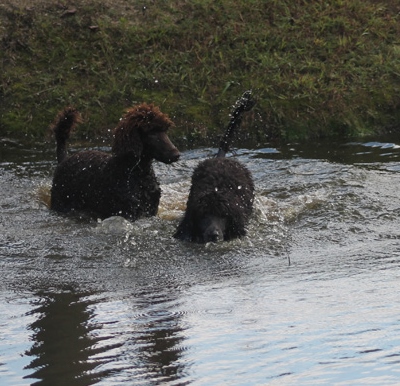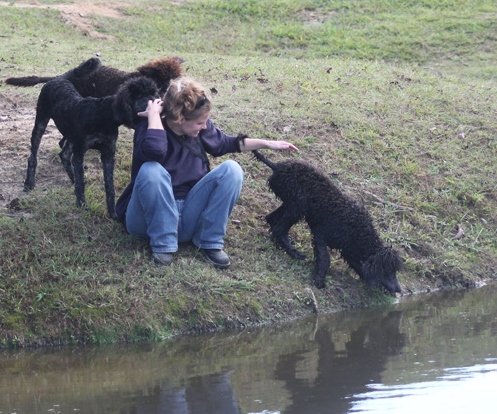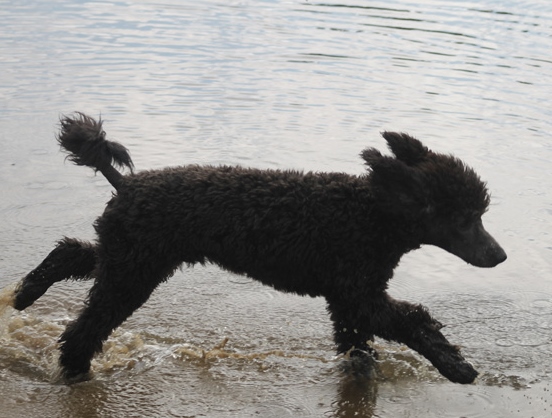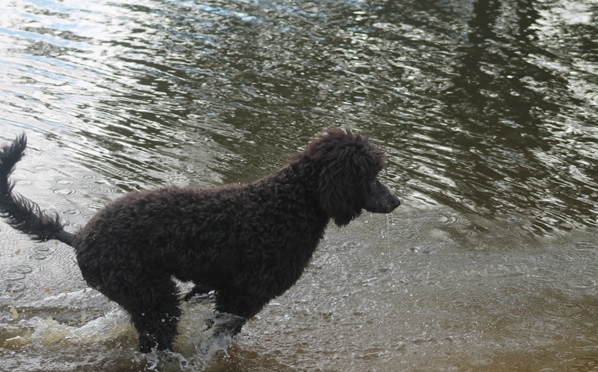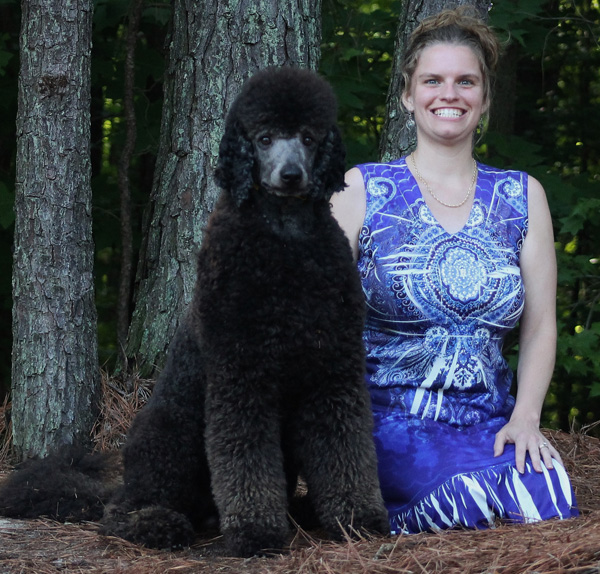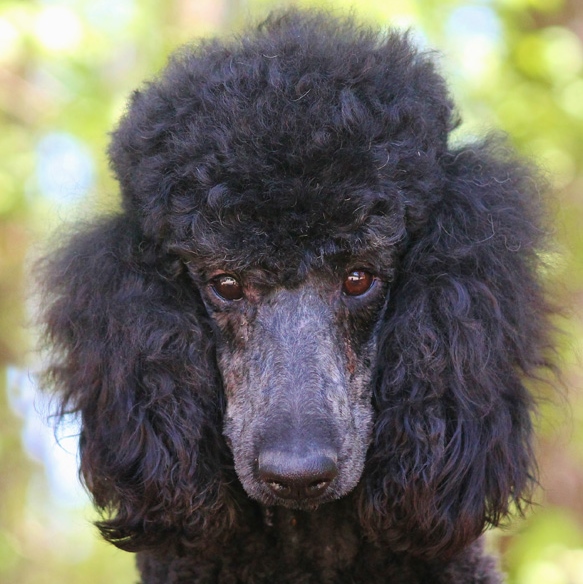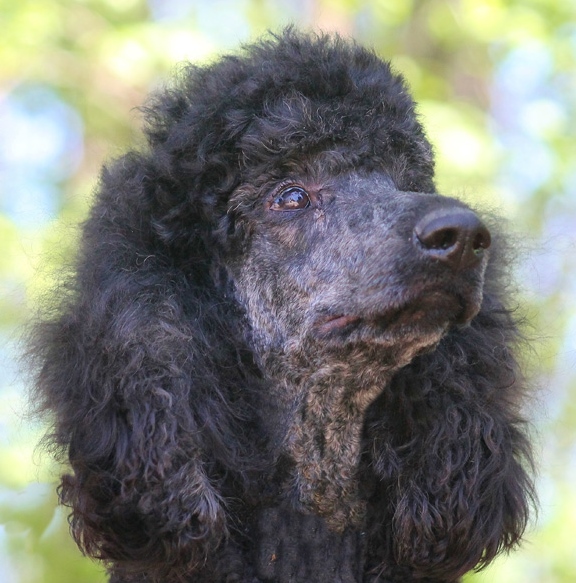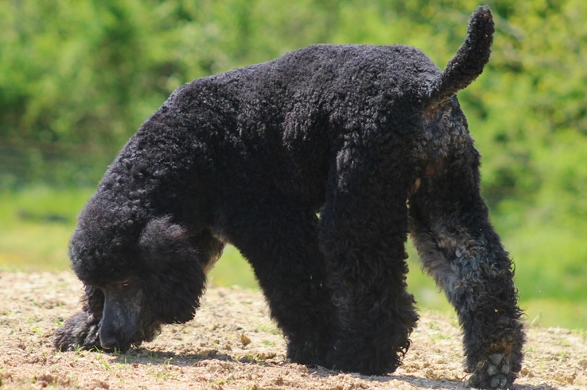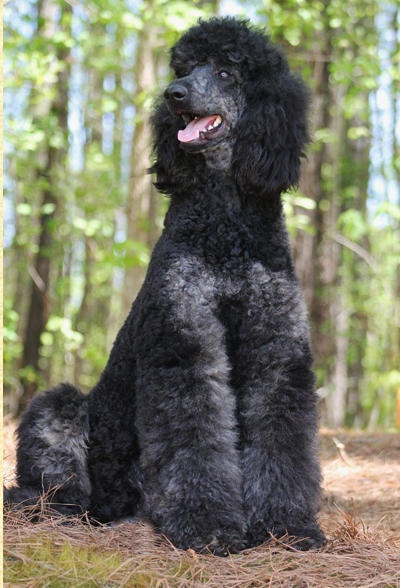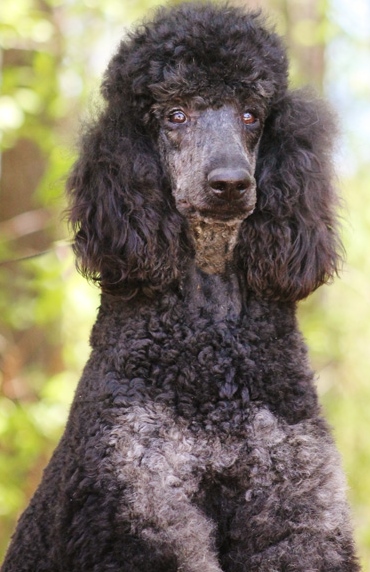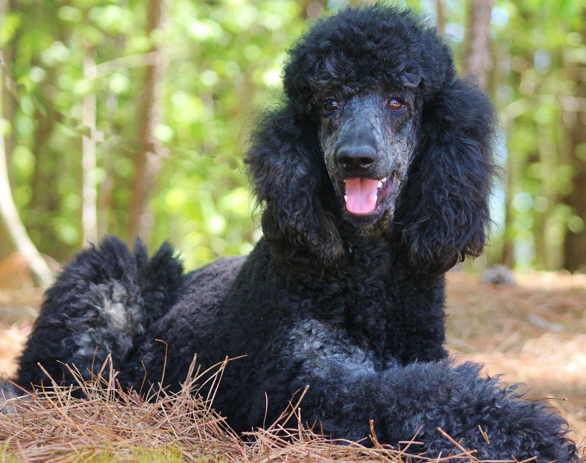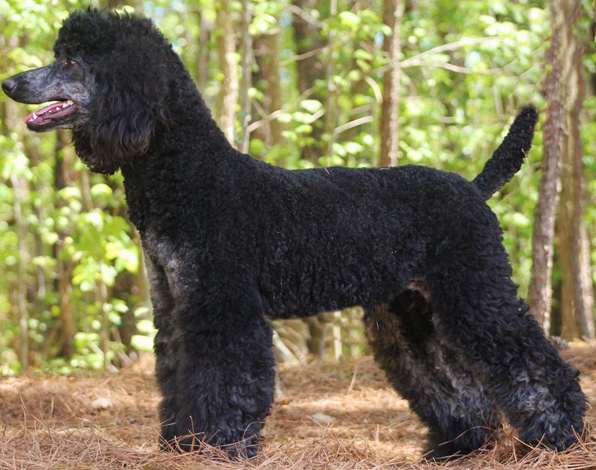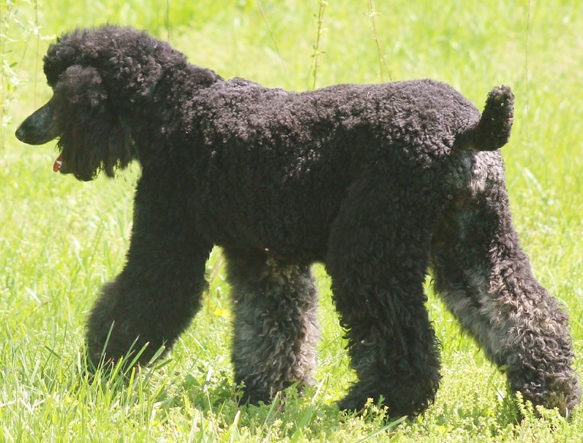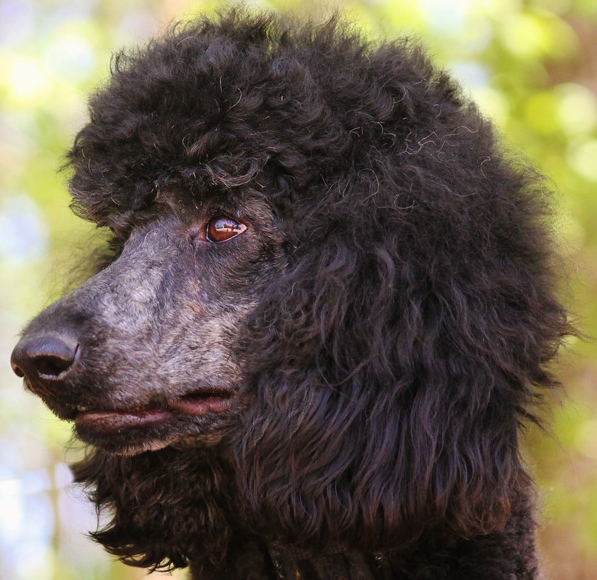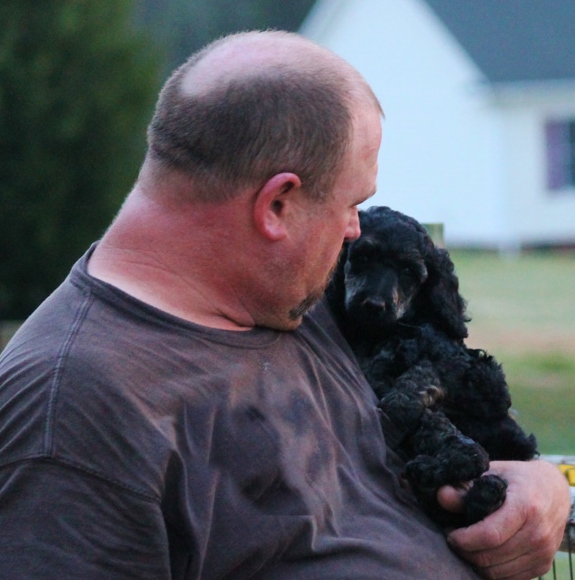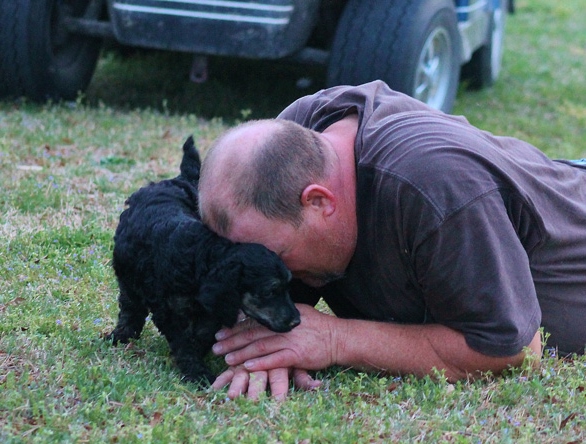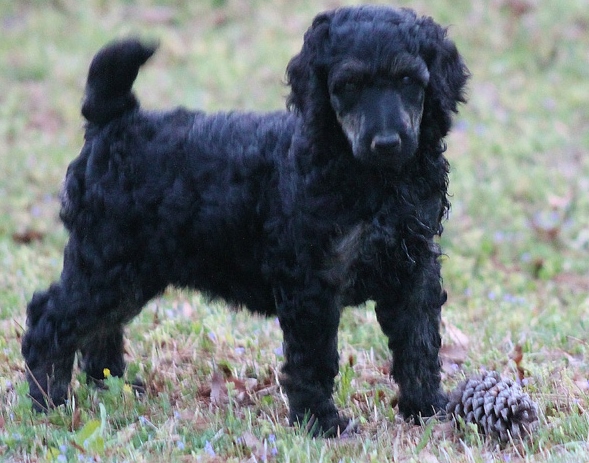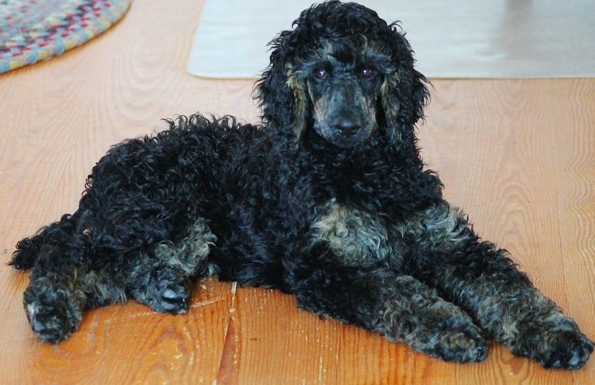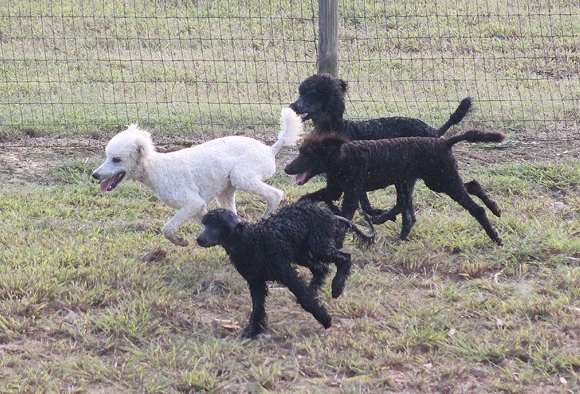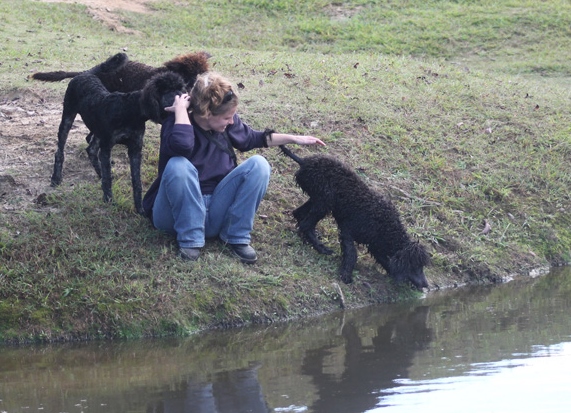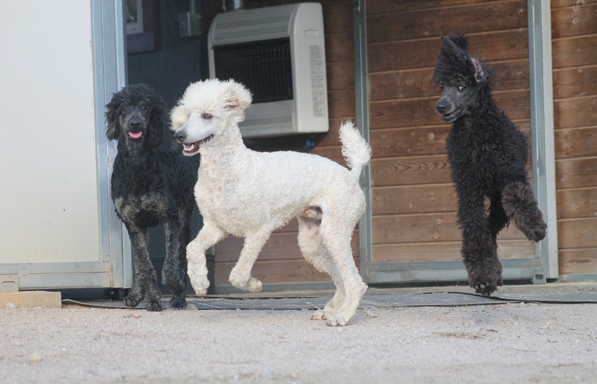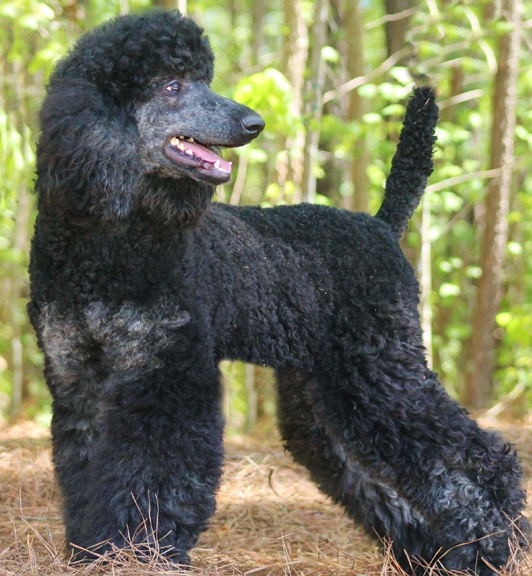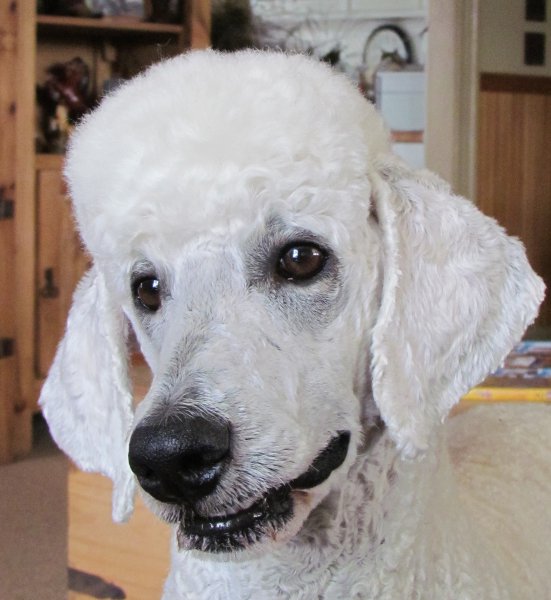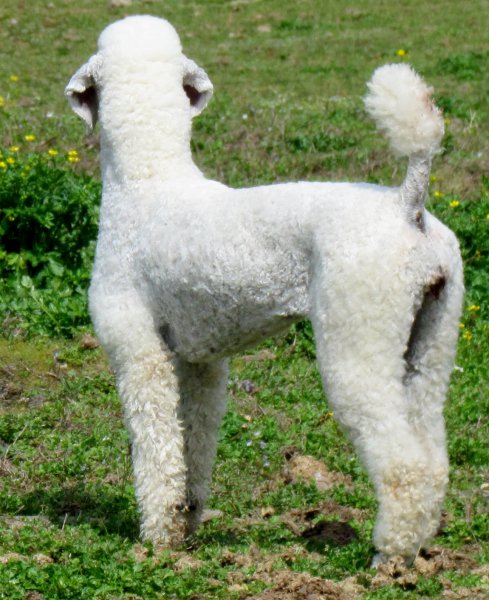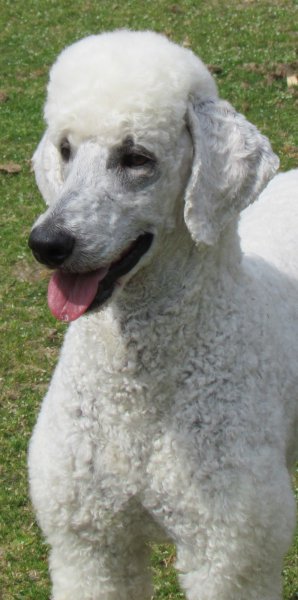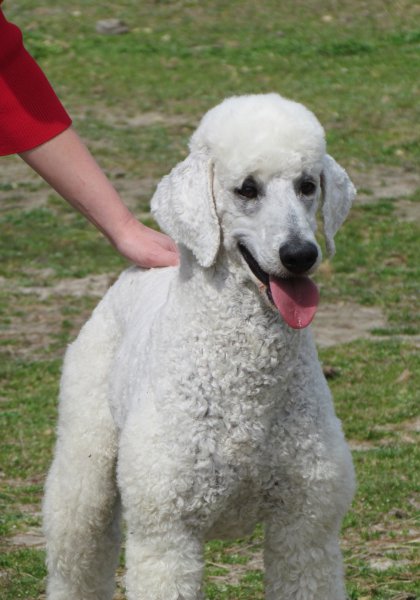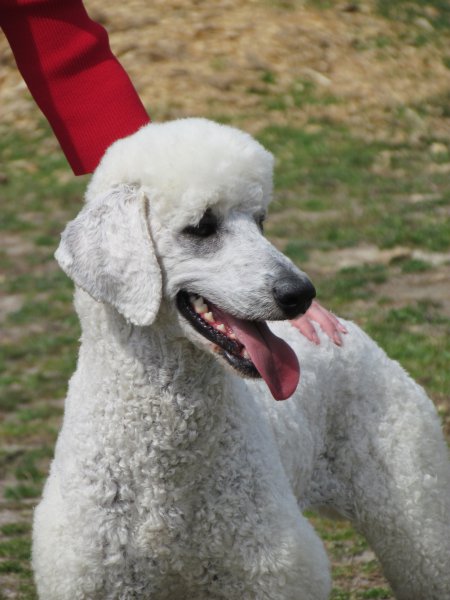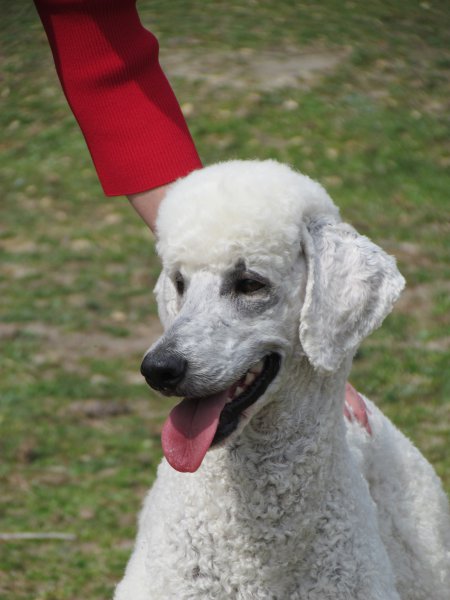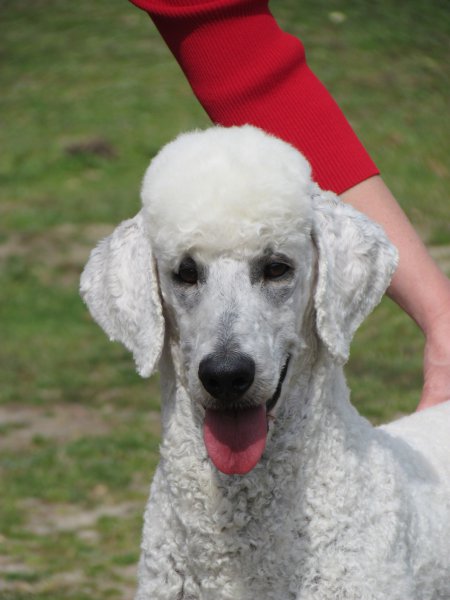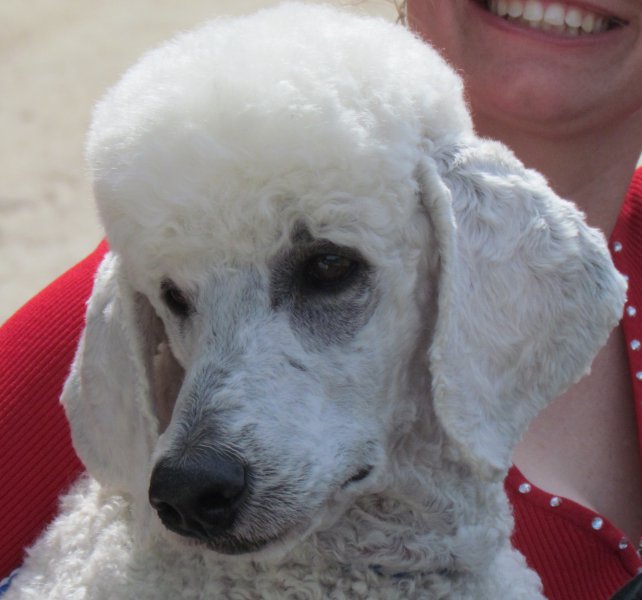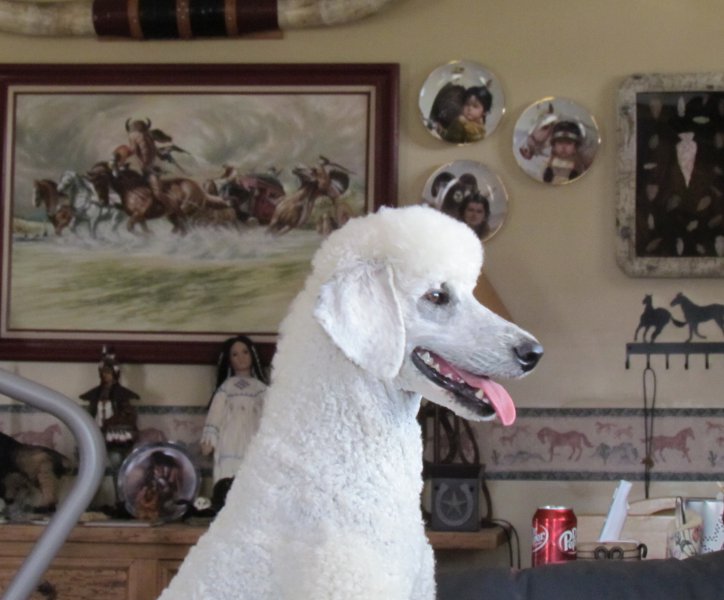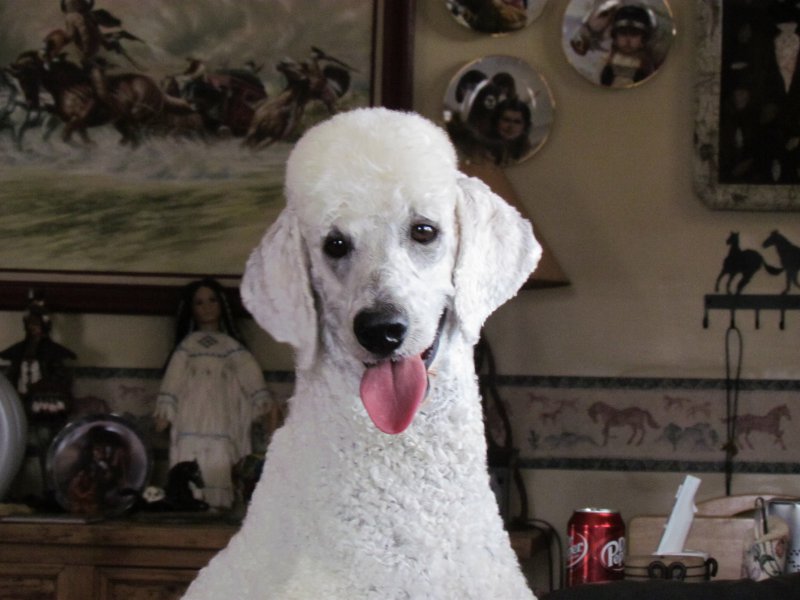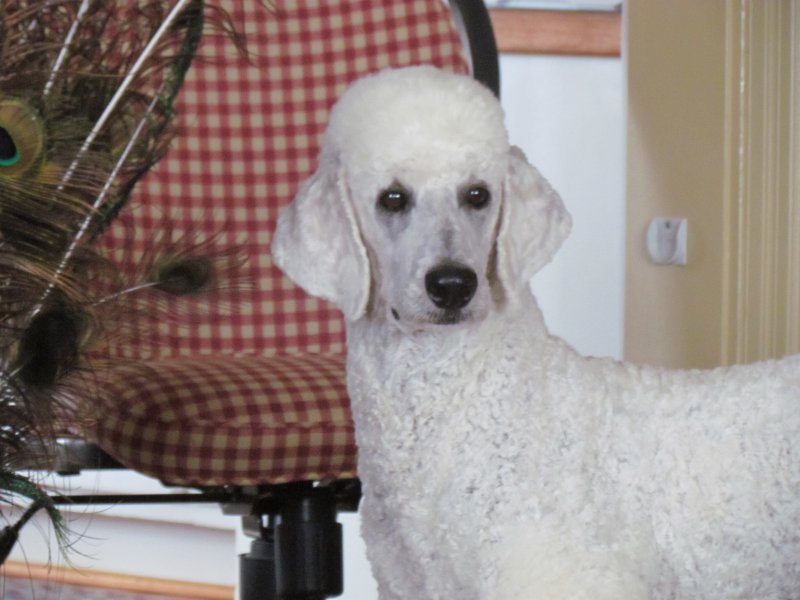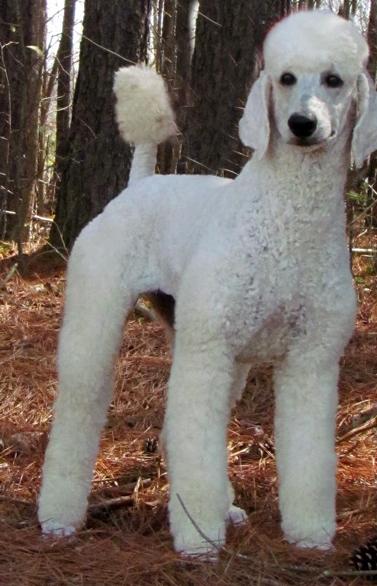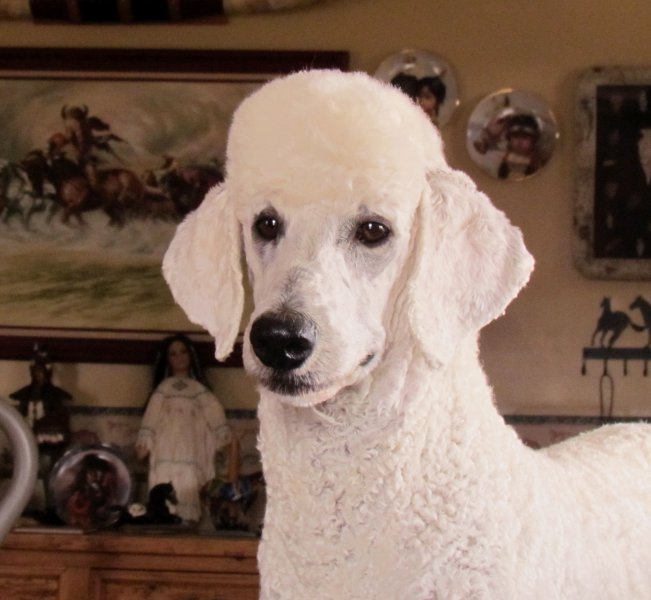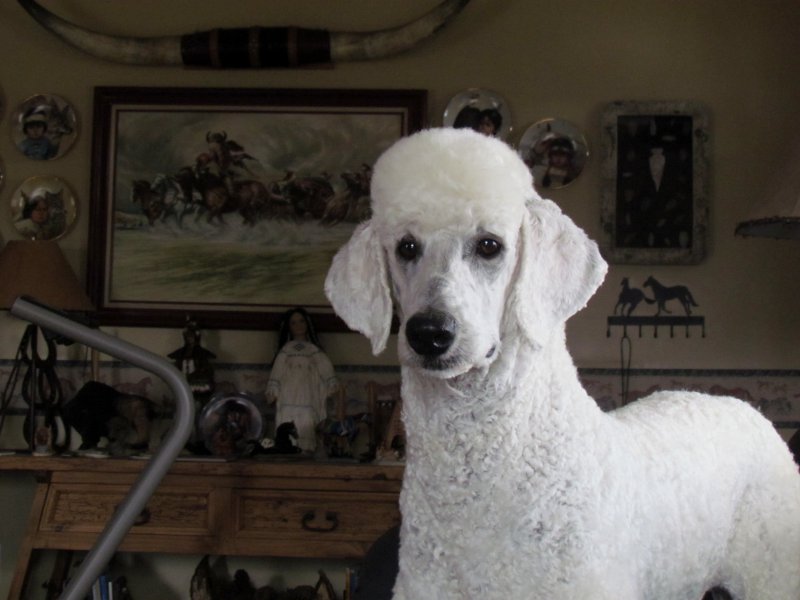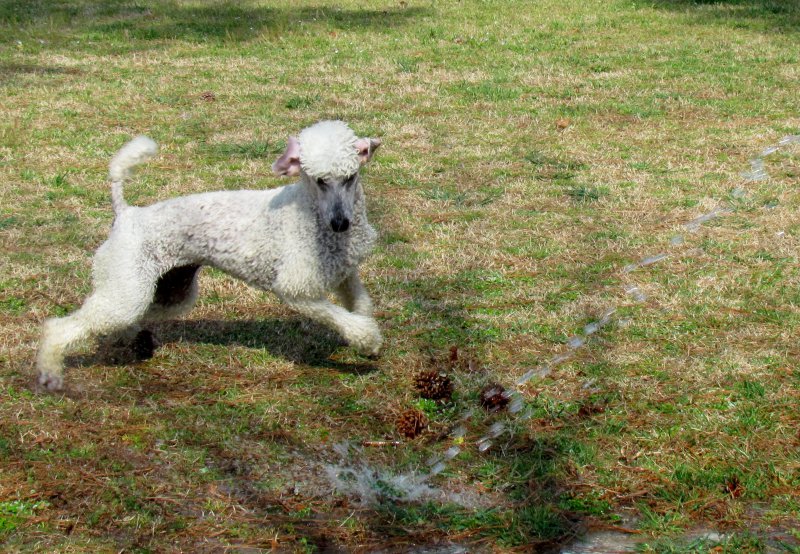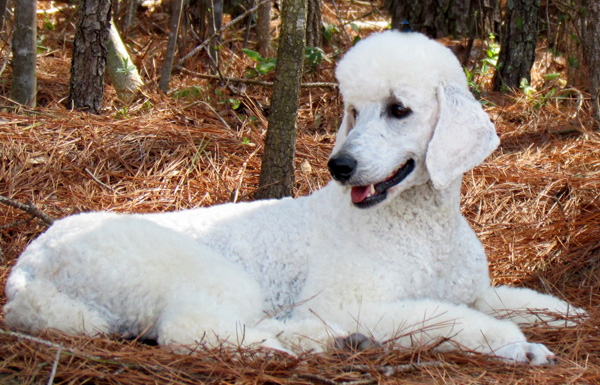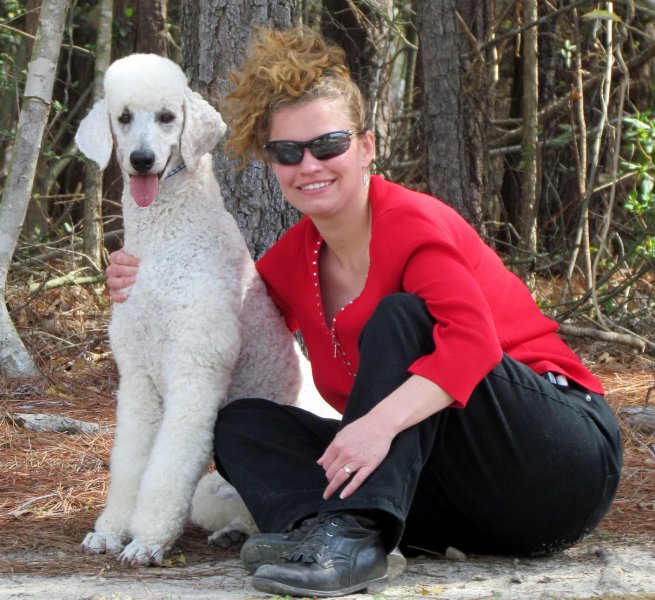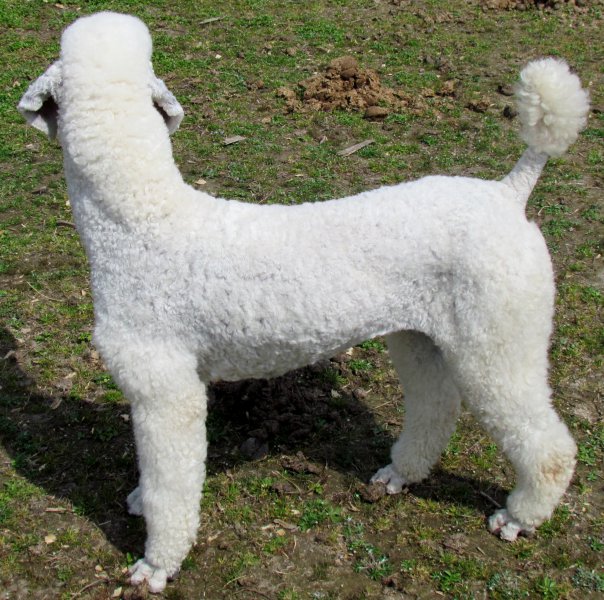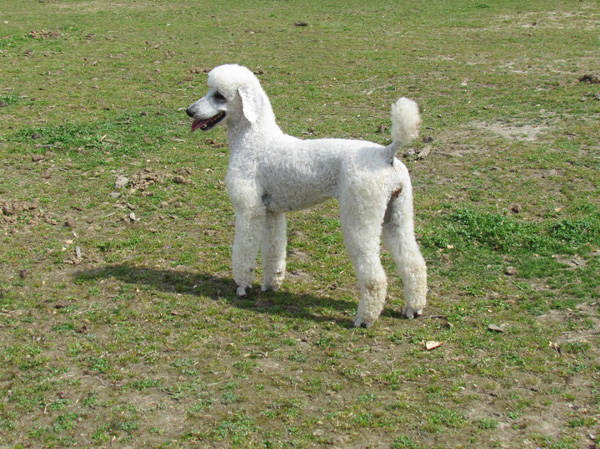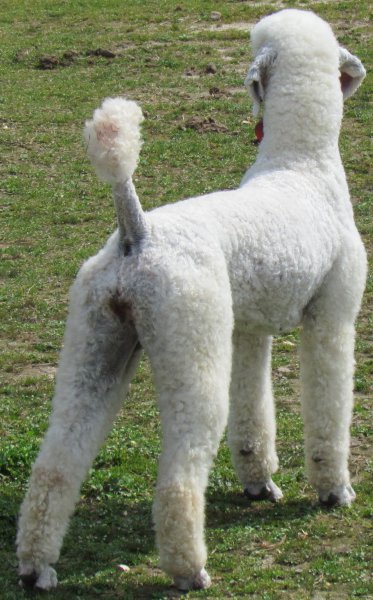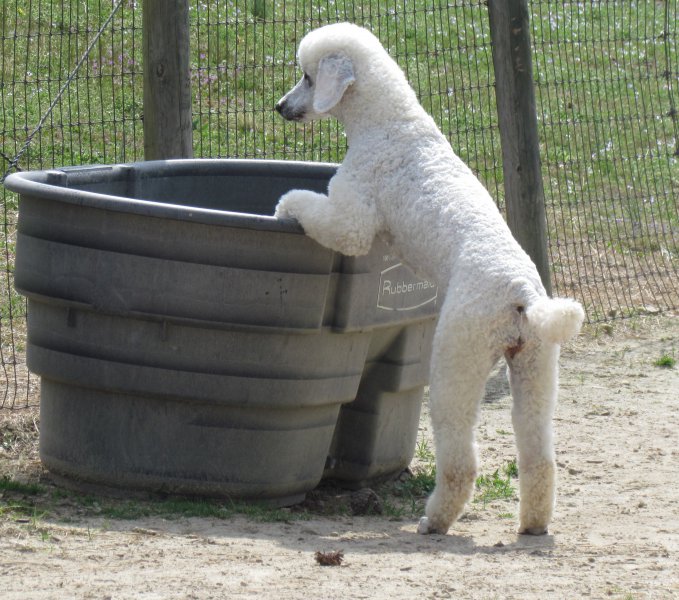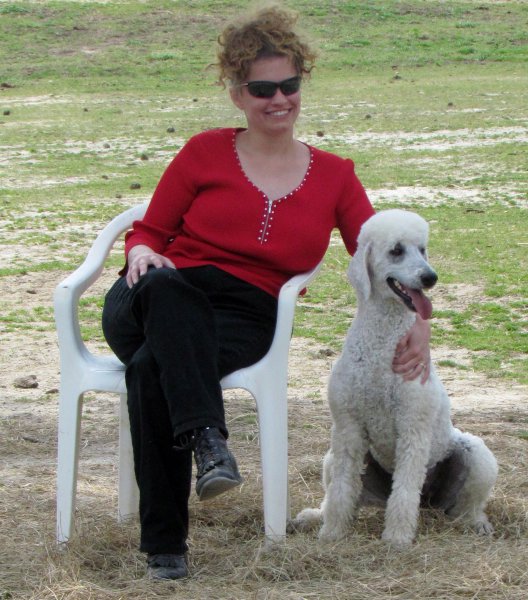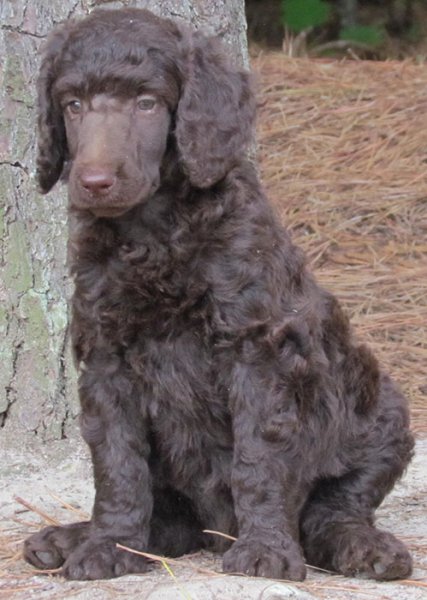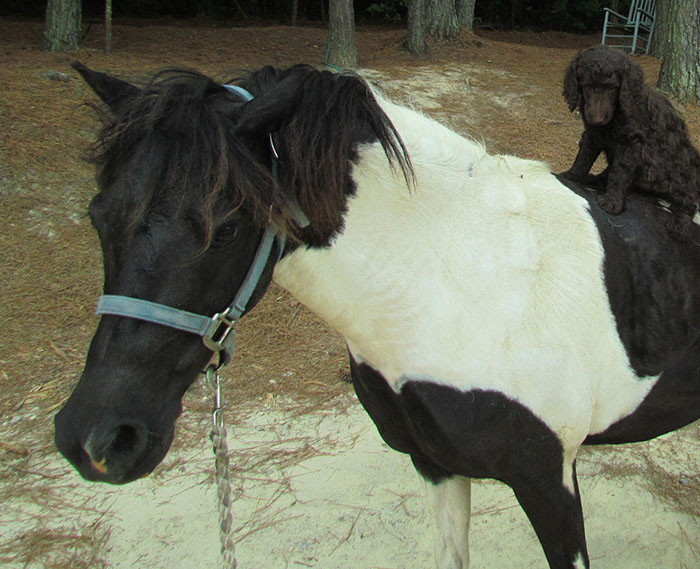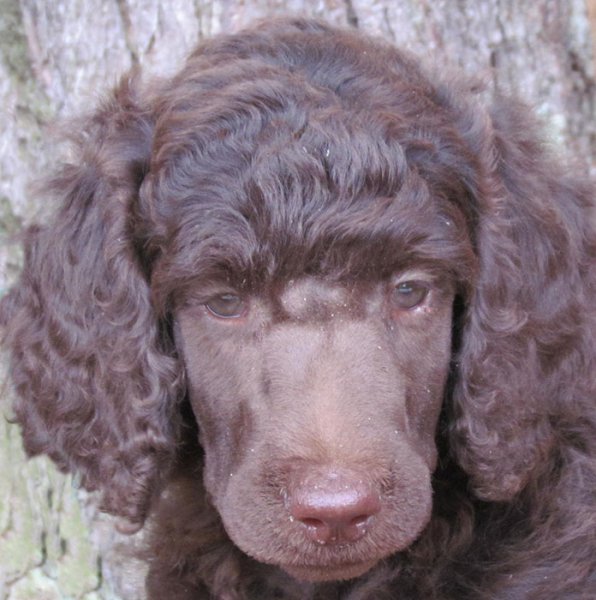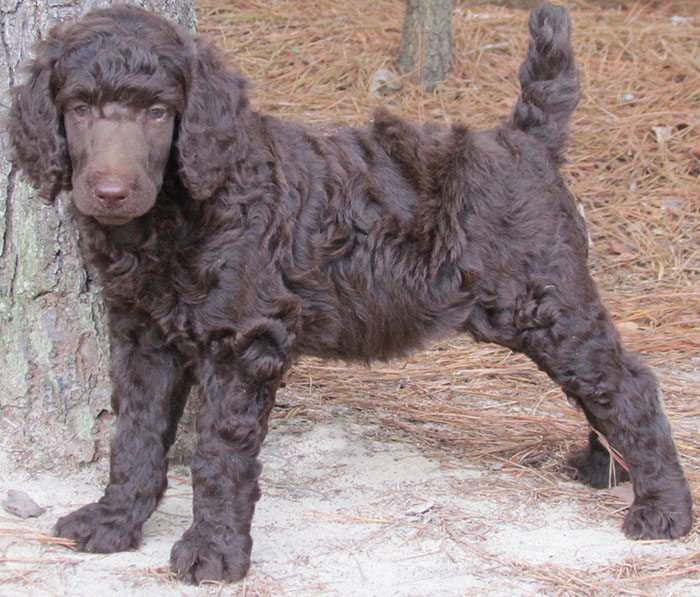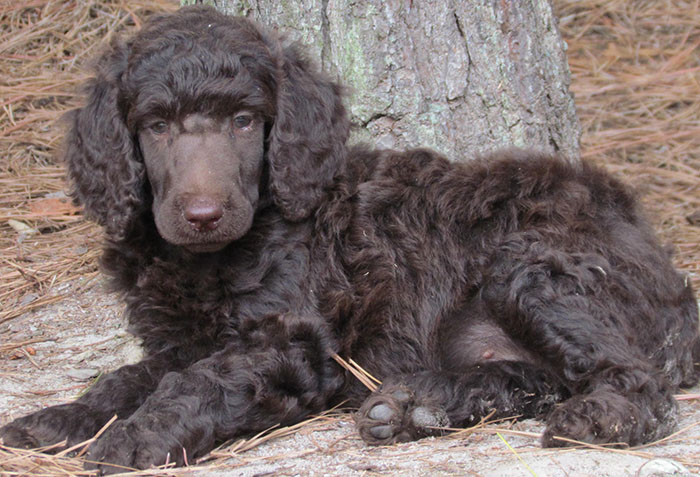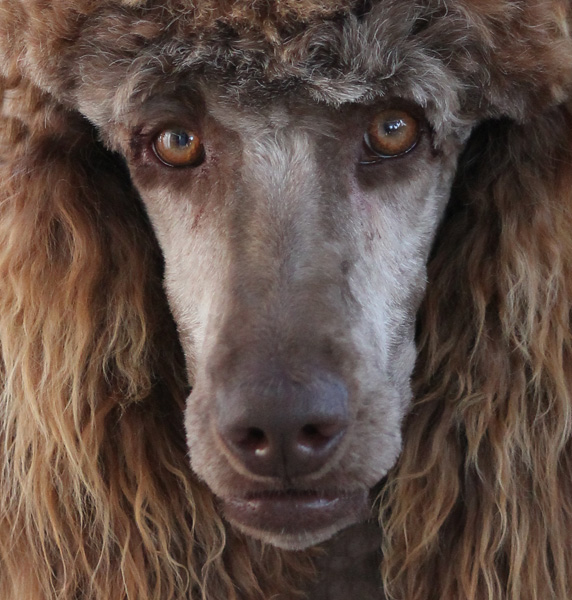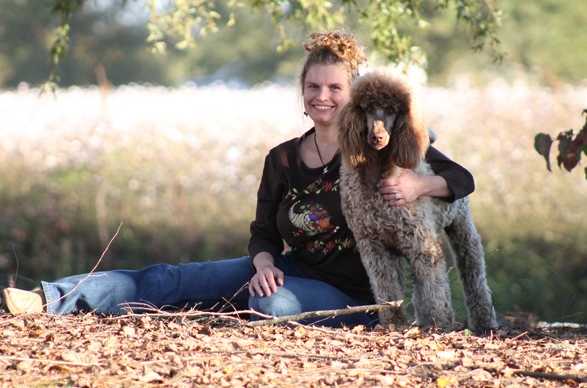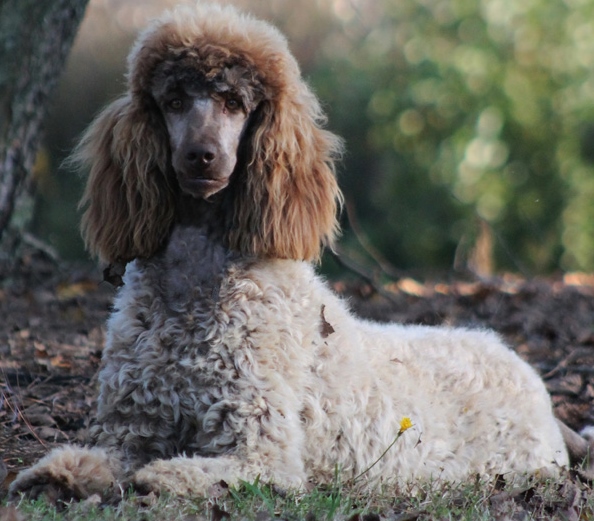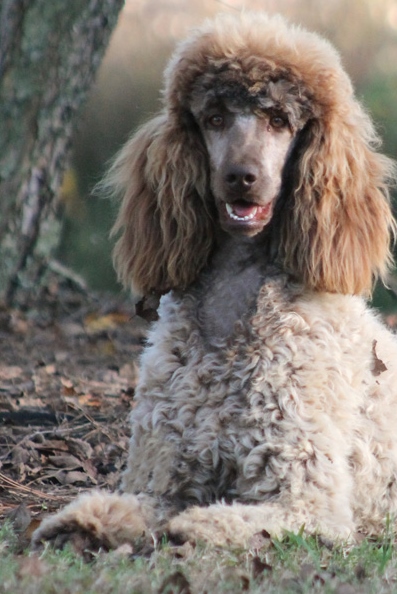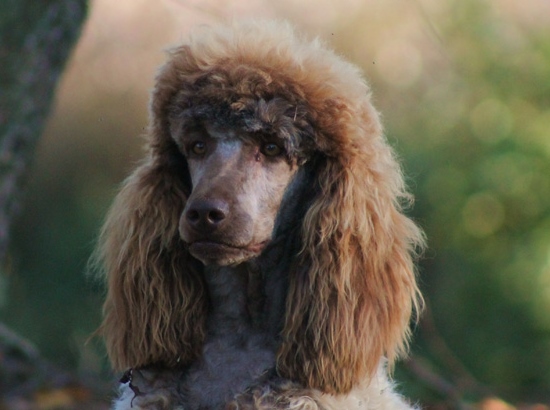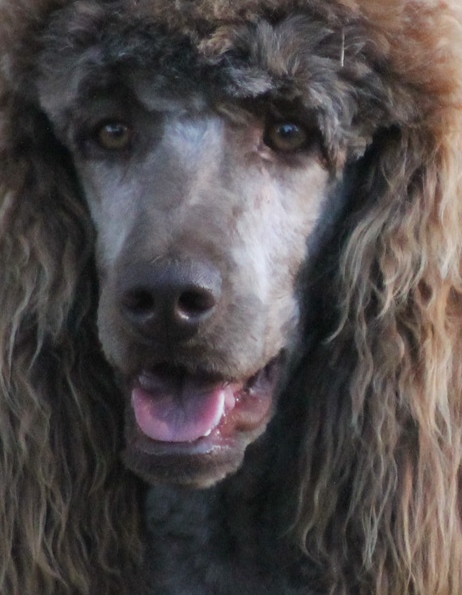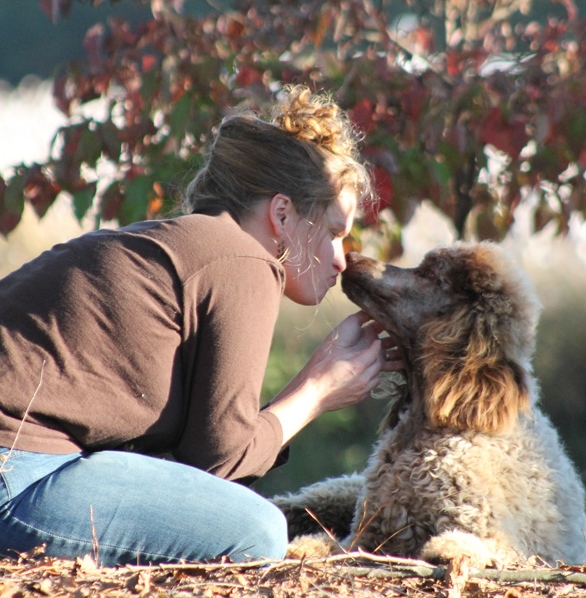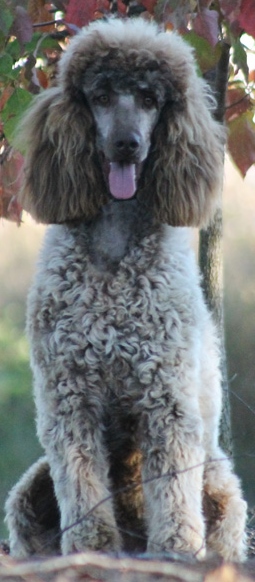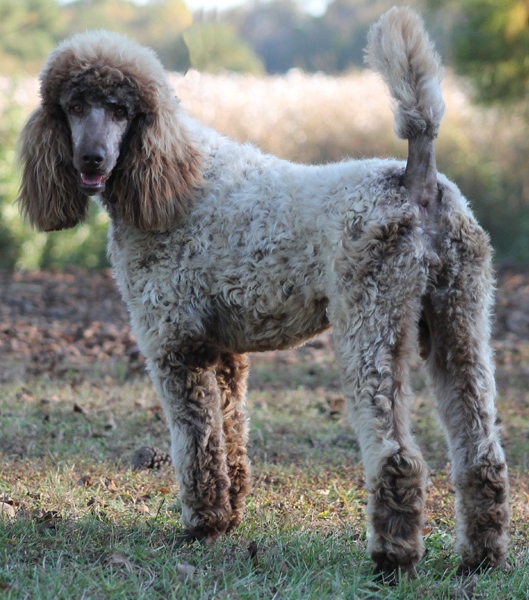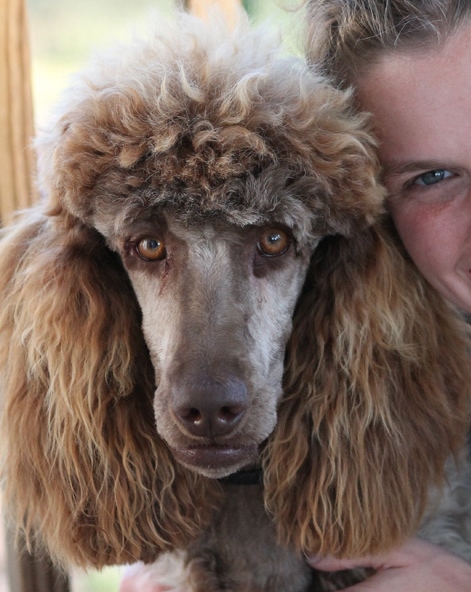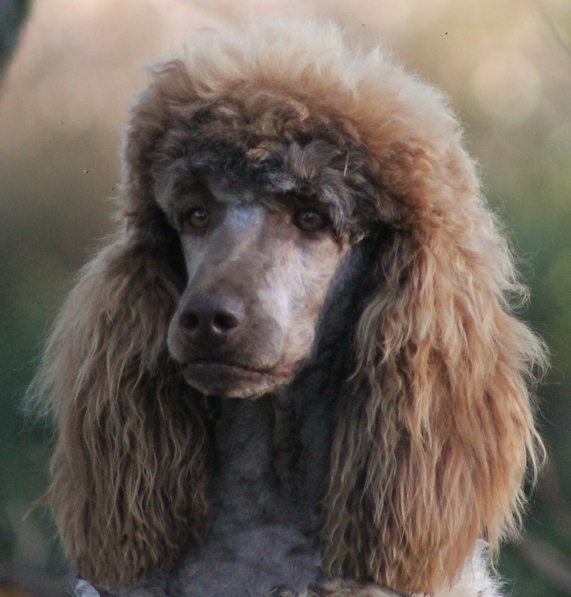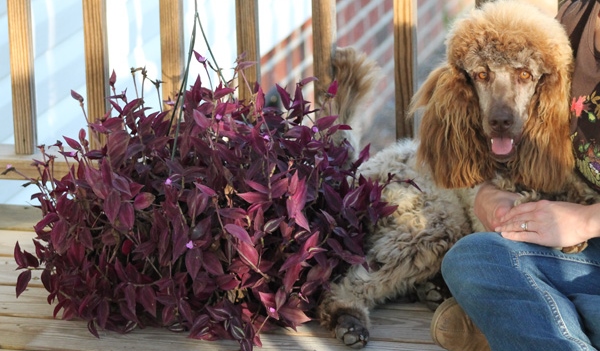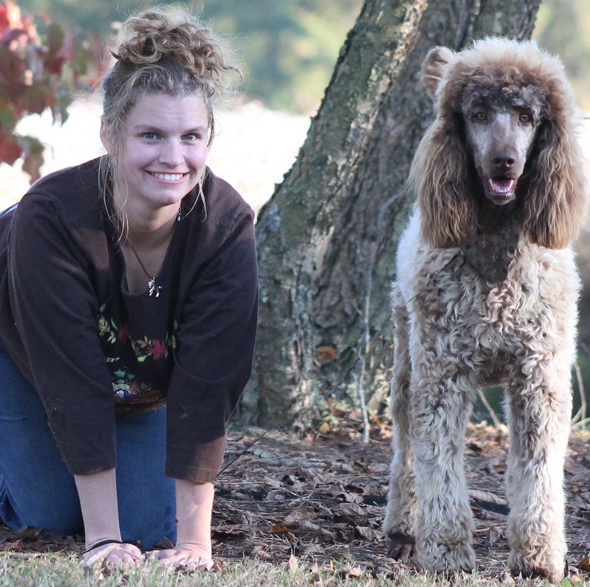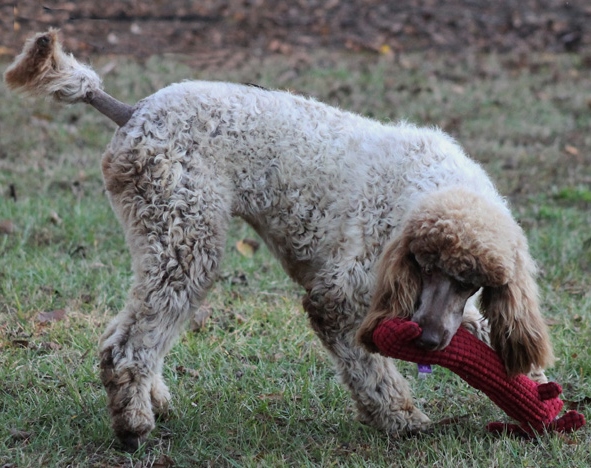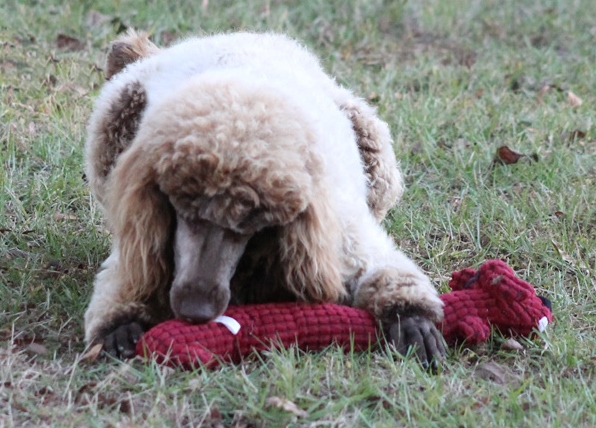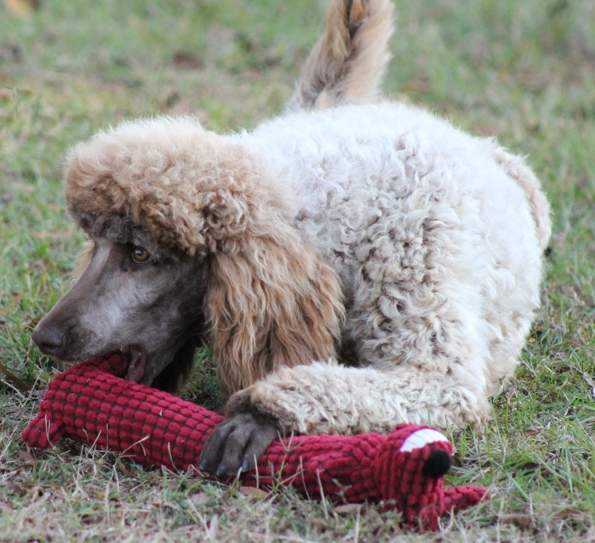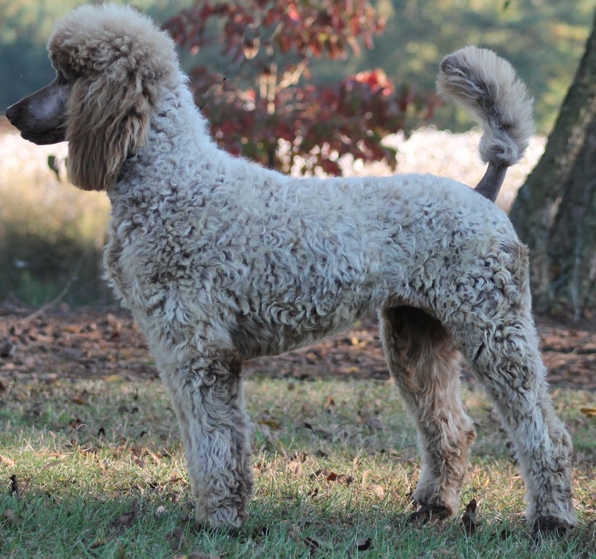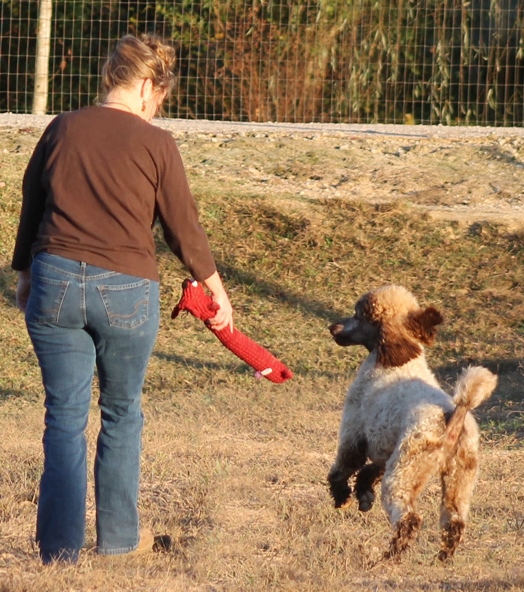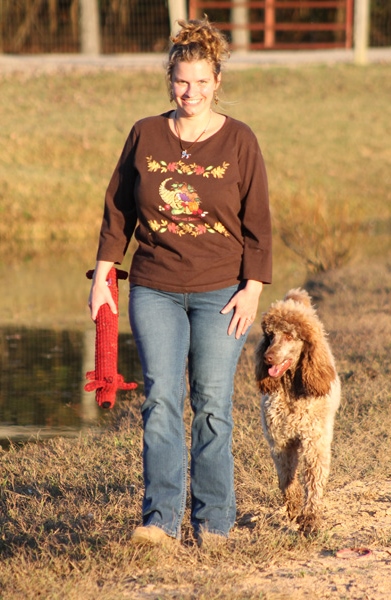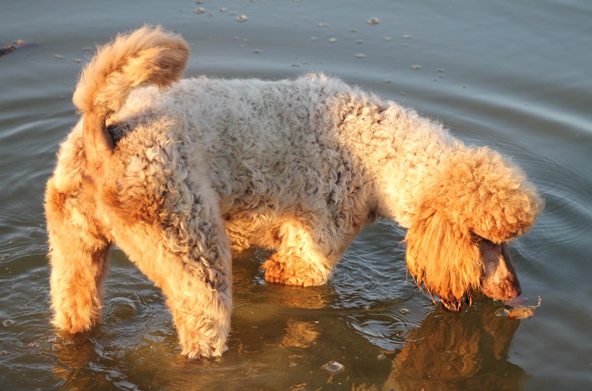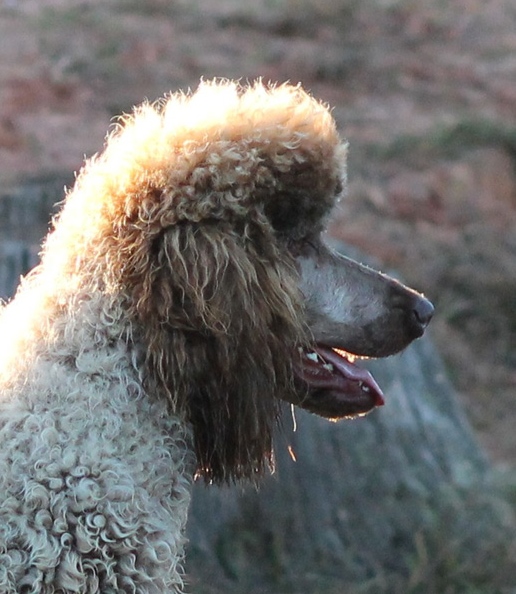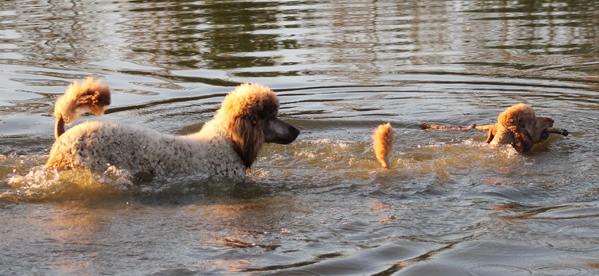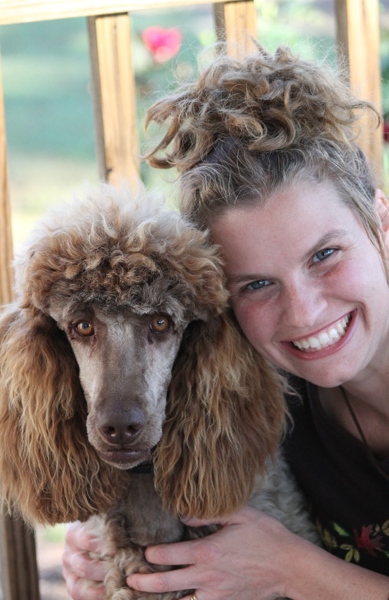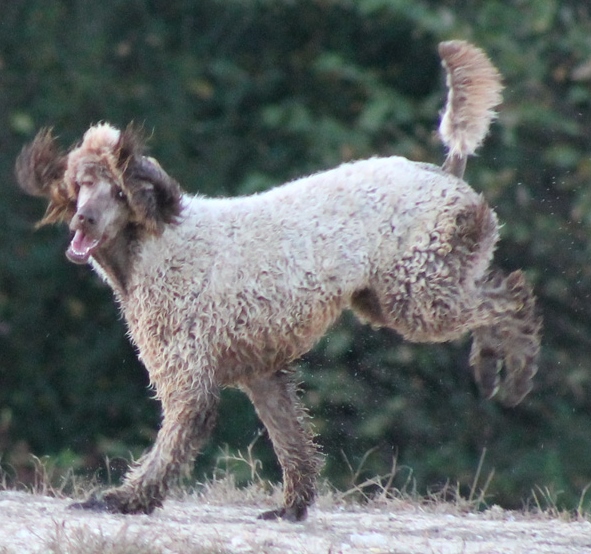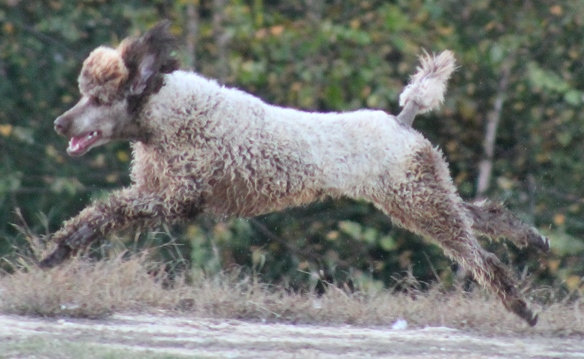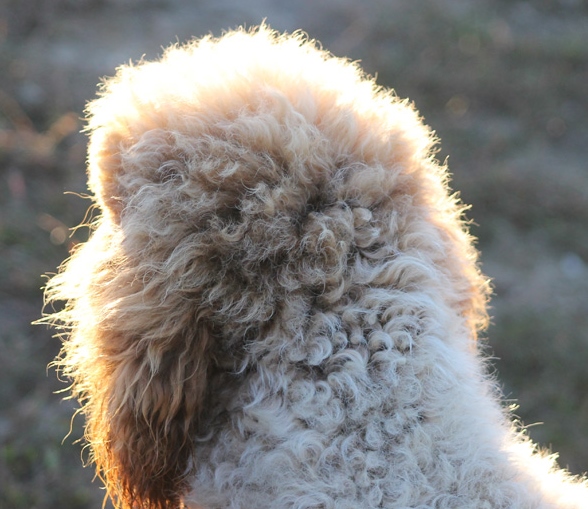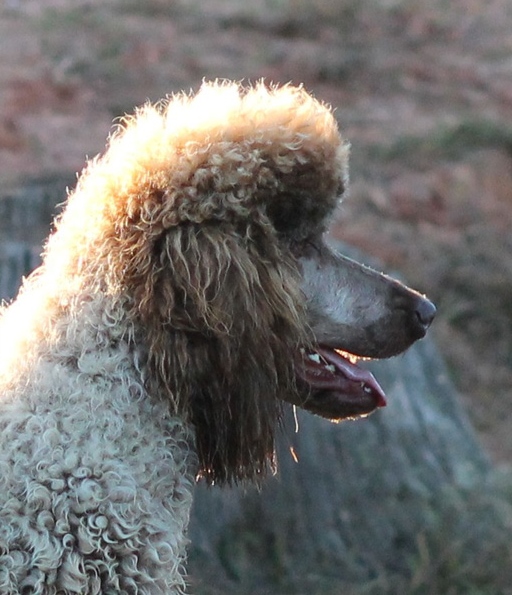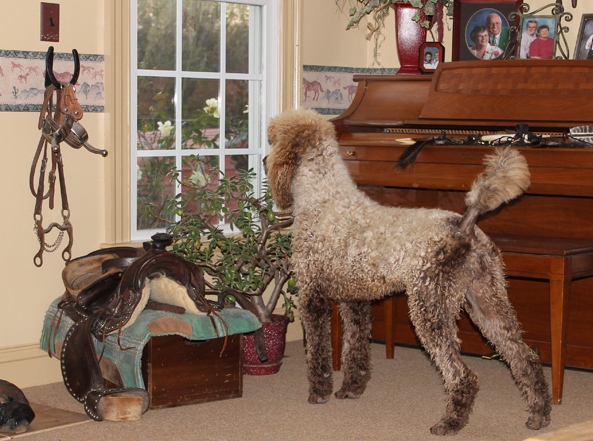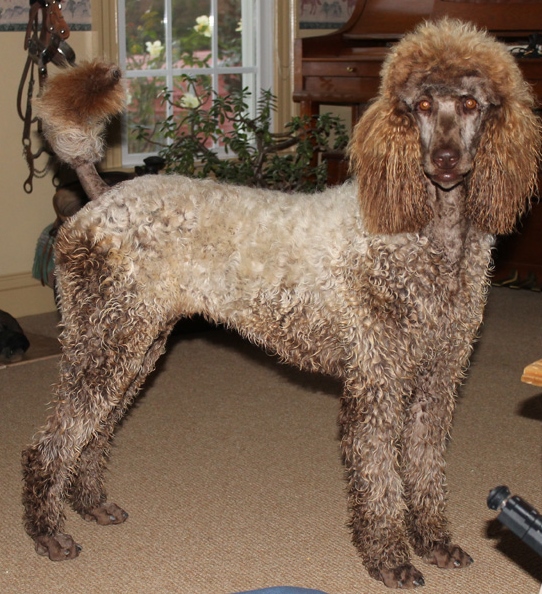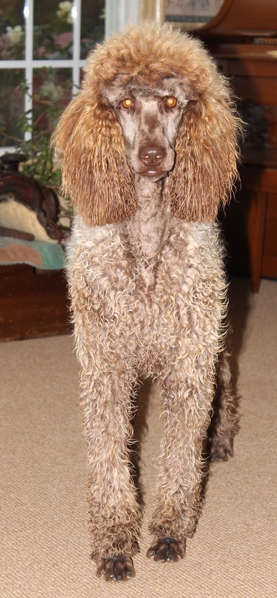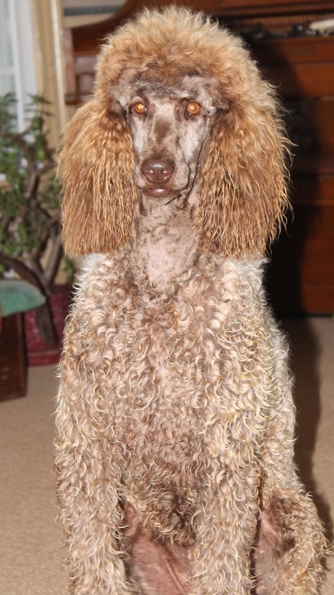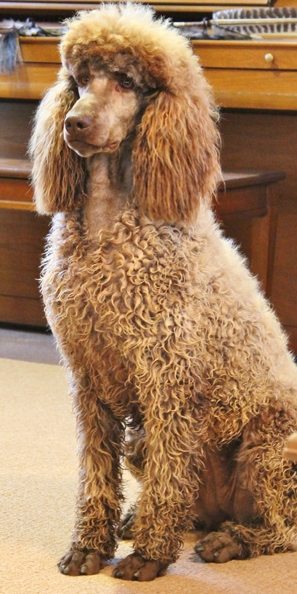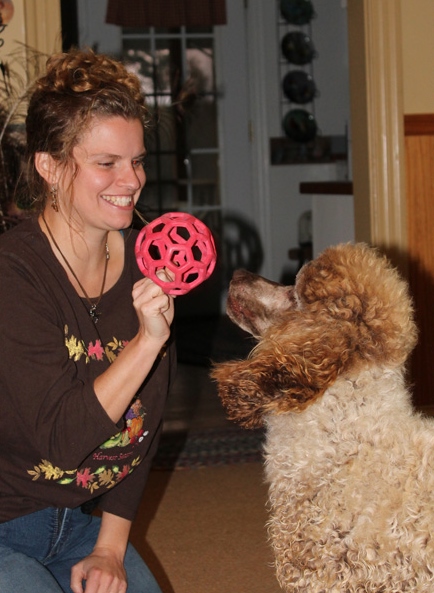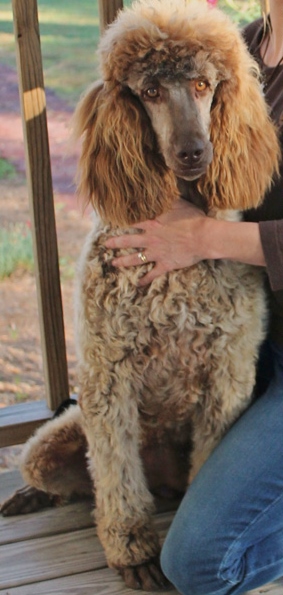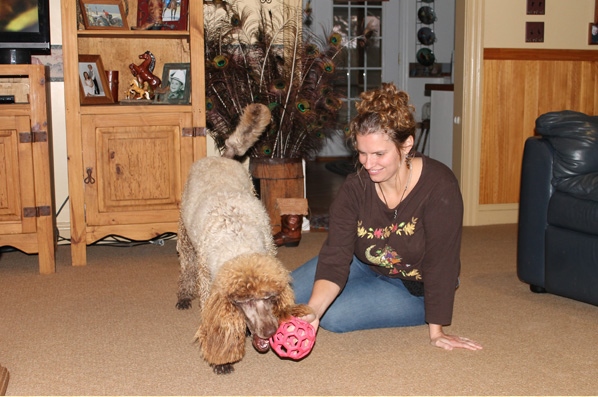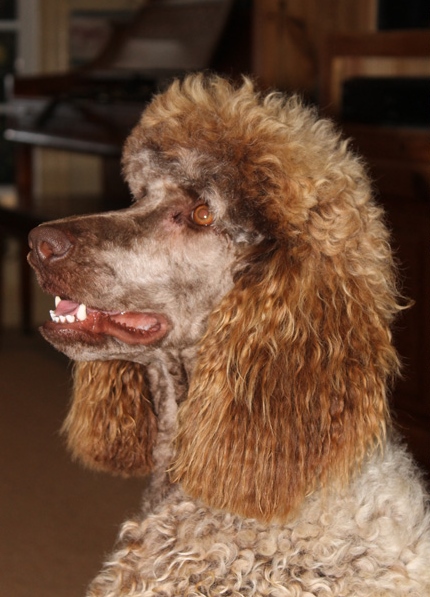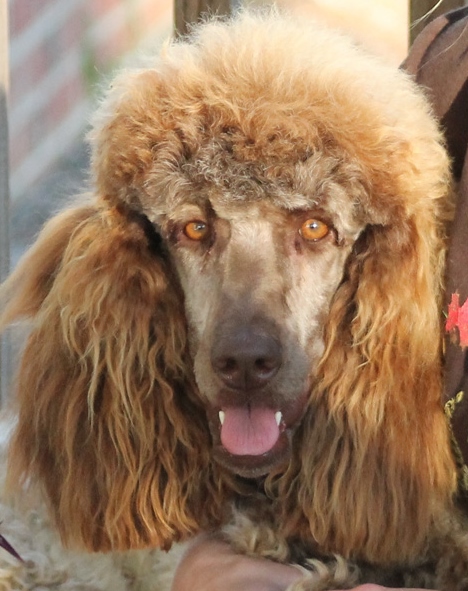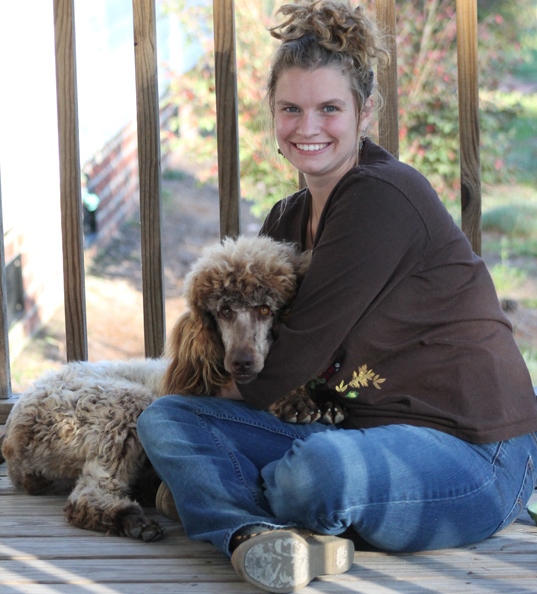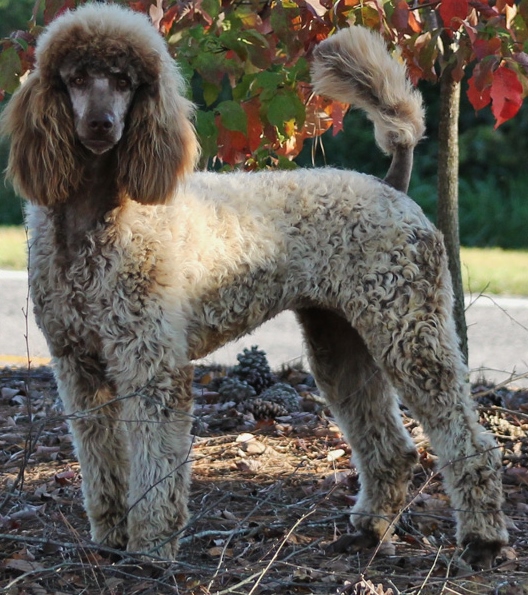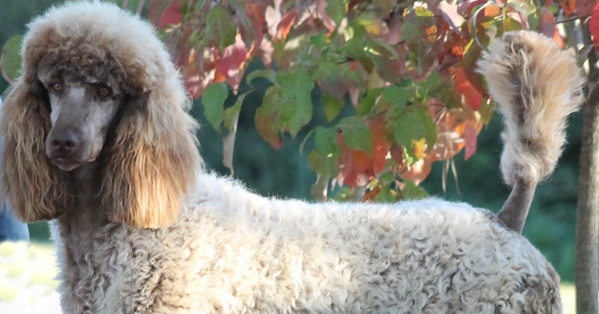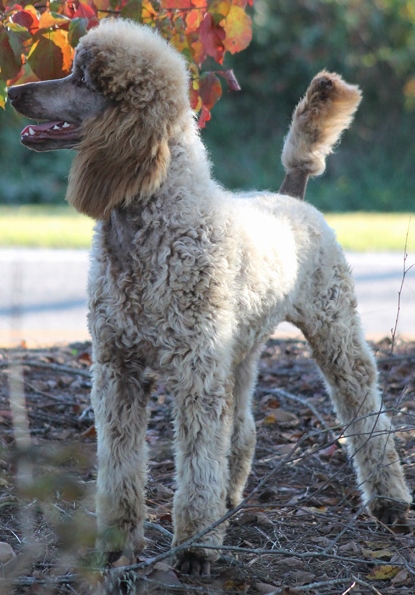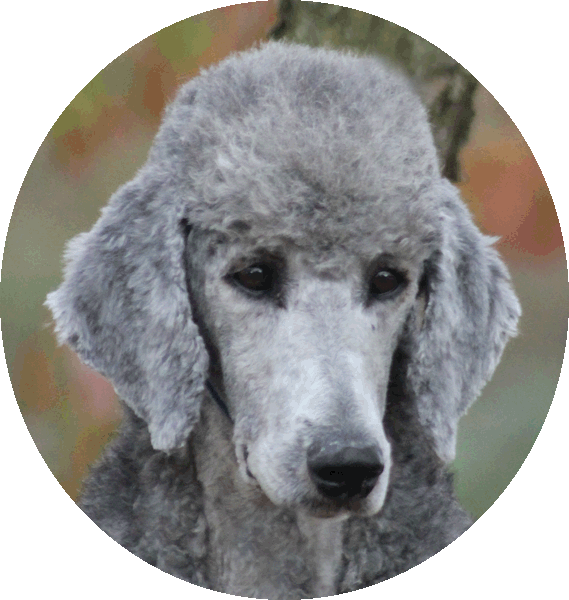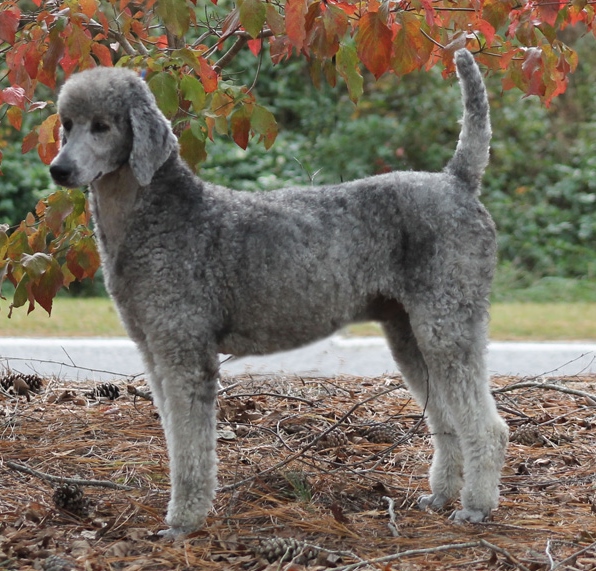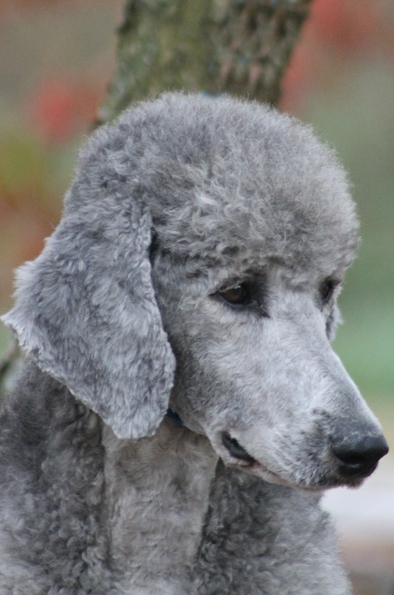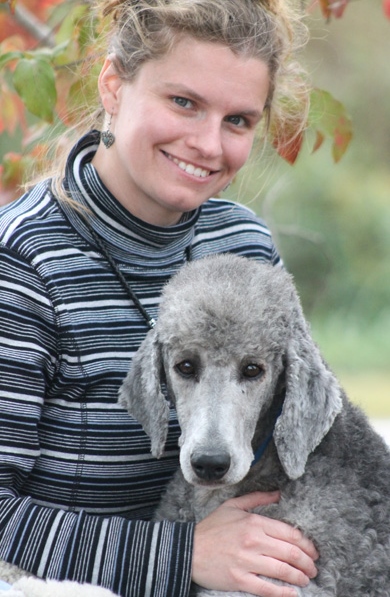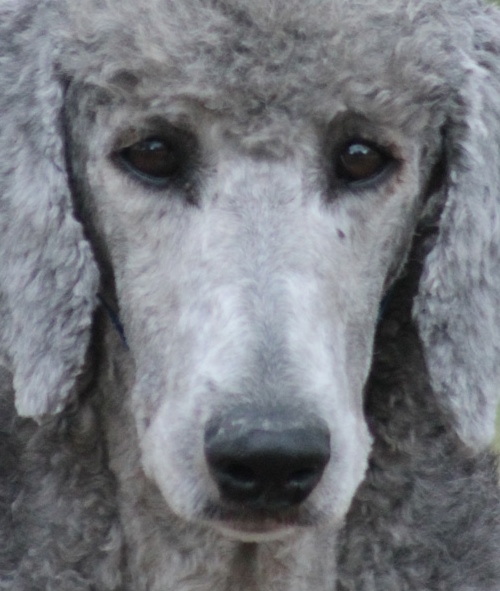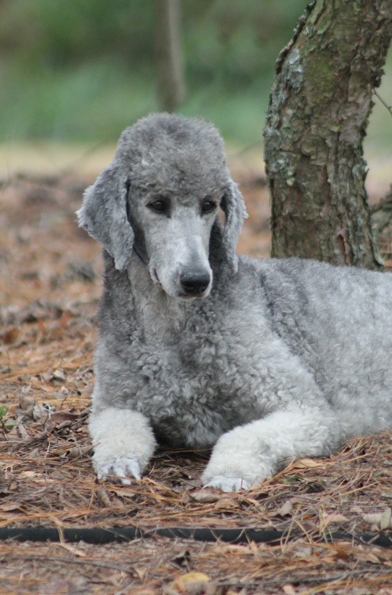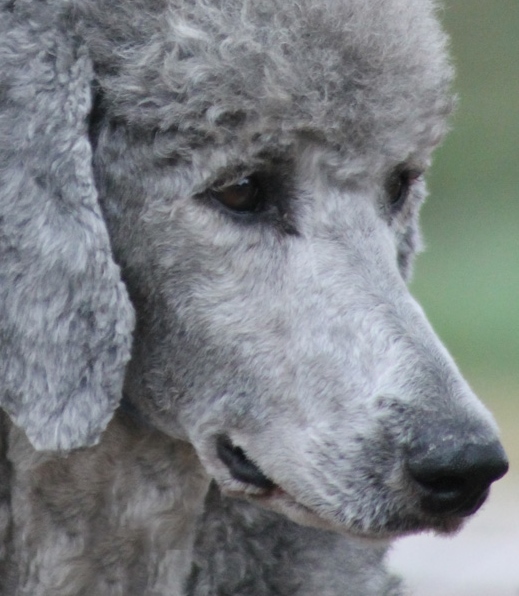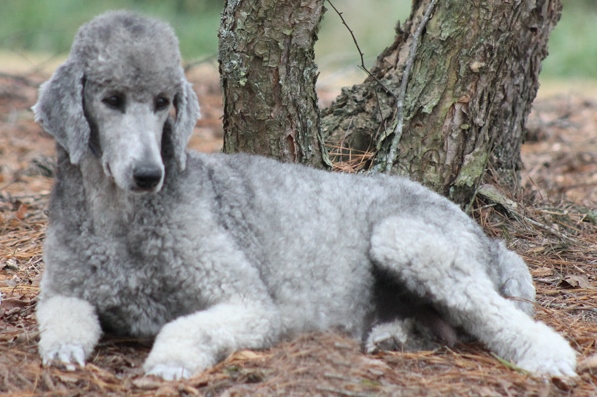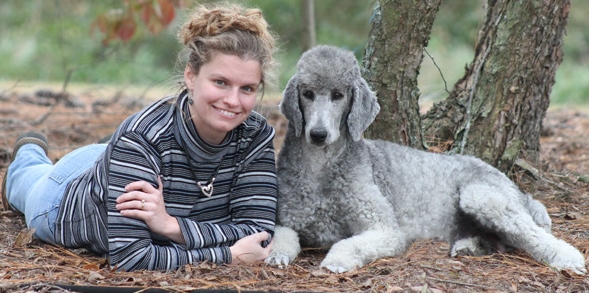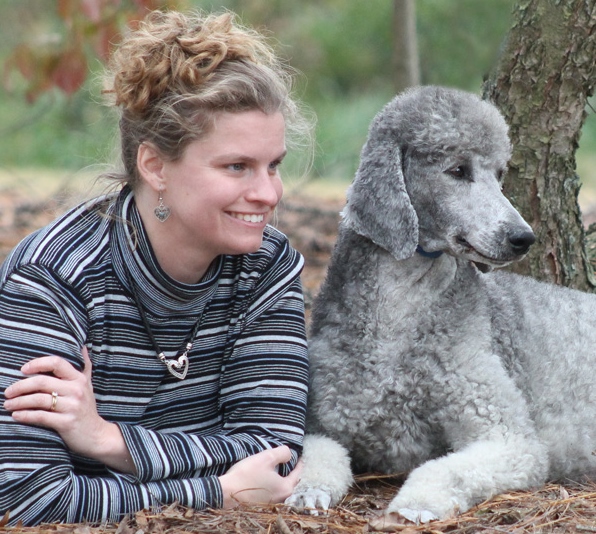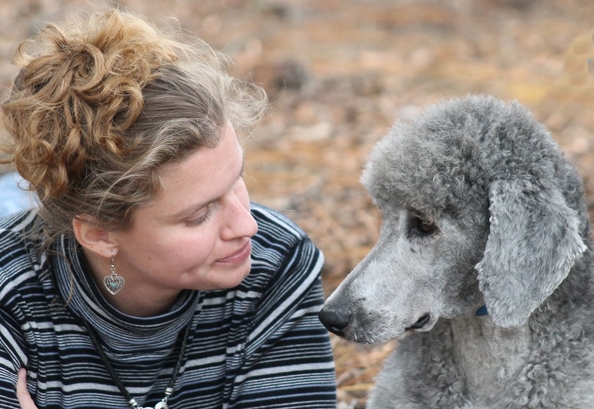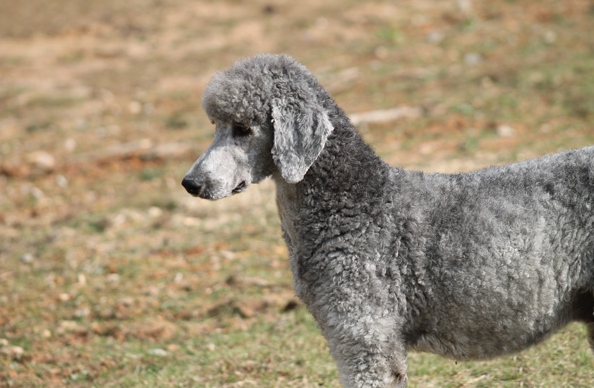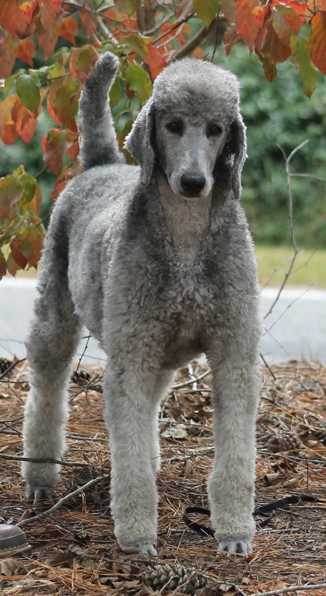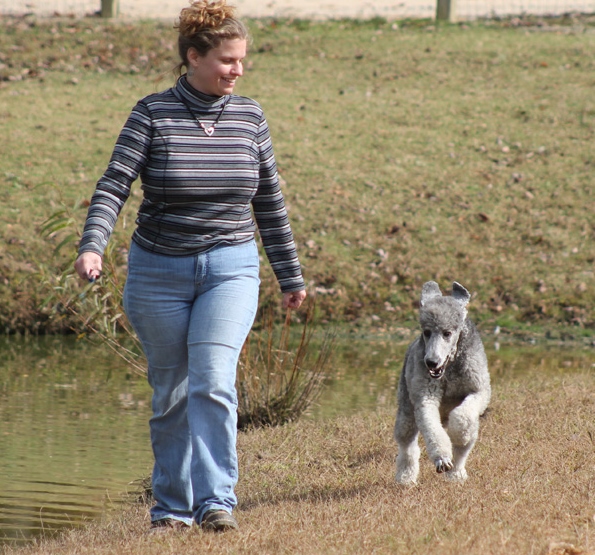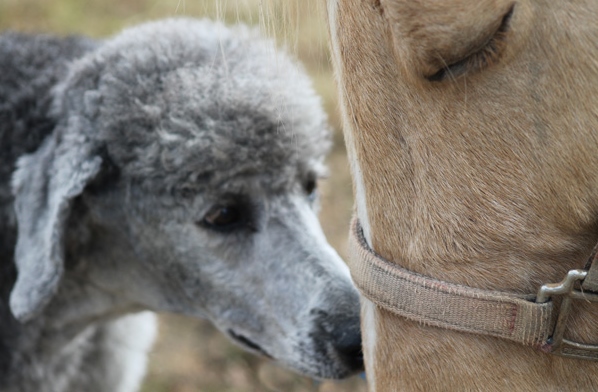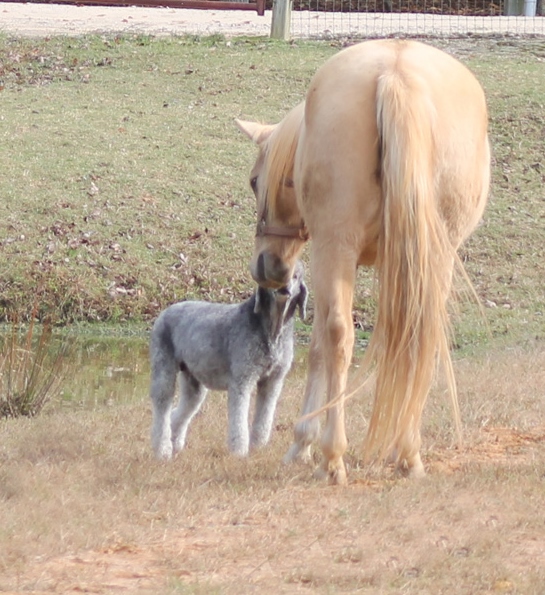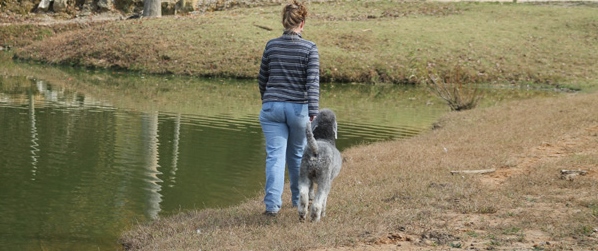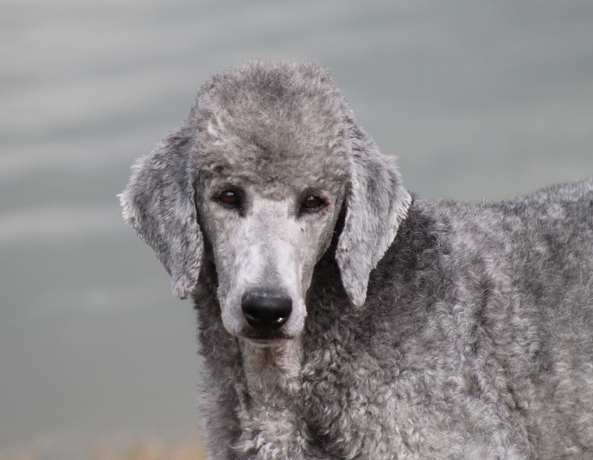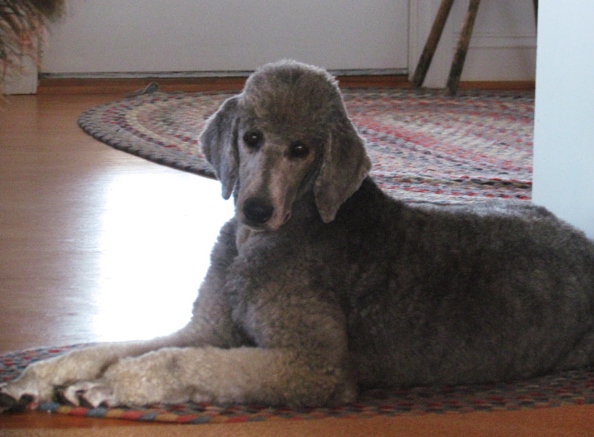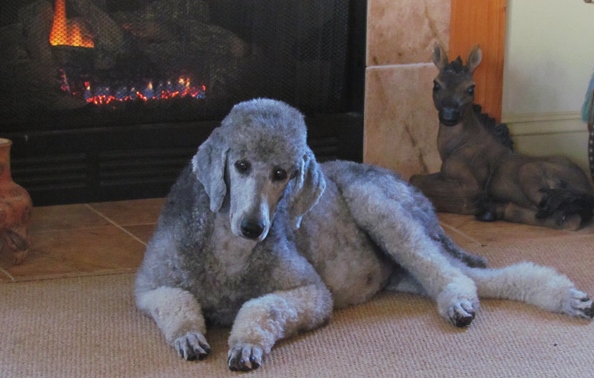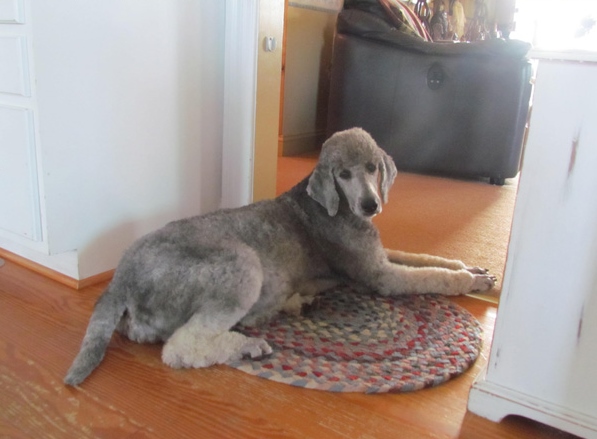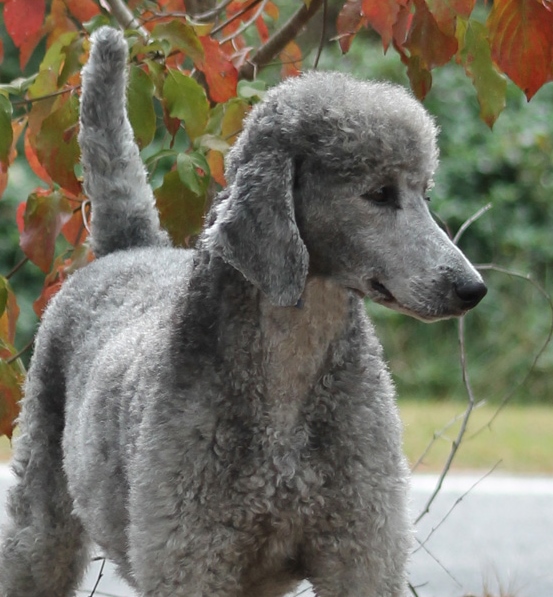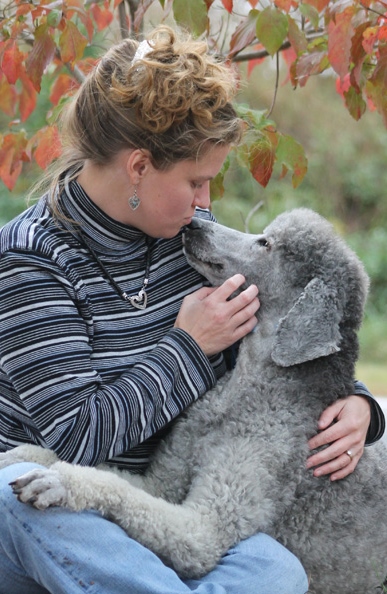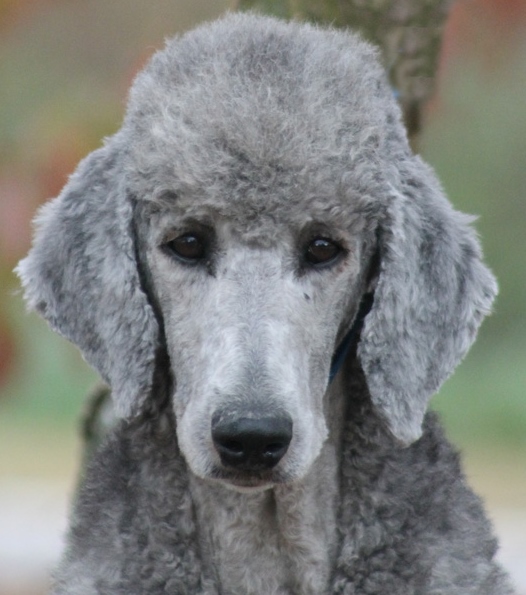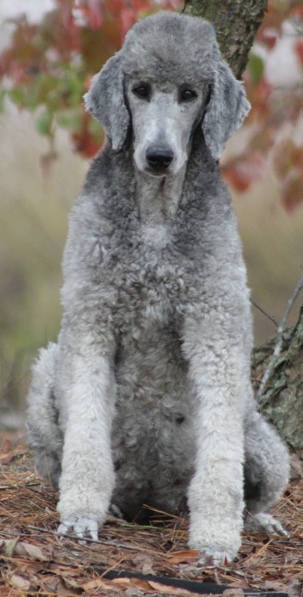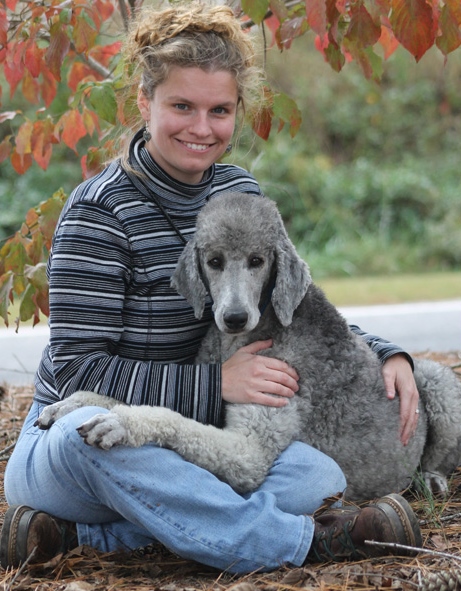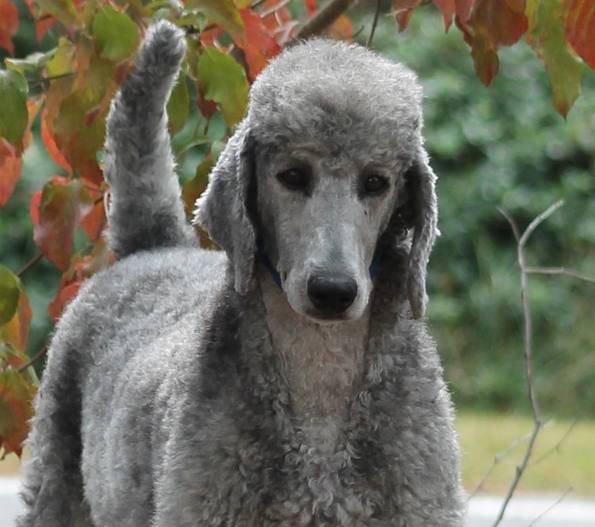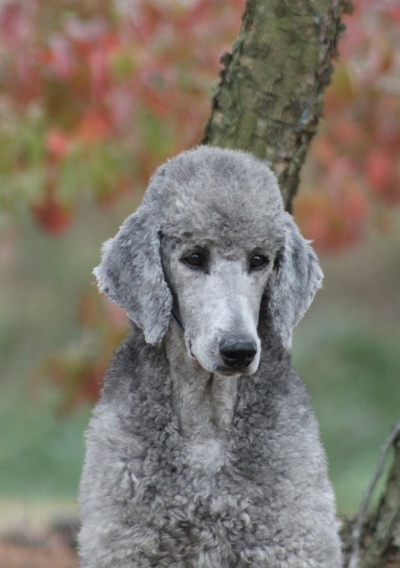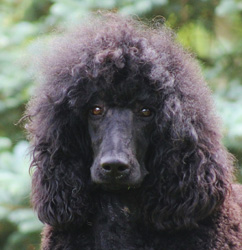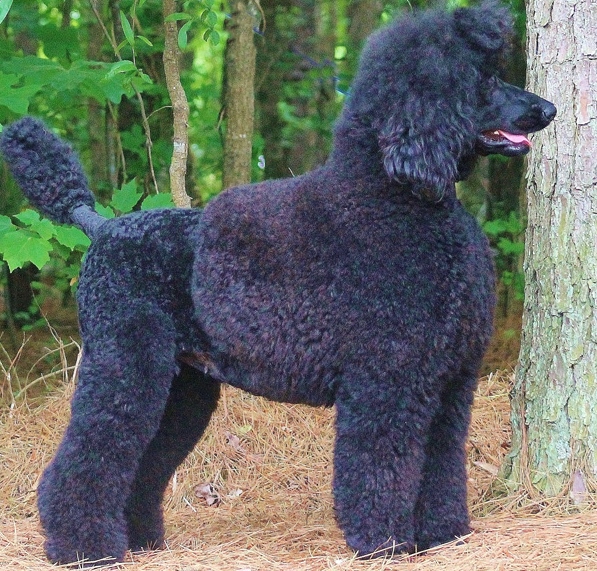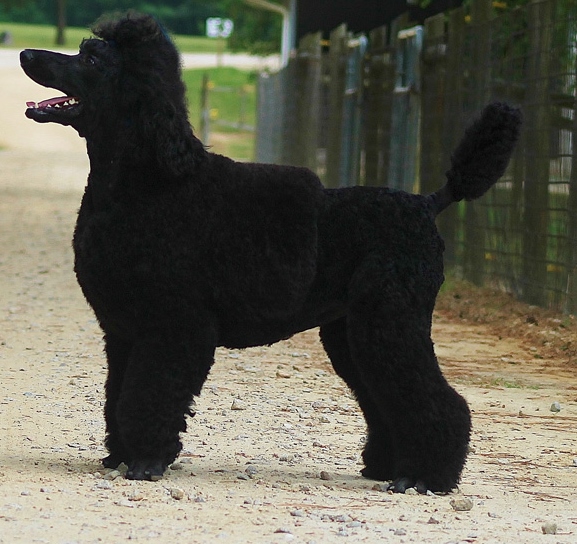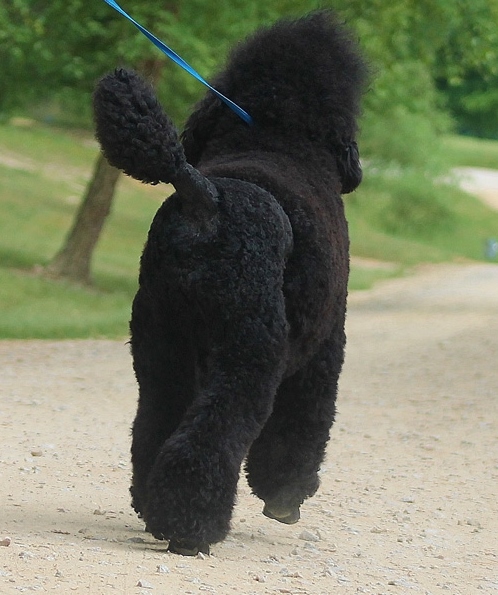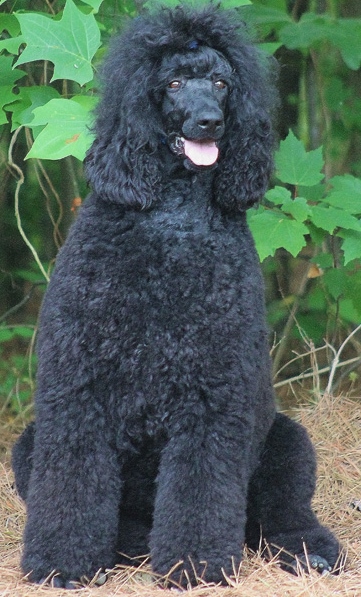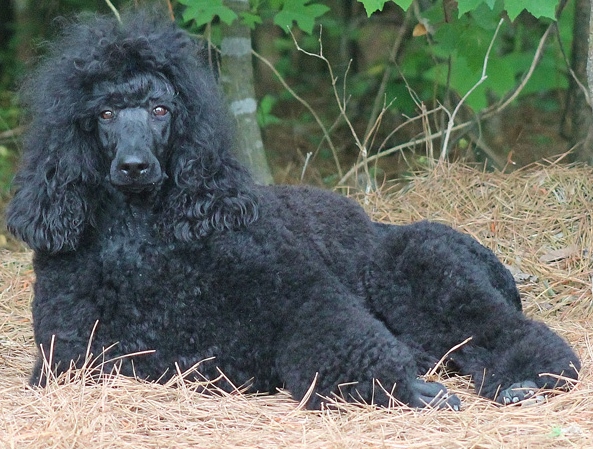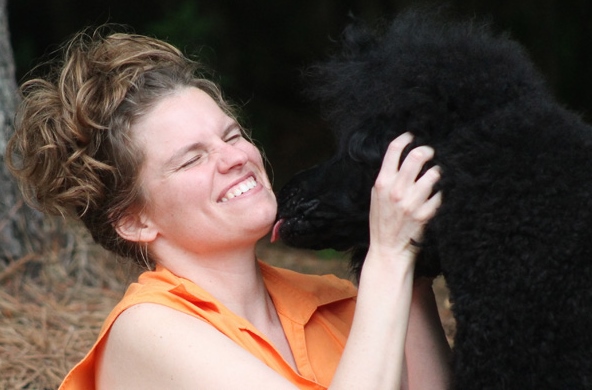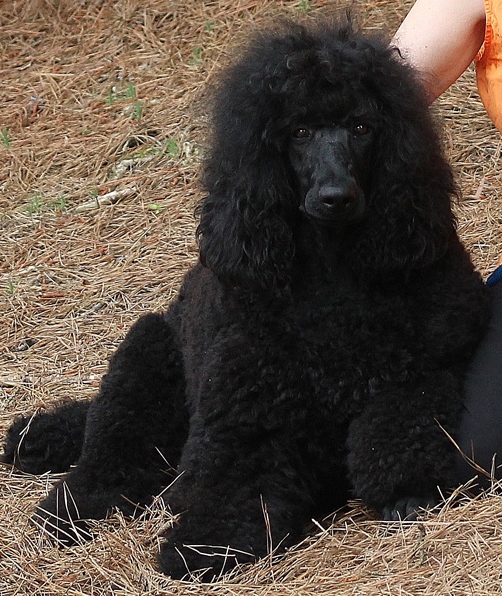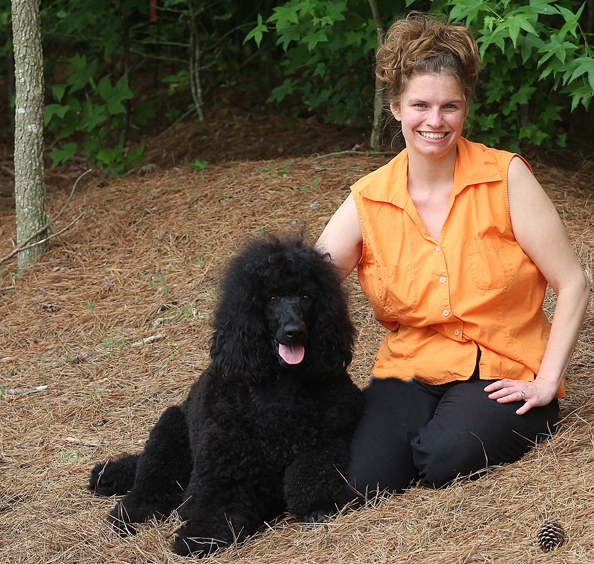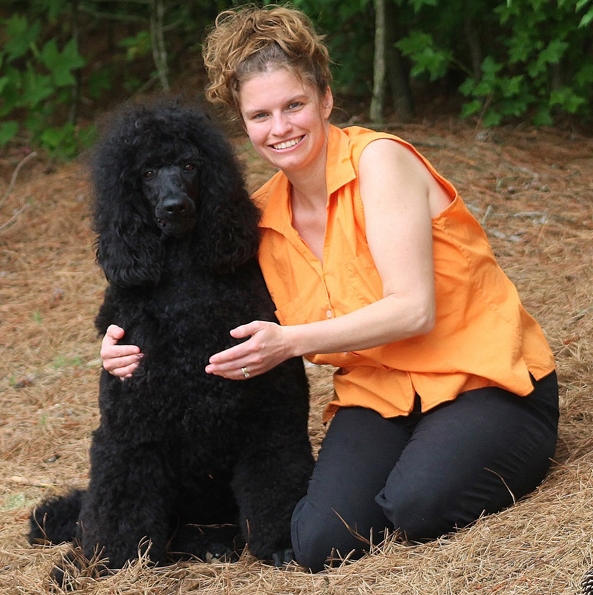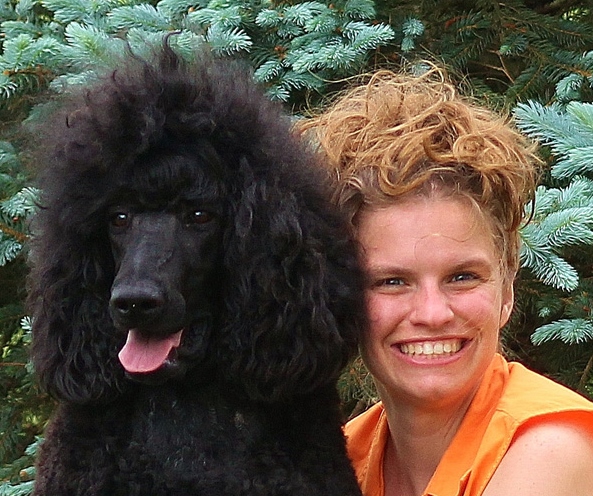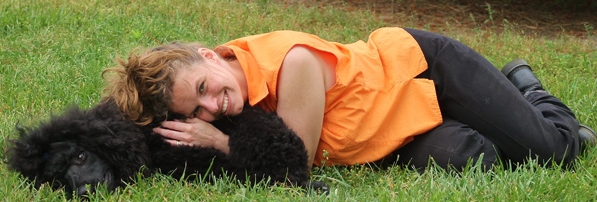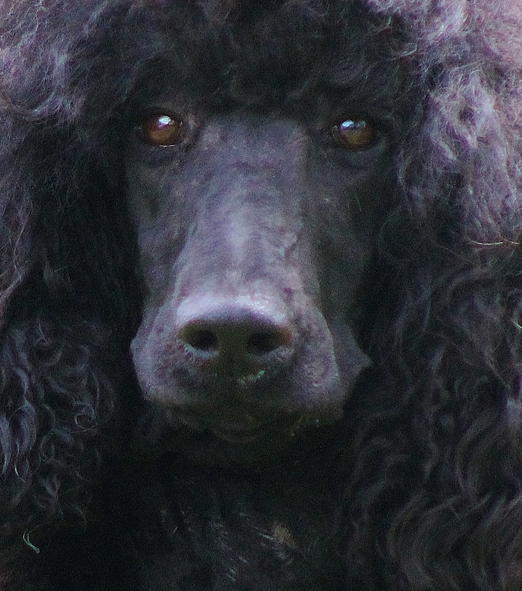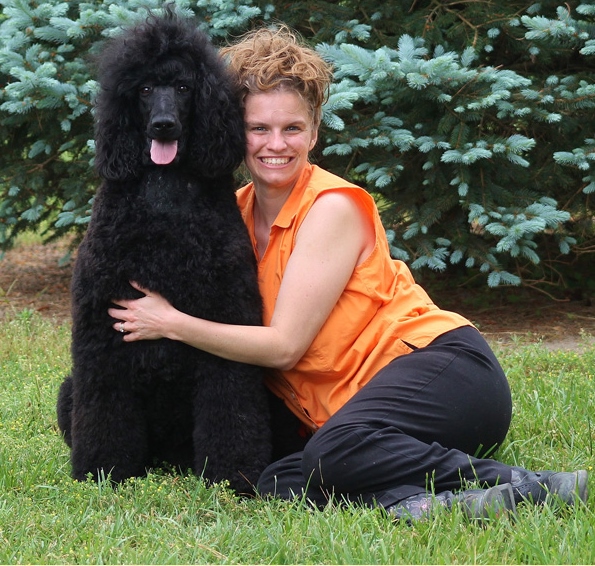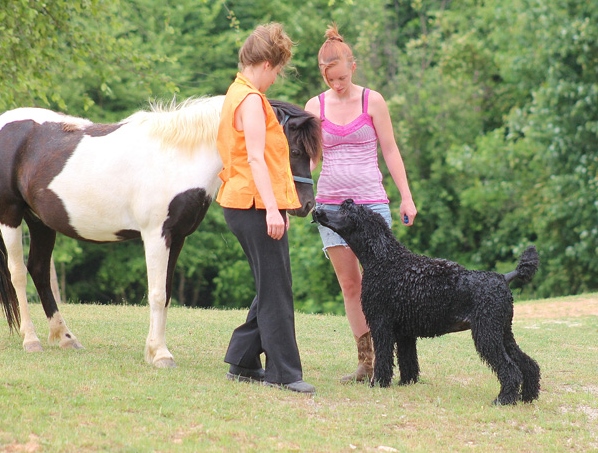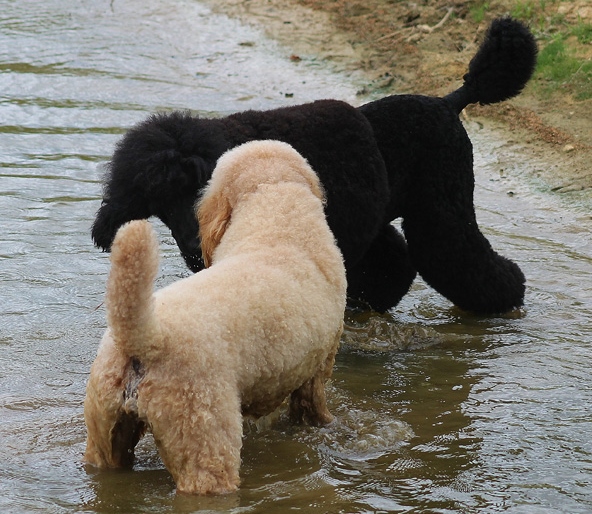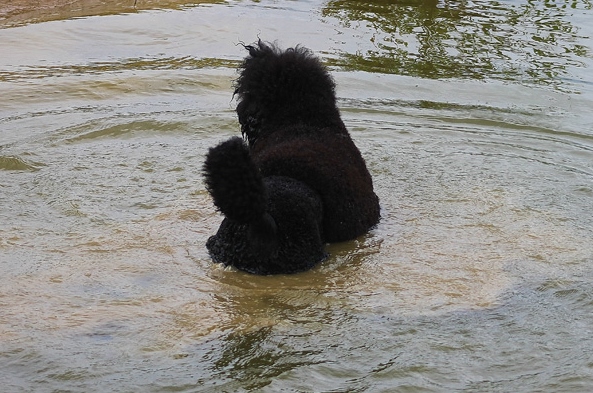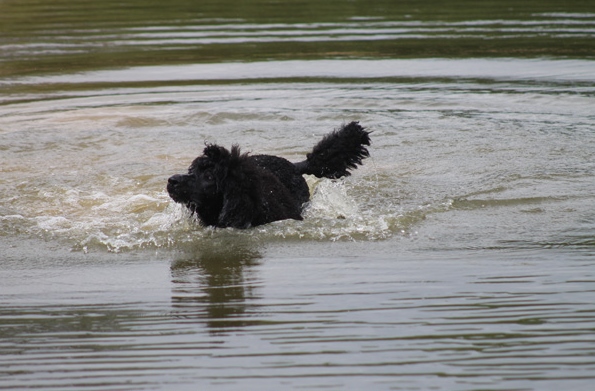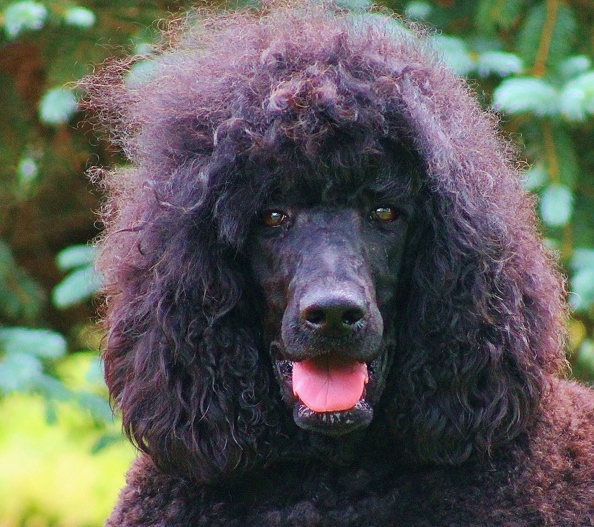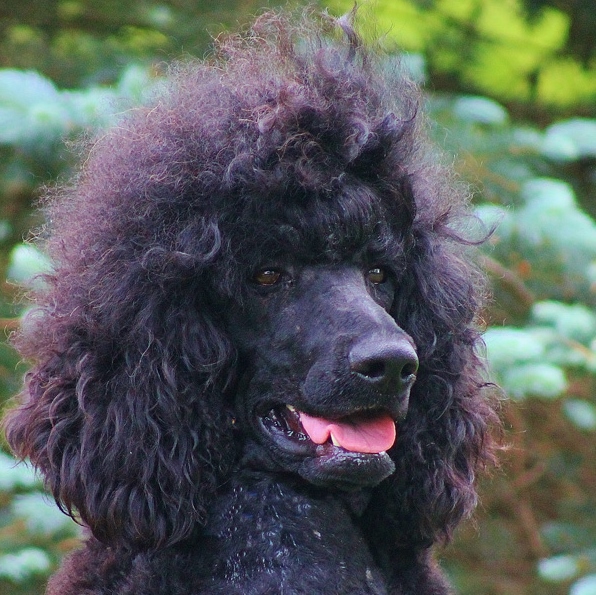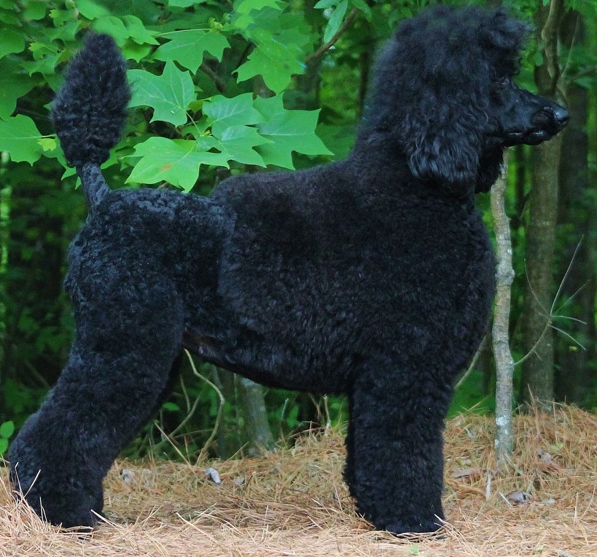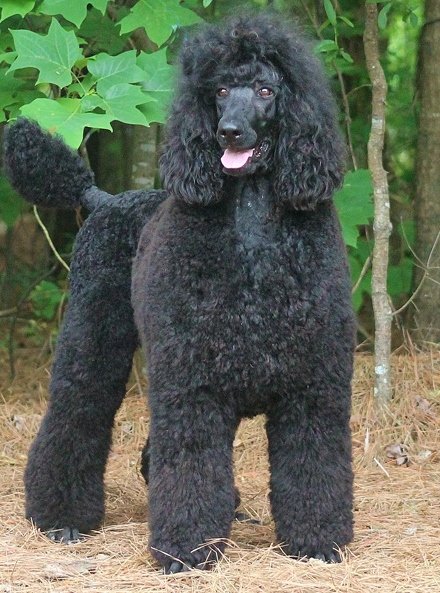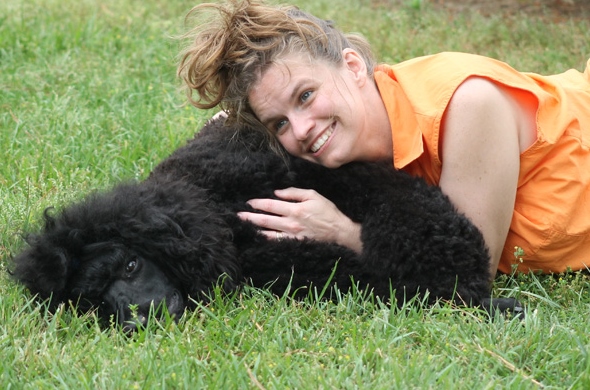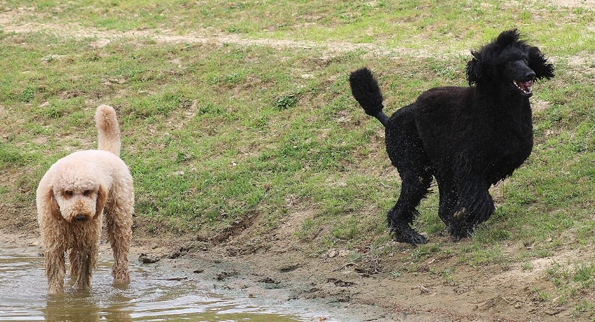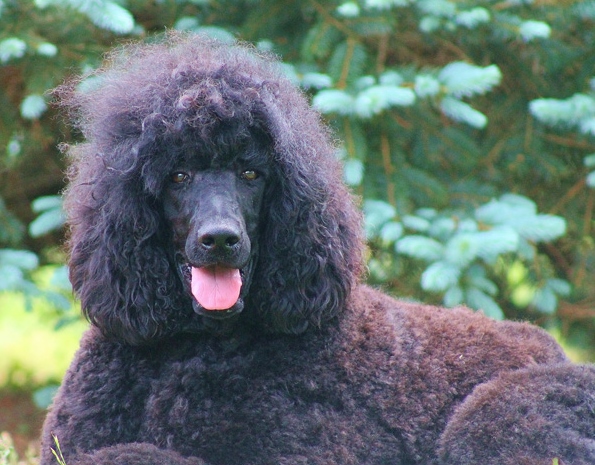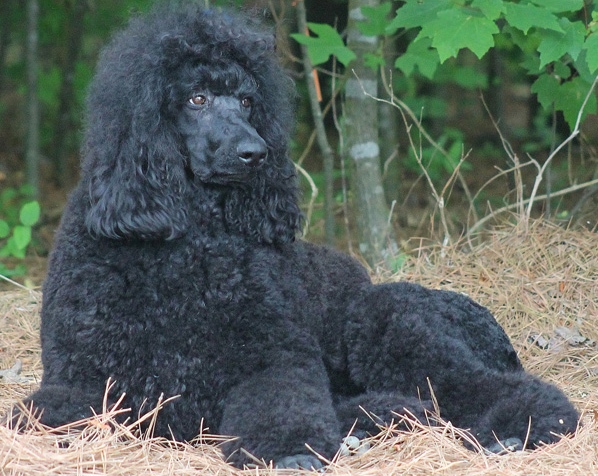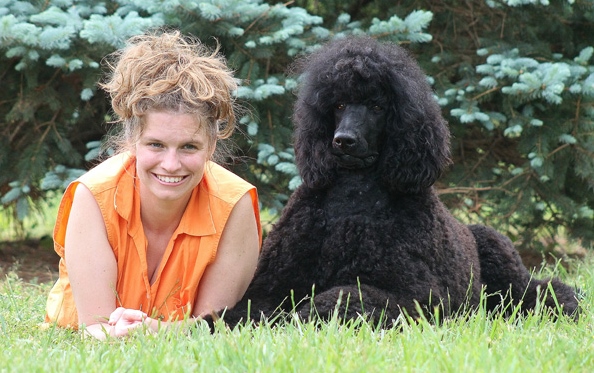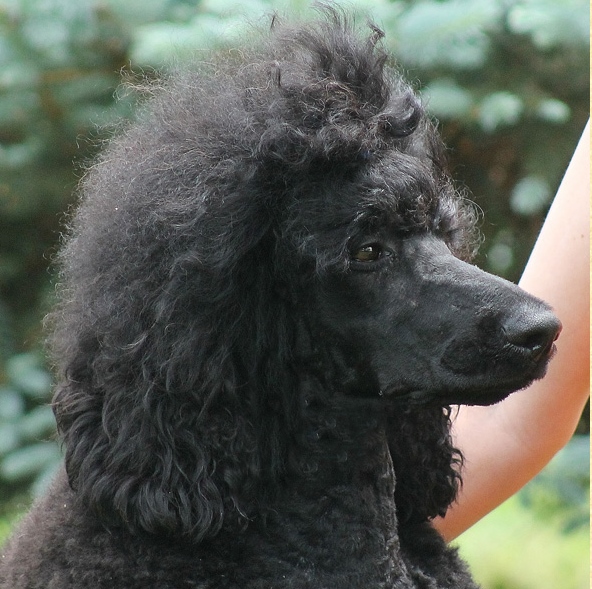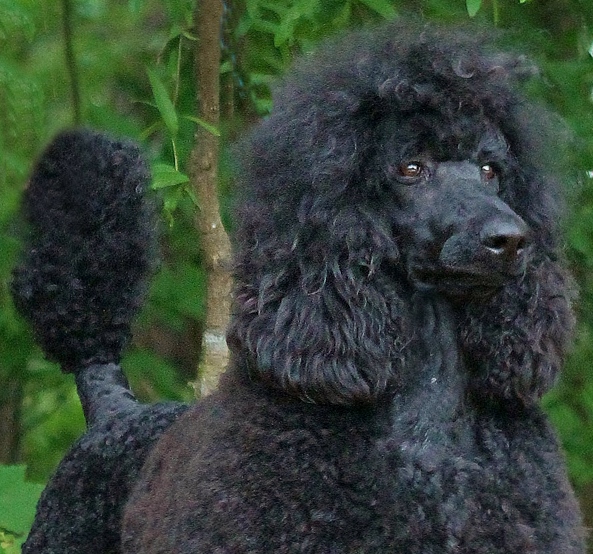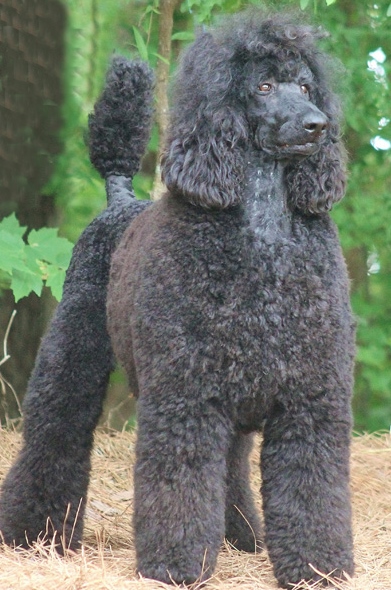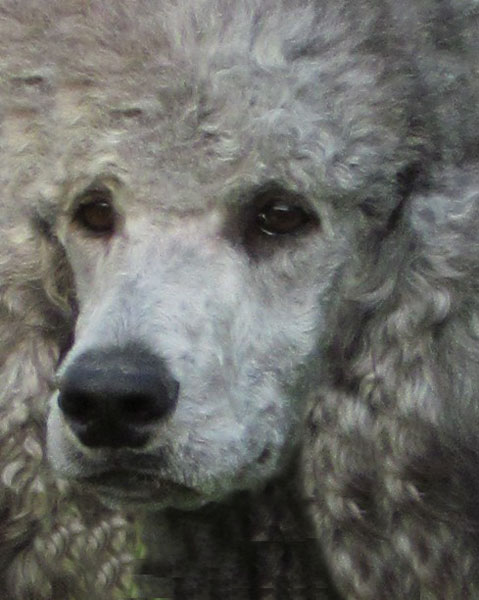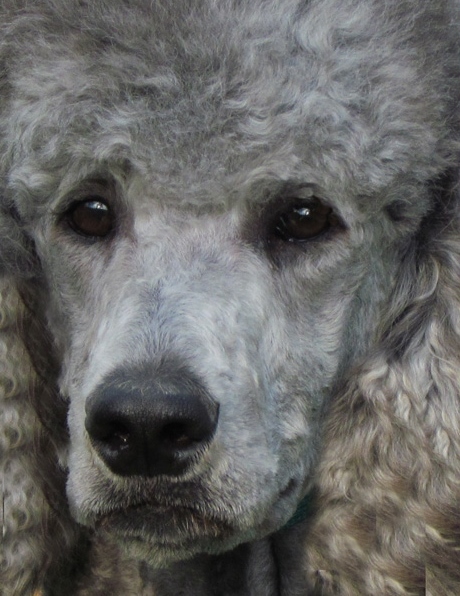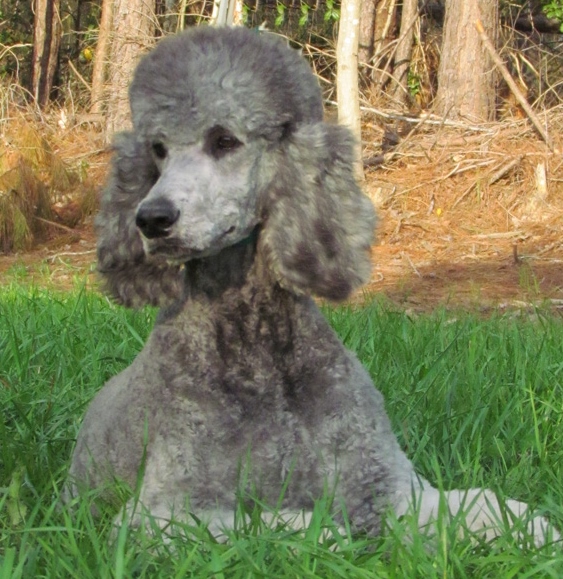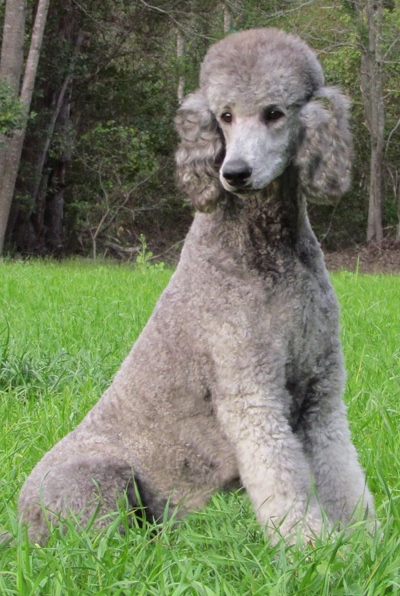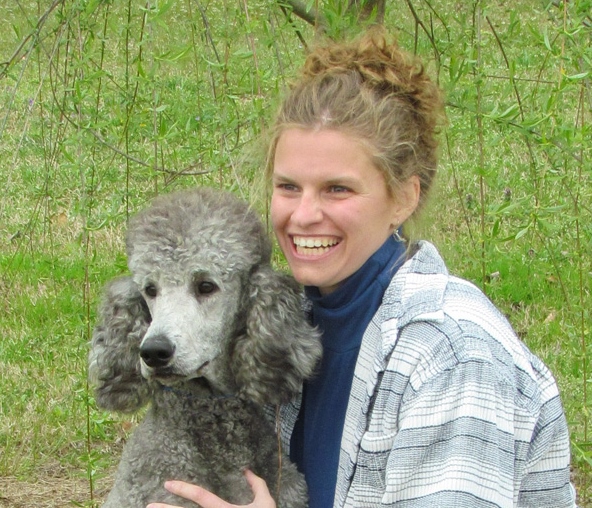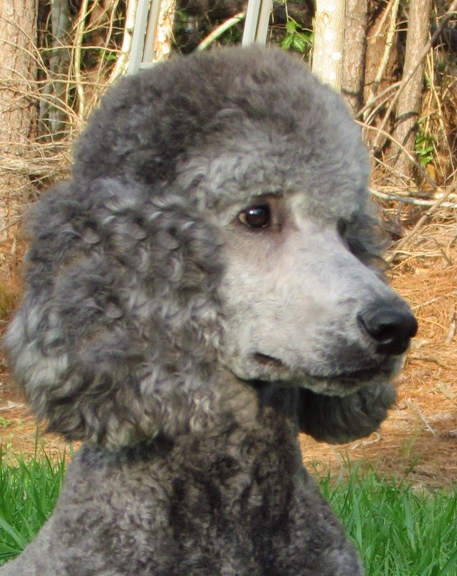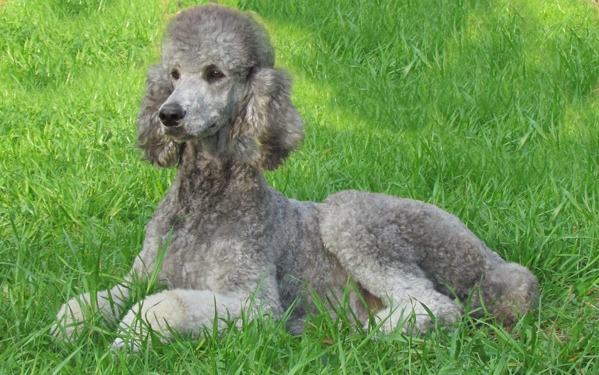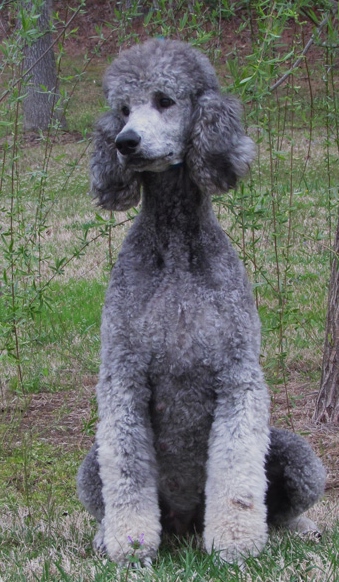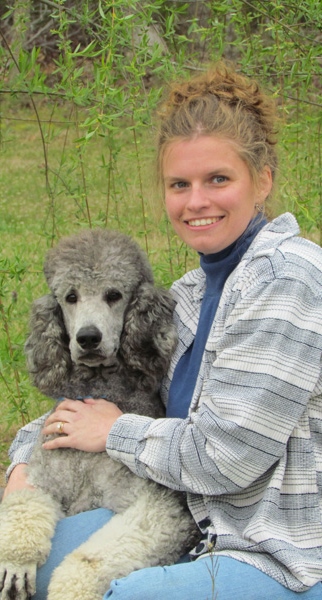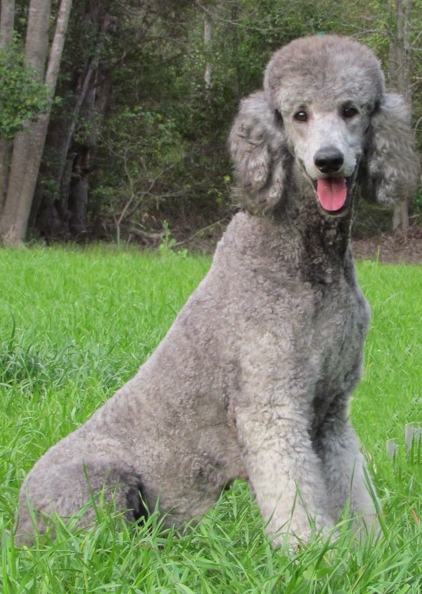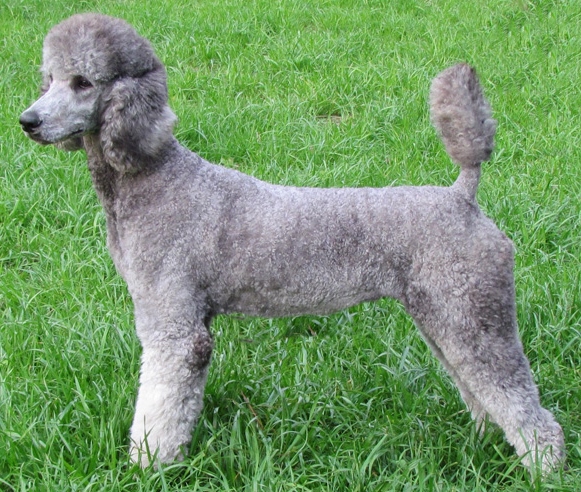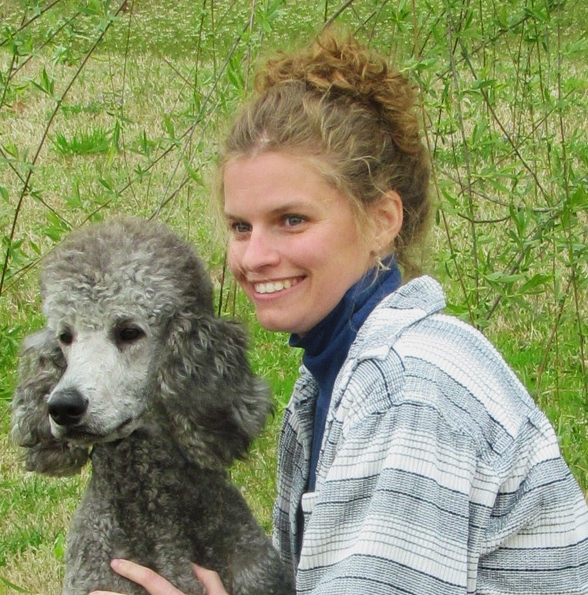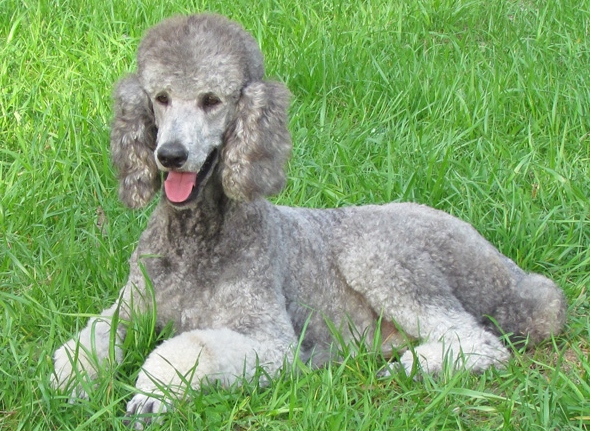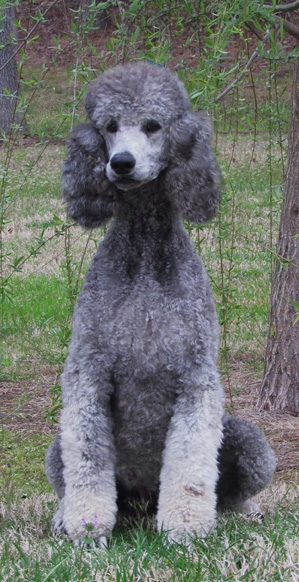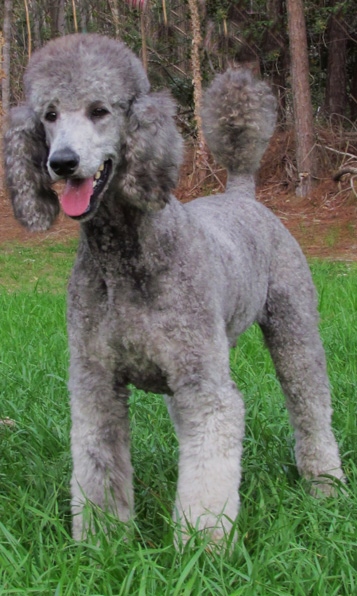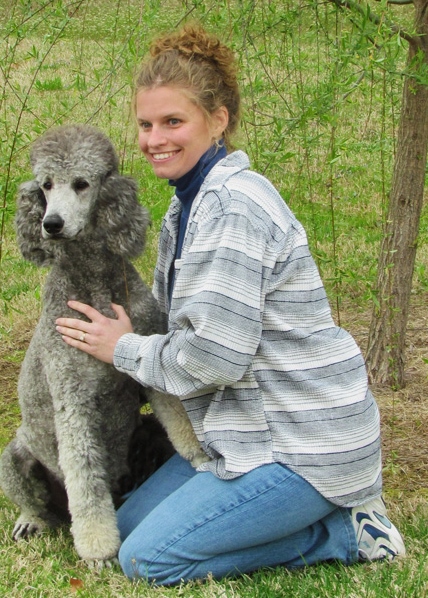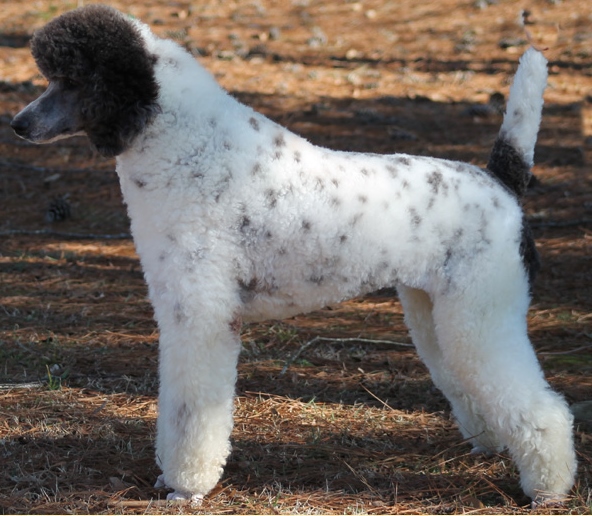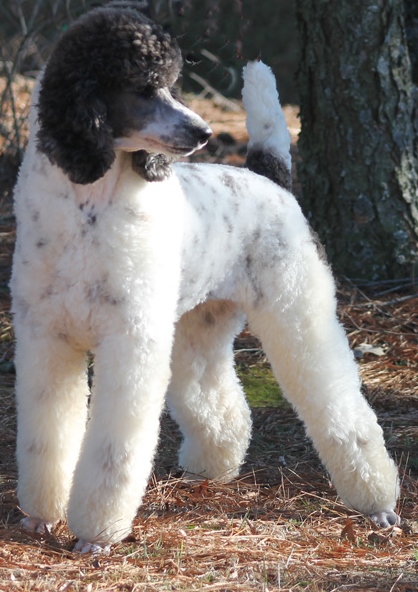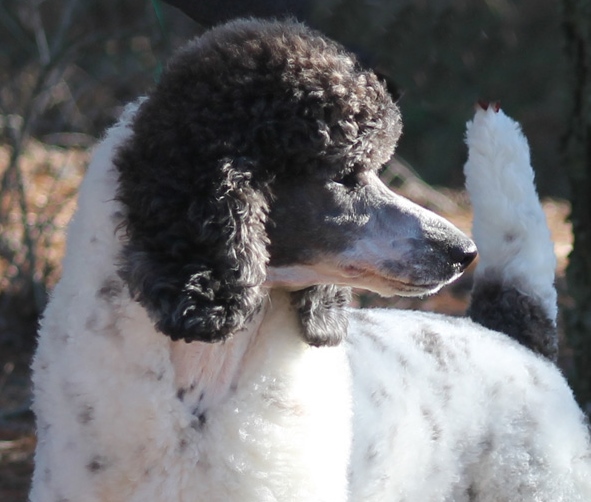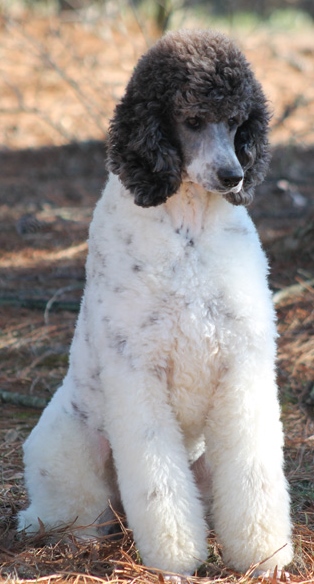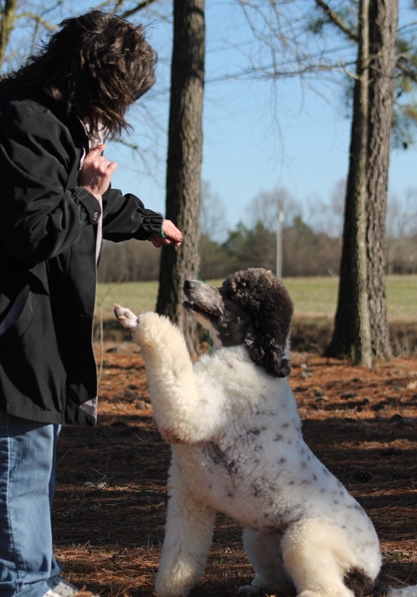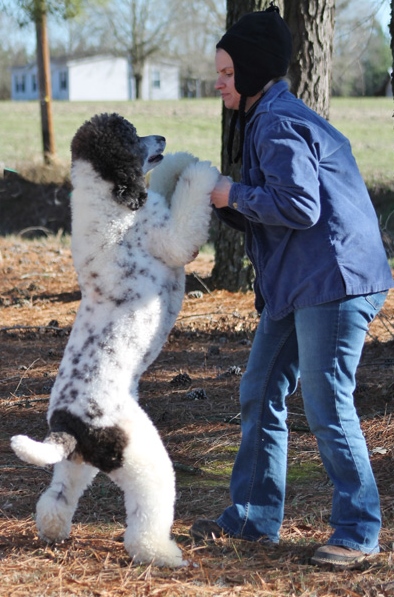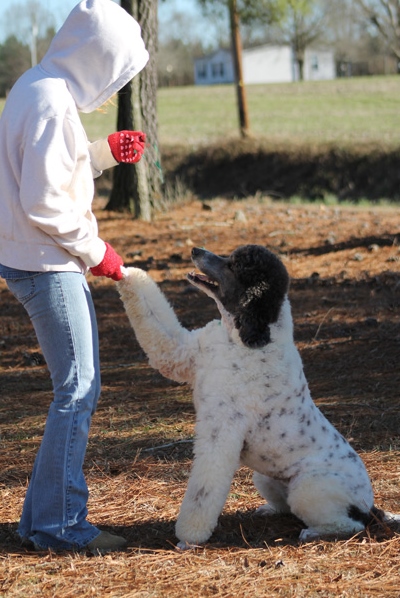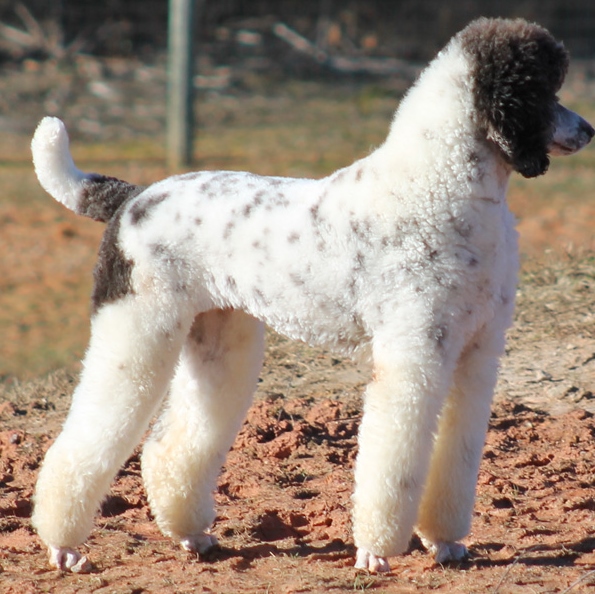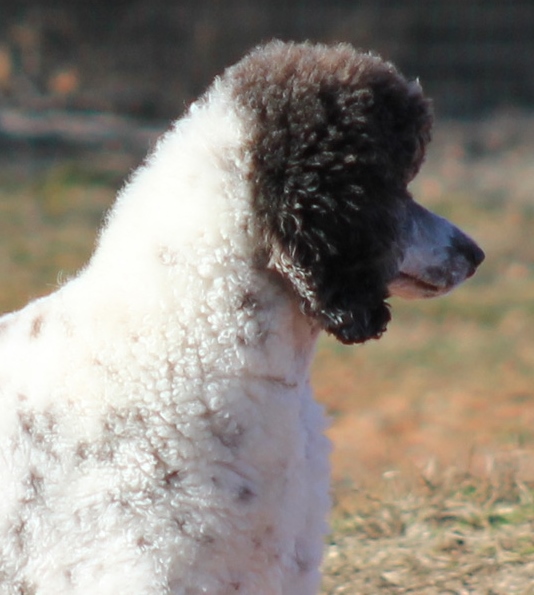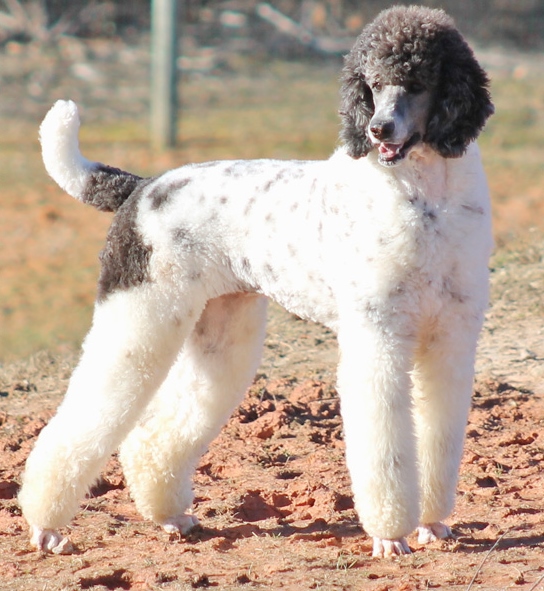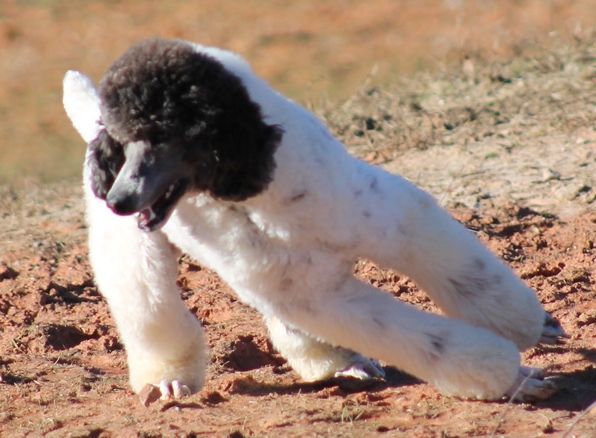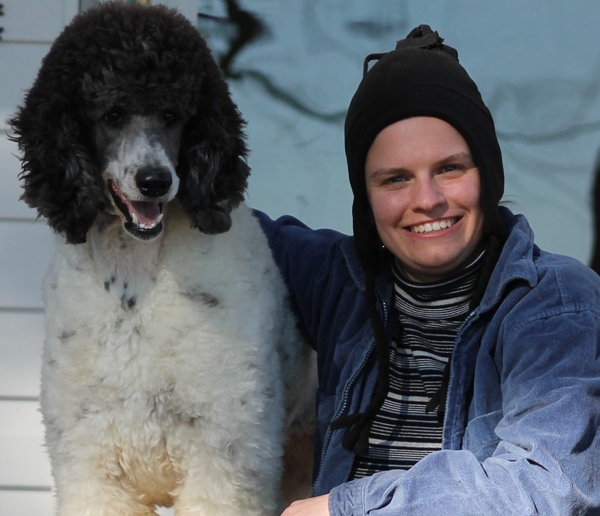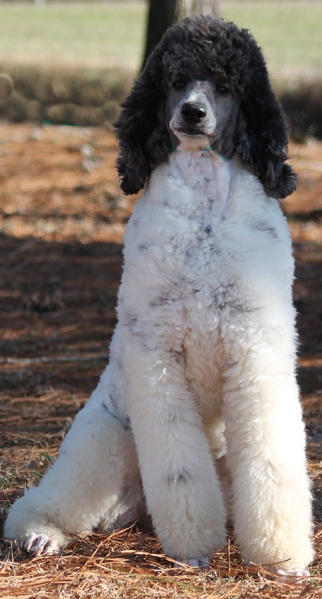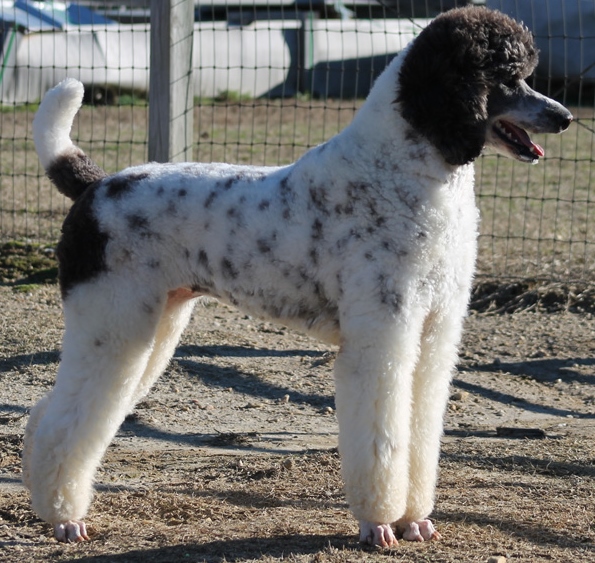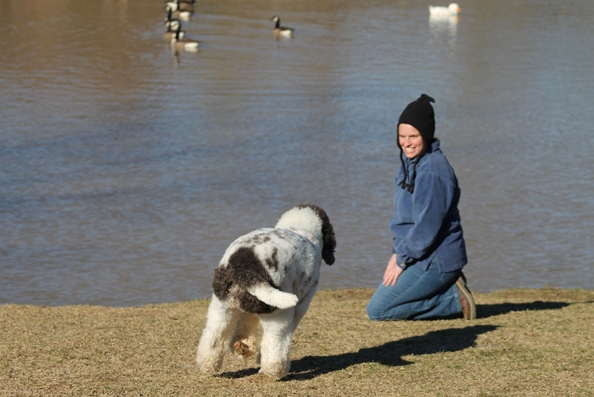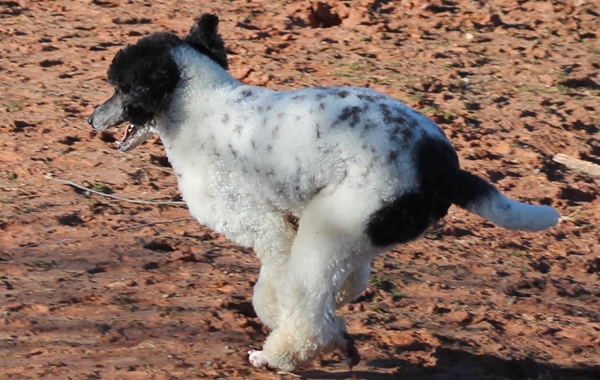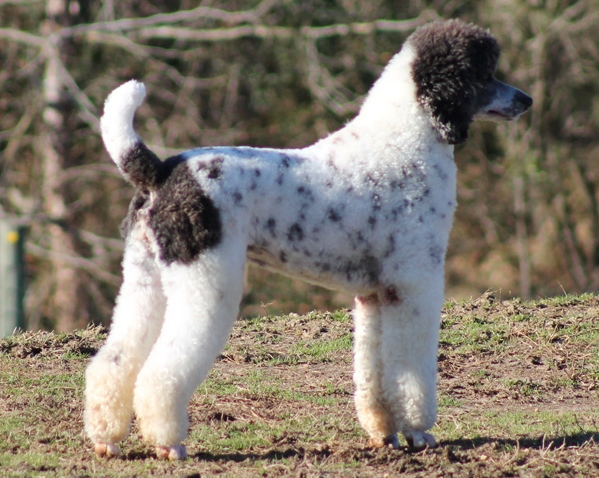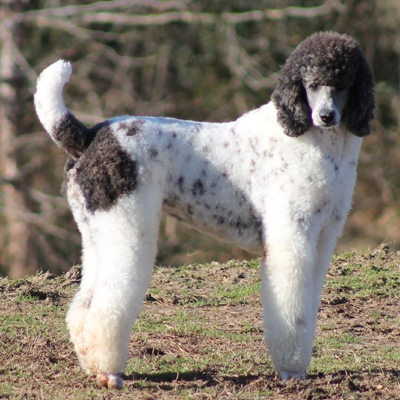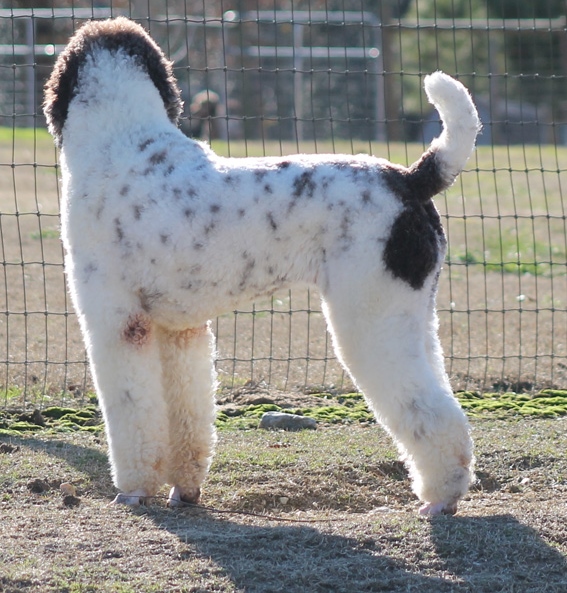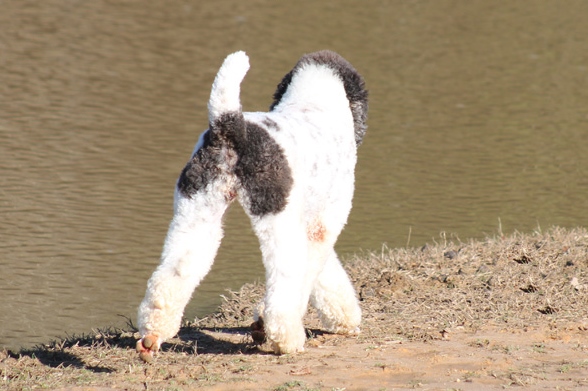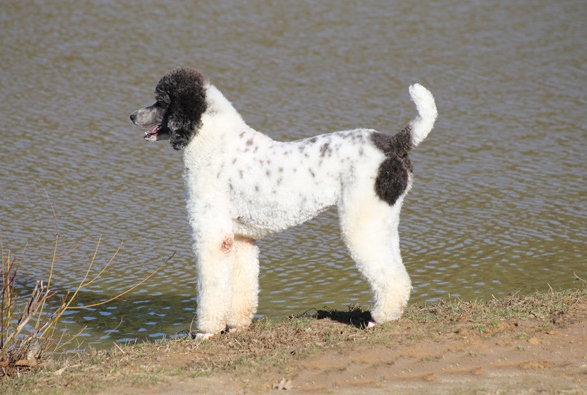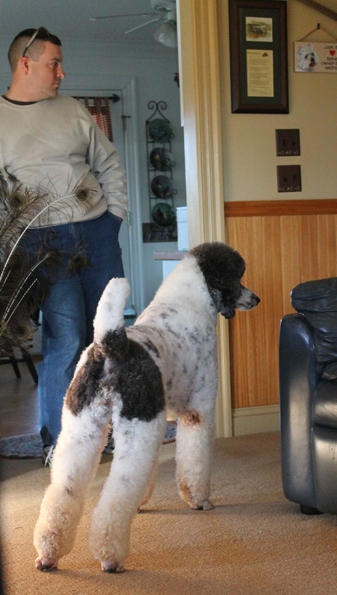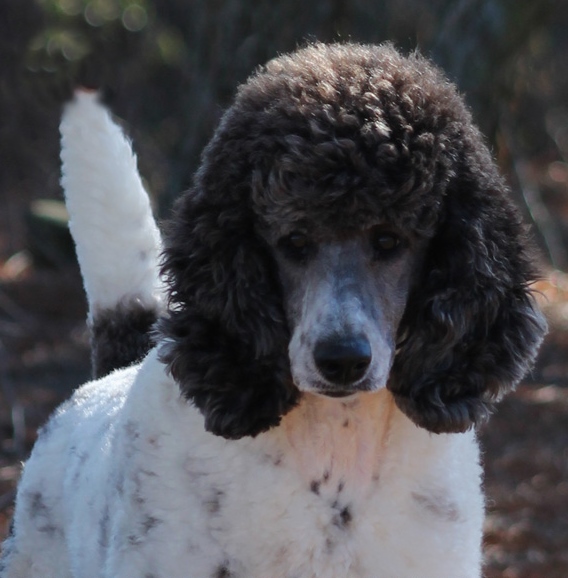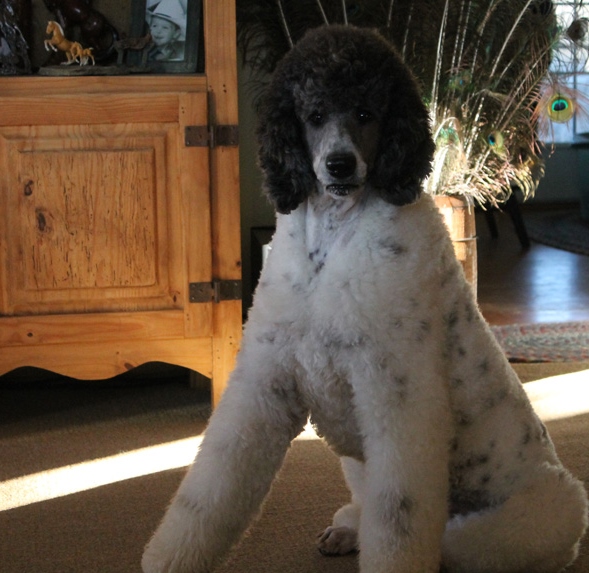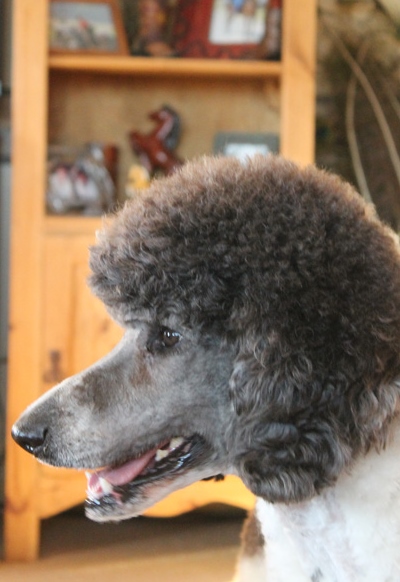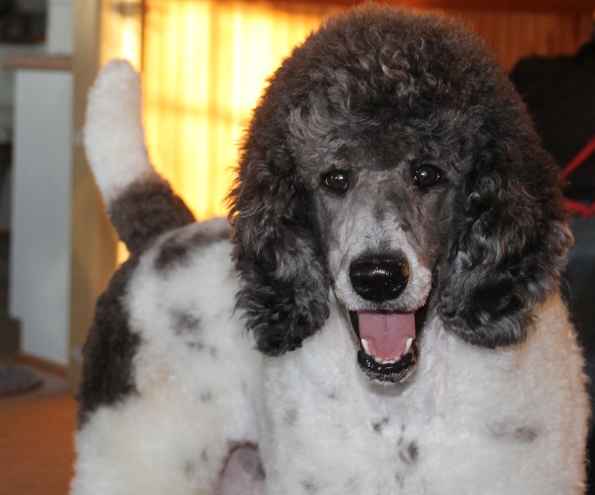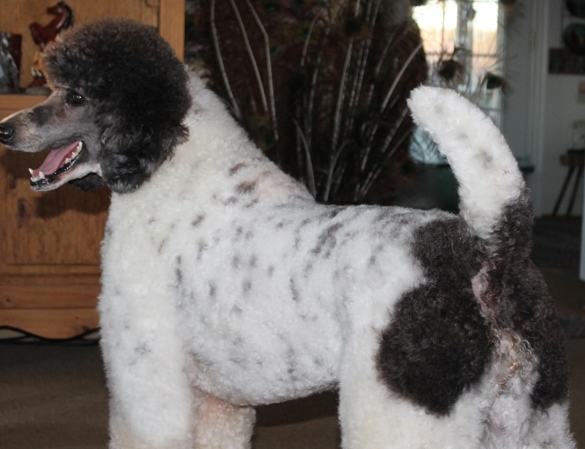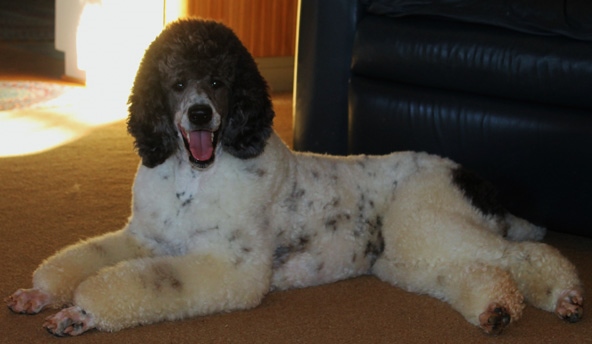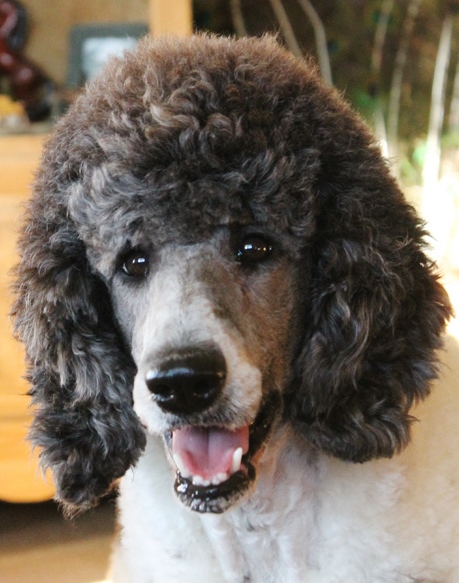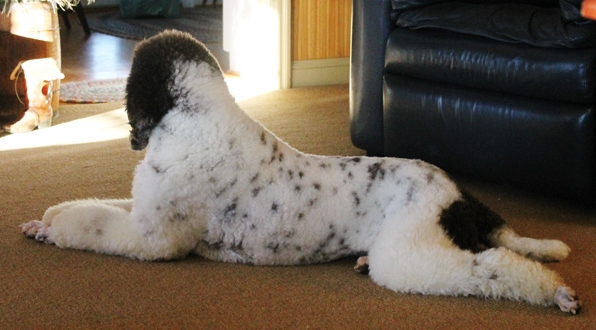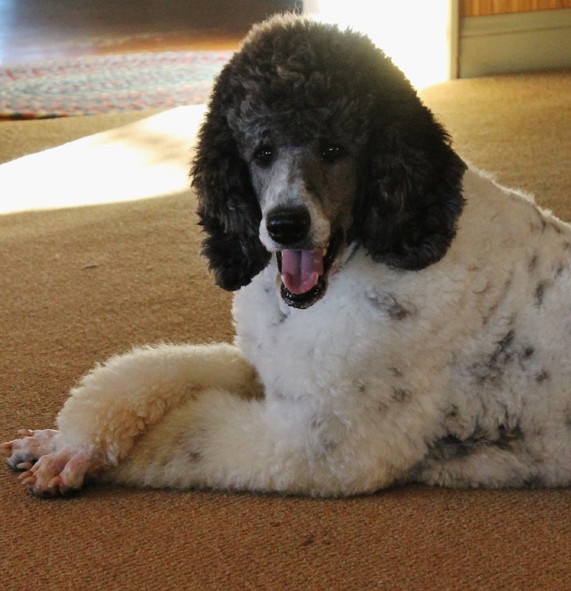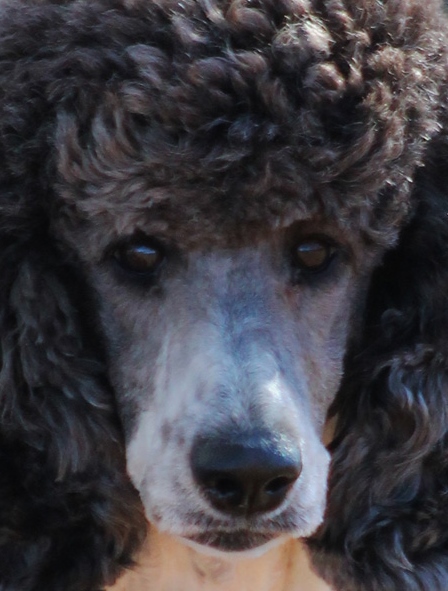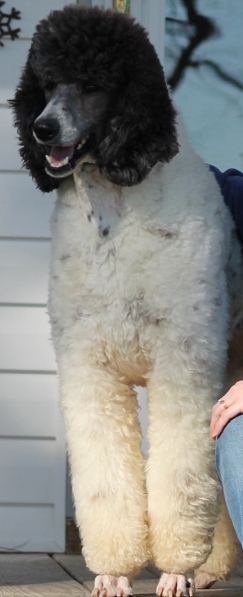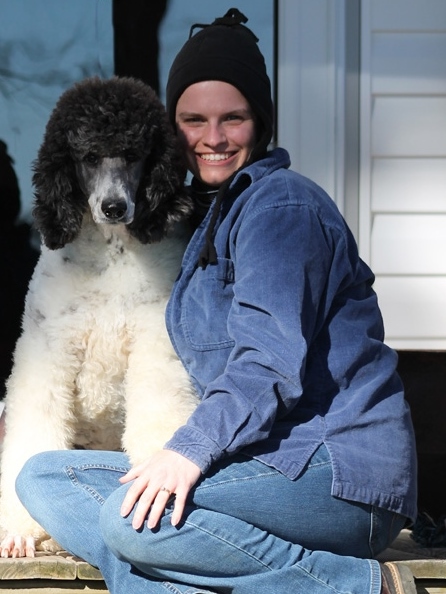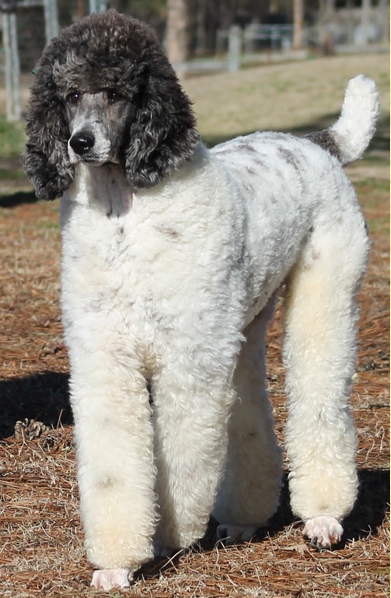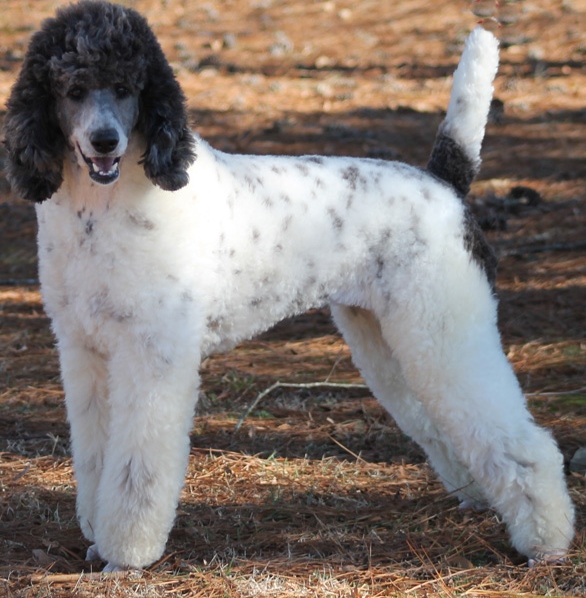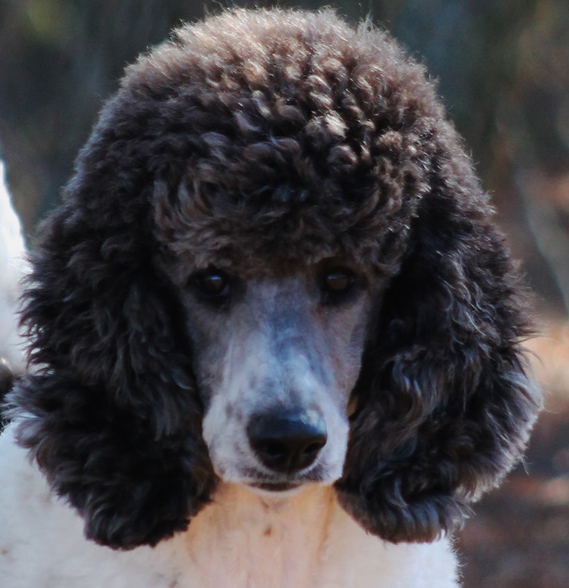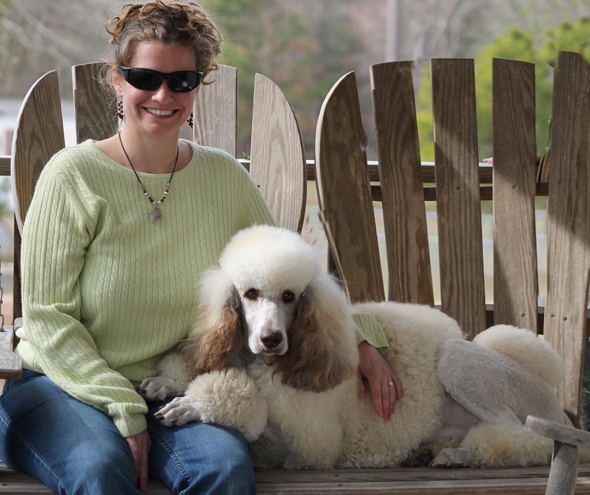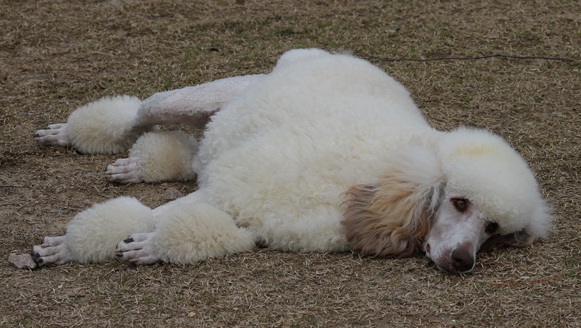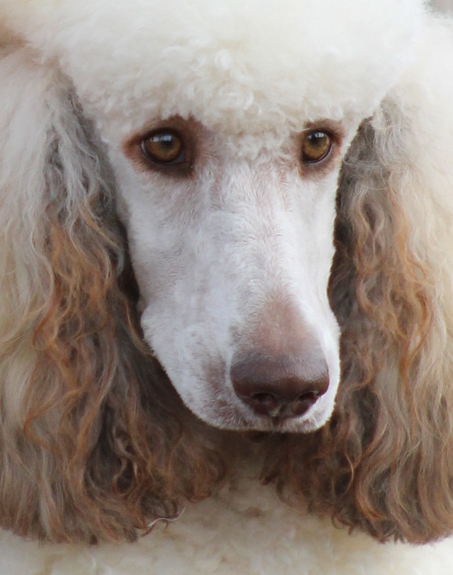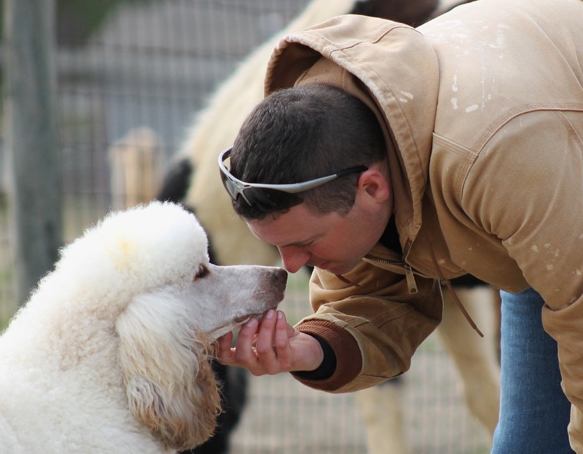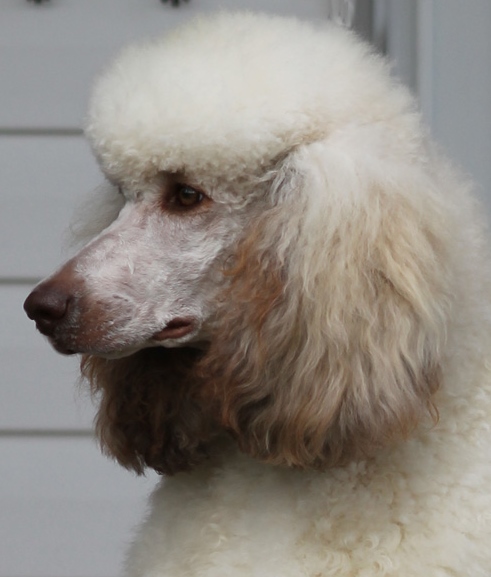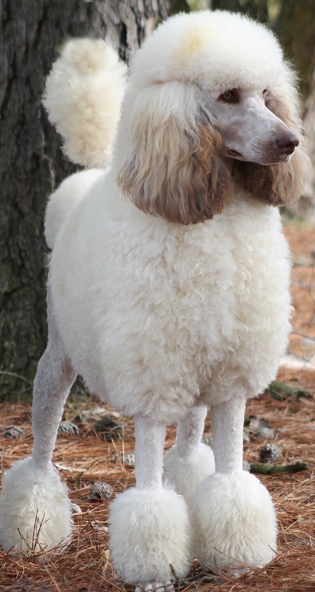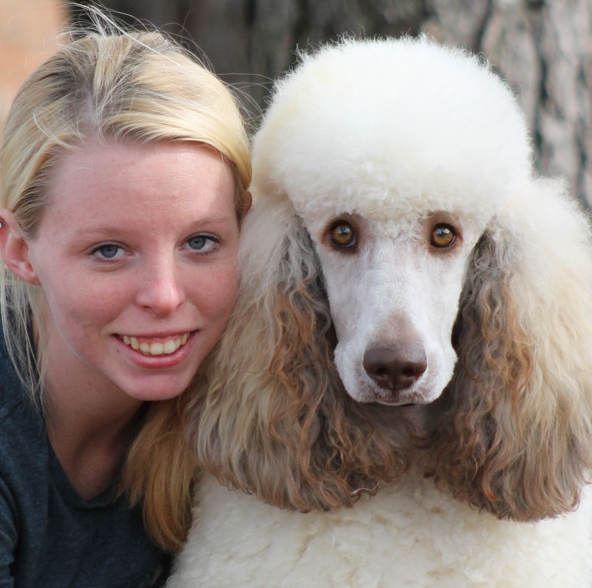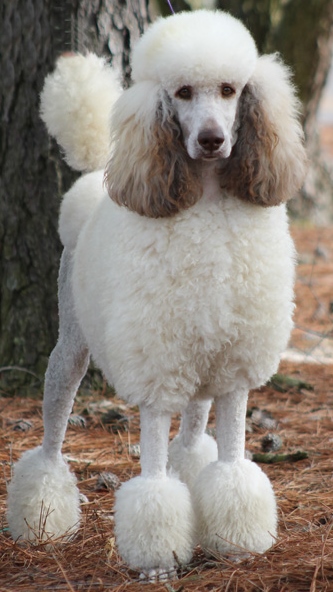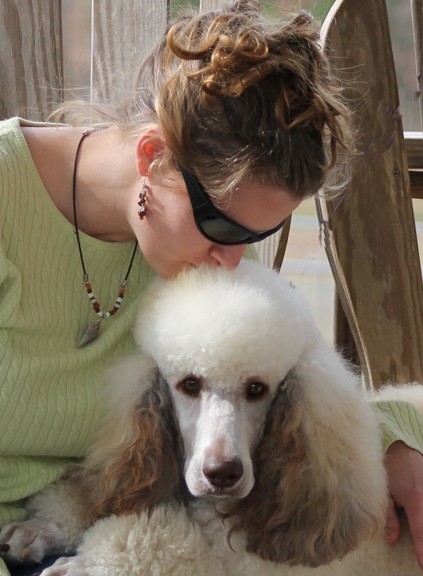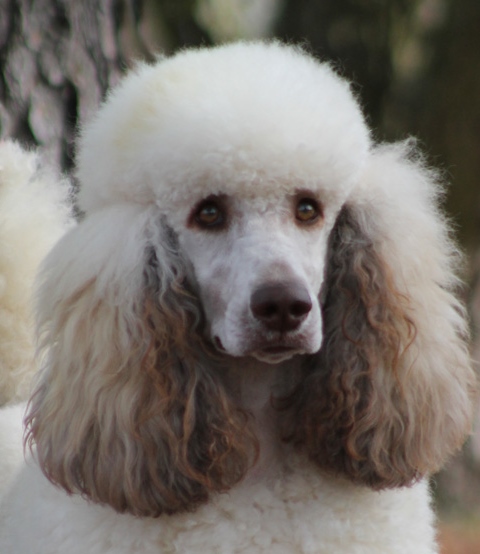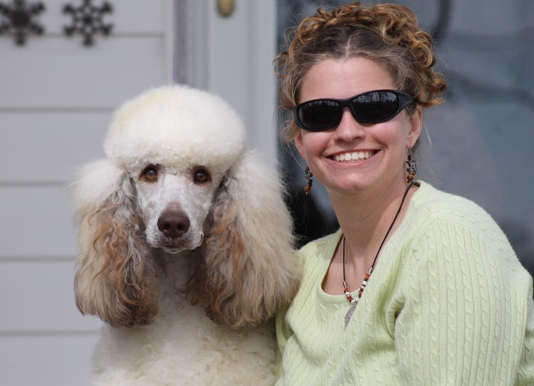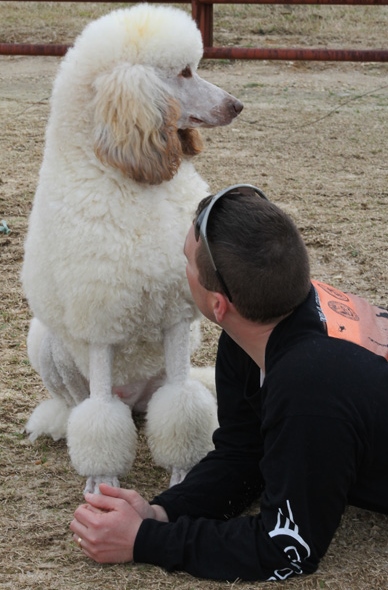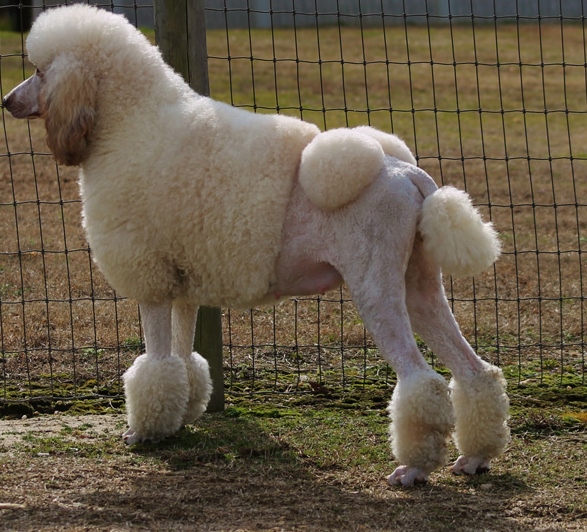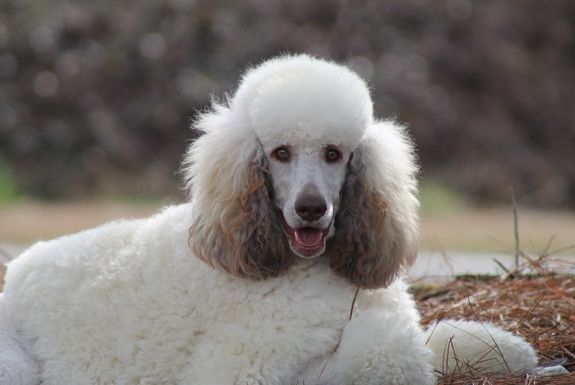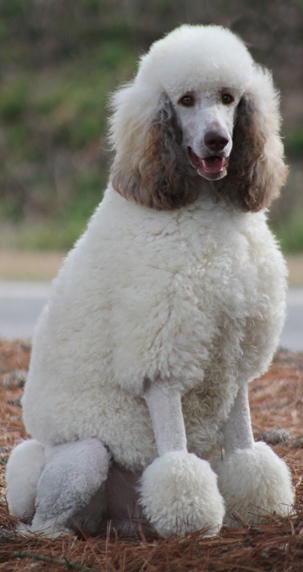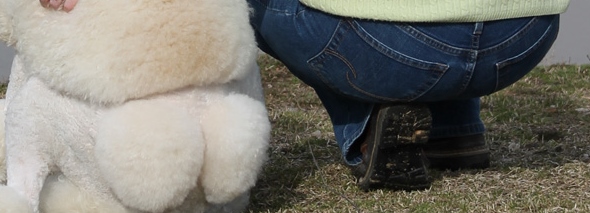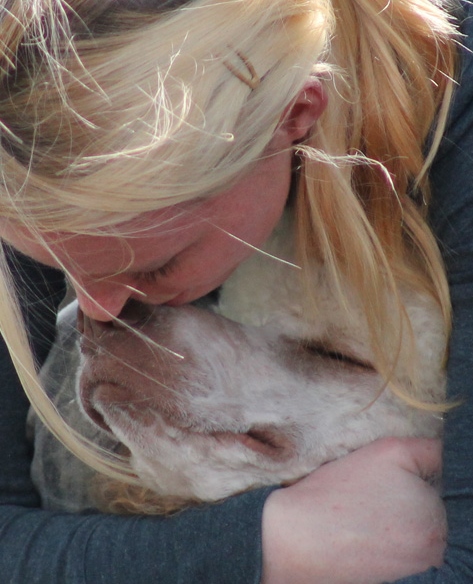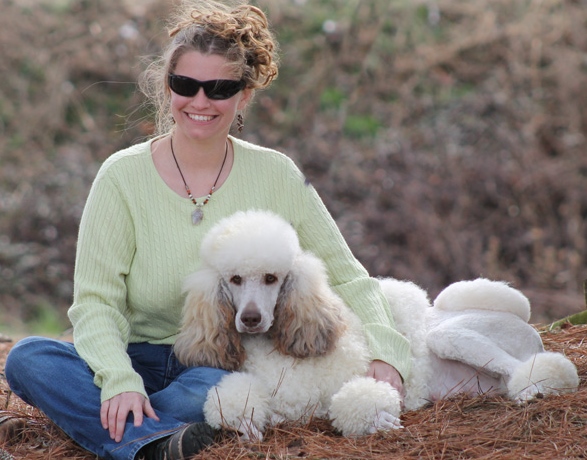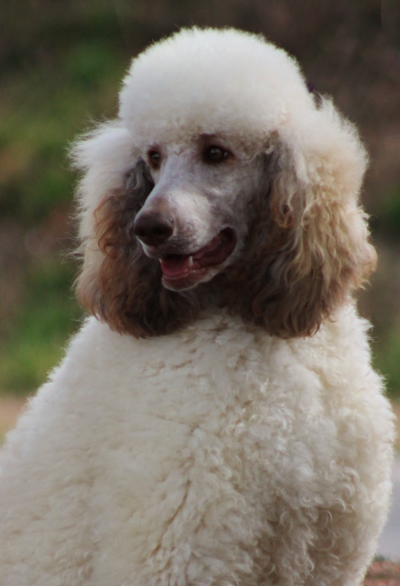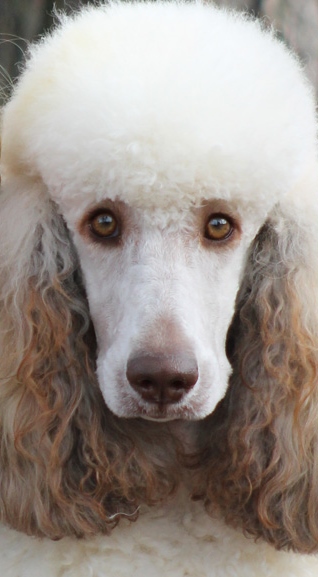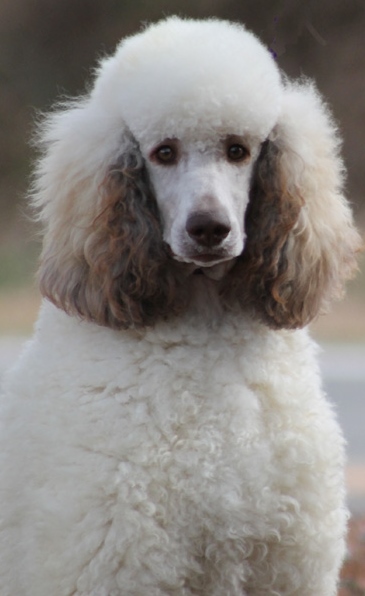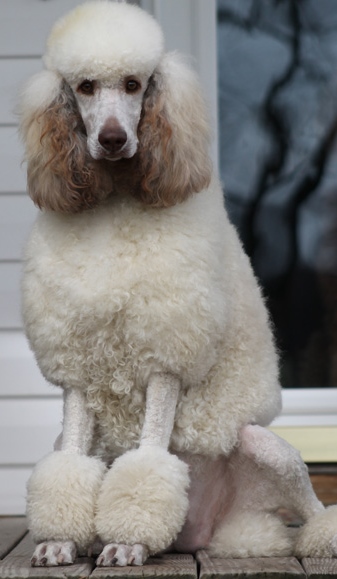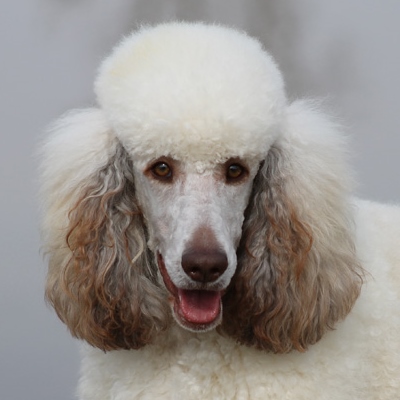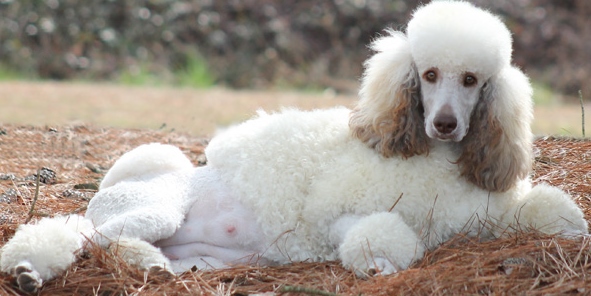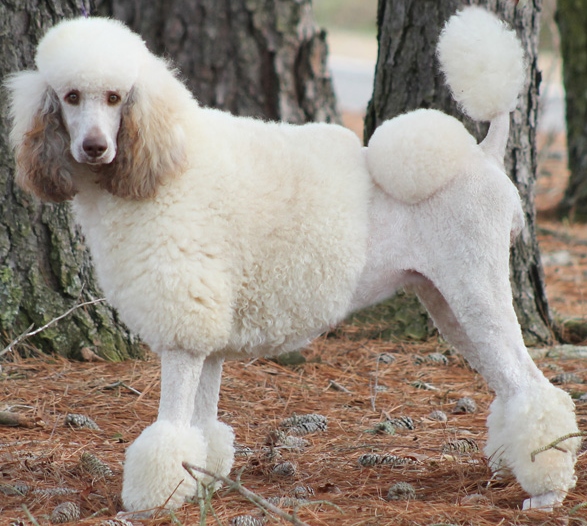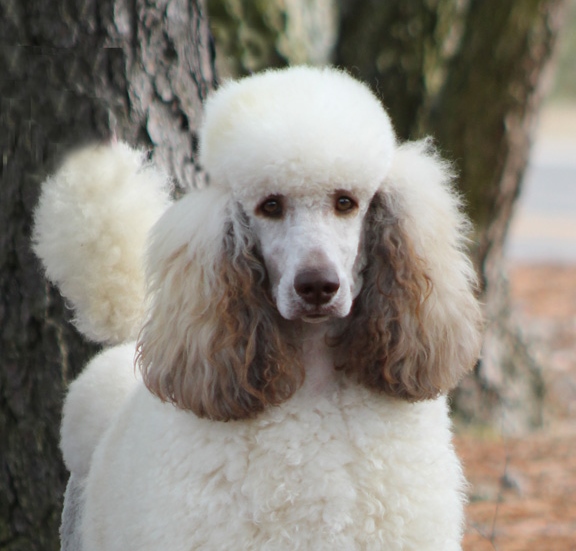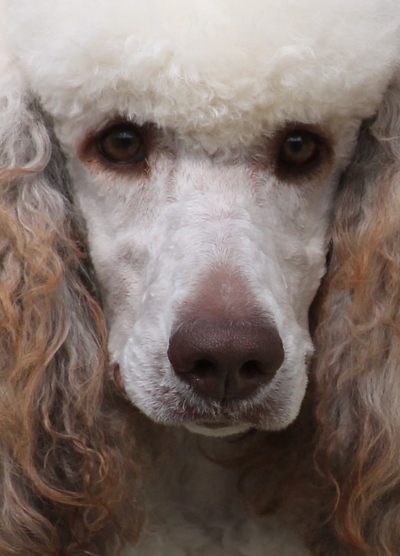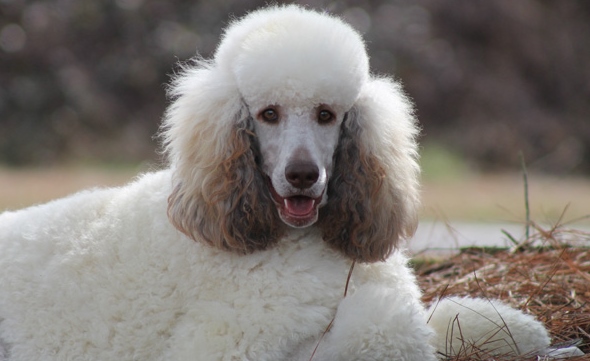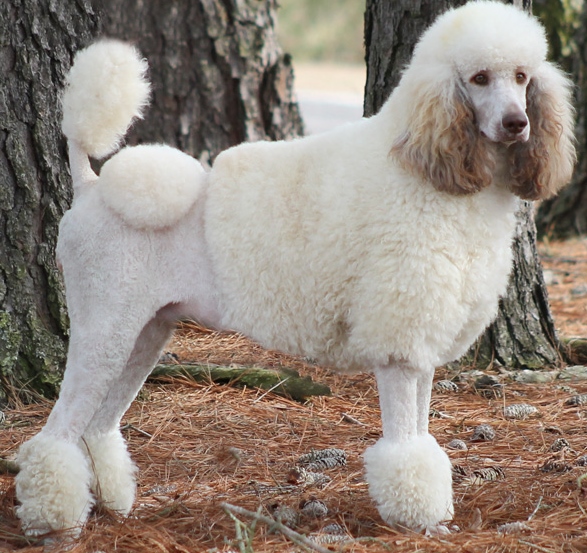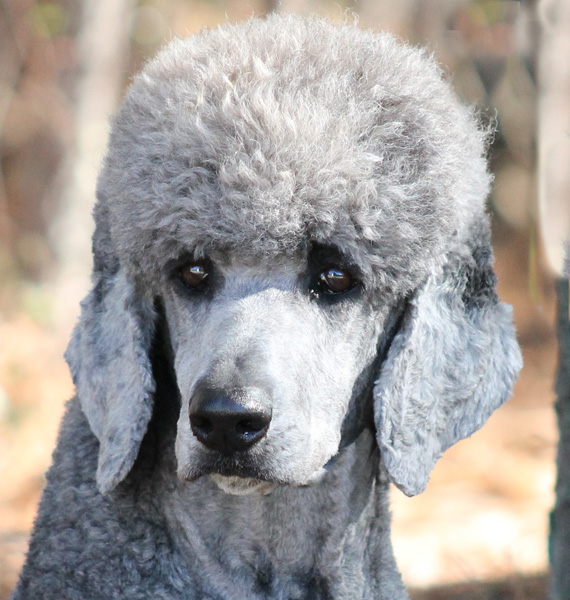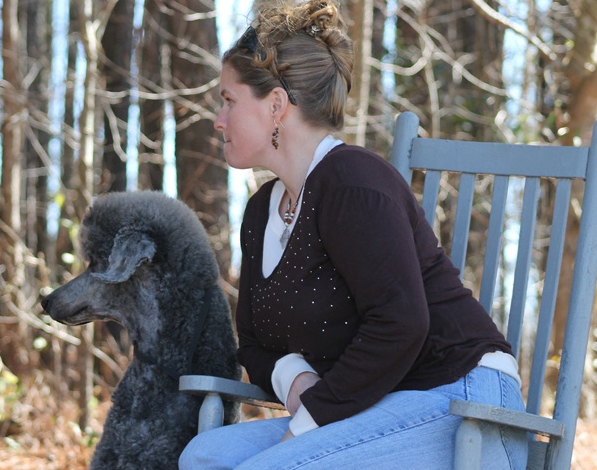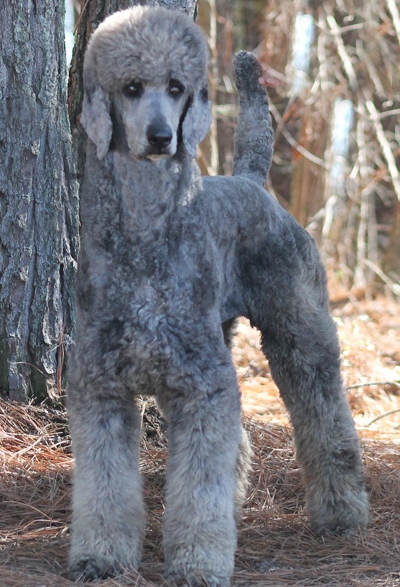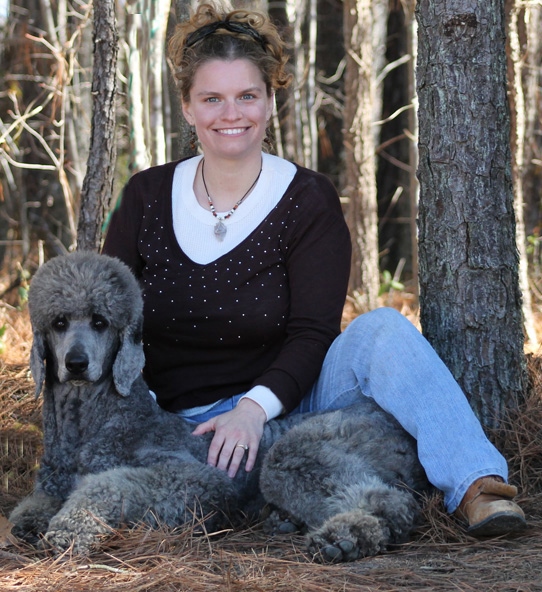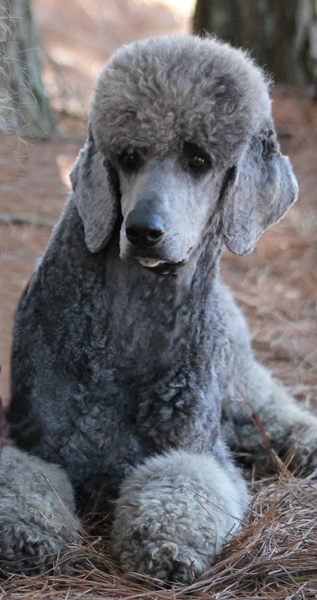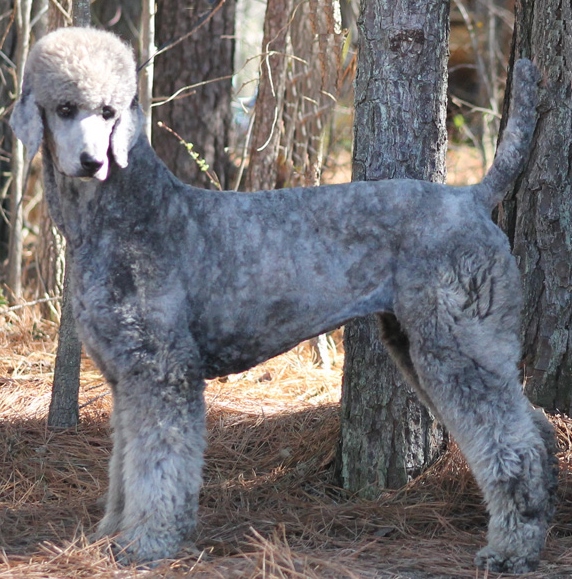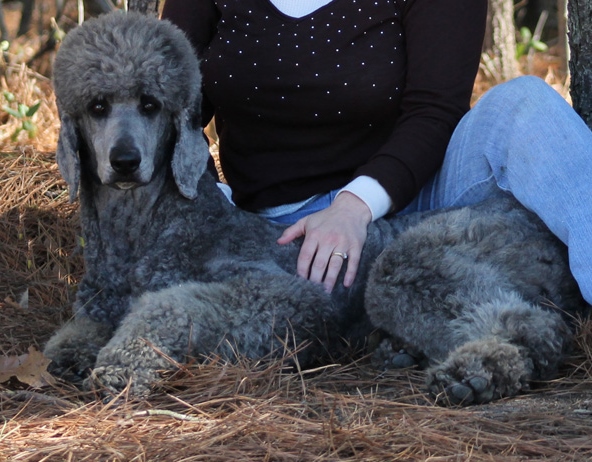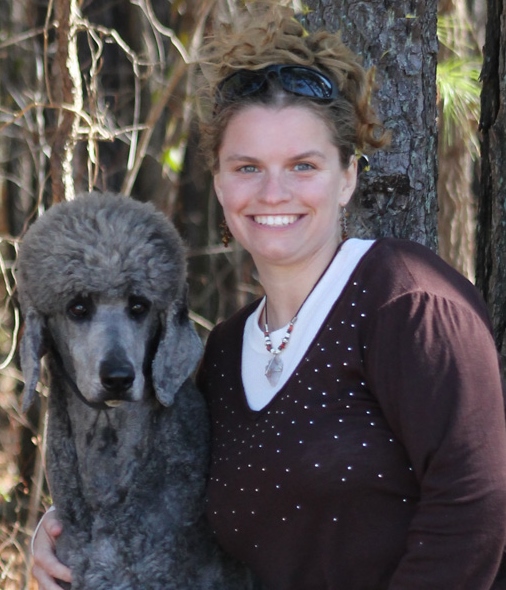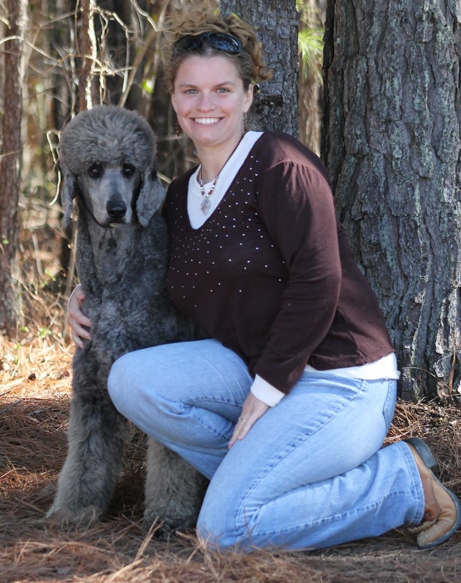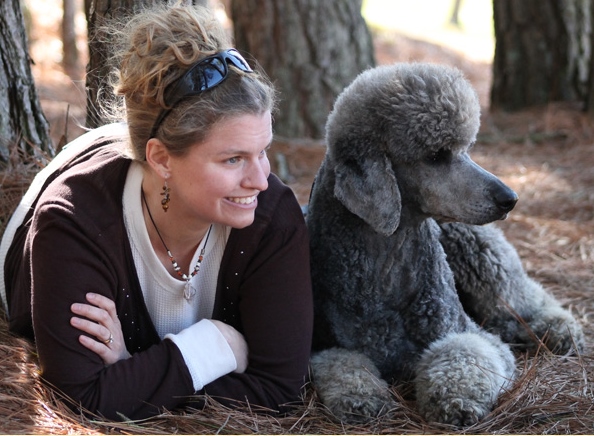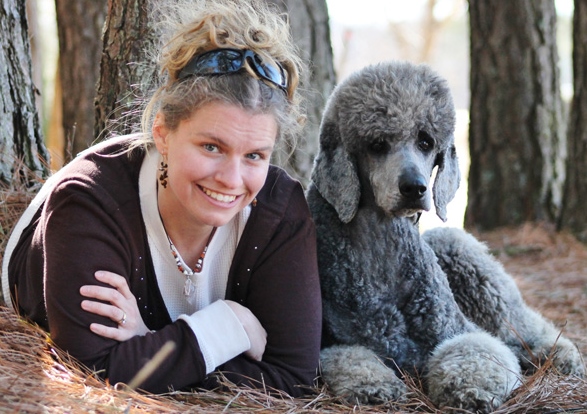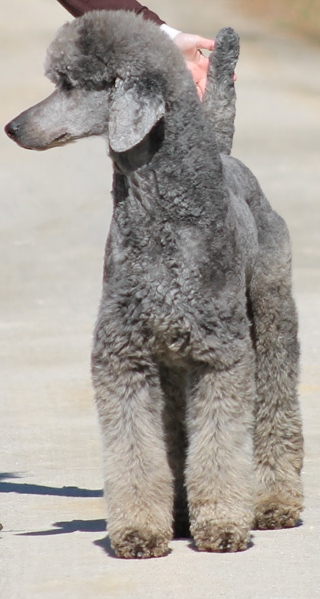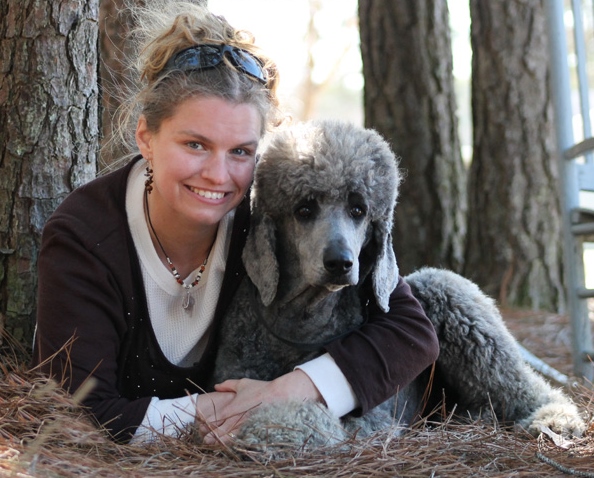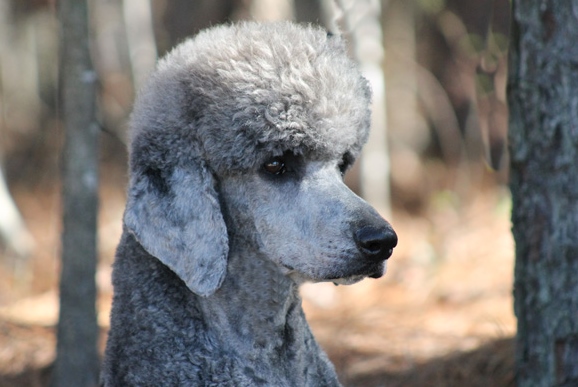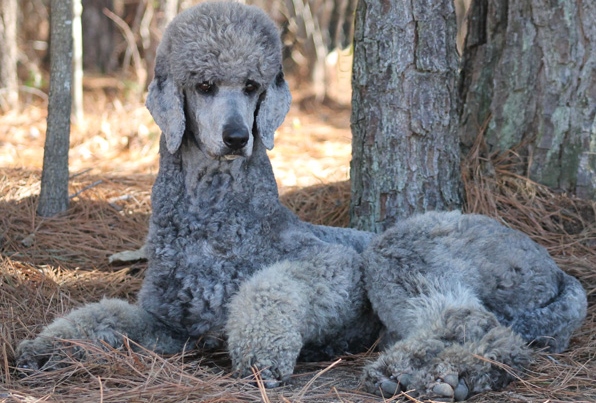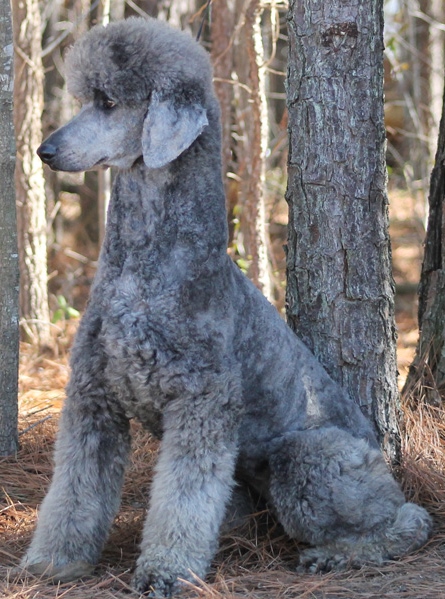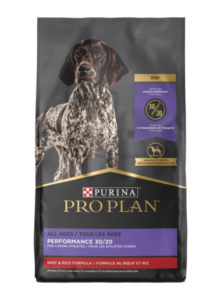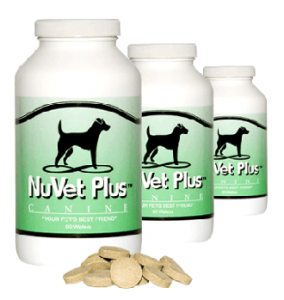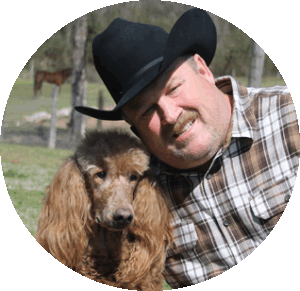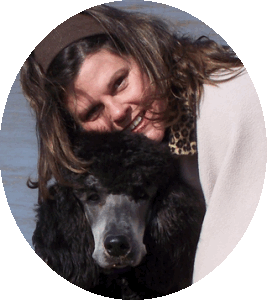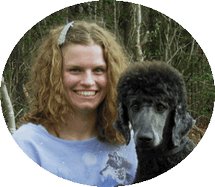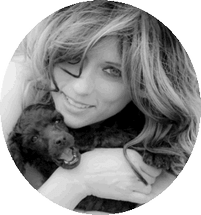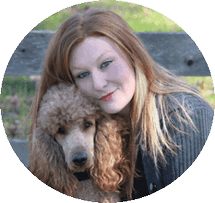Happiness is a warm puppy. – Unknown
Make sure you read all the way to the Rose at the bottom of the page, to ensure you see it all.
In our opinion as breeders, this is one of the most important pages on the website. The first question you should be asking is, “Is a Standard Poodle the correct breed for me or my family?” Prior to the decision to purchase a Standard Poodle, please take some time to read this page. Most questions you have will be answered here. These questions are the most often asked questions that we have had throughout our years of breeding.
Once it is decided the answer is yes to purchase a Standard Poodle, there are questions you will need answered. Questions about what you need before the arrival of your new puppy as well as training and grooming. You will be able to read questions and answers about the health issue that are sometime found in the Standard Poodle breed. We address the very confusing and sometime controversial issue of colors. There may be pictures or videos after the answer to the question to confirm or explain it better.
We have answered these questions to the best of our ability. We have based the answers on our own 30 plus years of experiences with our own Standard Poodle family as well as serious research we have done. There are new ideas and information coming out daily about training, genetics and breeding practices. We will try our best to be informed so we can keep you informed. There will be breeders, pet owners and even veterinarians who may have differing opinions, that are just as reliable or factual. We are not vets or geneticists, but we are concerned professional breeders who want to help you make an informed decision about adding a FAMILY AFFAIR STANDARD POODLE to your family. We certainly hope these questions and answers do that.
Each puppy adoption is unique, so if you do not find the answer to your specific question, please feel free to Contact Us. We will do our best to answer each question or refer you to someone who can. We will also be available to give advice and support for the lifetime of your FAMILY AFFAIR STANDARD POODLE.
FAQ’s
A: A Standard Poodle can be your child’s best friend. Standard Poodles are a hardy breed and can physically handle a certain amount of horseplay. Most love to chase a ball and play tug of war. You can also find a Standard Poodle that is very mellow and would be great with a very quiet little girl or young man who is more studious than athletically minded. Standard Poodles are very tolerant of almost anything. Patience is definitely one of their virtues and tugging ears and grabbing a handful of hair for the most part is well accepted. They are also very affectionate and loyal and will follow your child everywhere once the bond is formed. If it is acceptable in your home, most of them will be your child’s snuggly bed partner.
The Standard Poodle breed, as well as any larger breed, has one vice in particular when it comes to small children. Your Standard will be exuberant when you come home, whether you have been gone 10 minutes or 10 hours. As a result of this exuberance, they will want to jump up on you and get a very emotional hug. The Standard Poodle is very light-footed and gentle but because of being a larger breed, jumping up on a child or an older person, could hurt them or knock them down. This issue can be addressed when they are young and they can be taught not to jump unless you ask them to.
“Hi Wendy, Looks like you guys have some beautiful babies right now ???? I can’t help but check your website often and look at the babies ???? Hopefully it won’t be more then another year before we’re ready for another one of your pups!
Polly…is amazingly gentle and sweet with the daycare kids and her favorite place in the world is the dog park! We try to go once a week and she just loves it. What a doll. :)”
Rebecca Miller (9-2014)
All of the above being said, a very simple answer to this question is “YES, a Standard Poodle is a perfect breed for children!!!!”
A: Yes!!! We have lots of champions in our bloodlines and we also have puppies out there becoming champions or already champions!!!
The gene pool for the Standard Poodle is very limited. Because of this, almost all breeders, good or bad, will have champions in their pedigrees. If you were to acquire two Standard Poodles from across the U.S and from entirely different parents, you would be hard pressed to go back no more than 5 generations before finding at least one if not several of the same AKC names and some champions on each pedigree. Therefore, just because someone uses the words “CHAMPION BLOODLINES” as a selling point, does not mean that they have a nice facility or high quality, healthy Standard Poodles. Below are just a few examples of the champions that have come from FAMILY AFFAIR STANDARD POODLES.
Cookie was shipped to Brazil in March of 2010. Pricilla immediately began prepping her for the show ring. She was an eager student and finished her Brazilian championship very quickly.
“Cookie is only a few points away from her adult Brazilian championship and the Pan-American championship. After this year we won´t have more shows to go, so she is taking a rest for a perfect come back next year! Thanks to Family Affair Standard Poodles for this perfect girl!”
Canil Quindim
“Echo, aka Arrowhead’s Highfalutin’ Dream, went from 0 to 100 in short order and is now a UKC CHAMPION! She finished her title in only 2 weekends of shows, with an impressive 2 Reserve Best In Show wins!”
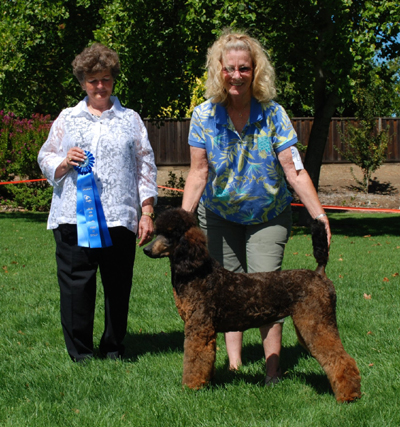
“Hi! Family Affair Shimmering Shadow Mist. Earned his UKC Grand Champion title before he was 9 months. Thanks Family Affair for such a gorgeous boy.””
“Hi! Results are in today: Family Affair’s Shimmering Shadow Mist is the #1 Standard Poodle in the United Kennel Club for 2015. We are so proud of him, he has done so well this past year. Again please tell your Mom thanks for choosing the perfect puppy for me.”
Charlesie Bowers
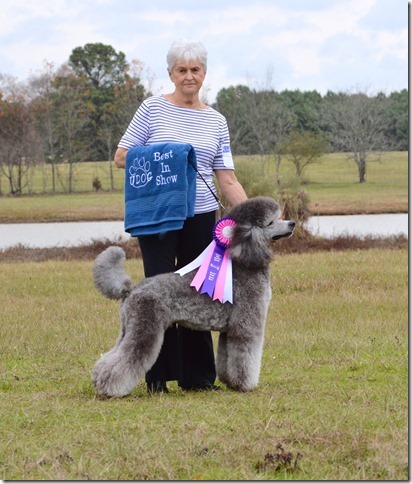
A: All Standard Poodles have certain characteristics and qualities that are true to the breed. A well-rounded, good pet for people is dependent upon the degree to which these characteristics or qualities appear in each poodle.
A good example is that all Standard Poodles are devoted. Some are so devoted that they want to be touching you or as close as they can be all the time. Other Standard Poodles are very devoted as well, but are very content to lie by your feet or in the chair across the room. This characteristic allows some to be at home alone all day while the family works or goes to school, while another one really misses their people and needs to be with their owner more.
Intelligence is another breed trait. You will have some Standard Poodles that are very serious in their learning and then others who are more comical in their tricks or in obedience demonstrations.
Every Standard Poodle you meet will be athletic to a degree. When you are ready to go for a run or play catch in the yard, any Standard Poodle will be ready. An example of the degree of energetic enthusiasm is when you ask the question, “Are you ready for a run?” One Standard Poodle will come flying up to you with the leash in his mouth bouncing up and down exuberantly. Another will lift his/her head from their favorite spot on the couch as if to say, “Ok, I will go just to be with you and because you ask.” These different degrees of energy are what make one Standard great for apartment living with one single person, and the next will need a huge yard or very athletic owners or a very busy household with children.
A: We want to place all of our puppies as permanent house pets and loving companions, first and foremost. Should breeding or showing rights will be considered, we will only sell to breeders who we approve and are confident will provide no less care and comfort for their dogs than we do. If you are a broker, puppy mill, or pet store…don’t even waste our time!
A: DIVERSITY! DIVERSITY! DIVERSITY! Diversity is our goal and is it obtained by the way we choose to breed the blood lines in our Standard Poodles. Diversity produces a low COI in our Standard Poodle puppies. COI stands for Coefficient of Inbreeding (small gene pool). Essentially, it measures the common ancestors of dam and sire, and indicates the probability of how genetically similar they are. The following link explains the importance of low COI in determining the amount of genetic health issues. http://www.dogbreedhealth.com/a-beginners-guide-to-coi/. High COI in the STANDARD POODLE is the result of trying to attain and keep the Poodle Club of America standard that is written for AKC. We sacrifice complete control of that exact AKC show look and select our breeding stock for more random qualities of beauty,temperament and most important health. The other factor causing high COI (small gene pool) in the breed is breeding for specific colors. You may have read earlier on our website that we are able to produce every color accepted by AKC. Many people have inbreed inside the same color lineage to retain that “perfect color” but unfortunately this is one of the causes for the many genetic defects. To obtain diversity we have crossed up solid colors with other solid colors that have very little or no common genetic background. An example of this is, mixing our brown line with our red line. Now some breeders would gasp with disgust because this can produce a liver nose on an apricot or red. To some breeders this is a NO, NO. A liver nose is even accepted in the AKC show ring, it is not desirable but is accepted. There are lots of people including us that think a red or apricot Standard Poodle with a liver nose and amber eyes has a beautiful expression. (see pictures below). This is one example of where some breeders seek to avoid a cosmetic trait like a liver nose and forgo the diversity which lessens the chance of a genetic defect in certain blood line. We have also done the same with our parties and phantoms. We have sacrificed having a whole litter of partis or phantoms by crossing our solids with our partis or phantoms. When you do this you will only have a certain percentage and sometime no partis or phantoms in the litter. This type breeding can take several generations but this process waters down or diversifies the very small gene pool of the partis and phantoms and therefore reducing the chance of genetic defects in these colors. We have most recently been blessed to add a very old and healthy bloodline from Canen Standard Poodles from the UK. We have introduced this line crossed with a very diversified Russian line into our Silvers, normally a very high COI color. We also have another breeding from the Canen line to enhance the health of our Browns & Blacks. Shirley Bell bred a large bone robust Standard Poodle for over 60 years. The introduction of these line into ours is greatly reducing the COI in our puppies. Our breeding practices may produce some undesirable conformation or cosmetic traits (according to AKC standards) but our main goal is to enrich the very small gene bank of the Standard Poodle pedigrees which is and will continue to be the best weapon against genetic disorders.
A: Absolutely not!!!
A: Although no standardized legal definition for “puppy mill” exists, a definition was established in Avenson v. Zegart in 1984 as “a dog breeding operation in which the health of the dogs is disregarded in order to maintain a low overhead and maximize profits.”
The ASPCA uses a similar definition: “a large-scale commercial dog breeding operation where profit is given priority over the well-being of the dogs.”
Wickpedidia: A puppy mill, sometimes known as a commercial dog breeding facility that is operated with an emphasis upon PROFITS above animal welfare and is often in substandard conditions regarding the well-being of dogs in their care. For-profit breeding on a smaller scale may be referred to as backyard breeding although this term has negative connotations and may also refer to unplanned or non-commercial breeding.
We believe in transparency and honesty. We are a large breeder, BUT WE DO NOT PUT PROFIT OVER THE WELLBEING OF OUR BREEDING STOCK OR OVER THE PUPPIES THAT ARE BORN HERE. We are continually looking for ways to improve the wellbeing of our adults and puppies living conditions, socialization and health care. Yes, this is how we make our living, but we have sacrificed our own personal financial gains for many years to insure we have the best facility and have the amount of experienced, caring staff required to care for our dogs. A large number of breeding dogs makes you a large breeder not a puppy mill as some breeders would have you to believe. The care and wellbeing of OUR dogs makes the difference between us and a puppy mill. As we said, we believe in transparency and this is not a declaration that EVRY SINGLE puppy that leaves here is completely parasite free or we have not had a congenital or genetic problem 100% of the time. IT IS HOWEVER A DECLARATION that our goal is for every puppy to be healthy and happy 100% of the time. Our happy, healthy puppies and customers FAR outnumber any issues we have had in our 30 years of breeding. IT IS ALSO A DECLARATION that we care deeply for the new owners and puppies and strive every day to find breeding practices (diversity) medications, sanitation practices and continuously upgrade our facility so care that you and your new puppy have a healthy happy experience. Just as in the human race not everybody is born a beauty queen or without health issues, the same is so in the canine world. We love each of our adults and love what we do every day and are blessed to do so. The USDA and AKC inspect our facility unannounced on a regular basis. They will find a mom in a clean whelping area with her babies kept warm with a light and heater. They will find moms that have babies in large grassy paddocks with shade and decks and warm housing to get into when the chilly nights of winder arrive. All of our adult Standard Poodles are spayed and neutered and retired at the age of six into their forever homes and are not continuously bred. We support the Westie, Standard Poodle, Dachshund, Pitt Bull and Siberian Huskie Rescues. These are breeds that individuals that work here have a place in their heart for. All of us here love our Standard Poodles but desire a good life for all animals. Below you will see a slide show of puppy mill moms and puppies and pictures of our retired moms, breeding moms and puppies. How they live and the very obvious difference in care.
A: You can see all the dogs we breed on our Ladies’ Page and Gentlemen’s Page and pictures of our facility throughout the website. Many of our adults are rotated “Fostered” out to the people that work on the farm and live at their homes to ensure socialization and human bonding. They are then brought back to the farm for their breeding and whelping cycles. If you have any doubt about the care of our Standard Poodles we would love to have you come visit and see for yourself what it is like here and meet our Canine Ladies (moms) and Gentlemen (dads). Below is a slideshow that shows some of our breeding stock at the homes of our staff.
A: Again, we believe in transparency and honesty so that people can make a decision based on the truth not rumors or actuations made by people who have never been here and do not know us. Our Standard Poodle breeding stock present on the farm at any given time is between 40 and 45 dogs. We may have a few more depending on how many we are growing up to replace the ones retiring and how many are here from their fostered homes being breed or whelping a litter. We have both the land and the staff to more than adequately care for and house very comfortably this many dogs. During the time one of these fostered dogs are here at the farm having and nursing their pups another adult rotates to the foster home. This assures all of our Adults have the proper socialization they need and crave. We retire all Standards between six and seven years old. Each one is spayed or neutered and carefully adopted out to their forever retirement homes to be a pet for the remainder of their lives. Some of them retire right here in our homes or in their foster homes. We have ten full time and two part employees and are fully staffed from the hours of 6:30 a.m. to 9:00 p.m. We also have an “On-Call” person that is here for all of the night shifts of labor and delivery. This number of caregivers does not include my mom who is always on call for advice and always around but retired.
We have 12 acres and our Standard Poodle adults, that currently do not have puppies, are in large grassy paddocks with shade, warm dog houses and toys. They have access to food and clean water 24 hours a day. We have indoor/outdoor, heated and air conditioned areas where our whelping Standard Poodle puppies are kept. This whelping area has doggie doors so moms are able to go in and out freely. At one week they move to larger areas with heated and air conditioned cottage type houses with a front porches and a large yard area for mom and puppies to grow, play and relax in all day. As the puppies are weaned, between six and seven weeks, they are moved to larger yards for more interaction with other litters and toys to encourage their curiosity to investigate new things.
A: If your puppy is purchased from Family Affair Standard Poodles with LIMITED AKC REGISTRATION, your Standard Poodle is not eligible to breed or register offspring with AKC. It will also not be able to participate in any AKC sponsored conformation events. However, they can be shown in all other AKC sanctioned events.
If your puppy is purchased from Family Affair Standard Poodles with an UNLIMITED AKC REGISTRATION, your Standard Poodle is eligible to breed and register offspring with AKC. The puppy is also eligible to compete in any AKC sponsored conformation events.
Basically, for a person or family wanting a beautiful, healthy, fun, companion, the LIMITED AKC REGISTRATION is what you need. If you are interested in conformation, showing, or breeding you will need an UNLIMITED AKC REGISTRATION.
We reserve the right to make the final decision to sell our Standard Poodle Puppies on LIMITED or UNLIMITED AKC REGISTRATION.
A: There is a common misconception about registration papers for purebred dogs. When you decided to purchase a purebred puppy, you likely did your research to find a breed that suits your needs in terms of temperament, appearance and activity level. However, when it’s time to make arrangements for the payment and transfer of the dog from seller to buyer, you may often hear terminology like, “AKC Registered”, “Registered Purebred,” or “Papers Included”. These statements are not all the same.
According to an article put out by AKC (American Kennel Club) there has seen a significant increase in the number of complaints about buyers being misled by sellers who promise them “AKC Papers.” Whether the seller deceived the buyer by claiming that an alternate registry is the same as AKC or that AKC papers would be mailed at a later date, the buyer is left frustrated and disillusioned by the puppy buying process.
Many irresponsible breeders, puppy mills and pet stores try to deceive potential customers by promising that a puppy will come with “papers”. The buyer, believing that “papers “mean AKC, is later heartbroken to find that his/her dog is not eligible to be registered with the AKC. Even more disconcerting, the buyer is left uncertain about the genetic makeup of the dog, rather it is purebred or not.
There are currently more than twenty canine registration organizations, offering various standards and membership criteria. Some require a dog to be purebred according to AKC Standards, meaning a dog must be bred from members of a recognized breed over many generations and others will register a dog with little or no proof of its lineage. In some cases, a buyer could make arrangements to purchase and pay full-price for what they believe to be a purebred dog, when they are in fact receiving a mixed-breed. One of the other very reputable registries is the UKC (United Kennel Club). They are very pet/owner friendly and do allow Partis and Phantom Standard Poodles to be shown.
The American Kennel Club is the only not-for-profit registry for purebred dogs in the United States. The registration certificate is essentially a certificate of a dog’s identity, providing recognition and official documentation of the dog’s place in breed history. The dog’s pedigree traces its parentage back up to five generations. The only way a person is guaranteed to purchase a purebred dog, with all of the characteristics and traits of the breed, is to purchase an AKC-registerable dog. Of course there are registries in other countries that are comparable to the AKC “American Kennel Club” It is common practice and protocol for AKC to visit breeders who produce over 5 litters a year to do random DNA testing to be sure a male of a certain breed is bred to the female the breeder claims he has been bred too. AKC comes to our facility about every eighteen months. We have always gotten A rating in our AKC compliance reports.
A: For us, our Kennel is a Home, a “Canine Home”. An extension of our Home as well as our Business. Our Standard Poodles are caring, emotional creatures put on this earth by our good Lord above for us to love and care for. In return we get unconditional love. Our entire lives revolve around their physical, mental and social care. We believe that our Kennel provides a clean, sanitary environment for our Standard Poodle adults and puppies. We have 4 different types of facilities/exercise yards for the different stages of our Standard Poodle’s lives. We have a nursery where the Standard Poodle babies are born. The nursery has an indoor area that is heated/air conditioned with doggie doors for moms to go out to a covered outdoor area to potty or just take a break away from her babies. We have a pre-school area that the puppies and mom move to after they are whelped, these are called our “Canine Cottages”. They have a larger indoor area also climate controlled and in addition have a covered “Front Porch” to come out onto before they brave going out into the large grassy play yard which is accessible to each cottage. Then when the puppies are weaned they move to a yard that has a cottage like a walk in shed. In these yards we have decks with steps either to lie under or sun on. They play hide and seek or king of the mountain off of the decks. The walk in sheds are heated and have ample room for their feeders and for all the puppies to snuggle. For our adults or adolescents, growing up here to add to our breeding program, we have other large yards with the large, heated walk in sheds They have warm bedding for our reasonably mild winters with lots of room to run and play, shade trees and decks to spend lazy days of summer resting under as well laying on the deck sunning on a chilly day. Every pen or lot has toys and it’s where our ladies and gentlemen enjoy a lifetime of play and love. We follow a very rigid, detailed schedule for cleaning, socializing, medical protocols. We’ve gone to extreme lengths to be sure our environment of raising puppies is suitable and we welcome visitors to see how our puppies are raised and meet our adults. It can be a challenge to provide the same clean/sanitary environment that we provide for litters born in a home, especially if there are large litters with limited space. Once the puppies are older, they not only make more noise, but a lot of mess. Unless the breeder has an area exclusively for the puppies, this time can be very stressful and demanding on both the family and the puppies. It is very easy to become overwhelmed with a number of puppies in an indoor situation. We have personal knowledge of a Standard Poodle Breeder who “SHOWED” her poodles and used the phrase “All my dogs are raised IN MY HOME” as a selling point and she belittled those of us who did not. She was closed down by the USHS in 2010. The filth was unprecedented. Please be careful when assessing the “Sales Pitch” of “We are not a Kennel, our dogs and puppies are kept in our Home“. Below is a short slide show of dogs bred in a home compared to a few pictures of our facility. Raised in a “KENNEL” is not always a good thing either. The indoor kennel facilities can have stacked cages and puppies raised in these cages are never allowed to touch the ground or see the outdoors. The adults as well, can be confined to these cages their entire life. The adults can go months with no contact with humans other than when food and water is dispensed. If they do have outdoor areas, they can be very small and inadequate for exercise or rest. Their runs and/or cages are not often cleaned and adults are rarely groomed or bathed. They are fed a very cheap inadequate food for any canine in a breeding program. In these type kennels the adults as well as the puppies are considered simply inventory not live, caring, emotional beings. There are good, reputable breeders who raise their babies inside their homes and in kennels. The term “Puppy Mill” in our opinion, is not about numbers it is about the facility, the socialization and physical care the dogs receive. You can have ten breeding adults and have them in a very unclean, depressing, cramped atmosphere. You can have only one litter a year and not give any attention to the social, mental, medical, or environmental wellbeing of the litter. You can have a larger number of adults to breed as long as the facility, property and the number of people involved or employed are MORE than adequate to ensure adults as well as puppies are in a clean, roomy environment with the proper diet, medical care and socialization. The bottom line….do your research and screen any breeder you are considering buying a puppy from. Phrases like “champion bloodlines”, “show breeder”, “raised in our home” are not reasons to buy or not to buy from a certain person. Ask questions and if someone gets defensive go on to someone else. We have one question, in our opinion that should always be asked, even if you are having your puppy shipped, “Do you allow visitors to come and visit your adults, puppies and where they are raised?” If the answer is NO, do not accept any excuses. Buy your puppy somewhere else.
We love our Standard Poodles and spend most of our waking hours looking after and loving them. They are in a kennel facility and a facility that we are very proud of and would welcome anyone to visit.
A. One must understand that while a Poodle puppy has one coat color, many variables can affect what will become the adult coat color. When a pup keeps the same color coat as an adult, this is known as “holding” its color. However, many Poodles “clear”. To “clear” means the coat fades or lightens to a lighter shade of the same color or another color all together (i.e. a black to silver). A lightening of the coat does not necessarily occur evenly all over the coat; rather Poodle color will often hold more on the dog’s ears and the thicker guard hairs. An example is in the slide show below. The first example is three pictures of a “SilverBeige”, going from Rusty Brown to Light Beige. The next example is of a “Silver”, going from Black to Platinum Silver.
A: Yes, we do. There is no medical reason to do this, but it is required for showing Standard Poodles as it is in other breeds. However, we do not guarantee that dew claws will not grow back. In very few cases the dew claw is not removed deep enough into the foot and it may grow back. This poses no serious health threat to your puppy. Our tails are docked per AKC standard. The tip of the tail should be even with the top of the head when the Standard Poodle is standing at attention or in a show stance.
We are in the process of “testing” a couple of litters a year by not removing dew claws and docking tails to see how well they sell. We have had several customers who do not want docked tails and dew claws removed and have paid in full for a puppy as soon as it is born so we will not dock the tails or remove the dew claws for them. We also sell puppies in Canada and you can show in the CKC without the tails being docked or the dew claws removed. We are advocates for not removing dew claws, docking tails or cropping ears in any breed. The puppies can not be put to sleep as newborns when some of these procedures are done and we feel they are truly barbaric practices that are for only for vain reasons. In the U.K. these practices are against the law but they do allow de-barking. Here is a link to an article from “Dogs by Sherry” whom we strongly align our beliefs with.
A: Our puppies are introduced to Purina Pro Plan All Stages Sport when they are three weeks old. They have free access to this food until they leave to go home with their new families. You will be sent home with enough of this food to last for a few days.
Choosing the right food to feed your new puppy is crucial to their overall health and well-being and something that should be done with careful thought and consideration.
This is one of the many reasons why we choose to feed our dogs and proudly recommend Purina Pro Plan All Stages Sport. Delivering the ultimate balance of quality meats, animal fats, vitamins and minerals, Purina Pro Plan All Stages Sport provides everything your puppy needs to develop strong, healthy and energetic dog.
For a complete list of ingredients and how they benefit your puppy please visit:
https://www.purina.com/pro-plan/dogs/dry-dog-food/sport-performance-30-20-high-protein-beef-rice
A: Although we have great respect for and get a lot of our breeding practices from the club, we are not members of the POODLE CLUB OF AMERICA. Our biggest reason for not being a member is due to following requirement. This is a direct quote, “Maybe in a litter only one or two puppies will be retained for showing; the others will be classified as “pet puppies.” The differences will be so small that only an expert judge will be able to make the distinction; the eyes may be a bit too light, the tail a bit gay or the hocks a bit straight. All Poodles in the litter will display essentially the same characteristics, the same quality of construction, personality and health.” There are literally thousands of people in the United States and the world who would love to own a Standard Poodle. Most of them are very responsible, loving people who would take great care of a Standard Poodle. They do not need or even desire a Standard Poodle that would qualify for the show ring. If two people have buck teeth or eczema, does that mean they should never have children because they may not be perfect. Of course that is absurd and the parents of those imperfect children will love them as much as parents that produced a beauty queen or professional model.
Also the POODLE CLUB of AMERICA will not allow us to be a member because our living depends on our breeding program. Even though some will disagree, you can breed healthy, great tempered and well socialized puppies from happy, healthy breeding stock while at the same time making a living. Believe me, it is very hard work and takes a team and a family like ours that is dedicated to the process. Do we have problems arise from time to time? Yes, we do, but we address any issue immediately as soon as we discover it or are informed about it. You need only look at our Testimonial page and Facebook to see that our happy, beautiful, healthy puppies and puppy owners, far outnumber the issues we have had from time to time in over 30 years of breeding.
This is a direct excerpt from POODLE CLUB OF AMERICA, except our comments in parenthesis:
“The best place to buy a Poodle is from a Poodle breeder. A reputable breeder tries to produce the ideal Poodle as described in the “Standard of the Poodle”. He or she plans breedings to produce a sound, healthy dog, excellent in conformation and temperament, one which will be both an ideal show dog (most people want a pet not a show dog) and an ideal companion. This breeder has spent much time and effort in study, breeding and selection. His or her breeding program is based on accumulated knowledge of which dogs to use to produce the best Poodles. (Which includes countless hours looking for diversity in all colors). Not all puppies in a litter will satisfy the definition of a show prospect. (The following sentence describes our philosophy perfectly). For a pet price, a prospective buyer can purchase a well-bred, professionally raised Standard Poodle, backed by the integrity of the breeder and accompanied by helpful advice, instructions with the enduring interest of the breeder in the welfare of the Standard Poodle.
UNFORTUNETLY, IN AN EFFORT TO MAKE THE PERFECT SHOW DOG THE NATURAL APPEARANCE AND USE OF MANY BREEDS (INCLUDING THE STANDARD POODLE) HAS CHANGED THEREFORE CAUSING A LOT OF GENETIC DEFECTS IN CERTAIN BREEDS (INCLUDING THE STANDARD POODLE) BY IN-BRREEDING OR LINE BREEDING TOO CLOSELY. CLICK HERE TO READ MORE ABOUT THE EARLY HISTORY OF COMFORMATION STANDARDS IN POODLES AND HOW IT COMPARES TO TODAY’S STANDARDS.
CLICK HERE TO READ AN ARTICLE GIVING PERFECT EXAMPLES OF HOW SHOW STANDARDS HAVE CHANGED THE ORGINAL APPEARANCE OF MANY BREEDS. WE ARE TRYING TO DIVERSIFY WHILE STILL TRYING TO BREED CLOSE TO AKC STANDARDS.
A: Standard Poodles like to share in your activities and be ever present in your life. They are for the most part a confident, hardy and athletic breed. All Standard Poodles possess certain athletic qualities, but varying degrees of these qualities. One example of those varying degrees is that you may need a Standard Poodle that when you say “Let’s go for a walk” They gently lift their head from their favorite spot on the couch and give you a look that says “Ok I’ll go just to be with you.” Another person may need a Standard Poodle puppy when ask to go for a walk runs and grabs the leash from its normal resting place, comes back and jumps up and down as if to say” What are you waiting on, let’s go, let’s go.” We are very familiar with the temperaments of our puppies. We will help you decide on the right puppy for the amount of athleticism you are looking for. If they are introduced to any activity correctly and safely they are sure to enjoy it as long as it is shared with you. Below you can see photos of some of our FAMILY AFFAIR STANDARD babies in their forever homes doing all types of activities.
A: A Standard Poodle does not shed and in almost all cases is acceptable for individuals with asthma or allergies. Here is an article from the “Dog Guide” that lists the Poodle as the number one breed for people with allergies and asthma.
A: All DNA tests are definitive because they tell you what actual genes a dog has, if a gene’s medical impact is certain, and if the mode of inheritance is established, these tests are conclusive. Thus these tests are all useful but not crucial. They don’t depend on “phenotype” (the outward appearance and clinical health of the dog) to give you information you can use, and they are non-invasive, requiring only a cheek swab, and no anesthesia.
VWD (von Willebrand’s) Type 1 is rare now in Standard Poodles because of the DNA test. Type 1 VWD causes variable amounts of bleeding, since these diseases limits coagulation of blood, much like hemophilia. New findings are leaning more towards that two copies of the gene are needed to cause the disease and only one copy is needed to be just carrier but not cause the disease. The degree of illness varies from dog to dog. This is worth doing if a dog is being bred and a clear status by parentage cannot be shown in recent generations. If pedigrees are accurate and grandparents are tested and cleared, this test is not crucial.
· OFA stats: In 1453 total evaluations through Dec 2015 of all poodles, 96.3% were normal, and .1% were abnormal, which most likely means 3.6% were carriers.
DM (degenerative myelopathy) mutation. This is rarer than VWB in Standard Poodles compared to other breeds, and an affected dog (one with two copies of the mutation) may be clinically normal. There are no current statistics on frequency of the genetically affected becoming clinically affected. It is a useful test and it can be used to lessen the frequency of the mutation in the breed, but it can be bred away from because there’s a test. It is also important because age of onset of the disease is often AFTER a dog has been bred. The scientists who developed the test, however, summarize their recommendation to breeders thus: “We recommend that dog breeders take into consideration the DM test results as they plan their breeding programs; however, they should not over-emphasize this test result. Instead, the test result is one factor among many in a balanced breeding program.”
· OFA stats: In 937 total evaluations through Dec 2015 of poodles, 89.5% were normal, and 0.5% were abnormal, which means 9.9% were carriers.
NE (neonatal encephalitis) is very rare, and more commonly found in particular lines, but these have been mixed throughout the gene pool. Two copies of this mutation produce puppies who die at a few weeks of age. There will be no affected adult dogs, so the frequency of the gene in the population will not grow rapidly, but there are carriers, and with testing, the mutation should be able to nearly disappear. This is not a test that will make any difference when adopting a pet, since carrying the mutation has no effect on the health of a dog. This test only matters to breeders
· OFA stats: In 971 evaluations through Dec 2015 of poodles, 90.8% were normal, and 0 were abnormal, which means 9.2% were carriers.
*Some information provided by “Poodles de Grenier”
A: The most tests for standards are phenotypical only, which means they assess the physical state of a dog at the time of the test but give no specific information about their genetics. Tomorrow could bring a different result from the same dog for all sorts of reasons. Passing these tests does NOT guarantee offspring won’t develop those diseases. These tests give the wrong impression, implying that somehow a dog who passes will only produce puppies who pass. This is NOT true. Passing them does not give us any idea of the genetics of a dog. Some diseases are also highly influenced by environment, and these tests cannot tell us how much of a disease is due to environment and how much is genetic.
Some of these tests have a very broad range of normal, but in their pursuit of excellence, some breeders will only breed what they consider the very best, which, again, limits diversity unnecessarily. The sound breeding practice is to select from ALL dogs within a normal range based on many criteria. Good breeders know the difference between a robust dog and a less robust one, so it’s important to pick a knowledgeable trustworthy breeder.
Phenotypic tests recorded to date by OFA:
Baer Hearing Test: used for white dogs from different breeds. OFA includes a white poodle even though it is not the same white as a white Boxer or Dalmatian.
· OFA stats: 2015: 6 dogs tested, all normal.
Cardiac: There are differing levels of testing for different heart issues, but OFA lists them under one heading. This testing is fairly expensive and helpful for particular lines, as it can be caused by a dominant mutation. It is, however, very rare.
· OFA stats: 2015: 2585 tested, 99.6% normal, 0.2% abnormal, and 0.3% something else, perhaps inconclusive or the margin of error.
Elbows: As with all retrievers, elbow dysplasia can be an issue, but it’s not a common problem in Poodles. With joint disease as in all dogs, body weight affects the clinical symptoms. So with the Standard Poodle body weight being under the weight of most retrievers, it is very rare.
· OFA stats: 2015: 2809 dogs tested, 97.0 normal, 2.8% abnormal, 0.2% something else.
Eyes: OFA just started tracking this. CERF has reports by breed and year but they are not online.
· OFA stats: 2015: 2664 dogs tested, 98.9% normal, 1.1% abnormal. It’s relatively cheap, non-invasive test, but it has to be repeated yearly.
Hips: OFA. PennHip in the US, OVC in Canada, and FCI in Europe have a rating system. In 60 years of testing, the frequency of the disease in most breeds has been lessened but by no means has the disease been eliminated. This disease is both the most tested-for disease in Poodles, and has the highest frequency of abnormal dogs. Research shows the age of onset of clinical symptoms can be cut in half – from age 6 to 12 – by feeding dogs 25% less food than they would eat on their own, an approach which is more effective at preserving a dog’s quality of life than the breeding efforts of the last 60 years!
We suspect the genes that cause hip dysplasia also convey – are bound to other good genes with important positive health traits – which breeders select FOR in their breeding dogs, even as they select AGAINST the genes that cause hip dysplasia. Otherwise it seems as though there would be far less of this problem by now.
As for breed specific research, one very interesting study from the University of Pennsylvania studied four large dog breeds, including Standard Poodles, and showed that even poodles with hips what that would be considered bad PennHipp scores have a low risk of ever experiencing actual clinical symptoms of osteoarthritis, the painful condition caused by loose hips. We have to ask – if half of symptoms can be eliminated by keeping a dog very lean, and only a small percentage of dogs will experience negative effects, is this a disease breeding can cure, or is the test even worth building a breeding program around? Meanwhile, breeders continue to breed for tighter hips, even when their dogs have passing results, without any idea of what other issues and dieses this “tight” breeding may cause. Nature never selects for extremes unless there is an immediate advantage. So why should breeders? A dog with an OFA Fair rating will live a normal life, and will produce dogs with normal lives.
· OFA stats: 2015: 25,907 poodles tested, 86.6% normal, 12.1% abnormal.
Legg-Calve-Perthes, mostly a disease in minis, but seen in at least one Standard that is one quarter mini.
· OFA stats: 2015:1032 poodles tested, 99.5% normal, 0.5% abnormal.
Patellar Subluxation, chiefly a disease of toys and minis, involving dysfunctional kneecaps.
· OFA stats: 2015: 2998 poodles tested, 96.4% normal, 3.6% abnormal.
SA (Sebaceous adenitis) punch test. Recently, studies show that what causes this autoimmune disease, in which the sebaceous glands are destroyed, remains unclear. The researchers write that “there is no evidence for a single mutation causing the disease” and that is the most current research. “The data further strengthen our belief that SA is a more complex condition with perhaps several genes involved.”
Some breeders still do this test, though frankly until there are further research, this test offers little help in making breeding decisions. The test is invasive, results can depend on which patch and depth of skin is tested and can vary on any given day. A dog can be positive in some areas and negative in others. Certainly there are no reputable breeders who would breed a dog with full blown SA, but whether the cause is environmental, has an environmental trigger along with a specific but complex combination of genes, we cannot know yet. This test should be done if there are known instances in a dog’s line, but a negative result for a dam or sire on this test offer a puppy buyer very little indication their puppy is less likely to contract the disease.
· OFA stats: 2015: 5,675 poodles tested, 89.9% normal, 2.8% abnormal, which means 7.3% of the dogs were likely equivocal.
Thyroid testing only shows whether a poodle has a healthy thyroid that day, and is no guarantee on the health of offspring. The inheritance of thyroiditis is unknown, though it is an autoimmune disease and could in some way be related to other autoimmune diseases in Poodles. This also means it is a complex genetic disease and may well have an environmental component to it. It is not widely an issue among breeders.
· OFA stats: 2015: 3857 poodles tested, 88.4% normal, 2.0% abnormal, 9.6% inconclusive.
*Some information provided by “Poodles de Grenier”
So what does all the current literature tell us about health testing? First, that health testing should not be an automatic decision made for all circumstances. Second, that doing testing just because someone else is doing it from peer pressure, runs the risk of disqualifying healthy breeding stock when it shouldn’t have. Remember that, even with the best of intentions, doing testing can sometimes be nothing more than a way for one breeder to differentiate themselves from others. Because puppies from tested dogs tend to be sold for much more than others, even though most tests do not offer much, if any, protection from diseases, they are in a way a sort of marketing ploy. Also, keep in mind that testing is part of the ever expanding pet industry, with millions of dollars at stake for companies and colleges. Increasing the number of recommended tests has the effect of limiting the Standard Poodle gene pools, which we are so desperately trying to diversify.
Doing testing as opposed to doing no testing is an effective strategy only if implemented properly to identify those breeding candidates who may be obviously affected with one or more of the common ailments. Not doing testing may be detrimental to a breeder’s reputation, but we’re committed to doing only those tests that we’ve determined are most necessary for our dogs, keeping in mind the limited amount of knowledge that some of the tests can provide.
Practicing basic due diligence in pedigree research, remaining as transparent as possible regarding our breeding, and always being vigilant in our observations, remain the best and surest breeding tools we have. The bottom line is that breeding is an inherently risky business. While some tests can help to alleviate some of the risks involved, no tests can completely eliminate all risks.
*Some information provided by “Poodles de Grenier”
A: See Spot. See Spot run. See Spot slip out of his collar and run straight toward the busy street. However, because he is a well-trained dog when his owner shouts “Come,” he turns immediately away from danger and to his owner’s side.
Now to answer this question. Is proving your love for your puppy, allowing them to be disobedient for fear of hurting their feelings or train them in a few basic commands? Your puppy should know at least 5 basic commands: heel, sit, down, stay and come. They should also know the meaning of “no” “off” and “hush.” Your Standard Poodle will actually appreciate this training because it satisfies the desire to please you.
Training consists of 2 basic actions: praise and correction. Praise is more than approval when your puppy has done something right. It means praising after you have corrected him and he has responded appropriately. Corrections should only be as stern as necessary to get the desired response.
Establishing a daily will routine will provide opportunities to train your puppy. Keep small treats in your pocket at all times. We recommend Bill Jack Liver Treats. During the first 6 months use VERY limited corrections while doing daily routine obedience training. If the puppy does not obey do not reward, use the word NO and try again. Corrections are to be used from the beginning when needed for a little “attitude” adjustment.
We have listed a few examples of daily routine training below.
· When your puppy leaves the room and you call him/her back use their name and the word COME. When they come praise them and give them a treat.
· After the potty training is going well, when you get ready to leave the house turn to your puppy and say STAY and give a hand signal before going out the door. Make them wait just a few seconds and then say OK. If they wait praise them and give them a treat.
· If you tell your puppy to get in their bed and they go, praise them and give them a treat. Do not wait for formal, timed training. Use every day experiences for the opportunity to start your puppies training.
Serious obedience training should start at about 4 to 6 months. Each session should be once or twice a day 15 to 30 minutes long. Before serious obedience training begins you can teach your pup to come and sit with playful gestures and little corrections. ONLY when your Standard Poodle tries to be bossy or show his stubborn side do you use harsher measures of correction.
A: At Family Affair Standards your Standard Poodle pup has had access to Purina Pro Plan Large Breed Sport Performance All Life Stages kibble since the age of three weeks old. We free fed our pups because they have continuous access to the outside to go potty. We send home enough food to get you started or to switch the pup over to a food your choice. Our recommendation of food for your Standard Poodle puppy is Purina Pro Plan Large Breed Sport Performance All Life Stages. There are other quality dog foods available so ask your vet for their recommendation too. Some breeders even feed and recommend raw meat such as venison or elk, but this your personal choice.
When you get home with your puppy, it may take them 2 or 3 days to get over the transition and adjusted to a new feeding schedule. From approximately 6 to 8 weeks old, your Standard Poodle pup will eat no more than 2 ¼ cups total for all 3 meals. Between 8 and 10 weeks old it will be okay to starting feeding your puppy 2 meals a day. As your puppy grows increase the total amount of food each day by ¼ of a cup (1/8th at each meal) to the point of whatever he will eat in the 2 meals.
For the first 2 days allow your puppy to only have the Purina Pro Plan kibble sent home with you. On the third day mix 10-15 pieces of your choice of food in with the Purina Pro Plan kibble. Increase the amount of mix every day until the Purina Pro Plan kibble is completely gone. This helps to prevent upset tummies during the transition of foods.
Following the previous schedule, leave the food and water on the floor at least 20 minutes, continuously encouraging him to eat and drink. When they have had ample time to eat and drink and have lost interest, place the food and water out of reach. Repeat this at each feeding, with the exception of allowing him more time with the water in the evenings. Take up the water 1 hour before bedtime and last potty. Continue this each time he is fed until he has had success with the house breaking process.
A: The first thing to realize is that puppies will not soil their sleeping area if they can possibly avoid it. Puppies do need a lot of play time. However, when you cannot be right with your puppy always place them in the crate.
The size of the crate is very important. It needs to be only large enough for your puppy to be able to stand up, lay down, and turn around in. You will probably have to buy 3 different size crates as your Standard Poodle grows. We suggest the use of fiberglass airline crates for sleeping and a wire crate for an enclosure during the day in the family area. Always remove the collar before placing your puppy in the crate. Place the fiberglass crate where the puppy can be near the family sleeping for the first few nights. If you have a crying puppy put the puppy in a crate on a chair at eye level beside the bed. When they begin to cry use a balance between putting your fingers in the crate for comfort and popping the top of the crate while using a reprimanding command (i.e. quiet, hush) Also, after the first few nights do not use bedding in the crate. When you are sure he is no longer pottying in his crate you may add some type of bedding. During the day be prepared for your puppy to relieve himself every time he wakes up or has been in his crate for any lengthy period of time. He will also need to relieve himself about 45 minutes after eating and drinking. You should also be prepared to take your little one outside through the night.
When taking the puppy outside you should carry or rush him to the same door using the word, go potty or go outside. Always take him to the same place in the yard and repeat your potty command. Do not allow playing, keep his mind on the ground.
At 6 months to 1 year your Standard Poodle Puppy should be able to spend longer periods out of his crate under supervision. At 18 months to 2 years your Standard Poodle should be able to have free run all day and night. Always leave the crate accessible throughout your Standard Poodle’s life as it is their safe haven.
REPEAT THIS SCHEDULE IN THE A.M., AT NOON AND THE EVENING:
(1) Wakeup
(2) Potty
(3) Eat/Drink
(4) Crate 45 min. to an hour
(5) Potty
(6) Free time
(7) Crate
A: Some Standard Poodles are more independent and confident than others, while some seem to need their people more than others. For either the confident or needier pup, the ability to be left alone should start as part of your young puppies training. After your new Standard Poodle Puppy gets acclimated to you, your family and the new surroundings, crate your puppy during the day in a separate room for a few hours at least once a day. Always crate your puppy, adolescent, or young adult when you leave. Start with shorter trips. When you go to the grocery store, do not apologize for leaving, just go. As you leave to go for longer periods do not say, “I will be back”, just go. When you leave for work have the same relaxed attitude and just go. If you seem concerned or worried about being gone for longer periods, that apprehension you are feeling may produce separation anxiety in your puppy. In short, you leave with confidence and they will stay at home with confidence.
A: Many people who purchase a puppy from us have other dogs and pets at home already. We understand your desire to see if your dog at home is going to get along with their new puppy. But due to diseases that are spread from dog to dog we cannot allow any visiting canines. Even though your dog has been vaccinated and is happy and healthy, many diseases such as Parvo, Distemper, chewing lice, biting lice, scabies and other parasites are transferred on the body by the feet of people and animals. If you or your pet have been to a dog park, on a walk close to home, Pet Smart or other places where a dog has been that is infected, your dog can be carrying the disease without your knowledge or even being infected themselves. If we allow your dog to come to visit, unknown to us or you your pet could infect our puppies or adults. Also the reality is if your dog visits you are not going to get a real picture of your pet’s reaction to a new puppy. They are most likely to think you are leaving them to board or get groomed. They may even think they are at the vet and these factors plus the other dogs here will have them over stimulated or nervous, therefore not reacting to a new puppy as they would in their own home. The best place is to introduce your dog to a new family member rather it be human or another pet is in your pet’s own environment.
A: Breeders, vets, trainers and other Canine professionals differ in their opinions and reasons as to what is the best age for a puppy to go home to its new family.
When we first started breeding 30 years ago it was very common to send puppies home at six weeks old. For the most part we had great success with our babies leaving at six weeks. However, over the years as breeders, vets and professionals in the canine industry learned more about the psychological aspect of a puppy, some felt that between seven to eight weeks was the optimum time to send home a puppy.
There are a wide range of varying opinions when a puppy should go home. Each and every one holds some validity and truth to them. Breeders, who show, will sometimes keep puppies until between 10 and 12 weeks because they are looking for some of those “show” characteristics. Standard Poodles are a large, hardy breed. Our babies here at Family Affair have dry kibble available to them at three weeks of age. At four and five weeks they are eating well and for the most part going outside to potty on their own. Between the sixth and seventh week, we wean the puppies and let them go to their new homes between seven and eight weeks.
There are advantages and disadvantages to taking a puppy home between seven to nine weeks as well as taking a puppy home a little later. Two of the advantages of the seven to nine-week age are bonding and establishing dominance. Seven to nine weeks is the bonding period between you, your family and your new Pup. The puppy is much like an infant and craves that human contact. They are content at this young age to be close to you. They are still sleeping a lot and their favorite place to sleep will most likely be close to you. After eight or nine weeks, they are becoming more curious and a little more independent and ready to explore. At the younger age you can also establish a dominance role easier. Instead of finding his position in “a pack of dogs” he will find a place in your “family pack”. The advantages to taking a puppy home a little older is the fact that the transition seems a little easier on the puppy with less crying and separation anxiety. Crate training and the housebreaking process may also go smoother and faster. Here at Family Affair Standards when the puppies are a little older we have already started them on leash training and basic commands. All of our puppies are well socialized, introduced to new environments and go thru a bio-sensor program at very early age. If they remain here with us at Family Affair Standards, even up to six months, the transition into your home will still be extremely successful as well. If you do encounter any problems of any kind with your new puppy we will be available to help.
For the people who are concerned about taking a puppy home between seven and nine weeks or need the puppy to stay longer for any other reason, we will be happy to keep a puppy for a few more weeks, for a small daily boarding fee.
As a new puppy owner you need to make the decision about when to take your new baby home and be comfortable with it. If you need help in making that decision, we will be glad to discuss it with you.
A: The grooming process should be a pleasant experience, not a difficult one for you or for the pup. The following tips will help prepare your puppy for professional grooming.Handle the feet of your puppy while petting, holding or just while laying beside you. For the bath, lower the pup slowly into about 4 inches of warm water. Use a cup to wet the entire coat and massage in the shampoo. Rinse thoroughly with fresh water. To dry the pup, use warm towels from the dryer, vigorously rubbing the coat. Place the pup on the counter on a tub mat, securing the puppy with a grooming noose if possible. Like an eye hook attached to the bottom of overhead cabinet. Hold the pup firmly teaching him to stand. Blow dry if needed then brush the coat in opposite direction that it grows. Clip nails, clean ears with cleaning solution.
Tools that will be needed: Puppy and adult nail clippers Fine to medium tooth comb Slicker brush Oatmeal shampoo.
Your adult Standard Poodle does not need to be bathed between trips to the groomer unless he gets into something that causes him to smell or for skin health issues. If you need to bathe him always use a mild shampoo. Remember a good brushing will give your Standard Poodle the appearance of just having a bath.Your Standard Poodle should be professionally groomed every 6 to 8 weeks, but not until after the full series of shots has been completed. The groomer should ALWAYS pluck the hair from the ears, clip the nails and express anal glands.
A: AKC recognizes 11 solid colors in the show ring. It also allows 22 more different color varieties and markings to be registered. Below you will find a list of those colors along with alternate colors and markings and their codes. You have probably read, here at FAMILY AFFAIR STANDARD POODLES we have the ability to produce all 11 solid colors listed on the OFFICIAL OWNERSHIP REGISTRATION FORM. We can also produce partis, tuxedos, phantoms, sables and brindles. Each of these color varieties come in combinations of the 11 solid colors. Coat color can be very confusing and you will sometimes get two or three different opinions of what color the same Standard Poodle’s coat is. This difference of opinion comes from the fact that all colors except true blacks and ice whites do fade at least to a small degree over the first two years and sometime even longer. This causes lots of different shades of solid colors. We are going to attempt, like so many before us, to give you an example of each coat color. We will also show how they fade and provide a written description for each color and its varying shades. These descriptions are our own interpretation and definition of the color. The descriptions are also our guideline for the color code we enter on the OFFICIAL OWNERSHIP REGISTRATION FORM that you use to register your puppy. AKC wants us to enter the color code that we think will best describe the puppy at its maturity. Some of the descriptions we developed completely on our own and others we got from other websites that addressed the issue of color and we felt it was a good description. We are in no way stating the information we have provided is the ABSOLUTE AND ONLY TRUTH. We have tried to address this color question to the very best of our knowledge and experience. In this matter, consider other explanations or descriptions as well. The multi-color Standard Poodle is a very controversial subject. Some Standard Poodle breeders/exhibitors have a unwavering opinion that Standard Poodles should only be only solid colors. However the history of the Poodle and the history of the Parti Poodle are actually one in the same. In the very beginnings of the breed, in either Germany or Russia (the Poodle is not French!), the Poodle existed as only three colors. Either solid black, solid white, or a black and white, known as the Parti-colored Poodle. The parti and phantom colored Standard Poodles are ABSOLUTELY beautiful and are Standard Poodles in ever since of the word. AKC doesn’t write the breed standards, the parent club of the breed does that. In the United States that’s the Poodle Club of America. So, AKC isn’t responsible for what colors are and are not accepted in the show ring, the Poodle Club of America is. Breed standards can be changed but those changes have to be presented to the membership of the parent club and voted on to be accepted. AKC has very little control over what the parent clubs choose to do with their breeds.
COLORS
BLACK Standard Poodle coat color: A beautiful deep jet black. It is a deep intense inky black, that in the sun gives off an almost metallic black shine. There is no hint of blue or silver in the coat. The face when shaved should be almost, if not as dark as, the color in the main coat. A true black should never fade. BLUE Standard Poodle coat color: Like most other poodle colors, blue has varying shades. It can range from dark gray to a dull black that looks like it has had baby powder rubbed into it. This poodle color is a dilution of black. It carries the fading gene. Blue poodle puppies are born black and turn or clear to blue by two to three years of age or even older. This poodle color seems to take the longest time to clear. Frequently the mistake is made of labeling a puppy as a black and by 2 years or more the poodle has cleared to a dull black or a blue. GREY Standard Poodle coat color: Also has varying shades. On the darker side, the color resembles a very dark stormy sky. On the lighter end of grey, it would resemble the color of pewter. Just like blue this color has the fading gene. Grey puppies are born black and clear by 2 years of age. SILVER Standard Poodle coat color: Is a dilution of black. Silver poodle puppies are born black. There are varying shades of silver from sparkling platinum that is almost white, to the color of a well-used nickel. The coat should be even in color, other than maybe a darker shade in the ears and tail feathers. The silver poodle carries the fading gene just like the blue and grey. Silvers should have silver in the face and close to the skin on the legs and feet by the age of 6 weeks. Silvers clear at about 18 months to 2 years of age.
APRICOT Standard Poodle coat color: A reddish orange. It is a dilution of red. It has a wide range of shades. It carries the fading gene. Some are so pale that the coat looks cream but with orange tones. Some are so deep in color they are almost light red. Liver points are acceptable, although not desirable in the show ring. The liver points and golden eyes are VERY desirable to a lot of people just wanting a loving companion. RED Standard Poodles coat color: A color developed from the apricot color. Standard Poodles of this color carry the fading gene. Therefore, the red like many of the other colors has varying shades. They can be so light they are almost apricot to a dark mahogany, rusty color of red. This is one color that always fades to a certain degree. Just like other colors before, breeders are working to get the reds to “HOLD” their color more. Liver points are acceptable, although not desirable in the show ring. The liver points and golden eyes are VERY desirable to a lot of people just wanting a loving companion.
WHITE Standard Poodle coat color: Is an ice white, glistening or startling white. It is one of the 2 coat colors that do not fade. You may have a little cream in the ears or feathering and you can still have the white coat, maybe just not as glistening.
CREAM Standard Poodle coat color: Like most other Standard Poodle coat colors it has many varying shades. A light tan to cream or an off white. You can also have a cream coat that is more yellow in tone. The darkest cream is a champagne or khaki color. Liver points are acceptable.
BROWN Standard Poodle coat color: Has many shades of brown. They range from deep rich mahogany to dark walnut. In its perfect tone, a brilliant shade of chestnut, redder in tone than walnut and more brown than mahogany with several shades in between. This color also always fades to some degrees.
CAFÉ AU LAIT Standard Poodle coat color: A beige, or tan with gray or brown overtones, the color of khaki. These French words mean coffee mixed with milk. A Café Au Lait puppy is born brown. An experienced eye can usually tell a café from a true brown within the first few weeks. But no matter how experienced someone is they can still miss the mark on the exact color on a puppy by some degree. The Café Au Lait carries the fading gene and will start clearing around 5 to 8 weeks and may finish by the time they are 2 years old but sometime even in later years. The final cleared color has a wide variety of shades. The Café au Lait’ can be almost as dark as a true brown and almost as light as a silver beige. SILVER BEIGE Standard Poodle coat color: Always born brown, is a dilution of brown and carries the fading gene. There are slightly different shades of silver beige but very little difference in those shades. A puppy that is going to be silver beige will start to clear on the face and legs by the time it is 6 weeks. They turn almost platinum silver with light to darker brown feathers in their ears and tail. They will always have amber eyes and liver points. Another distinguishing feature is the dark or liver feathering and skin tone around the eyes and nose. This feathering, skin tone and the amber eyes give the Standard Poodle with this coat color a beautiful and engaging expression.
PARTI Standard Poodle coat color: Technically refers to a color of poodle whose coat is of more than one color. The coat has to be over 50% white with the other color being any one of the 10 other accepted poodle colors. i.e. Black & white, brown & white, apricot & white, cream & white. There is also the possibility of a sable or brindle parti. The solid color is in no particular pattern or shape on the white background. With a true genetic parti, when you shave them down, the skin is obviously two separate and completely different colors with strong break lines between the colors. Once shaved down you may see a lot of smaller dark spots and this is called ticking. Some partis have more ticking than others.
TUXEDO Standard Poodle coat color: A pattern variety of the parti color. The Tuxedo can be the exception to the parti colored description that the coat has to be over 50% white. A tuxedo Standard Poodle has a pattern of 4 partially white legs and a wide white chest which gives the poodle the appearance of wearing a tuxedo. The remaining part of the coat can be any of the other 10 solid colors plus brindle or sable. Proof that the tuxedo pattern is a variety of the true genetic parti is when you shave a tuxedo down. The skin is obviously two separate and completely different colors with strong break lines between the colors.
This parti color or the tuxedo pattern, while extremely beautiful and preferred by many Standard Poodle owners, is not yet accepted in the AKC conformation show ring. However they can compete in many other AKC sanctioned events. The parti color and Tuxedo pattern is a very popular and frequently seen coat color and pattern in the UKC show ring.
TRI-COLOR Standard Poodle coat color: A Tri-Color is a Parti Standard Poodle of any of the 10 colors. What makes it a Tri-Color is it will have the markings of a Phantom sometimes on the cheeks, eyebrows and under the base of the tail. These markings can be in one or all three locations on a parti Standard Poodle to qualify it as a Tri-Color.
PHANTOM Standard Poodle coat color: Much different than the parti colored Poodles, even though both, parti and phantoms have a mixture of 2 colors or are multi-colored. The term Phantom only refers to Poodles which have specific markings on a predominately solid or at least a darker background. The solid or dark colors can be black, blue, grey, silver, brown and café au lait. We have read in several places that the solid color can be red but we have never seen a red phantom face to face or a picture of one. It is also possible to have sable as the main coat color with the phantom pattern as well as brindle in the Phantom pattern. The color of markings that can be paired/combined with these solid coat colors are light or dark cream, apricot, red, and silver.
These markings on a phantom Standard Poodles occur on certain parts of the dogs’ coat. Many refer to these markings like the ones on a Doberman or Rottweiler; however, this pattern also appears on Dachshunds, Pomeranians, Gordon Setters and other breeds as well. These markings are usually seen above each eye, on the sides of the muzzle and on both cheeks. The markings are also seen on the chest, on the lower part of the legs and under the tail.
Phantom Standard Poodle puppies are born with their markings. They may become more defined or prominent or visible in the first several weeks but they do not just appear as the puppy grows.
Although you do not see this coloring as often as other Standard Poodle coat colors, it is not a new color. This type of coloring, while extremely beautiful and preferred by many Poodle owners, is not yet accepted in the AKC conformation show ring. However they can compete in many other AKC sanctioned events. This is a very popular and frequently seen coat color in the UKC show ring.
SABLE Standard Poodle coat color: A coat with dark-tipped hairs on a background of any solid color, with no particular pattern/location designated for these hairs. The tips are usually black, but can be brown and blue.
If you were to look at a single shaft of hair on a sable colored Standard Poodle, the tip would be dark and the bottom of the shaft would be a lighter color. This shaft of hair would only be this way on a Standard Poodle puppy. Because a Standard Poodle’s hair never stops growing the dark tips will eventually disappear on an adult Standard Poodle due to the clipping and shaving that is done to an adult. So a sable colored Standard Poodle will eventually look like a solid color Standard Poodle. The ears may retain some of the dark tipping if they are never cut short and are left long and full.
BRINDLE Standard Poodle coat color: A coat that exhibits a tiger stripe pattern resulting from layered black hair intermingled in areas of lighter color. The lighter color can be café au lait, brown, silver, grey, apricot or red. The hair shaft of a brindle colored Standard Poodle is one solid color from top to the bottom. It is the placement of these hairs, whatever solid color they may be, in swirls that gives the brindle Standard Poodle coat the tiger striped pattern. Because the hair shaft is one solid color from top to bottom, no matter how short the brindle Standard Poodle coat is cut the tiger striped pattern will show. As a matter of fact, the longer the brindle colored Standard Poodle coat is the more solid the color looks. It has a muddy appearance it.
REVERSE BRINDLE Standard Poodle coat color: Occurs when black striping is so heavily concentrated, that the lighter background, while clearly still present, is much more subdued. This gives the coat an appearance of being black with lighter stripes.
MISMARKED OR ABSTRACT: Is not a color of the Standard Poodle. It is white markings on a solid color coat. Mismarked and Abstract marked means the same thing. Some people, confuse mismarks with tuxedo or parti poodles, believing that these marks mean that the poodle in question is a parti or tuxedo. This is not true. While all three will have white on a solid color, there is a big difference.
A tuxedo poodle has a pattern of 4 white legs to varying degrees and a wide white chest which looks as if the poodle is wearing a tuxedo. A mismark/abstract has a lot less than 50% of a white coat (partis have more than 50%) and the remaining coat may be any other Poodle color. The light color or white will fall on some or all of the following areas of the dog: chest, paws, chin, neck, tip of the tail. To further define the difference between partis and mismarks/abstracts, if you were to shave down a mismark, the Standard Poodle’s skin would all be the main color of the coat. However, if you shaved down a parti or tuxedo Poodle, the skin would be two colors, showing where the white hair was and where the colored hair was.

